

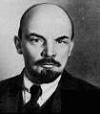















TLW's Communism Historyscope |
By T.L. Winslow (TLW), the Historyscoper™ |
© Copyright by T.L. Winslow. All Rights Reserved. |
Original Pub. Date: Nov. 24, 2012. Last Update: Nov. 27, 2025. |

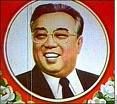


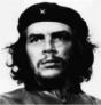
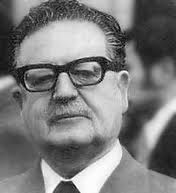
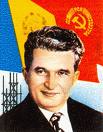


Westerners are not only known as history ignoramuses, but double dumbass history ignoramuses when it comes to Communism. Since I'm the one-and-only Historyscoper (tm), let me quickly bring you up to speed before you dive into my Master Historyscope.
Communism is about an idealistic society where greed is abolished and people work unselfishly for the society as a whole. As such, it's a non-starter, because greed is a sin and everybody sins. Only the early (1st cent.) Christians, who believed they had been born again as strangers to sin practiced pure Communism, those that didn't fall away, that is. They wouldn't have anything to do with the state other than paying their taxes and obeying laws that didn't go against their god Christ, in which case they joyously endured being torn apart by wild beasts in the arena, setting the example for centuries, all I care about is money like Hollywood not. They of course expected Christ to return and end the world at any time, and the cost-benefit analysis was off the charts.
No surprise, when centuries went by and Christ didn't return, while the Church grew into a real estate and financial empire, the bishops at the top began to get corrupt and sin all the time, relying on coverups to keep themselves and their org. in power, and by the time of Emperor Constantine in 312 they degenerated to the level of striking a deal putting them on the govt. dole and making them the official religion in return for preaching that killing and committing other sins for the so-called Christian Roman Empire was now okay. In short, they had come to think of Christ as a beautiful fable that paid for their easy lifestyles and gave them great power, and began to preach to their sheep that they don't have to be strangers to sin anymore as long as they pay their tithes and accept them as boss. Just confess their sins weekly and they'll crucify Christ anew like a fast-food restaurant for them at Mass, and anyway, the top bishop is Da Pope, who has the keys to Heaven and Hell in his hands, so just brown nose him and you're in. In short, to them Christ doesn't save you anymore at a Last Judgment, the Church with its voodoo mambojama rites does it now, what are you fussing with the buttons on your dress for, I do like being taken by a con man.
Whenever too many loafers and dropouts weight a society down, it goes kaput, so by 476 the Roman Empire was kaput. But the Church stayed in power, winging it by recruiting new suckers and keeping freethinkers down, and we'll skip over that here. The 1347-50 Black Plague caused the intelligentsia to wake up about the Church's claims to have a pipeline to God, and begin to open the forbidden books of the pre-Christian pagans and their copycats the Muslims. The 1492 discovery of America gave the Church a new source of vast wealth, which was like giving an alcoholic his own liquor store. By 1517 the Roman Catholic Church got so corrupt that even its own members were revolting, causing German monk Martin Luther to launch the Protestant Schism. But Protestants were still daughters of the Church in their attitude that church and state should be one, and that Christian soldiers should go out and kill for the govt. despite killing being a sin, call it the Constantine Swindle. Apparently they thought that even if Christ does return he will ignore his own warnings to sin no more and forgive everything as long as you brown nose him, that's when as and if. Sorry, but the real Bible texts say that the second time he's coming as a judge not a savior, and there's only two verdicts, eternal life or eternal death, either go to the Kingdom of Heaven where he rules, or go to the Lake of Fire to be with your father the Devil. Meanwhile anti-clerical and anti-religious skeptics like Voltaire who not only pooh-poohed Christ as a fable but could claim the high ground of freeing minds from the swindle were romping and gaining converts, and it was becoming the Irresistible Force vs. the Immovable Object, or like the moments before the Twin Towers fell.
A century after the Spanish and Portuguese began gutting the mineral wealth from Central and South America, the English began moving into North America, finding life hard but sticking it out, slowly diverging from the mother country in attitudes and allegiance, and chafing at the bit. The early Puritan settlers thought of America as the new Israel or Jerusalem, a place to live the pure religious life, which of course broke down fast as the English Anglican govt. moved their settlers in, who saw it only as a commercial venture to exploit, with more delicacy than the Roman Catholics, but no need to be so obvious since they enjoyed a land denuded of most of its native pop. before they moved in. No surprise, the Puritans at Plymouth started out trying simple communism, and soon reverted to capitalism, enjoy your turkey at Thanksgiving, creating the money-grubbing Boston Brahmins, after which it only took 50 years for Plymouth Gov. Josiah Winslow, the Pilgrim Hitler to exterminate the natives from Mass. completely and make it safe for the Kennedys. As Anglicans, Roman Catholics, and Jews moved in, the English colonies divided along religious lines, but ultimately found the overbearing burden of the English monarchy to be a unifying force when it threatened their pocketbooks.

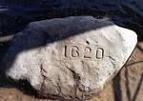


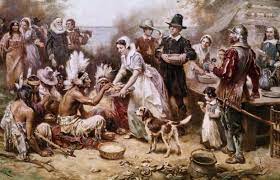
What are the roots? Why did the U.S. fight Marxism so long and so hard? It goes back to Dec. 21, 1620, when the lily-white English Christian Bible-thumping Puritan Pilgrims on the Mayflower landed on Plymouth Rock near the tip of Cape Cod, modern-day Mass., establishing the Plymouth Colony with the dream of escaping the rule of the established Anglican govt. of England, which these Bible-thumpers considered themselves too pure to bow to because they considered Anglicanism to be incurably infected with Roman Catholicism and the Pope to be the Antichrist. Too bad, they didn't have a clue how to survive in Massachusetts, and they didn't bring much food or fishing equipment with them, causing half of them to starve the first winter, until luckily, the local Wampanoag Indians befriended them (in returning for pledging to help them fight their enemies) and taught them how to plant corn, harvest oysters, cod, and cranberries, and eat turkeys and pumpkin pie, resulting in a good harvest and causing the First Thanksgiving to be celebrated in fall 1621.
Too bad, despite new settlers regularly arriving, after reading some passages in the New Testament about the First Christians sharing all things in common, they tried to establish a Communist utopia where it was required that "All profits & benefits that are got by trade, working, fishing, or any other means" be placed in the colony's common stores, and that "All such persons as are of this colony, are to have their meat, drink, apparel, and all provisions out of the common stock" , resulting in many turning into loafers, so that no surprise, in winter 1622 another cruddy fall harvest caused the colony to suffer its Second Starving Time, in which hundreds died, causing Gov. William Bradford (1590-1657) to write the soundbyte: "All this while no supply was heard of, neither knew they when they might expect any. So they began to think how they might raise as much corn as they could, and obtain a better crop than they had done, that they might not still thus languish in misery. At length, after much debate of things, the Governor (with the advice of the chiefest amongst them) gave way that they should set corn every man for his own particular, and in that regard trust to themselves; in all other things to go on in the general way as before. And so assigned to every family a parcel of land, according to the proportion of their number, for that end, only for present use (but made no division for inheritance) and ranged all boys and youth under some family. This had very good success, for it made all hands very industrious, so as much more corn was planted than otherwise would have been by any means the Governor or any other could use, and saved him a great deal of trouble, and gave far better content. The women now went willingly into the field, and took their little ones with them to set corn; which before would allege weakness and inability; whom to have compelled would have been thought great tyranny and oppression. The experience that was had in this common course and condition, tried sundry years and that amongst godly and sober men, may well evince the vanity of that conceit of Plato's and other ancients applauded by some of later times; that the taking away of property and bringing in community into a commonwealth would make them happy and flourishing; as if they were wiser than God. For this community (so far as it was) was found to breed much confusion and discontent and retard much employment that would have been to their benefit and comfort. For the young men, that were most able and fit for labour and service, did repine that they should spend their time and strength to work for other men's wives and children without any recompense. The strong, or man of parts, had no more in division of victuals and clothes than he that was weak and not able to do a quarter the other could; this was thought injustice. The aged and graver men to be ranked and equalized in labours and victuals, clothes, etc., with the meaner and younger sort, thought it some indignity and disrespect unto them. And for men's wives to be commanded to do service for other men, as dressing their meat, washing their clothes, etc., they deemed it a kind of slavery, neither could many husbands well brook it. Upon the point all being to have alike, and all to do alike, they thought themselves in the like condition, and one as good as another; and so, if it did not cut off those relations that God hath set amongst men, yet it did at least much diminish and take off the mutual respects that should be preserved amongst them. And would have been worse if they had been men of another condition. Let none object this is men's corruption, and nothing to the course itself. I answer, seeing all men have this corruption in them, God in His wisdom saw another course fitter for them."
So they scrapped Communism for greedy capitalism, and starting with the harvest of 1623 the colony had plenty to eat, although until the harvest they had to exist mainly on seafood, plus a 6-week drought beginning in June almost killed their crops until they had a big prayer meeting in July that was followed by two weeks of rain, confirming their belief that God was on the side of Puritanism and Capitalism. Ever after, Americans celebrate Thanksgiving with a big heavy turkey dinner with all the trimmings in remembrance of the First Thanksgiving, Capitalism, and the Bible God. No wonder that the atheist Communist woke movement's #1 goal is to cancel U.S. history and replace it with the woke Marxist 1619 Project version that starts in 1619 in the Anglican govt.-sponsored colony of Virginia instead and claims that the U.S. was founded just to exploit African slaves, causing its blind worshipers to topple statues of the U.S. Founding Fathers and replace them with Marxist heroes. I guess they forgot that the Spanish and Portuguese enslaved Africans for centuries before the English, and that Arab Muslim slave traders enslaved not only Africans but white Euros long before they did, and continued to modern times, buying African slaves captured by neighboring tribes, and hijacking Euro (incl. U.S.) ships on the Barbary Coast to capture juicy white slaves after claiming that the Quran told them to because they were infidels.
One hundred fifty years later, capitalism got its theoretical underpinnings.
From my cool Economistscope:

On Mar. 9, 1776 Scottish U. of Glasgow economist and Calvinist minister Adam Smith (1723-90) ("Father of Economics") pub. his epic 1K-page capitalist Bible Inquiry into the Nature and Causes of the Wealth of Nations, which advances the theory of laissez-faire economics, a "system of natural liberty", and the concept of the "invisible hand", becoming a bestseller, selling out in a few weeks; "Consumption is the sole end and purpose of all production, and the interest of the producer ought to be attended to, only so far as it may be necessary for promoting that of the consumer"; "The real price of everything is the toil and trouble of acquiring it"; "The propensity to truck, barter, and exchange... is common to all men, and to be found in no other race of animals"; "It is not from the benevolence of the butcher, the brewer, or the baker that we expect our dinner, but from their regard to their own interest"; "Every individual endeavors to employ his capital so that its produce may be of greatest value. He generally neither intends to promote the public interest, nor knows how much he is promoting it. He intends only his own security, only his own gain. And he is in this led by an invisible hand to promote an end which was no part of his intention. By pursuing his own interest he frequently promotes that of society more effectually than when he really intends to promote it"; "To found a great empire for the sole purpose of raising up a people of customers may at first sight appear unfit for a nation of shopkeepers, but extremely fit for a nation whose Government is influenced by shopkeepers"; "The discovery of America, and that of a passage to the East Indies by the Cape of Good Hope, are the two greatest and most important events recorded in the history of mankind"; "The first duty of the sovereign, that of protecting the society from the violence and invasion of other independent societies, can be performed only by means of a military force"; discusses the excess burden of taxation AKA deadweight loss or distortionary cost.
By 1776 the wise historyscopers of America figured out that Christ may still take a long time to return, if ever, and that in the meantime any workable halfway-just society has to assume that everybody's a sinner and build in the checks and balances to force them to work for the common good out of self-interest and er, greed, with both the Catholic and Protestant churches off peoples' backs. They first had to successfully rebel against the king of England and commit what amounts to blasphemy because the Bible says that all rulers are appointed by God, no wonder they never claimed that the U.S. was founded on God, Christ, or the Bible, just the will of the people with a capital P. But after they got past that they still had to learn by mistake, first forming a Confederacy that proved incapable of handling insurrection and tax collection, they at least tried to err on the side of a too-weak central govt., then doing it right and forming a Federal Repub. that distilled the great knowledge of the Founding Fathers, many of whom were top historyscopers of their day. The United States of America has been a bang-on success ever since, weathering all challenges internal and external, becoming the world's only superpower after the fall of the Communist Soviet Union in the late 1980s, which hasn't stopped diehard Communists from hoping to take over the world in the end, fuck the will of the People, we know what's best for them, I won't mention Pres. Obama, don't holler.
From the start the American example inspired others around the world, including in Europe and South America, but unfortunately the French, who still labored under the corrupt Roman Catholic Church hierarchy threw the baby out with the bathwater and chucked the Bible too, swimming in the untamed ocean of atheism where there is no sin, so sin is in, so no wonder it went bad. Still, the dream survived, and the shining light of the American Founding Fathers still inspires, even if it's hard to see how it's a constitutional right to bear arms if that means heavy machine guns and small nukes.
By the 20th cent. the Divine Right of Kings was kaput, and America's main idealogical, er, ideological opponents had coalesced into the Fascists and the Communists, both of which used govt. power to force people to work, but in the Fascist case it was under the time-honored promise that with military might they could take over whole countries and steal their wealth and party, while in the Communist case it started out by stealing the wealth from the lazy elite aristocrats, after which the govt. ran a mass slave labor camp forcing everybody to work to support their own elite bureaucracy. What gave the Fascists the right to steal whole countries? Their race, because White Is Right, I'm white and it makes me queasy too.
Either way, there were billions not millions of people alive, and Big Science and Technology shrunk the world and brought everybody under the gunsights, so that the State became the new god to pretty much everybody, leading to horrible world wars where millions were killed to see which system was the fittest.
Now that we've made it to the 21st cent., Fascism is pretty much kaput worldwide, with Communism falling apart in the Soviet Union when everybody tried to live off the work of others, but still holding out in China, which is so vast that it can allow a hundred million to go Capitalist to make profits for the other billion, with Korea and Cuba hanging off its apron strings. Communism is still flirted with in South America, but the main hope for the future is still the good ole U.S.-style constitutional republic that allows people to sin with Capitalism subject to the will of the People, who have the right to tax the profits to play footsie with a partial Communist utopian egalitarian woo-woo-woo society complete with Obamacare.
We won't mention the Muslim World here, which still has one foot in the Medieval era and is filled with diehards that don't want to learn anything from us and think the function of the govt. is to prevent sin with oppression no matter how poor they get, thank Allah for all that oil. Okay, we will mention it. It started out with the Great Jihad, the original Holy Fascism, promising true Muslims that if they conquer whole countries for Allah they can live off the subject infidels by forcing them to pay jizya or punishment tax for not converting. Hitler admired Islam and tried to copy it into 20th cent. terms, with 20th cent. weapons, and it did so much harm that we're still trying to recover from it, only to see Islamofascism start rearing its ugly head again, itching to get its hands on nukes, let's hope the future is bright and there is a God?
Let's back up. The Church had pretty much complete control of peoples' minds in Europe until the coming of the Black Death in 1347, which changed everything, and caused the Domino Effect leading to the modern world, Communism and all.
The Black Death (the original Darth Vader) rockets through Europe's Internet with breathtaking speed? In Oct. 1347 a Genoese trading fleet arrives in Messina, Sicily carrying the Black Death (Bubonic Plague) (Yersinia pestis bacteria), carried by fleas from rats; it also arrives in Egypt, Syria, and Cyprus; by 1351 it kills 20M-30M in Europe (a third of Europe's pop., and up to 60% in some areas), and 75M worldwide by 1361; world. pop. decreases from 450M to 350M-375M by 1400; Europe takes 150 years to return to 1347 pop. levels; it ravages China, halving its pop. from 123M in 1200 to 65M in this cent.; lucky America is not affected, but not toughened up by it either?; rats didn't really spread it, because it spread too fast from person to person? On Sept. 26, 1348 Pope Clement VI issues the bull Quamvis Perfidiam, attempting to dispel the rumor that Jews caused the Black Death by poisoning wells, saying that they too are suffering from the plague, but he is ignored. In summer 1349 the Great Plague reappears in Paris, where it peaks, killing up to 800 a day, and spreads to Picardy, Flanders, and the Low Countries; also in the summer it reappears in London, and spreads to Ireland, killing 35% of the pop. within a year; by the middle of the year half of the pop. of Venice is killed; by the end of the year half of England's pop. is killed, and a truce with France is called; the plague spreads to Norway when an English ship full of corpses floats into Bergen, and reaches Elbing (Elblag), Poland on Aug. 24; the Church and its credibility being challenged head-on, the main solution offered is by the Flagellants, who appear in force all over Europe (especially Germany), torturing themselves publicly, and proclaiming that the Second Coming is 33.5 years away (I been a bad, bad boy, so tan my sinful hide?), while causing trouble for Jews, the rich, the Church, and finally themselves (besides all the wounds), causing Pope Clement VI to pub. a bull condemning them on Oct. 20; "Many persons, and even young children were soon bidding farewell to the world, some with prayers, others with praises on their lips."
The Great Plague begins clearing in 1350-1, leaving a depopulated Europe where the deck is reshuffled and the entire social order is thrown up for grabs. The intelligentisa begin to smell a rat in the divine pretensions of the Church, and launch the timeless look at the ancient pagan past called the Renaissance via their Greek scholar friends in Constantinople, no longer being satisfied with Arab translations but learning ancient Greek for themselves; meanwhile the working class see the class struggle clearly now, the rain is gone. In 1351 the Statute of Laborers, passed under Edward III attempts to keep the wages and prices as low in England as they had been before the Great Plague created a labor shortage; every workman not bound to a lord or exercising a craft is required to take work when offered to him, and at the pre-plague "just price"; the law is widely flouted, causing many lords to lease their demeanes to tenant farmers, creating a new prosperous working class which keeps wanting mo' and mo'? In 1360 the Great Plague labor shortage causes English justices of the police, er, peace to be established as police judges in each county, with powers to regulate prices and wages.


In 1524 the Peasant Revolt (War) (ends 1525) against their lords in Thuringia (Swabia and Franconia in S Germany), led by Thomas Munzer, Florian Geyer, and Michael Gaismair begins, fueled by the writings of Martin Luther (1483-1546), who thinks that if he can take on the pope and Church he can also challenge the socioeconomic inequalities of German feudalism, and pub. the Twelve Articles; too bad, he soon turns against them, and pub. the virulent pamphlet Against the Murdering and Thieving Hordes of Peasants, calling for their extermination, and looses on them landgrave Philip I the Magnanimous of Hesse (1504-67), who met Luther at the 1521 Diet of Worms then went Lutheran this year after a personal meeting with Philippp Melanchthon (no wonder that the Communists later decide to junk all of Christianity?); meanwhile (well-named?) German bookbinder Hans Nut (-1527) predicts the Second Coming of Christ exactly 3.5 years after the start of the Peasant's Revolt, which will be the start of 1K years of free food, love, and sex, then claims that he is the Messiah and gathers a following; too bad, he is killed during a prison escape in 1527.
Let's skip to the French Revolution of 1789.
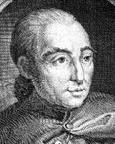
In 1785 French Jansenist-educated mainly porno writer Nicolas-Edme Restif (Rétif) (1734-1806) coins the word "communism" in a review of a book by Joseph-Alexandre Hupay de Fuveau, announcing his Project for a Philosophical Community.





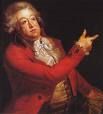



Just a little bit, just a little bit, sock it to me sock it to me? On June 17, 1789 after the king's financial adviser Jacques Necker (1732-1804) (wrong name for this country?) rigs the voting by rank to nullify the third estate's advantage, Abbe Emmanuel Joseph Sieyes (Sieyčs) (1748-1836), author of of the hit CD What Is the Third Estate? makes a motion, causing it to bolt and meet to form a new constitution, declaring itself the beat-me-heat-me-come-on-eat-me Nat. Assembly, and inviting the other estates to join, which causes the king on June 20 to lock them out and suspend meetings for three days, which doesn't phase them, because they got cat scratch fever and meet in an indoors tennis court, swearing the Tennis Court Oath to stay in session until they create a new constitution; on June 23 the king continues to try to stop them, ordering each estate to meet separately, and Honore (Honoré) Gabriel Riqueti, Comte de Mirabeau (1749-91) (elected for both Marseille and Aix) steps forward and answers royal messenger Henri Evrard, Marquis de Dreux-Breze (Dreux-Brézé) (1762-1829) with the truly breezy immortal Mr. Saturday Night Special soundbyte "If you have orders to remove us from this hall, you must also get authority to use force, for we shall yield to nothing but to bayonets"; the 10-year 7-mo. 11-day French Rev. (ends 1799) begins as 24M French citizens kept down by 400K aristocrats upend the entire social structure, infecting the world with incurable dreams of equality that overtake the milder Am. Rev.; on June 27 after the three estates unite, the king orders the rumps of the first two estates to join them, and Comte de Mirabeau emerges as leader; although the king is waffling, his wife Marie Antoinette makes him take the hard line, getting him to send troops from Versailles to surround Paris in an obvious plan to you know what. On July 2 nasty bastard Marquis de Sade, who is sadly imprisoned in the Bastille yells to the crowds outside "They are killing the prisoners here!", causing a riot, after which on July 4 he is transferred to the Charenton insane asylum near Paris, missing out on the July 14 storming of the Bastille, although his estate in Lacoste is sacked by a mob later this year; he is finally released in 1790 after the assembly abolishes the instrument of lettre de cachet that had been used to imprison him sans charges, divorces his wife and hooks up with actress Marie-Constance Quesnet, with whom he spends the rest of his life, growing extremely obese and calling himself "Citizen Sade", getting elected to the Nat. Convention representing the far left despite his aristocratic background. Catastrophe theorists here's your butterfly flapping its wings and causing a hurricane? On July 12 reformer French minister Jacques Necker is suddenly fired by the king, and failed French lawyer Camille Desmoulins (1760-94) has his 15 min. of fame when he loses his usual stammer and jumps up on a table on a cafe outside the Palais Royal and utters the immortal soundbyte "This dismissal is the tocsin of the St. Bartholomew of the patriots!", after which he draws two pistols and declares that if the pigs are going to take him they will have to take some bullets first, triggering riots in Paris, which on July 13 leads to a partisan militia, later becoming the Nat. Guard being formed; Desmoulins is now a celeb, and becomes a writer-journalist, going on to pub. Discours de la Lanterne aux Parisiens, which quotes John 3:20 ("He that does evil hates the light"), causing him to become known as the "Lanterne Prosecutor", going on to pub. the pro-violence Histoire des Revolutions de France et de Brabant (until July 1791), making him rich and famous; meanwhile on July 12 wax heads of Jacques Necker and the Duc d'Orleans made by Dr. Philippe Curtius (1741-94), mentor of Madame Tussaud are carried in a protest march. Prison break! Prison break! Those pipes are the way out? On July 14 (Tues.) (Bastille Day) after the prisoners cry to be released, the 14th cent. crenelated Bastille fortress prison in Paris falls after the soldiers refuse to fire on Parisian citizens and they storm it and release all seven prisoners inside (they leave a copy of Nostradamus' "Centuries" open to the Preface on a table for 10 days to allow people to file past and read how their rev. has been predicted?); aided by French Royal Guard deserters they capture and kill Bastille gov. Bernard-Rene Jordan de Launay (b. 1740), then shoot and murder Jacques de Flesselles (b. 1721) at the Hotel de Ville, who becomes the last provost of the merchants (mayor) of Paris (since 1785); the king is awakened in the middle of the night by his chamberlain to tell him the potty news, and now that he has lost the support of his army he knows he's kaput, and writes in his diary "Nothing", meaning he didn't go hunting?; on July 15 the electors of Paris abolish the French feudal system and set up a Commune after Louis backs down and orders his troops out of Paris; Marquis de Lafayette becomes cmdr. of the Nat. Guard (originally proposed by Comte de Mirabeau), and bookish painter-tragedian-scientist (expert on the history of Science) Jean-Sylvain Bailly (1736-93) is elected mayor of Paris (until 1791); on July 17 the king recalls Necker; the French Tricolor Flag is adopted, white for France, blue and red for Paris; on July 20 peasants arise throughout France, beginning the Grande Peur (Fr. "great fear"), which ends on the night of Aug. 4 with the nobles and clergy surrendering their feudal rights and privileges, ending feudalism in France and kicking the manorial lords out of Dauphine, Provence, Burgundy, et al.; Burgundy, a province since 1678 is split up into the depts. of Ain, Cote d'Or, Saone-et-Loire and Yonne; the smarter French nobles begin skedaddling from France in the Emigration of the Nobles - it's time to get outside and grow something?

In 1789 French philosopher-historian-diplomat Abbe Gabriel Bonnot de Mably (1709-85) posth. pub. Des Droits et des Devoirs du Citoyen (The Rights and Duties of a Citizen) (1789) (written in 1758), which advocates the abolition of private property, and argues for the equality of needs not just legal rights, criticizing idless and claiming that virtue is more important than acquisition of wealth, helping launch Socialism and Communism.






Have a very corday? On July 13, 1793 (Bastille Day minus one?) "L'Ami du Peuple" ed. Jean-Paul Marat (b. 1743) is stabbed to death (in the back) in his bath by convent-educated Girondist sympathizer Marie-Anne Charlotte Corday d'Armont (b. 1768) as he tries to soak the hideous boils covering his gross bod; at her execution on July 17, Corday utters the immortal soundbyte "I killed one man to save one hundred thousand" - is this like Prince's Purple Rain, or the female stars of School for Scandals? On Sept. 3, 1793 radical Socialist (the first Communist?) Francois Noel Babeuf (1760-97), who had just beaten a phony fraud charge, and now calls himself "Gracchus" begins pub. Le Tribun du Peuple (People's Tribune) (originally "Journal de la Liberte de la Presse"), defending the leaders of the Terror, attacking the leaders of the Thermidorian Reaction, and preaching Socialism, getting him imprisoned in Arras in Oct., which only fuels his engine, so that issue #33 calls for his big idea of restoration of the 1793 constitution. On Sept. 5 the Jacobins seize on the Marat incident to begin the Reign of Terror (La Terreur) (ends July 28, 1794), un by the 12-man Committee of Public Safety, whose leader is up-and-coming basket case Robespierreand his able left wingnut Saint-Just, resulting in 16,594 executions across France by the Nat. Razor (guillotine) (incl. 2,639 in Paris), plus another 25K summary executions across France. On Sept. 18-Dec. 18 the Siege of Toulon is the first V for young 5'6" (5'2" in pieds de roi, the old French measurement system) Corsican artillery capt. Napoleon Bonaparte (1769-1821), (connected to the Jacobins and Robespierre), (who suffers from neurodermatitis, i.e., chronic nervous itching, hence the hand tucking) who reclaims the French fleet lost to the English and rises to the rank of brig. gen. On Sept. 29 price lids are established in France for wages and commodities,


Extreme Makeover, Industrial Edition? In 1800 British industrialist Robert Owen (1771-1858) takes over the mills in New Lanark, Scotland (below the falls of the Clyde River in S Scotland, 1 mi. S of the Lanarkshire county seat of Lanark), and sets up a utopian socialist community. In 1825 New Harmony is founded on 30K acres in Indiana purchased by reformer Robert Owen and his son Robert Dale Owen (1801-77), but a misselection of personnel leaves several occupations underrepresented and the colony soon folds (1828).

In 1808 French philosopher Francois Marie Charles Fourier (1772-1837) pub. Theorie des Quartre Movements et des Destinees Generales, which introduces socialistic Fourierism, the theory that universal harmony trumps throwing rice away because of low prices, therefore people should be forced into phalanxes of 1.6K people so that nobody goes without?

In 1819 French thinker Henri de Saint-Simon (Claude Henri de Rouvroy, Comte de Saint-Simon) (1760-1825) (aristocrat who joined the French Rev., got rich, then was stolen blind by his partner, causing him to go into prophet mode) pub. L'Industrie, ou Discussions Politiques, Morales et Philosophiques (4 vols.) (1817-18), which proposes a new technocratic socialist society ruled by men of science and industrialists, causing a sensation and gaining him converts. In Nov. 1819 he begins pub. the socialist mag. L'Organisateur, which ends pub. abruptly in Feb. 1820 after the assassination of Charles Ferdinand, Duke of Berry is blamed on it. In 1825 he pub. Le Nouveau Christianisme (The New Christianity), which spawns the Saint-Simonian sect of Christian communists, with artists taking the place of clergymen, which is suppressed by the authorities.

The original Rael? In May 1832 the new free-love Saint-Simonian Socialist religous sect of Barthelemy (Barthélemy) Prosper Enfantin (1796-1864) (who wears a breast badge titled "Pere", claims to be the Chosen of God, and sends emissaries out looking for his Female Messiah) is shut down by the French govt., and he ends up going to Egypt, where he tries to stir up interest in starting a Suez Canal before returning to France and going bourgeois. In 1832 the word "socialism" comes into use in England and France.

On Aug. 14, 1834 Richard Henry Dana Jr. (1815-82) sails on the brig Pilgrim to Calif., returning in Sept. 1836 on the Alert after witnessing a flogging aboard the Pilgrim that pisses him off, later writing the classic Two Years before the Mast (1840), an account of the hide and tallow trade in Mexican Calif. during a voyage in 1834-6.
In Oct. 1835 19-y.-o. Trier-born Karl Marx (b. 1818) rejects the lawyer career selected by his lawyer father and moves to the U. of Bonn in the hopes of becoming a prof., gettomg wounded in Aug. 1836 in a duel with a member of the aristocratic Prussian Borussian Korps fraternity before transferring to the U. of Berlin in Oct. 1836, switching from law to study the philosopher G.W.F. Hegel, joining the Young Hegelians in 1837 and ending up dancing in the streets in Nov. 1837, writing to his father that "I wanted to embrace every person standing on the street-corner"; in Apr. 1841 after switching to the U. of Jena, he is awarded a doctorate for his thesis "The Difference Between the Democritean an Epicurean Philosophy of Nature"; too bad, the reactionary policy of the govt. makes him give up his academic career and move to Cologne in 1842 to become a journalist for the radical Rheinische Zeitung, which is banned by the Prussian govt. in 1843, causing him to move to Paris in Oct. 1843, becoming co-ed. of the radical Deutsch-Franzosische Jahrbucher ( Deutsch-Französische Jahrbücher), which is banned by German states after one issue, in which he pub. the article "On the Jewish Question", marking his embrace of Communism with its belief that the proletariat are a rev. force.

In 1839 French Socialist Jean Joseph Charles Louis Blanc (1813-82) founds the Socialist periodical Revue du Progres. In 1839 he pub. L'Organisation du Travail, which argues for state-financed producers' assocs., and contains the immortal soundbyte: "To each according to his needs, from each according to his abilities."

In 1841 Landshut, Bavaria-born German philosopher-anthropologist Ludwig Andreas von Feuerbach (1804-72) pub. his magnum opus The Essence of Christianity (Das Wesen des Christentums), which claims that religious faith is based on contradictions, and that its true essence is anthropological, and God is the outward projection of man's inward nature; Karl Marx and Friedrich Engels become fans.
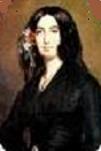
In 1841 French novelist George Sand (Amandine or Amantine Lucile Aurore, Baroness Dupine-Dudevant (1804-76) gets out of her romantic novel funk and begins writing brilliant pleas for a Socialist rev. in Europe (until 1848).




It's all about freedom of expression? In 1842 German Young Hegelian Friedrich Engels (1820-95) meets former Young Hegelian, German Jewish know-it-all Karl Marx (1818-83) at the offices of the Rheinische Zeitung in Manchester, England, but they are not impressed with each other; Engels hooks up in Manchester with Irish working class radical Mary Burns (1821-63), shacking up with her without doing that old-fashioned marriage thang, making enough money to support Marx, who next June 19 marries childhood friend, Prussian aristocrat Baroness Johanna Bertha Julie Jenny Freiin von Westphalen (1814-81) (after Marx dedicated his doctoral thesis to her liberal father Ludwig von Westphalen); they go on to have seven children, only three of whom survive to adulthood, Jenny, Laura, and Eleanor. On Aug. 28, 1844 after sending his first economic work "Outline of a Critique of Political Economy" to be pub. by Marx, Friedrich Engels meets Karl Marx again at the Cafe de la Regence in Paris, and this time they become close pals. In 1845 Engels pub. The Condition of the Working Class in England in Leipzig, written in Manchester, England in Sept. 1844-Mar. 1845, where he witnessed "the most unconcealed pinnacle of social misery in our day" incl. child labor and degrading working conditions, making a fan of Karl Marx. In 1845 German writer Wilhelm Weitling (1808-71) pub. Der Evangelium eines Armen Sunders (The Poor Sinner's Gospel), which traces Communism to 1st cent. Christianity, impressing Karl Marx.
In 1844 the Petrashevsky Circle of followers of the Socialist theories of Charles Fourier begins meeting on Fridays at the home of M.V. Petrashevsky; after the revs. of 1848 they go radical and get shut down by the govt. in 1849.
On July 20, 1847 the Sonderbund War in Switzerland begins when the Roman Catholic cantons of Lucerne, Fribourg, Valais, Uri, Schwyz, Unterwalden, and Zug refuse to integrate with the Protestant ones and form the Sonderbung, which the radicalized (after a V in St. Gall) Federal Diet dissolves, declaring war on it on Nov. 4 and defeating the Catholic forces by Nov. 29, allowing it to establish a liberal-radical govt. whether the Catholics like it or not; the big V for liberalism causes crowds in France and Italy to cheer, and Marx and Engels to send kudos; meanwhile Metternich et al. rightly fear that the radicals are not going to stop there?
On Feb. 1, 1848 London Tribune reporter (managing ed. Richard Henry Dana Jr. - a coincidence? Did he mention his California days?) Karl Marx (1818-83) and Friedrich Engels (1820-95) pub. The Communist Manifesto (Manifesto of the Communist Party) in London as a a broadside for the coming revolutions; "A specter is haunting Europe, the specter of Communism"; "The history of all hitherto existing society is the history of class struggles"; "Society as a whole is more and more splitting up into two great hostile camps, into two great classes directly facing each other - Bourgeoisie and Proletariat"; "Of all the classes that stand face to face with the bourgeoisie today, the proletariat alone is a really revolutionary class. The other classes decay and finally disappear in the face of Modern Industry; the proletariat is its special and essential product"; "Those of its members who work, acquire nothing, and those who acquire anything, do not work"; "Proletarians of all countries, unite!" is popularized in English as "Workers of the world, unite! You have nothing to lose but your chains!"; "When, in the course of development, class distinctions have disappeared, and all production has been concentrated in the hands of a vast association of the whole nation, the public power will lose its political character. Political power, properly so called, is merely the organized power of one class for oppressing another. If the proletariat during its contest with the bourgeoisie is compelled, by the force of circumstances, to organize itself as a class, if, by means of a revolution, it makes itself the ruling class, and, as such, sweeps away by force the old conditions of production, then it will, along with these conditions, have swept away the conditions for the existence of class antagonisms and of classes generally, and will thereby have abolished its own supremacy as a class"; when the little revvies all fizzle, the document is repub. as The Communist Manifesto 20 years later, and those who think that socialism can be implemented bloodlessly are labelled as "utopian socialists"; of course the new Communist movement is militantly atheistic and anti-clerical. In Apr.-May 1848 they pub. TheGerman Ideology (Apr.-May), their new Marxist ideology and theory of history; shows their break with Bruno Bauer and the Young Hegelians; not pub. until 1932. when the little revvies all fizzle the document is repub. as The Communist Manifesto 20 years later, and those who think that socialism can be implemented bloodlessly are labelled as "utopian socialists". "Religious suffering is, at one and the same time, the expression of real suffering and a protest against real suffering. Religion is the sigh of the oppressed creature, the heart of a heartless world, and the soul of soulless conditions. It is the opium of the people." - Karl Marx, Critique of Hegel's Philosophy of Right, Intro. (1843) Jordan Peterson's Critique of the Communist Manifesto.

On May 15, 1848 workers in Paris riot over the harsh conditions of the nat. workshops, attempting to overthrow the newly elected Constituent Assembly; artisans also participate, changing the urban social protest base?; Louis Auguste Blanqui (1805-81) of France, who was pardoned early in the year from a life sentence for an 1839 insurrection receives a 10-year sentence (until 1859), using the time to study up on Socialism, originating the theory of the dictatorship of the proletariat, which later is the soap for doing all the Russian dirty Lenin?

Also in 1848 radical utopian socialist Etienne Cabet (1788-1856), who was convicted of treason in France and forced into exile after the 1830 July Rev., then returned to France after the amnesty of 1839 and founded the Icarians (Icarian Society) and the journal Le Populaire sends a group of his followers to Texas to set up a Communist community, but they leave for New Orleans before he can join them, then they all move to Nauvoo, Ill., and prosper until 1856.

On Apr. 23, 1849 Fyodor Dostoevsky (1821-81) and other members of the young revolutionary Petrashevsky Circle (who meet to read and discuss banned books) are arrested, tried, and sentenced to death, left to stew, then pardoned on Dec. 22 at the last min. before execution, their sentences magnanimously commuted to four years of hard labor in Omsk, Siberia and life servitude in the army, causing Dostoevsky's epilepsy to run wild; after four years at Omsk and one year as an army private in Siberia his commission is restored, but he isn't allowed to return until 1859, during which time he chucks his Socialist internationalist views and goes religious and nationalistic - I got my mind right boss?


In May 1849 after being exiled from Prussia and printing his final newspaper issue in red, Karl Marx emigrates to London, taking the HQ of the Communist League with him, staying for life; in the winter a schism is led by Prussian-born Johann August Ernst von Willich (1810-78) and German-born Karl Schapper (1812-70), who want an immediate Communist rev., and are expelled; meanwhile they stir up the German Workers' Educational Society of London, and this time they win, so Marx resigns next Sept. 17.
In 1851 Karl Marx is hired as the London correspondent of Horace Greeley's New York Herald Tribune, going on to whine about his $5 per article salary, after which he quits and goes full-time promoting Communism; a great what-if, if Greeley had paid him more?

In 1853 English theologian John Frederick Denison Maurice (1805-72) pub. Theological Essays, which gets him removed as prof. of divinity at King's College, London, but he founds the Christian Socialist movement in England, and in 1866 becomes prof. of moral philosophy at Cambridge U. and lives happily ever after - call me deep and blue?


The Book That Shook the World? Big year for Bible skeptics, secularists, atheistic scientists, anybody against the ancien regime, as Jehovah, the Source of Life Breathed Into Mud is challenged by Evolution, Mud Coming to Life by Itself After It Bubbles Long Enough? The biggest V for the Devil since Eden? The new 95 Theses, but Darwin is smart enough not to publish it on Halloween? On Nov. 24, 1859 (Thur.) English naturalist Charles Robert Darwin (1809-82) pub. On the Origin of Species By Means of Natural Selection, Or, The Preservation of Favoured Races in the Struggle for Life; the 1st ed. sells out in 1 day; the 1872 6th ed. shortens the title to "The Origin of Species"; the decider, which causes evolutionary "survival of the fittest" theory to triumph among the intelligentsia; English Anglican minister and Cambridge U. prof. of modern history Charles Kingsley (1819-75), who received an advance copy on Nov. 18 writes that he had "long since, from watching the crossing of domesticated animals and plants, learnt to disbelieve the dogma of the permanence of the species", which Darwin adds to the next ed. of his book in a modified form: "He had gradually learned to see that it is just as noble a conception of the Deity to believe that He created a few original forms capable of self-development into other and needful forms, as to believe that He required a fresh act of creation to supply the voids caused by the action of His laws"; Darwin pub. it after spending eight years dissecting barnacles in his basement, then inexplicably switches to the Galapagos finch?; catches on first in Germany among atheists?; Louis Agassiz of the U.S. opposes Darwin, preferring a theory of "Epochs of Creation", based on the absence of missing links between layers of well-formed fossil ecosystems; the phrase "I'll be a monkey's uncle" is coined by Darwin skeptics; "There is a grandeur in this view of life that, whilst this planet has gone cycling on according to the fixed law of gravity, from so simple a beginning endless forms most beautiful and most wonderful have been, and are being, evolved"; what was that about "my theory would absolutely break down" if anything is found that can't be explained by "numerous, successive, slight modifications"?; in practice Darwinism becomes a religion which denies that there is intelligent design in Nature, and therefore tries to deconstruct any evidence of it they find as they go along, yet clings to the notion of common descent, almost as if there was some original, er, accident, and ends up turning into a narrow naturalistic dogma by the end of the 20th cent., taking over U.S. and other Western educational systems with a chilling priesthood? In 1860 after failing to fit it into his Theory of Evolution, Darwin writes the immortal soundbyte: "The sight of a feather in a peacock's tail makes me sick." On Feb. 1, 1871 he writes a Letter to Sir Joseph Dalton Hooker, with the soundbyte: "It is often said that all the conditions for the first production of a living organism are now present, which could ever have been present. But if (and oh! what a big if!) we could conceive in some warm little pond, with all sorts of ammonia and phosphoric salts, light, heat, electricity, &c., present, that a protein compound was chemically formed ready to undergo still more complex changes, at the present day such matter would be instantly absorbed, which would not have been the case before living creatures were found." On Feb. 24, 1871 he pub. The Descent of Man, and Selection in Relation to Sex, which applies his theory of evolution to humans; "The Simidae then branched off into two great stems, the New World and the Old World monkeys; and from the latter at a remote period, Man, the wonder and glory of the universe, proceeded"; "We civilized men... do our utmost to check the process of elimination; we build asylums for the imbecile, the maimed, and the sick; we institute poor laws; and our medical men exert their utmost skill to save the life of everyone to the last moment... Thus the weak members of civilized societies propagate their kind. No one who has attended to the breeding of domestic animals will doubt that this must be highly injurious to the race of man. It is surprising how soon a want of care, or care wrongly directed, leads to the degeneration of a domestic race; but excepting in the case of man himself, hardly anyone is so ignorant as to allow his worst animals to breed"; attempts to scientifically establish white racial supremacy, with the soundbytes: "Western nations of Europe immeasurably surpass their former savage progenitors and stand at the summit of civilization"; "American aborigines, Negroes, and Europeans differ as much from each other in mind as any three races that can be named"; "Looking to future generations, there is no cause to fear that the social instincts will grow weaker, and we may expect that virtuous habits will grow stronger, becoming perhaps fixed by inheritance... [so that] virtue will be triumphant"; "It is the most closely allied forms... which, from having nearly the same structure, constitution, and habits, generally come into the severest competition with each other; consequently, each new variety of species, during the progress of its formation, will generally press hardest on its nearest kindred, and tend to exterminate them"; "This is the book that contains the foundation in natural history for our view" (Marx to Engels); this book is later used by Eugenicists to justify euthanasia of misfits, using soundbytes incl. "We civilized men... do our utmost to check the process of elimination; we build asylums for the imbecile, the maimed, and the sick; we institute poor laws; and our medical men exert their utmost skill to save the life of everyone to the last moment... Thus the weak members of civilized societies propagate their kind. No one who has attended to the breeding of domestic animals will doubt that this must be highly injurious to the race of man. It is surprising how soon a want of care, or care wrongly directed, leads to the degeneration of a domestic race; but excepting in the case of man himself, hardly anyone is so ignorant as to allow his worst animals to breed.... All do good service who aid toward this end."

In 1859 French Socialist Jean Baptiste Andre Godin (1817-88) founds a Fourierist phalanx in Guise, France, becoming the first (only?) successful attempt.

In 1862 Bonn-born French-Jewish philosopher Moses Hess (1812-75) pub. Rome and Jerusalem: The Last National Quetion (Leipzig), his magnum opus, which argues for a Marxist-Socialist Jewish state in Palestine to bring about "the Sabbath of history" after mass immigration of Jewish working class people who found rural kibbutzim and moshavim seeking "redemption of the soil", along with an urban Jewish proletariat, becoming the founder of leftist Labor (Socialist) Zionism>, diverging from Marx and Engels by seeing the struggle of races or nationalities as more important than economic classes, becoming one of the first to notice the rise of race-based anti-Semitism in Germany; too bad, Euro Jews still prefer cultural assimilation; makes fans of Theodor Herzl (who brings it back from the grave) and Vladimir Jabotinsky.

On May 23, 1863 the Gen. German Workers' Assoc. (Allgemeiner Deutscher Arbeiterverein) (ADAV) is founded by German Jewish Socialist Ferdinand Lassalle (1825-64), who broke ranks with Marx and Engels in his desire for what-the-world-needs-now-is State Socialism, where the "iron law of wages" of brutal Capitalism is broken, and the "full products of their labor" secured by the govt. in a state with worker cooperatives and universal suffrage; by 1869 after it is torn apart by fights between dems. and Socialists, and evolves into the German Social Dem. Party - the magical cleaning power draws dirt out, and the smell of freshness draws them in?

In 1863 Saratov-born Russian materialist socialist philosopher Nikolai Chernyshevsky (1828-89) pub. the novel What Is to Be Done?, written in Peter and Paul Fortress in St. Petersburg as a response to Ivan Turgenev's "Fathers and Sons" (1862), expounding the way a true revolutionary should act through the character of Rakhmetov, a totally-dedicated disciplined ascetic, who sleeps on a bed of nails and eats raw steak, becoming a Soviet Union classic after Lenin becomes a fan; pisses-off Fyodor Dostoyevsky, who writes "Notes from the Underground" (1864) in reaction; too bad, Chernyshevsky goes from bad to worse, receiving a mock execution in 1862, penal servitude in 1864-72, and exile to Vilyuisk, Siberia in 1872-83.
In 1864 Karl Marx founds the first Internat. Workingmen's Assoc. in London and New York City (ends 1876); in 1866 its first congress is held in Geneva.

On Dec. 8, 1864 Pope (since 1846) Pius IX (1792-1878) issues his infamous Syllabus of Errors (Syllabus Errorum), which condemns separation of church and state, freedom of the press and religion, rationalism, modernism, liberalism, socialism, etc., all lumped together on the red ink list; on Dec. 8 he also issues the encyclical Quanta Cura (Condemning Current Errors), condemning freedom of religion and speech, and separation of church and state, especially the "insane" idea that "Liberty of conscience and worship is each man's personal right, which ought to be legally proclaimed and asserted in every rightly constituted society; and that a right resides in the citizens to an absolute liberty, which should be restrained by no authority whether ecclesiastical or civil, whereby they may be able openly and publicly to manifest and declare any of their ideas whatever, either by word of mouth, by the press, or in any other way."


On Sept. 14, 1867 Trier, Prussia-born London-based economist Karl Heinrich Marx (1818-83) pub. Das Kapital: Kritik der Politischen Okonomie, Vol. 1 (Capital: A Critique of Political Economy), which condemns capitalism for exploitation of labor; it incl. the chapter on Alienated Labour; three more vols. are planned, and only two are pub. (1885, 1894); Marx wanted to dedicate it to Charles Darwin until his religious wife Emma Darwin nixes it; his notes are pub. posth. in 1939 under the title Grundrisse der Kritik der Politischen Okonomie (Outlines of the Critique of Political Economy); Marx quit working on his big book because the Marginalist School of Jevons, Menger, and Walras used the cost of diamonds vs. water to disprove his labor theory of value? Barmen, Prussia-born Friedrich Engels (1820-95) co-authors and edits Das Kapital, Vol. 2: The Process of Circulation of Capital (1885), and Das Kapital, Vol. 3: The Process of Capitalist Production as a Whole (1894), the most important volume? Marxian Economics can be differentiated from Marxian rev. politics - don't these people know that you can't tell what a tomato tastes like by squeezing it?

In 1867 the first Socialist Party in the U.S. is founded in New York City.
In 1867 August Ferdinand Bebel (1840-1913) becomes the first Socialist member of the North German Reichstag.
On Aug. 9, 1869 the Social Dem. Workers' Party (Social Dem. Party) (SPAD) is formed in Eisenach, Germany by members of Ferdinand August Bebel's Federation of Workers and dissenting members of the Gen. Workers' Assoc. (ADAV); it starts out Marxist, then in 1875 merges with the ADAV to form the Socialist Workers' Party of Germany (SAPD), renamed to the Socialist Party of Germany (SPD) in 1890 - calling a spade a spade?
In 1870 the Swiss Socialist Party is founded in Zurich after the Second Internat. collapses, with a platform of govt. centralization and a progressive income tax.
In May 1875 after the German Social Dem. Party (SDP) is formed with the pub. of its Gotha Program, calling for the creation of "socialistic productive associations" rather than nationalization of the means of production, Karl Marx responds with his Critique of the Gotha Program, containing the soundbyte "dictatorship of the proletariat", and talking about the transition from Capitalism to Communism, proletarian internationalism, and the party of the working class; he clarifies Socialism as paying workers based on their deeds, and Communism as paying them based on their needs.
In 1879 the Spanish Socialist Party is founded. In 1882 it founds the Union Gen. de Trabajadores labor union.

In 1881 Henry Mayers Hyndman (1842-1921) founds the Dem. Federation (later called the Social Dem. Federation) in England to advance Marxism, reaching a membership of 10K and changing its name in 1911 to the British Socialist Party; in 1914 he quits after becoming an ardent nationalist and they become opposed to British entry into WWI, and in 1916 founds the Nat. Socialist Party (unfortunate name), which doesn't go very far.


In 1883 the leading Socialist periodical Die Neue Zeit (The New Times) is founded by Prague-born Karl Johann Kautsky (1854-1938), "the Pope of Marxism", who joins the German Social Dem. Party, gets in a debate with "Marxist revisionist" Eduard Bernstein (1850-1932) (who denies the inevitability of class conflict) over revolution vs. gradual social reform, and flip-flops to his side, becoming a pacifist.



On Jan. 4, 1884 the British Socialist Fabian Society is founded in London by a group of middle-class intellectuals incl. Havelock Ellis (1859-1939) and Edith Nesbit (1858-1924) to promote democratic Socialism via gradualist-reformist efforts rather than rev. ovethrow; Irish playwright George Bernard Shaw (1856-1950) joins in 1884 - is that the dog that saved the day?

In 1884 English artist-poet William Morris (1834-96) et al. found the Socialist League, which pub. The Commonweal.


On May 1, 1886 U.S. workers organize the first May Day strike; on May 4 the Haymarket Square Riot (Massacre) (Affair) sees a peaceful labor strike for an 8-hour workday by 1.4K ruined by a few anti-reaper radicals who explode a bomb in Haymarket Square in Chicago, Ill, killing seven of 200 policemen, causing a riot and discrediting the labor movement as hysteria sweeps the U.S., causing Pres. Cleveland to become less tolerant of labor strikes; anarchists Samuel Fielden (1847-1922), Michael Schwab (1853-98), and Oscar William Neebe (1850-1916) are convicted, but later Ill. Dem. gov. (1893-7) John Peter Altgeld (1847-1902) pardons them, causing er, a firestorm of controversy.

In 1888 U.S. Baptist minister's son Edward Bellamy (1850-98) (cousin of Francis Bellamy) pub. Looking Backward, 2000-1887, an internat. bestseller about Julian West, who time travels and discovers that the U.S. will become a Military Socialist utopia by you know when, launching the Nationalist movement, which inspires several utopian communities; uses the swastika symbol, later adopted by the Nazis, along with the straight arm salute used for the Pledge of Allegiance by his cousin Francis Bellamy; based on Laurence Gronlund's 1884 "Exposition of Modern Socialism".
On May 1, 1889 Paris stages its first May Day celebration, which becomes a Socialist holiday. On July 14, 1889 the Second International is founded in Paris by delegates from 20 countries; it is dissolved in 1916.

On May 15, 1891 Pope (since 1878) Leo XIII (1810-1903) issues the encyclical Rerum Novarum, arguing for the dignity of the working poor and against Socialism.

In Aug. 1892 U.S. Baptist minister's son Francis Julius Bellamy (1855-1931) (a Freemason and Christian Socialist) (cousin of Edward Bellamy) writes the Pledge of Allegiance for the 400th anniv. of Columbus' discovery of White Grab-Bag-Land and to promote the schoolhouse flag movement; it is first pub. on Sept. 8 in The Youth's Companion (circ. 500K); the original version is "I pledge allegiance to my Flag and to the Republic for which it stands, one nation, indivisible, with liberty and justice for all"; he resists the urge to incl. the French Rev. catchword "equality", saying "No, that would be too fanciful, too many thousands of years off in realization"; too bad, he incl. the "Bellamy salute", requiring the arm to be held straight out towards the flag (later adopted by the Nazis), becoming the first U.S. National Socialism?

On Jan. 13, 1893 workers at the Manningham Mills in Bradford, England go on strike, causing the Independent Labour Party (a precursor to the current Labour Party) to hold its first meeting in Bradford under Scottish Socialist MP (since 1892) James Keir Hardie (1856-1915); it goes on to contest 28 seats in the 1895 gen. election.



In 1894 after winning a strike on the Great Northern Railway, the Am. Railway Union of Eugene Victor Debs (1855-1926) backs the poorly-paid Pullman workers (catching Mr. Pullman asleep at the switch?), tying up all rail transportation in Ill., causing U.S. atty. gen. (1893-5) Richard Olney (1835-1917), backed by Pres. Cleveland to stink the U.S. govt. up by getting writs of injunction from federal courts forbidding them from acts of violence, then sending U.S. troops in to keep the trains running, supposedly to keep the U.S. mail going; German-born liberal Bryan-backing Ill. gov. (1893-7) John Peter Altgeld (1847-1902) protests to Pres. Cleveland that his state militia has the case under control and federal troops aren't called for, but gets widely condemned as radical as Clevie Baby steamrolls in the new federal power of "government by injunction"; in July after being arrested on a phony murder conspiracy charge, Debs (along with other union officials) is arrested for violating an injunction, and Debs gets 6 mo. in Woodstock jail for contempt, where he is visited by Victor Berger and given Marx's "Das Kapital", becoming a Marxist-Socialist. On June 15, 1897 Eugene V. Debs founds the Social Dem. Party of Am.

On Sept. 23, 1895 Paris match factory worker Leon Jouhaux (1879-1954) founds the Syndicalist Confederation Generale du Travail (CGT), which becomes the oldest and largest French trade union, known for Communist domination.
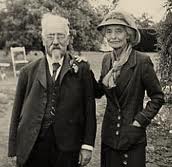

In Oct. 1895 the London School of Economics and Political Science of London U. near the Aldwych in England is founded by Fabians Sidney Webb (1859-1947), Martha Beatrice Webb (1858-1943) (coiner of the term "collective bargaining"), George Bernard Shaw (1856-1950), and Graham Wallas to focus on research into poverty, inequality, and related Socialist issues, becoming a big influence on the British Labour Party; in 1900 it joins London U. as the faculty of economics, becoming associated with Harold Laski and R.H. Tawney. In 1895 Dutch immigrant Daniel De Leon (1852-1914) founds the Socialist Trade and Labor Alliance in New York City.

In 1896 Russian rev. leader Catherine Breshkovsky (1844-1934) returns from exile in Siberia (since 1878), and founds the Socialist Revolutionists, which in 1902 becomes the Socialist Rev. Party after she flees to Switzerland in 1900, becoming known as the Babushka (Grandmother) of the Russian Rev.

In 1899 Herman Heijermans (1864-1924) becomes ed. of the Dutch Socialist journal De Nieuwe Tijd.
In 1900 Lenin emigrates to Switzerland, beginning a 5-year exile from Russia (until 1905), and pub. Iskra (Rus. "The Spark") out of Leipzig, Germany starting on Dec. 1 (11?) for underground distribution in Russia.
In 1902 Vladimir Lenin (1870-1924) pub. What Is to Be Done?: Burning Questions of Our Movement, rejecting the idea that workers will spontaneously become political, calling on Marxists to form a "vanguard" political party to spread Marxist ideas among the workers to bring about a dictatorship of the proletariat based on sheer terror and elimination of individuality in a total submersion to the will of the party, in which only a few people must understand what is going on; "The only choice is: either the bourgeois or the socialist ideology. There is no middle course (for humanity has not created a 'third' ideology, and, moreover, in a society torn by class antagonisms there can never be a non-class or above-class ideology). Hence to belittle the socialist ideology in any way, to turn away from it in the slightest degree, means to strengthen bourgeois ideology" ; "Every solution that offers a middle path is a deception ... or an expression of the dull-wittedness of the petty-bourgeois democrats" - check out Credit Karma, really free credit scores?

In 1903 English brain man Herbert George Wells (1866-1946) joins the Fabian Society (until 1906), remaining a dedicated non-Marxist Socialist reformer until his death in 1946.


On July 28, 1904 hated Jew and Armenian-persecuting Russian interior minister (since 1902) Viacheslav (Vyacheslav) Plehve (b. 1846) is assassinated by the Socialist Rev. Party, and is replaced by Prince Michael Nikolaevich Sviatopolk-Mirsky (1870-1938) (until Jan. 1905), who relaxes repression and lets the opposition hold the Zemstvo Congress in Nov. in St. Petersburg, which demands a rep. assembly and civil liberties; meanwhile Plehve's actions precipitate war with Japan.
In Aug. 1904 Leon Trotsky (1879-1940) pub. Our Political Tasks, a critique of Vladimir Lenin's "What Is to Be Done?" (1902), pointing out that his idea of a Communist Party will inevitably lead to a bloody Reign of Terror like in the French Rev., and rule by a dictator; "Lenin's organizational scheme befits a party that intends to replace the labor classes and work on their behalf by proxy, in a substitutive way. Lenin's way leads to the party organization supplanting the whole party, then the central committee supplanting the party organization, and finally the dictator supplanting the central committee."




The Czarist regime in Russia starts to topple when the Japanese kick their butts and it kicks its own citizens' butts? On Jan. 2, 1905 (9:00 p.m.) a letter from Russian Gen. Baron Anatoly Mikhaylovich Stessel (Stoessel) (1848-1915) formally surrendering Port Arthur (sieged since Aug. 1, 1904) by Japanese Gen. Count Nogi Maresuke (Kiten, Count Nogi) (1849-1912), and on Jan. 22 (Jan. 9 Old Style) (Sun.) a rev. breaks out in Russia for the first time in St. Petersburg, becoming known as Bloody (Red) Sunday after thousands of peaceful demonstrating Russian workers led by Russian Orthodox priest Father Georgi Apollonovich Gapon (1870-1906) are fired on by imperial army troops as they approach the Winter Palace, killing 70 and wounding 240, starting a bloody spiral that can only end with the tsar's head on a platter?; on Mar. 3 the tsar announces a consultative assembly, an edict of religious toleration, permission to use the Polish language in Polish schools, relief for Jews, and part-cancellation of redemption payments; this doesn't stop his pigs from arresting Polish writer Stefan Zeromski (1864-1925), who ends up in exile in France and Austrian Galicia until 1918.

In 1905 Daniel De Leon (1852-1914) et al. found the Internat. Workers of the World (IWW) (AKA the Wobblies) in the U.S.

In 1906 the Guilds Restoration Movement in England is founded by economist George Douglas Howard Cole (1889-1959) et al. to promote guild socialism, ownership of factories by the workers; in 1915 it becomes the Nat. Guilds League, and it goes out of existence in 1930 after the British Labour Party absorbs its members.

In 1906 German sociologist Werner Sombart (1863-1941) pub. Why Is There No Socialism in the United States?, about the classic question asked by Euros; used as the takeoff for the 1981 Princeton U. thesis of Elena Kagan titled To the Final Conflict: Socialism in New York City, 1900-1933.
On Mar. 8, 1908 Internat. Women's Day begins with women needle workers marching through Lower East Side in New York City to protest sweatshop working conditions and child labor, and demand the vote; in 1910 Clara Zetkin proposes at the Internat. Socialist Congress in Copenhagen that the day be observed annually; the U.N. finally recognizes it in 1975.

In Nov. 1911 Hungarian-born Jewish-Am. Victor Louis Berger (1860-1929) becomes the first Socialist elected to the U.S. Congress (House of Reps. from Wisc.) (until 1928); too bad, the wunnerful, wunnerful U.S. govt. trumps up Espionage Act charges and gets him convicted next year, and he is twice denied his seat although elected repeatedly. In 1911 the Confederacion Nacional del Trabajo anarchist-syndicalist labor union is founded in Spain, soon rivaling the Socialist Union Gen. de Trabajadores (founded 1882).

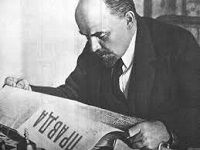
On Jan. 1, 1912 a new Mass. law shortening the work week from 56 to 54 hours for women and children causes employers in Lawrence, Mass. to lower the pay of cotton mill workers to make it come out even, robbing them of three loaves of bread per week; on Jan. 11 the Lawrence Bread and Roses (Strike for Three Loaves) Textile Strike in Mass. by immigrant female workers begins, spreading to 20K workers within a week, backed by the IWW Wobblies, and lasting 2 mo., with a V for the workers after govt. misconduct, incl. the murder of striker Anna LoPizzo, and the clubbing of children, causes Congress to intervene and force them to pay higher wages; the poem Bread and Roses by James Oppenheim (1882-1932) becomes its theme; too bad, next year the union collapses and most of the gains evaporate as the mean cos. chisel them away; Mass. becomes the first U.S. state to enact minimum wage legislation, followed by eight more states next year; the catch is that the laws apply only to women and minors, because male-dominated labor unions fear the lessening of incentives to join. On May 5, 1912 (Apr. 22 Old Style) (anniv. of Karl Marx's 1818 birth) after Vladimir Lenin links up with Joseph Stalin, the Russian broadsheet newspaper Pravda (Russ. "truth") begins pub. in Moscow as the official organ of the Central Committee of the CPSU (until 1991), reaching a circ. of 11M; it really was founded in Moscow in 1903 by wealthy railway engineer V.A. Kozhevnikov and was non-political until the 1905 Russian Rev., becoming a football between the Mensheviks and Bolsheviks until 1908, when Leon Trotsky becomes ed. and moves it to Vienna until the Mensheviks are officially expelled from the CPSU in Jan. 1912 and Lenin decides to make it their official organ; the first issue costs 2 kopeks and has four pages; by 1914 it has 42 different eds., who are really stooges to go to jail as patsies, while sitting members of the Duma are set up as publishers because they enjoy parliamentary immunity; after reaching a circ. of 40K-60K, the govt. shuts it down in July 1914, and it doesn't reopen until the 1917 Feb. Rev., moving to Moscow on Mar. 3, 1918, with Nikolai Bukharin as ed. in 1918-29. On May 27, 1912 the Am. Socialist Party nominates ordinary-looking hair-challenged Eugene V. Debs for pres. for the 4th time.

In 1912 Luis Emilio Recabarren (1876-1924) founds the Partido Obrero Socialista (Socialist Worker Party) in Iquique, Chile. In 1912 the Nat. Federation of Catholic Workers' Syndicates is founded in Spain.
On Aug. 4, 1914 - Nov. 11, 1918 the horrific World War I causes 15M deaths and 39M military casualties, and destroys the Old Order of white formerly Christian Europe.
Halfway to Hazard, or Poison with the Spin Doctors, or, Say yes, come on, say yes, or, I just can't wait to get next to you? The first of two Russian revolutions rustles Russia up? On Mar. 3, 1917 after 2M Russian soldiers are killed in the Great War, allowing Bolshevik propagandists to have a field day, the February Rev. (Old Style Julian Calendar) begins as workers at the Putilov Munition Works in Petrograd go on strike, spawning daily bread riots with wave the red flag; on Mar. 7 60K Bolshevik troops under Mikhail Tukhachevsky attack the island Kronstadt naval base outside Petrograd; on Mar. 8 (Feb. 23 Old Style) (Sun.) (Internat. Women's Day) the Women's March in Petrograd demands "bread and peace", joining with 90K factory workers already on strike; on Mar. 10 a gen. strike by 500K begins, and on Mar. 12 Georgian-born Irakly Tsereteli (1882-1959) announces the new Petrograd Soviet of Workers', Soldiers', and Peasants' Deputies, which challenges both the tsar and the Duma; on Mar. 11 the Duma refuses to yield to the tsar's orders to dissolve, and by night fires break out in Petrograd while soldiers of the elite 17K-man Volinsky Guard Regiment murder some of their officers; on Mar. 12 Tsar Nicholas II leaves his military HQ near the front at Mogilev 450 mi. away to return to Moscow; meanwhile on Mar. 12 (11 a.m.) demonstrators set fire to the law courts on Lityeiny Prospect, and attack and burn police stations, while the remainder of the Volynsky Regiment refuses to fire on them, instead lashing commanding officer Capt. A.F. Lashkevich to death and firing at soldiers loyal to the tsar, becoming the first Russian military unit to mutiny and join the revolutionaries, setting prisoners free.
On Mar. 13, 1917 (Feb. 28 Old Style) the Russian daily broadsheet newspaper Izvestia (Russ. "news") (originally "News of the Petrograd Soviet of Workers Deputies") is founded in St. Petersburg, starting out printing Menshevik and Bolshevik views, becoming the official organ of the Soviet Union in Oct. 1917 and reaching a circ. of 234K until the fall of the Soviet Union in 1991, after which it becomes a private newspaper; "There's no truth in Pravda and no news in Izvestia".

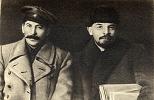



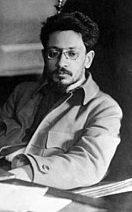




On Apr. 16, 1917 (Apr. 3 Old Style) with German help, Vladimir Ilyich Ulyanov Lenin (1870-1924) returns from exile in Switzerland to Petrograd (St. Petersburg), along with Grigory Evseevich Zinoviev (1883-1936) and 31 other Bolshevik leaders, disembarking at the Finland(sky) Station on the E side of town N of the Neva River, and giving a speech with the soundbyte: "The hour is not far when, at the summons of Karl Liebknecht, the German people will turn their weapons against the capitalist exploiters"; on Apr. 17 he announces the April Theses at a joint meeting of Bolsheviks and Mensheviks at Taurida Palace, trashing the provisional govt. and calling for total Communism, and dissing Russia's first Marxist Georgi Plekhanov (1856-1918), who had sided with the Mensheviks, and later ends up in exile in Finland, even though his 30+ years of writings are required reading for prospective Bolsheviks; "I shall never forget that speech... It seemed as if all the elements had been let loose, and the demon of destruction was rising from the depths" (Sukhanov); he gets 79 of 118 votes; Communist Party membership doubles to 76K by May. In Apr. after returning to Petrograd from exile, Yakov Mikhailovich Sverdlov (1885-1919) (known for his prodigious memory) meets Vladimir Lenin for the first time, who makes him chmn. of the Central Committee of the Secretariat; in Nov. he is elected chmn. of the All-Russian Central Executive Committee, making him de jure head of state of the Russian SFSR, causing some to regard him as the first head of the Soviet Union; he goes on to play key roles in ending the Russian Constituent Assembly next Jan. 18 and negotiating the Mar. 3, 1918 Treaty of Brest-Litovsk, and is suspected of being behind the July 17, 1918 execution of the tsar and his family; in 1924-91 the city of Yekaterinburg is renamed in his honor. On May 16 Alexander Kerensky (Kerenski) (1881-1970) becomes the new minister of war, with the task of renewing the Russian army's fighting ability; on May 19 he prohibits resignations from the senior military staff, and orders deserters who don't return to their units to be punished; on May 22 he replaces Gen. Alexeyev as CIC with Gen. Brusilov, and issues the Declaration of Soldiers' Rights, creating army commissars for soldiers to complain to; too bad, when the commissars try to order the officers around, the fit hits the shan; on May 25 he issues an order for an offensive; on May 26 he receives a report that 30K deserters are reaching Kiev daily from the front on their way back home. On July 26-Aug. 3 under Vladimir Lenin's direction, the Sixth Russian Social-Dem. (Bolshevik) Labor Party Congress decides on "democratic centralism", where the minority must absolutely obey the decision of the majority. On July 27 a meeting of the Bolshevist London Soviet in the East End is raided by 8K angry citizens after the govt. gets the Daily Express to pub. its location and distributes leaflets claiming it's a pro-German meeting. In the fall Vladimir Lenin utters the immortal soundbyte "We shall now proceed to construct the Socialist state" from the Smolny Inst. in Petrograd, which becomes his HQ for the October Rev.; it started out in 1806-8 as the Inst. for Noble Maidens. On Nov. 3 (Oct. 24 Old Style) (Sat.) "Ten Days that Shook the World" (John Reed), the Russian October Rev. (ends Nov. 12) begins, ending the world as we know it as the Bolshevik Communist Party under Vladimir Ilyich Ulyanov Lenin (1870-1924) (Chief Commissar), Leon Trotsky (1879-1940) (Commissar for Foreign Affairs and War) et al. takes power (until 1991), allegedly to bail Russia out of the "capitalist-imperialist war"; on Nov. 3 Russian troops on the Baltic Front throw down their arms and begin fraternizing with the Germans; on Nov. 4 the Russian provisional govt. orders the 155K-man Petrograd garrison to the front, while the Bolshevik Military Rev. Committee incites them to stay; on Nov. 4 the Mensheviks walk out of the Second Congress of Soviets, with Trotsky uttering the soundbyte: "Go out where you belong into the ash heap of history", or "You are pitiful, isolated individuals. You are bankrupts. Your role is played out. Go where you belong from now on into the dustbin of history"; on Nov. 5 Alexander Kerensky orders troops outside Petrograd to enter the city to support the provisional govt.; on Nov. 6 they decline, and a 1K-woman battalion loyal to Kerensky is jeered in the streets; on Nov. 6 (eve.) Bolsheviks occupy key bldgs. in Petrograd incl. the railway stations, telephone exchange, state bank, and bridges over the Neva River; on Nov. 7 18K Bolsheviks incl. 9K sailors from Kronstadt Naval Base surround the provisional govt. in the Winter Palace, which is defended by only 1K soldiers; on Nov. 7 two Russian destroyers arrive from Helsinki and announce support for the Bolsheviks; on Nov. 7 (10 p.m.) the Bolshevik-controlled cruiser Aurora fires blanks at the Winter Palace to signal the attack; on Nov. 8 (1 a.m.) the Bolsheviks capture the Winter Palace; on Nov. 8 Vladimir Lenin is elected chmn. of the Council of Peoples Commissars, with Leon Trotsky becoming commissar for foreign affairs; Kerensky flees to Pskov in a U.S. embassy car, asking the U.S. not to recognize the new govt. for five days to give him time to make a comeback, which never happens; on Nov. 8 (Oct. 26 Old Style) the new Bolshevik govt. issues the Decree of Peace, sending 4M copies to the front on Nov. 9 afte 600 govt. civil servants walk out of the ministry bldg.; on Nov. 9 Lenin announces the Russian Soviet Federative Socialist Republic (RSFSR), with capital at Petrograd; on Nov. 11 (Sun.) a provisional govt. army arrives at Petrograd, causing an attempted coup, which is ruthlessly put down, with many officer cadets brutally murdered; British Labour leader and MP Arthur Henderson (1863-1935) is sent by the British govt. as its rep. to the Bolshevik govt., while Maxim Maximovich Litvinov (1876-1951), a Jew from Bialystok, Poland (real name Meir Wallach Finkelstein), who lived in London from 1906-16 and married Ivy Lowe, daughter of prominent Jewish writer Walter Lowe (friend of H.G. Wells) becomes Bolshevik rep. to London, getting arrested by the Brits next year then exchanged for British diplomat Robert Lockhart; too bad, after securing their power, the Bolsheviks launch the Jacobin-style Red Terror, with Trotsky uttering the soundbytes "Put an end once and for all to the papist-Quaker babble about the sanctity of life", and "Execute mercilessly", and commissar of justice Nikolai Vasilyevich Krylenko (1885-1938) uttering the soundbyte "We must execute not only the guilty - execution of the innocent will impress the masses even more"; in Nov. 8M unemployed Russian soldiers flood the countryside, raping and pillaging, and the first thing the Bolsheviks do is restore order by massive shooting of anybody bearing arms; the Kremlin is guarded by the Latvian Brigade, Lenin's best and most loyal troops, causing British "Ace of Spies" Lt. Sidney George Reilly (Sigmund Georgevich Rosenblum) (1874-1925) to plot to buy them off and install a new govt. with himself as head in order to keep Russia fighting Germany; after English economist John Maynard Keyenes becomes enthused with the Bolsevik Rev., uttering the soundbyte: "The only course open to me is to be buoyantly bolsevik", he founds the 1917 Club in London in Dec. On Dec. 20 the Cheka (Vecheka) (All-Russia Extraordinary Commission to Combat Counter-Revolution and Sabotage) is founded by Vladimir Lenin and his buddy Felix Edmundovich "Iron" Dzerzhinsky (1877-1926) (of aristocratic Polish lineage), which goes on to unleash Hell on enemies of the Russian Communist Party, killing 20M+; too bad, a lot of its operatives are Jewish. On Dec. 22 after a big banquet on Dec. 20, Leon Trotsky begins negotiating a separate peace treaty with the Central Powers in Brest-Litovsk; meanwhile the Kaiser visits his troops on the Western Front while dreaming of being in Paris soon, telling them that events have proved that God is on their side.


On Jan. 18, 1918 the Bolsheviks form the Odessa Soviet Repub. in Ukraine (until Mar. 13), causing the White Russian Revolt (ends 1923), supported by Germany, Austria-Hungary, and Turkey, and a grab-bag of allies incl. the U.S., Britain, Canada, France, Greece, Italy, Serbia, Romania, Estonia, Latvia, Lithuania, and Poland, with Russian Rear Adm. Alexander Vasilievich Kolchak (1874-1920) assuming the title of supreme ruler of White Russia (until 1920), with capital at Omsk; Viktor Pepelyayev becomes PM (until 1920), with his brother Anatoly Nikolayevich Pepelyayev (1892-1938) as CIC of the White Russian army of 500K men based in Tomsk, plus 100K Allies later; too bad, the Bolshevik army reaches 3M men, and Allied help proves too little too late - one of the great what-ifs in history?

On Aug. 30, 1918 an assassination attempt is made on Vladimir Lenin in Moscow by Social Revolutionaries who want to renew the war with Germany, wounding him and killing two close colleagues, causing the Bolsheviks to ramp up the Red Terror, sending butcher Joseph Stalin to Tsaritsyn (Volgograd) on the Volga River, which is later renamed Stalingrad; the attempt foils British "Ace of Spies" Sidney Reilly (Georgi Rosenblum) (1874-1925), who had handed out $100K in bribes to overthrow the Bolsheviks and set up a rightist non-tsarist govt. with him as the head that would return Russia to war with Germany, and after he flees to London he is convicted in absentia of treason and sentenced to death, which he tries in vain to patch up by getting the Bolsheviks a $250M loan. On Feb. 21 the Red Navy and Red Army are established in Russia - (they love the name Red since that's the color of their feces and urine after eating borscht?




America: Love It or Leave It, Push Push Push? The Devil runs America into the red? In 1919 the Red Scare grips the thought-we-were-safe-but-but-but U.S. this year and next; U.S. atty. gen. (Mar. 5-Mar. 5, 1921) Alexander Mitchell Palmer (1872-1936) is assisted by young able Commie-hunter (and closet gay?) John Edgar Hoover (1895-1972), who is later named dir.-gen. of the Internat. Org. for European Relief; on Nov. 7 10K suspected Communists and anarchists are rounded up by the U.S. govt. in the Palmer Raids (end 1921); 248 are eventually deported without trial to Russia, incl. perfect patsy (female Jewish atheist anarchist feminist agitating against forced conscription?) Emma Goldman (1869-1940) on Dec. 21 for conspiracy to violate conscription laws, with two years in priz and a $10K fine followed by deportation shortly after her release in 1920; Mollie Steimer (1897-1980) gets a 15-year prison term in 1920 for violent protests, er, distributing leaflets opposing U.S. intervention in the Russian Rev., and is deported from God Bless America in 1922 with a huge criminal record as a leaflet distributor; too bad, both Goldman and Steimer don't find the Soviet Paradise any fun and flee to Germany, with Goldman ending up in Canada, and Steimer in Mexico.

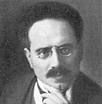
Don't rock the boat baby? On Jan. 4/5, 1919 the Marxist Sparticist (Spartakist) (Jan.) Revolt (Uprising) begins in Berlin, but is crushed by Jan. 13 after Friedrich Ebert orders Freicorps troops into action on Jan. 9; on Jan. 5 the Nat. Socialist (Nazi) German Workers' Party (Nationalsozialistiche Deutsche Arbeiterpartei) in Germany is founded (until 1945); on Jan. 6 after addressing a rally of 10K in Berlin and telling them not to seize power prematurely, only to see them go for it anyway, Spartacist leaders Karl Liebknecht (b. 1871) and Rosa Luxemburg (b. 1871) are arrested by German soldiers, taken to Hotel Eden in Berlin, and tortured, then brutally executed without trial by German Freikorps officers on Jan. 15 (night) in the Tiergarten; Rosa's body is thrown into a canal near the Spree River and not found for 5 mo., while Karl's body is deposited as a John Doe in a mortuary, making them into Commie martyrs; a street is named after her in Lvov (until Oct. 1991); "In her assassination Hohenzollern Germany celebrated its last triumph, and Nazi Germany its first" (Isaac Deutscher).
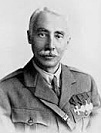
In Jan. 1919 London Times Russian correspondent Robert Archibald Wilton (1868-1925) pub. Russia's Agony; London Times correspondent in St. Petersburg claims that "Bolshevism is not Russian - it is essentially non-national, its leaders being almost entirely in the race [Jews] that lost its country and its nationhood long ago. In April, 1918, the Bolshevist 'Government', including 384 'Peoples Commissaries', was represented by 2 negroes, 13 Russians, 15 Chinamen, 22 Armenians and Georgians, and more than 300 Jews. Of the last 264 had come to Russia from the United States during the 'Revolution'", causing conspiracy theorists to call the Commie takeover of Russia an Ashkenazi Jewish invasion, which is moose hockey, because Vladimir Lenin, Felix Dzherzinsky and other leaders aren't Jewish (Lenin has some Jewish ancestry, which is suppressed until modern times), and after Lenin dies the "Old Bolsheviks" are purged, after which no Jews are in positions of power?; not only that, but the statistics are moose hockey, because there are only 17 commissars, only one of which is Jewish?


Hitler almost becomes a Soviet POW? On Feb. 21, 1919 after losing the election, Jewish Bavarian PM (since 1918) Kurt Eisner (b. 1867) is shot dead in the back by right-wing student Count Anton Graf von Arco auf Valley (Arco-Valley) (1897-1945) (rejected from the Thule Society because of Jewish ancestry on his mother's side) on his way to the Munich Parliament to announce his resignation, causing anarchy followed by a Communist seizure of power; on Apr. 6 the Bavarian Soviet Repub. is proclaimed; meanwhile in Mar. the Communists organize strikes and riots in Berlin, and on Apr. 13 a right-wing uprising in Munich is crushed by the Communists, beginning the Bavarian Red Terror, led by Jewish Russian Communist Eugene Levine (b. 1883), "the German Stalin", which executes eight counterrevolutionaries on Apr. 29-30, incl. Prince Gustav Franz Maria of Thurn and Taxis (1888-1919) after Thule Society founder Rudolf von Sebottendorf leaks the membership list, causing him to quit and flee, ending up in Turkey; on May 1-3 a 39K-man combined German and Dem. Socialist Freikorps ("White Guards of Capitalism") army invades and stages a coup in Munich, killing 1K Communists and executing 700, ending the short-lived Bavarian Soviet Repub., and beginning the Bavarian (Munich) White Terror, executing Eugene Levine on July 5. On Mar. 2-9 the First Congress of the Communist Internat. is held, with Vladimir Lenin uttering the soundbyte: "The most democratic bourgeois republic is no more than a machine for the suppression of the working class." On Mar. 3 the Communist Party in Germany announces a gen. strike; it is crushed by Mar. 11. On Mar. 4 the Comintern (Communist Internat.) (Third Internat.) is founded in Moscow (ends 1943), with Grigori Zinoviev as pres. #1 (until ?).

On Mar. 20, 1919 the Allies send the new Hungarian People's Repub. (founded 1919) the Vyx Note, ordering Hungarian troops further back into Hungary, pissing the Hungarians off and causing PM Count Mihaly Karolyi to be ousted on Mar. 21 by an alliance of Social Dems. and Communists (led by Bela Kun), and he goes into exile in France and later Britain through WWII; on Mar. 21 Bela (Béla) Kun (1886-1938) sets up the Hungarian Soviet Repub., the world's 2nd Communist govt. in Budapest, Hungary; French-backed Miklos Horthy leads a successful uprising and enters Budapest on Aug. 6, causing Kun to flee to the Soviet Union, where he ends up getting caught up in the Stalinist purges and executed in a gulag.
On May 4, 1919 the May Fourth (4th) Movement sees 3K young Westernized left-wing scholars from 13 colleges and univs. rally in Tiananmen Square in Beijing to protest the loss of Shandong Province to the Japanese under the Versailles Treaty at the Paris Peace Conference; it goes on to dump Confucianism and traditional ways for Western ideas under the rallying cry of science and democracy, and proclaim modern Chinese nationalism; too bad, to them Marxism is Western, leading to the July 1921 founding of the Chinese Communist Party (Kungchangtang), which puts nationalism first.

On Aug. 31, 1919 the Communist Party of America (Communist Labor Party) is founded in Chicago, Ill. by journalist John "Jack" Reed (1887-1920), with the motto "Workers of the World Unite!" - let me stand next to your fire?

On Sept. 22, 1919 after organizing efforts by Mary Harris "Mother" Jones (1830-1930) et al. bring 100K+ steel workers into the union by summer, steelworkers in Gary, Ind. go on strike to force U.S. Steel Corp. to recognize their union, being joined on Sept. 23 by 350K workers in nine states, demanding the 8-hour workday, better wages and working conditions, etc., causing the cos. to accuse them of Communist influence and respond with dirty tactics, incl. the use of army troops, ending the strike next Jan. with nothing gained except a moral victory?
On Jan. 28, 1919 grand princes (nephews of the tsar) Pavel (Paul) Alexandrovich Romanov (b. 1860) (youngest son of Tsar Alexander II), Nikolai Mikhailovich Romanov (b. 1859), Georgy Mikhailovitch Romanov (b. 1863), and Dmitry Konstantinovich Romanov (b. 1860) are executed by a Bolshevik firing squad at the Peter and Paul Fortress in St. Petersburg, Russia.
In 1919 the Hoover Inst. on War, Revolution and Peace is founded at Stanford U. to track the growth of Soviet-style Communism.
In Feb. 1920 the French Socialist Party votes to leave the Second Internat., and in Dec. holds a convention in Tours, where one-fourth of the members led by Leon Blum refuse to joing the Third Internat., secede, and rename themselves the French Communist Party.

In June 1920 the U.S. Red Scare peaks, with 10K imprisoned solely for their political beliefs after U.S. atty. gen. Alexander Mitchell Palmer (1872-1936) announces that a Communist Rev. is planned for the U.S. on May 1; when it fails to materialize, and all those people are seen to be locked up for nothing, his political career stinks as it sinks? On Oct. 19 membership in the Communist Party is ruled grounds for deportation by a New York judge - you've heard the phrase comfort food? The First Internat. Conference of Communist Women is held in St. Petersburg, chaired by Lenin's French-born comrade Inessa Armand (b. 1874), a firm believer in sexual liberation; too bad, she dies of cholera on Sept. 24.

In 1920 Ethel Snowden (nee Annakin) (1881-1951) pub. Through Bolshevik Russia, which coins the term "iron curtain" (used as a safety curtain in theaters) for the border of Communist Russia.
In Sept. 1920 the Communist Internat. holds the Congress of the Peoples of the East in Baku, Ajerbaijan, attended by 1.8K delegates, calling for Muslims to join the struggle against the West and pledging support of rev. anti-colonial movements in the East, with Karl Radek uttering the soundbyte: "We appeal, comrades, to the warlike feelings which once inspired the peoples of the East when these peoples, led by their great conquerors, advanced upon Europe. We know, comrades, that our enemies will say that we are appealing to the memory of Genghis Khan and to the memory of the great conquering Caliphs of Islam... when the capitalists of Europe say that a new wave of barbarism threatens... we answer them: Long live the Red East, which together with the workers of Europe will create a new civilization under the banner of Communism!"


In 1920 Calcutta, India-born English economic historian (Christian socialist) Richard Henry "R.H." Tawney (1880-1962) pub. The Acquisitive Society, blasting capitalism for its amoral selfish individualism, promoting Christian socialism to combat greed and imperialism, becoming hugely influential in Britain and helping lead it to a welfare state; "a socialist bible" (Richard Crossman). In 1926 he pub. Religion and the Rise of Capitalism, accepting Max Weber's Protestant ethic thesis then blaming Protestantism for subordinating Christian morality to materialism, making his rep as a historian as well as economist, becoming the most influential historian in Britain. On July 14, 1926 he and Bermondsey, London-born economic historian Sir William James Ashley (1860-1927) found the Economic History Society at the London School of Economics, which pub. the Economic History Review, going on to pressure the British govt. to enact a Christian socialist welfare state.

On Jan. 13, 1921 the French Gen. Confederation of Labor is dissolved by court order over its failed May 1920 gen. strike, causing a schism between the Roman Catholic and Communist members; only 15% of French workers are unionized. On Jan. 13-22 the Congress of the Socialist Party in Livorno, Italy ends in a split into moderate and radical Communist wings, the latter led by Antonio Gramsci (1891-1937), pub. of Ordine Nuovo in Turin (Torino); the Italian Communist Party is born.


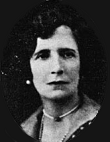
On Mar. 3, 1921 the 1921 British Emergency Unemployment Act increases unemployment payments for the 1M unemployed, but funds them out of future unemployment insurance contributions; it works, since on Mar. 28 the Labour Party refuses to affiliate with the Communists. On May 15 the first elections in Italy under universal suffrage result in the Liberals and Democrats winning 275 seats, the Socialists 122, Catholics 107, Fascists 22, and Communists 16. On Mar. 16 the 10th Russian Communist Party Congress passes Resolution 12, banning factions within the party - you never know what might happen? On June 22 civil war breaks out in China; on June 30-July 1 the Chinese Communist Party is founded by young deer-in-the-headlights librarian Mao Tse-tung (Zedong) (1893-1976) under the leadership of Chen Duxiu and Li Dazhao. In 1921 the German Communist Party is founded, with Ernst Reuter (1889-1953) as gen. secy., but after it votes to affiliate with the Communist Internat. he quits and joins the Social Dem. Party, editing the Social Dem. newspaper Vorwarts (Vorwärts), until it is shut down by the Nazis in 1933. In 1921 the first Communist Party Purge is performed by the Bolsheviks, kicking out 220K members; by 1933 800K are purged; not until 1936 does expulsion from the Party mean arrest, imprisonment, or execution. In 1921 Nesta Helen Webster (1876-1960) pub. World Revolution: The Plot Against Civilisation, which links Communism with Jews, Freemasonry, the Illuminati et al., causing a sensation.
On July 7, 1921 moderate Filipp Makharadze (1868-1941) is removed as chmn. of the Georgian Rev. Committee and replaced by Polikarp "Budu" Mdivani (1877-1937), who next year begins the Georgian Affair of 1922 (ends Jan. 1923), a bitter conflict with Stalin contesting his centralizing policy, accusing him of "Great Russian chauvinism", which Stalin counters by calling his party "national deviationists", both sides trying to win Lenin over; too bad, Mdivani fails to stop the amalgamation of Georgia with Armenia and Azerbaijan into the Transcaucasian Repub., and is removed next Jan.
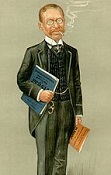
In 1921 English Jewish journalist-historian (anti-Zionist) Lucien Wolf (1857-1930) pub. The Myth of the Jewish Menace in World Affaird: The Truth About the Forged Protocols of the Elders of Zion, which disses the theory that Communism is Jewish, Ashkenazi Jewish, etc.

On Jan. 22, 1922 Pope (since 1914) Benedict XV (b. 1854) dies, and after a 5-day conclave (longest of the 20th cent.) on Feb. 6 Cardinal (since 1921, a total of only 8 mo.) Ambrogio Damiano Archille Ratti is elected Pope (#259) Pius XI (1857-1939), going on to strongly condemn Communism, and forbid the growing movement of devotion to Mary as a priest(ess) - too pagan even for them?


On Jan. 23, 1922 after two years of talks with Britain, the Egyptian Wafdist (nationalist) leaders proclaim a policy of passive resistance to British rule; on Feb. 28 Britain relents and grants Egypt its independence, but retains authority over its foreign policy and defense, the Suez Canal and the Sudan, along with the Capitulations (special courts for foreigners), ending the 1919 Egyptian Rev.; since it is a unilateral declaration with four hated reservations, the Egyptians accept it grumblingly while waiting for their chance, the pot bubbling ever harder until the 1952 rev., while 32 different govts. are formed, with a stable pool of cabinet members dominated by the landholding class and the Wafdist Party; the only opposition party at first is the Liberal Constitutional Party, led by Adli Yakan (Yegen) Pasha (1864-1933), based on the writings of Ahmad Lutfi al-Sayyid (1872-1963) and Muhammad Husayn Haykal (1888-1956); an Egyptian Communist Party is formed, but it never attracts much support; the success of the nonviolent Egyptian rev. inspires Gandhi - where did all the good times go?


On Feb. 1, 1922 Jewish industrialist Walther Rathenau (b. 1867), known for opposing Zionism and Socialism in favor of assimilation of Jews into German society is named German foreign minister, then on June 24 is assassinated by German ultra-nationalists after insisting on honoring the Treaty of Versailles, causing the fledgling Nazi Party to point to him as proof of the Jewish Communist conspiracy and declare his assassins nat. heroes on June 24, 1933; Albert Einstein comments that the assassination caused him to be "greatly disturbed"; on Nov. 22 after Joseph Wirth resigns, Wilhelm Cuno (1876-1933) becomes German chancellor (until Aug. 12, 1923), going on to run the printing presses to pay German debts, leading to hyperinflation, which peaks next summer; Friedrich Ebert Sr. is reelected pres. of Germany.
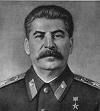

In Apr. 1922 the Union Treaty formally joins Russia, Ukraine, and Belarus into the Union of Soviet Socialist Repubs. (Soviet Union) (ends Dec. 8, 1991); on Dec. 20 the Transcaucasian Soviet Federated Socialist Repub. (Georgia, Armenia, Azerbaijan) is accepted into the Soviet Union; Germany formally recognizes the Soviet Union; Armenia becomes a Soviet success story as its pop. increases by 50% by 1939 and its industrial production goes from 20% to 75% of the country's total in 50 years; Soviet means "a transmission belt from the party to the masses" (Joseph Stalin). In May Joseph Stalin (1879-1953) becomes gen. secy. of the CPSU (Soviet Communist Party), promoting his buddy Lazar Kaganovich (1893-1991) to head the Orgburo (org. dept.) of the secretariat so that he can promote his supporters to key positions in the bureaucracy; in 1925-8 Kaganovich becomes first secy. of the Ukrainian Communist Party, working to bloodily suppress kulaks (rich peasants), after which he is transferred back to Moscow to become secy. of the central committee until 1939, overseeing the development of the underground Moscow Metro while mentoring young Nikita Khrushchev.

In July 1922 the Tenente Rebellion in Brazil by middle class officers and poor enlisted men against the Brazilian agarian oligarchies, led by Communist revolutionary Luis Carlos Prestes (1898-1990) is crushed after the 25K km "Long March" through the Brazilian interior shows they have the numbers.
In 1922 The Trust is created by Cheka head Felix Dzerzhinsky et al. as a fake anti-Bolshevik govt. in order to lure real anti-Bolsheviks into supporting it so they can neutralize them; it proves extremely successful.
On Mar. 9, 1923 after a massive stroke, Vladimir Lenin resigns as leader of the Communist Party - hard to give speeches now? On June 17 after being defeated near Okhotsk on June 6 and near Ayan on June 16, Gen. Anatoly Pepelyayev surrenders the last 230 White Russian soldiers and 103 officers in Ayano-Maysky District on the Pacific Coast, ending the Russian Civil War (begun 1918), securing the vast Soviet territory for Communism with a total of 13M civilian casualties (incl. 1M refugees leaving Russian permanently), 1.2M Bolshevik, and 300K White Russian casualties - Dirty Linen's gang are now free to create the myth of the Soviet Paradise?
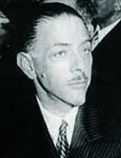
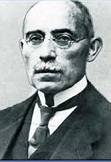
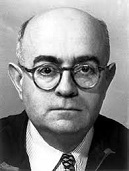
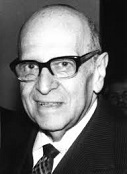
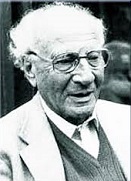

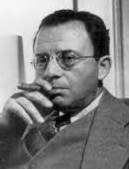
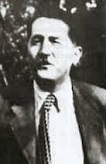
In 1923 after financing the Erste Marxistiche Arbeitswoche (First Marxist Work Week) in Ilmenau, Germany, wealthy Marxist Felix Jose Weil (1898-1975) et al. found the Inst. for Social Research in Frankfurt am Main, Germany as an adjunct of the the U. of Frankfurt, becoming the first Marxist-oriented research center affiliated with a major German U., later becoming known as the Frankfurt School; it was inspired by German philosopher Carl Gruenberg (Grünberg) (1861-1940); members (mostly Jews) incl. Theodor W. Adorno (Theodor Ludwig Wiesengrund) (1903-69), Max Horkheimer (1895-1973), Leo Loewenthal (Leo Löwenthal) (1900-93), Herbert Marcuse (1898-1979), and Friedrich Pollock (1894-1970); meanwhile in 1923 after pub. Who Will Save Us from Western Civilization in 1919, Hungarian Marxist philosopher Gyorgy Lukacs (1885-1971) pub. History and Class Consciousness, and German Marxist philosopher Karl Korsch (1886-1961) pub. Marxism and Philosophy, launching Western Marxism, which downgrades economic analysis in favor of the abstract and philosophical areas of Marxism, emphasizing the study of culture, concentrating on building a superstructure, launching the concept of political correctness (PC), which becomes enormously successful; Adorno later engages in a series of debates with Karl Popper.



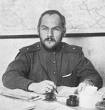

Communism teaches the Rabbit Lesson? On Jan. 21, 1924 (6:50 p.m.) Vladimir Ilyich Ulyanov Lenin (b. 1870) dies at age 54 from a 4th stroke (brought on by syphilis?) (his brain had shrunk to 35% normal size?); a triumvirate (troika) of Caligula-reincarnation (gen.-secy. of the CPSU since 1922) Joseph Vissarionovich Stalin (Russ. "iron") (Djugashvili) (1879-1953) Grigori Zinoviev (Hirsch Apfelbaum) (1883-1936) of Ukraine, and Lev Borisovich Kamenev (1883-1936) of Moscow is formed to govern the wild wild Soviet Union, and begins army purges; on Jan. 24 Petrograd (St. Petersburg until 1914) is renamed Leningrad (until 1991); Lenin's birthplace of Simbirsk in SW Russia on the Volga River is renamed Ulyanovsk; on Jan. 27 atheist pharaoh Lenin's well-preserved body is laid in the Lenin Mausoleum in Red Square (the roof makes a great place for an official reviewing stand?); the clock is stopped at guess what, and visitors are not allowed to insult him by putting their hands in their pockets; a statue of him is erected in a park opposite Finland Station in Leningrad, where he first arrived from exile, followed by zillions of others all over the country; his widow Nadezhda Krupskaya is immediately rendered powerless, Stalin calling her a "syphilitic whore", and after she doesn't like the way his body is displayed, she utters the soundbyte "Comrade Lenin may be in need of a new widow", but she is never arrested since she's a sacred red herring; Bolshoi Dom (Big House) in Leningrad near the E end of the Neva River Embankment, where Lenin's brother was once tried for attempting to assassinate Alexander III becomes HQ of the Soviet secret police, and later the HQ for the Red Terror; Stalin's war commissioner Nikolai Vasilyevich Krylenko (1885-1938) sets up the All-Union Chess Section to train Communist youth in chess; meanwhile Zinoviev, Kamenev, and Leon Trotsky (Lev Davidovich Bronstein) (1879-1940) form a conspiracy against Stalin in the neverending reality check story Red Workers' Paradise.

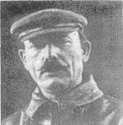
On Nov. 24, 1924 Chinese gens. Feng Yu-Hsiang and Chang Tso-lin stage another coup, making Gen. Tuan Ch'i-jui (1864-1936) pres. of China (until ?); meanwhile China having degenerated into the control of warlords Chang (Manchuria), Feng (the "Christian general", N of Peking), Lu, Wu, Yen, et al., Russian Communist Mikhail Borodin (1884-1951) assists Dr. Sun Yat-sen (who utters the soundbyte that the Chinese people don't have a nat. spirit but are "just a heap of loose sand") in organizing the Chinese Kuomintang Party in Canton based on his Three Principles: Nationalism, Democracy, Social Justice (Popular Livelihood) (take from the rich and give to the poor?); the military section is led by young Chinese officer Chiang Kai-shek (1887-1975), husband of Sun's sister-in-law; Russian Gen. Vasili Blucher becomes their military advisor (under the name Ga Lin) until 1928, then becomes cmdr. of Soviet military forces in E Siberia until 1938, when he is mysteriously dismissed and vanishes? On Nov. 26 the Mongolian People's Repub. is proclaimed, becoming the 2nd Communist country on Earth after the Soviet Union; the name of the capital city Urga is changed to Ulan Bator (Ulaan Baatar) ("red hero"). On Nov. 27 150 Communists are tried, convicted and imprisoned in Estonia, causing an Estonian Communist Uprising on Dec. 1, which is suppressed.
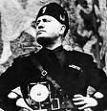
On Jan. 3, 1925 in the face of Communist and Liberal demonstrations, Fascist leader Benito Mussolini (1883-1945) dismisses the Italian parliament and assumes dictatorial powers again, reorganizing the cabinet on Jan. 5 (and again on Aug. 30); on May 19 Freemasonry is outlawed; the Legge Fascistissime represses opponents and exiles many to the Lipari Islands.
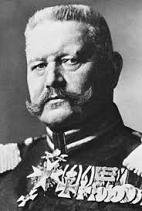


On Apr. 26, 1925 the German gen. elections see the Communists decisively repudiated; 77-y.-o. Field Marshal Paul von Hindenburg (1847-1934) receives 14,655,766 votes, becoming pres. of the Weimar Repub. (until 1934); Central Party leader Wilhelm Marx (1863-1946) receives 13,751,615 votes; Communist Party leader Ernst Thalmann (Thälmann) (1886-1944) receives 1,931,151; sounds-like-cough-drops Gen. Ludendorff receives only 1% of the vote.
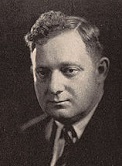
On June 8, 1925 the U.S. Supreme Court rules 7-2 in Gitlow v. New York to uphold the criminal conviction of N.Y. Communist Benjamin "Ben" Gitlow (1891-1965) just for pub. a pamphlet calling for the establishment of Socialism by strikes and class action; Justice Edward Terry Sanford writes the majority opinion; Oliver Wendell Holmes objects that his poopy little pamphlet "had no chance of starting a present conflagration", hence was not a "clear and present danger"; the Court also holds that the 14th Amendment applies to the states, reversing Barron v. Baltimore (1833) and opening the barn door to the entire Bill of Rights; the first major First Amendment case argued before the U.S. Supreme Court by the Am. Civil Liberties Union (ACLU); the police now get busy sweeping the streets of pamphlet publishers; Gitlow later becomes a prominent

In 1925 Whittaker Chambers (1906-61) joins the U.S. Communist Party; meanwhile the

In 1925 Russian (Soviet) economist Nikolai Dimitriyevich Kondratiev (1892-1938) pub. The Major Economic Cycles, proposing Kondratiev Waves, 50-60-year Western capitalist boom-bust supercycles, meaning that capitalism isn't historically kaput because is due for a comeback, pissing-off Stalin, who gets him arrested in July 1930 and shot on Sept. 17, 1938, not living as long as his waves; in the 1970s he is rediscovered.

In 1926 Leon Trotsky and Grigori Zinoviev lose a power struggle with Stalin, and are expelled from Moscow; next year Zinoviev is kicked out of the party, but he comes crawling back and is readmitted in 1932, and ends up in priz in 1935 and executed with 14 other Communist leaders in 1936; Pravda ed. Nikolai Ivanovich Bukharin (1888-1938) becomes pres. of the Communist Internat. (Cominterm).

In 1926 Italian Communist Party founder Antonio Francesco Gramsci (1891-1937) was imprisoned (until 1935) for criticizing the Fascist regime of Benito Mussolini, going on to write the 30-vol. Prison Notebooks, proposing the idea of a long march through bourgeois institutions to infiltrate and transform them from within, which is later adopted by the leftist environmentalist movement to coopt virtually every academic, scientific, and govt. org. in the Europe and U.S. to foist global Marxism, who are in the final stages today.

Let's get started now? On Apr. 12, 1927 after the dirs. of the Chinese Communist Internat. (based in Hangkow) decide (over the objections of the Kuomingtang, Mikhail Borodin, and Dr. Sun's widow) to take the logically necessary Communist step of moving from a petty burgeoise and peasant-controlled country to a dictatorship of the proletariat (them), the Kuomintang under Generalissimo Chiang Kai-shek (1887-1975) based in Nanking stage the Shanghai Massacre (April 12 Incident), capturing Shanghai and carrying out a purge of Communists in a few weeks; Mikhail Borodin is allowed to escape by car to the Soviet Union along with Sun Yat-sen's wife and Eugene Chen's sons, with Borodin uttering the soundbyte: "The revolution extends to the Yangzi River," Borodin told a reporter as they began their journey, and "if a diver were sent down to the bottom of this yellow stream he would rise again with an armful of shattered hopes"; the survivors retreat to the two central provinces of Kiangsi and Hunan, finding supporters in the villages, and warlords Chang and Feng remain in power in Manchuria and the province to the S. On May 26, 1927 diplomatic relations between Britain and Russia are temporarily disrupted because of friction caused by Communist agitation. On Nov. 12, 1927 Josef Stalin's rival Leon Trotsky is stripped of all power and trotted out from the Soviet Communist Party, leaving Stalin the undisputed ruler of the Soviet Union; Lev Kamenev ditto.
In May 1928 the gen. elections in Germany give the National Socialists 810K votes (2.6%), down from 1,918,300 in 1924 in the spring of 1924, and 907,300 in the winter; Hitler's party gets 12 seats in the Reichstag out of 491, compared to 54 for the Communists; Hitler's Stormabteilungen (SA) stormtroopers adopt Brown Shirts in imitation of Mussolini's black shirts - just closer to true shit? On Nov. 25 Communist demonstrations break out in Romania. The Chinese capital is moved from Peking to Nanking and renamed Peiping, its name under the first three Ming emperors (until 1937); Chinese gen. Feng Yu-Hsiang becomes an official in Chiang Kai-shek's Communist govt., getting expelled and readmitted several times until 1933 for his views.



In spring 1929 German Communist Party leader Ernst Thalmann (Thälmann) (1886-1944) instigates a series of riots in Berlin. The atheist Soviet govt. begins a bloody crackdown on religion. The anti-Communist Lapua org. in Finland is founded by former White army members Kurt Martti Wallenius (1893-1984) and Iisakki Vihtori Kosola (1884-1936), going on to become radically fascist until it is banned in 1932. After receiving a report that U.S. workers are not ready for revolution, Joseph Stalin denounces the "heresy of American exceptionalism".

On Feb. 8, 1930 Ho Chi Minh (1890-1969) founds the Indochina Communist Party, and drafts a Program for Vietnamese Communists; on Feb. 9 the Yen Bai Insurrection is quickly quashed, and some of its its leaders executed; in 1930 the Nghe Tinh Soviet Uprising begins in Nghe An and Ha Tinh Province in C Vietnam, overthrowing the colonial admin. incl. Vietnamese landlords and the mandarinate and setting up a people's repub.; it is quashed by 1931.
On Sept. 14, 1930 the world economic crisis helps the Nazi Party do well in the 1930 German elections, taking votes from the center parties and placing #2 with 18.3% of the vote (6,409,600 votes), up 8x from 1929; the Nazis now hold 107 seats in the Reichstag, up from 12 in 1929; the Socialists retain 143 seats, and the Communists get 4.5M votes and 77 seats; Adolf Hitler is kept from his seat in the Reichstag because of his Austrian nationality.
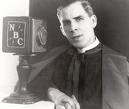
In 1930 Am. Roman Catholic priest Fulton John Sheen (1895-1979) launches his nat. radio show "The Catholic Hour", becoming known for his anti-Communist stance.
In the 1930s the Chinese Communist Party establishes the United Front Work Dept. (UFWQD) (AKA United Front) to recruit famous intelligentsia even though they're not necessarily Communists, helping them defeat the Nationalist Party, with Mao calling them a "magic weapon"; in 2012 new Chinese leader Xi Jinping greatly expands them and puts politburo member Ms. Sun Chunlan in charge in their HQ in Beijing; they go on to establish Confucius Institutes and Chinese Students and Scholars Assocs. on Western campuses while cultivating "friends of China" among prominent politicians, business people, and intellectuals incl. Henry Kissinger, John Kerry, and Hunter Biden.

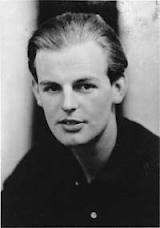
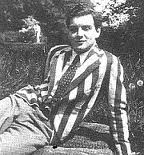
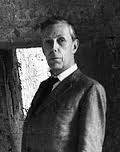
In the 1930s the Cambridge Five (Four), a ring of English spies who all graduated from Cambridge U. is recruited by the Soviets, incl. "Spy of the Cent." Harold Adrian Russell "Kim" Philby (1912-88) (code name Stanley) (recuited by Arnold Deutsch), Donald Duart Maclean (1913-83) (code name Homer), Guy Francis De Moncy Burgess (1911-63) (code name Hicks, Little Girl) (alcoholic open gay), Anthony Frederick Blunt (1907-83) (code name Johnson) (closet gay), and possibly John Cairncross (1913-95) and/or Michael Whitney Straight (1916-2004).

On Feb. 16, 1931 anti-Communist Pehr "Old Man Pete" Evind Svinhufvud ("swine-head") (1869-1944) (of Swedish ancestry) is elected pres. of Finland (until 1937), taking office on Mar. 1 and going on to squelch the fascist Lapua movement.



On Mar. 1, 1931 popular engineer Arturo Araujo (Araújo) (1878-1967), backed by Augustin Farabundo Marti (1893-1932), founder of El Salvador's Communist Party is elected pres. of El Salvador, bucking the 30-40 wealthy families who control the country, but on Dec. 2 a military coup led by kooky vice-pres. Gen. Maximiliano Hernandez Martinez (1882-1966) ousts him, and Martinez becomes pres. (until 1944), going on to get laws passed keeping Africans out of the country, and demonstrating his belief in occultism by having colored lights hung around San Salvador to cure smallpox, and his belief in reincarnation with the soundbyte "It is a greater crime to kill an ant than a man, because the man is reincarnated, while an ant dies forever" - let me shake your hand?
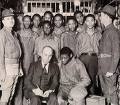
Oh What Fun It is To Ride in a One-Horse Open Sleigh? White American poontang is protected by the White Racial Honor Police, who are taken on by the real Atticus Finch? In Mar. 1931 the Scottsboro Boys, nine black youths ages 13-20 are arrested in a freight train in Scottsboro, Ala., and charged with raping two young white women who had shared the same boxcar, after which the white supremacist system railroads the banana-seating ape nigger bucks to death sentences even though the sacred cow white women are found to be hos, doctors testify that no rape occurred, and one of them later recants; after the Communist Party's Internat. Labor Defense takes charge defending them and brings in non-Communist Romanian-born Jewish-Am. atty. Samuel Simon Leibowitz (1893-1978), he faces death threats and has to be guarded by the Nat. Guard at the trial, and is stunned by a guilty verdict in 1933, calling it "the act of spitting on the tomb of Abraham Lincoln", vowing to defend them "until Hell freezes over", getting the U.S. Supreme Court to overturn their convictions twice, which dooms them more back in racist Ala., and all they get is new trials, at which they are reconvicted, one of them three more times in a row; in 1948 Haywood Patterson escapes, three more are paroled in 1943, 1946 and 1950, and the rest get reduced but long sentences; on Oct. 25, 1976, last known survivor Clarence Norris is pardoned - lock up them white women lovers until their juices dry up?
On May 15, 1931 Pope Pius XI issues the encyclical Quadragesimo Anno, a 40-year update (supplement) to the 1891 encyclical "Rerum Novarum", calling for fairer distribution of wealth while condemning godless Communism and Socialism. In June 1931 Joseph Stalin announces that he's doing away with equal wages to stop heavy labor turnover, with the soundbyte: "The difference between skilled and unskilled labor would exist even under socialism, even after classes had been abolished, and that only under Communism would this difference disappear... Under socialism wages must be paid according to work performance and not according to needs."
On May 18, 1931 after Yetta Stromberg (b. 1910), a teacher at the Communist Pioneer Summer Camp is arrested for engaging in a daily ceremony pledging allegiance to "the workers' red flag, and the cause for which it stands, one aim throughout our lives, freedom for the working class", the U.S. Supreme (Hughes) Court rules 7-2 in Stromberg v. Calif. to declare a 1919 Calif. statute banning red flags unconstitutional as symbolic speech or "expresive conduct", becoming one of the first cases extending the 14th Amendment to force the First Amendment on the states.



In 1931 Italian #1 writer Ignazio Silone (1900-78), who left the Italian Communist Party in 1930 to join the Socialist Party is forced into exile, living in Germany, Switzerland, and elsewhere in Europe until 1944. In 1931 the Soviets hold the 2nd Internat. Congress for the History of Science, led by Nikolai Bukharin and Boris Hessen, which gives a Marxist twist to the work of Isaac Newton et al., wowing British crystallographer John Desmond Bernal (1901-71) et al., who become enthuastic Soviet Union backers and bring it back home to the West. Meanwhile Am. writer Lincoln Steffens (1866-1936) pub. The Autobiography of Lincoln Steffens; after making the 1921 comment "I have seen the future and it works" in regard to the Soviet Union, he becomes disillusioned with Communism - and hopes his book knocks the steffens out of Stalinism?


Early in 1932 the Ukraine Famine in Ukraine, breadbasket of the Soviet Union begins (until 1933), caused by the deliberate policies of hard-as-steel Stalin known as the Second Five-Year Plan, really a plan to exterminate the pesky independent kulak class of independent farmers by stealing their food and having them eat the seed and breeding stock before starving to death; on Mar. 29, 1933 Welsh journalist Gareth Jones (1905-35) becomes the first to break the story to the West, causing longtime English Moscow correspondent Walter Duranty (1884-1957) to pub. an article two days later in the New York Times titled "Russians hungry but not starving", after which Jones pub. a rebuttal, causing the Soviet Union to ban him and later get him killed in Mongolia; meanwhile Stalin ass-kisser Duranty is awarded a Pulitzer Prize in 1932 for his New York Times reports denying the famine, causing many to later call to have it revoked.
On Jan. 22, 1932 Communist uprisings among the aboriginal Pilpil Indians set to begin in W El Salvador are found out and suppressed by Gen. Maximiliano Hernandez Martinez, killing 4K, followed by La Matanza (The Massacre), in which 30K are killed by the govt. for suspected Communist leanings, incl. their leader Augustin Farabundo Marti (b. 1893); to avoid total extermination, the Pilpil Indians, who were there before the Spanish arrived in 1524 suddenly go Hispanic, adopting the Spanish language and Western dress, and intermarrying with other groups, until by the end of the cent. pure Indians comprise less than 1% of the pop. - how do you like your coffee with your bitter bitter pilpil?
On Feb. 27-Mar. 7, 1932 the fascist Lapua org. in Finland stages the failed Mantsala Uprising, attempting to crush the Communists; Gen. Kurt Wallenius is arrested, and on Nov. 21 he is convicted along with over 50 Lapua leaders, and the org. disbanded - if it were only that easy in Germany, Italy and Spain?
In Mar. 1932 Communist guerillas under Mao Zedong (Tse-tung) occupy Zhangzhou near Taiwan; in Apr. after Western gunboats in Xiamen Bay prevent Soviet arms shipment from the Jiulong River, they retreat with mucho booty.

On June 24, 1932 the bloodless Promoters Rev. in Thailand led by the People's Party of Pridi Banomyong (Phanomyong) (1900-83) causes the 700-y.-o. absolute monarchy (150 under the Chakri Dynasty) to be replaced by a constitutional one with universal suffrage; after trying to nationalize the country, Pridi is accused of Communism and goes into voluntary exile, then returns in 1934, becoming minister of foreign affairs in 1935-7, signing treaties revoking extraterritorial rights of 12 countries, ending the unequal treaties signed under duress by Rama IV.

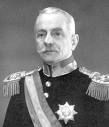
On July 5, 1932 studious finance minister (since 1928) Antonio de Oliveira de Salazar (1889-1970) is elected PM of Portugal (until Sept. 21, 1968), and becomes a dictator who rules with a strong hand along with his elder protege-pres. Gen. Antonio Oscar Oliveira Salazar de Fragoso Carmona (1869-1951), founding the anti-Communist pro-Roman Catholic Estado Novo (New State) (ends 1968).
On July 31, 1932 the German Reichstag elections give the Nazis 230 seats, the Socialists 133, Center Party 97, and Communists 89; no majority is possible since the Nazis and Communists won't cooperate.
In late summer 1932 a 200-page memo written by Mikhail Riutin calling for the removal of Stalin from power is secretly approved by a number of Soviet Communists led by Nikolai Bukharin (1888-1938); too bad, when Stalin finds out he neutralizes them by Oct., and goes over the paranoid barrier to enough-talk-let's-get-it-going?
On Nov. 6, 1932 an election fails to break the deadlock in the German Reichstag after the the Nazis lose 34, giving them 196, and the Communists gain some seats.


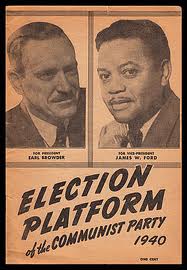
First Hoover, then Landon, Wilkie, and Dewey? On Nov. 8, 1932 (Tue.) after a campaign in which Hoover predicts that if his opponent is elected, "grass [would] grow in the streets of a hundred cities, a thousand towns", and Roosevelt counters that his economic reconstruction program is "from the bottom up and not from the top down, that puts the faith once more in the forgotten man at the bottom of the economic pyramid", the 1932 U.S. Pres. Election sees Franklin Delano Roosevelt (1882-1945) win by a landslide, 52.5% of the electorate voting for pres., and FDR receiving 22.8M popular (57.4%) and 472 electoral votes vs. Hoover's 15.8M popular (39.7%) and paltry 59 electoral votes; the Dems. win control of both houses of Congress, giving FDR a blank check to engage in "bold, persistent experimentation"; the first pres. whose mother votes in the election; Hoover utters the soundbyte "I knew from the bitter experience of all public men from Washington on down, that democracies are fickle and heartless, for democracy is a harsh employer"; the 4 mo. period until FDR takes over leaves lame duck Hoover swinging in the wind as FDR refuses to let him take joint action in both of their names and risks things getting worse in the short run for long range credit, causing the Dems. to block Hoover's legislative efforts to alleviate the nation's misery, since by now Hoover's name is mud, with newspapers are already known as "Hoover blankets", and empty pockets turned inside out as "Hoover flags"; William Z. (Edward) Foster (1886-1961) (white) and James W. "Jim" Ford (1893-1957) (black) become the pres. and vice-pres. candidates for the Communist Party USA, with the slogan "Equal rights for negroes everywhere"; Ford becomes the first U.S. black U.S. pres. candidate; Foster's 1932 book Toward Soviet America paints a dismal picture of Am. capitalism and a rosy picture of horrible Stalinist Russia, proposing Communism as the answer in a future United Soviet States of America"; in 1949 backpedals, with the soundbyte: "I have long since criticized [Toward Soviet America] on the grounds—first, that it contains many incorrect formulations, and second, that the book in general no longer corresponds to the present political situation and to our policies. We do not circulate this and other outdated and often unsatisfactorily written American books, pamphlets, and articles on Communism." On Nov. 9 labor strikes in Geneva, Switzerland are crushed by the govt.
In Nov. 1932 a banquet is held by the Soviet Communists to celebrate the 15th anniv. of the Bolshevik Rev. of 1917, and after Stalin orders his teetotaler wife Nadya to drink and she refuses, she runs to her apt., where either Stalin shoots her or she commits suicide after he rags her out; the official story is acute appendicitis; the death causes him to go paranoid?
In 1932 writers in the Soviet Union are mandated by the state to follow the new Socialist Realism lit. style (ends 1990), displaying the steady progress of the Soviet society towards inevitable shining Socialism in a glowing future Shangri-La where everybody is saved and has their mind right and eats well and is warm in winter - and yoo yoo yoo pink Floyd the wall the movie?
On Jan. 8, 1933 a radical (anarchist, syndicalist) uprising in Barcelona, Spain spreads to many other large cities before it is suppressed - you are open and now you are closed?

On Feb. 27, 1933 the German Reichstag (Wallot Palace) (vacant since Dec.) burns and is gutted, and feeble-minded Dutch Communist Marius van der Lubbe (1908-34) is caught by police in Bismarck Hall naked to the waist, confessing that he did it "as a protest"; Hitler calls it a "sign from heaven" that a Communist rising is beginning, and issues the Decree for the Protection of the People and the State on Feb. 28, getting 5K Communists rounded up, and four party leaders charged with complicity; a court in Leipzig acquits the four party leaders, but convicts van der Lubbe, who is executed next Jan. 10; the world believes the Nazis really did it, but later it is proved that van der Lubbe actually did it alone, and the Nazis only hampered the fire dept.
On Mar. 5, 1933 after Centrist leader Ludwig Kaas refuses compromise and the Reichstag is dissolved, new elections result in a record vote count (88.8% of the electorate, 39,343,331 votes), and give the Nazis 43.9% of the vote (17,277,328) and the Nationalists 8%, prompting Hitler to claim a "colossal victory"; the Nazis have 288 seats, the Socialists 120, the Communists (who lose 1M votes) 81 (who are barred from attending), the Centrists 74, the Nationalists 52, and others 23.


The more the Church changes the more it stays the same, 1933 edition? On July 20, 1933 after negotiations by cardinal (since 1921) Michael von Faulhaber (1869-1952) and cardinal (since 1929) Eugenio Pacelli (1876-1958) (future Pope Pius XII) (fueled by the dissolution of the Catholic Center Party, formed in the days of Bismarck to protect their rights), Eugenio Pacelli for the Vatican and vice-chancellor Franz von Papen for pres. Paul von Hindenburg of Germany sign the Reichskonkordat (Concordat Between the Vatican and Nazi Germany, later becoming one of the worst skeletons in the Vatican's closet; they did it to ensure that the Nazis won't do to them what they are doing to the Jews, or because they secretly want them to get rid of the Jews from Europe for them, and just have to keep from leaving anything incriminating?; "With the concordat we are hanged, without the concordat we are hanged, drawn and quartered" (Faulhaber); "I had to choose between an agreement and the virtual elimination of the Catholic Church in the Reich", "a pistol had been held to my head", and I was negotiating "with the Devil himself" (Pacelli); on Dec. 22 the Catholic bishops of Austria release the statement "The concordat recently concluded between the Holy See and Germany does not mean that the Catholic Church approves of the three fundamental errors of Nazism... race madness... violent anti-Semitism... extreme nationalism"; after Faulhaber utters the soundbyte "Let us not forget that we were saved not by German blood but by the blood of Christ", and speaks out against euthanasia, the Nazis turn on him, but when they invade the Soviet Union in 1941 he supports them since they're fighting godless Communists, and in June 20, 1945 he protests maltreatment of Nazi Party and Wehrmacht members by the Allies; on June 29, 1951 he ordains new priests Georg Ratzinger (1924-) and his brother Joseph Ratzinger (1927-), who later becomes Pope Benedict XVI.
On Oct. 10, 1933 Pres. Roosevelt invites Soviet Pres. Mikhail Kalinin to send an envoy to Washington, D.C. to work out the terms of official U.S. recognition of the Soviet Union, which three previous Repub. admins. and his own State Dept. opposed; on Nov. 7 Soviet foreign minister Maxim Litvinov arrives, and on Nov. 16 the recognition is made official, with a number of terms, incl. religious freedom for Americans resident in the Soviet Union, a Soviet promise to refrain from interfering with the internal affairs of the U.S. and to not allow any org. to reside on its territory with the purpose of overthrowing the political or social order of the U.S.; in return the U.S. cancels all Soviet debts except for $75M (which is never repaid). On Nov. 16 the U.S. resumes diplomatic relations with the Soviet Union for the first time since the overthrow of Kerensky in 1917, with FDR sending a telegram to Maxim Litvinov expressing that relations will "forever remain normal and friendly" - I'll drink to that?
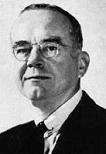


In Dec. 1933 Princeton-educated James Burnham (1905-87), Dutch-born Rev. Abraham Johannes "A.J. Muste (1885-1967), and Sidney Hook (1902-89) form the Socialist Am. Workers Party (AWP), which calls for "an American approach" to Marxism, going on to pub. Labor Action and lead the successful 1934 Toledo Auto-Lite Strike, which helps launch the United Auto Workers Union; after Stalin's Great Purge wakes them up, Burnham and Hook later go conservative, fighting Communism.
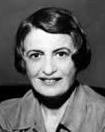
In 1933 after emigrating to the U.S. in 1926, St. Petersburg, Russia-born Jewish atheist brain babe Ayn Rand (Alisa Zinovyevna Rosenbaum) (1905-82) pub. her first novel We the Living, dissing Soviet Communism at a time when starving Americans are friendly toward it; she goes on to devote her life to dissing Communism and Socialism and praising Capitalism; "Civilization is the progress toward a society of privacy"; "The root of production is man's mind; the mind is an attribute of the individual and it does not work under orders, controls and compulsion, as centuries of stagnation have demonstrated. Progress cannot be planned by government, and it cannot be restricted or retarded; it can only be stopped, as every statist government has demonstrated"; "There is no difference between Communism and Socialism, except in the means of achieving the same ultimate end: Communism proposes to enslave men by force, Socialism by vote. It is merely the difference between murder and suicide."

On Jan. 3, 1934 anti-Communist "Young Liberal" Gheorghe (Jorge) Tartarescu (1886-1957) becomes PM of Romania (until Dec. 28, 1937).

On May 9, 1934 the West Coast Longshore Strike, organized by Australian-born Harry Bridges (1901-90) of the Internat. Longshoremen's Assoc. begins; on July 4 police aid picket line breakers by firing on the strikers, killing two and wounding dozens; meanwhile in the fall the wonderful U.S. govt. tries to get Bridges railroaded on trumped-up federal charges of being a Communist, but their case falls apart, which doesn't stop them from trying again, and this time he has to be saved by the U.S. Supreme Court, who reverses his conviction in 1945, after which they go for a 3rd try, and get him convicted again, but the Supreme Court overturns it again.

On July 27, 1934 Socialists and Communists in France sign an agreement to end infighting and form a united front; in Oct. French Communist Party leader (1930-64) Maurice Thorez (1900-64) calls for a Popular Front against Fascism - incl. all leftists with the chemical formula S, C, or R?
In Oct. 1934 a Spanish cabinet is formed which incl. rightists and monarchists, causing a gen. strike in C and N Spain by the Socialist trade union UGT in combo with the anarchists and Communists; Catalonia proclaims its independence, causing the govt. to react with an iron hand and crush them, killing thousands.
In Oct. 1934 the 100K-man 1st Front Red Army of Mao Tse-tung begins the 6K-mi. Long March (ends Oct. 1936) from their HQ of Juichin in Kiangsi through Kweichow and Szechwan to Yenan (Wuch'ichen) in Shenai, reading their mud-soaked Sun-Tzu all the way while losing 70K men, and making their HQ there for the next 10 years; a 2005 bio. of Mao claims he was carried on the march.
On Dec. 1, 1934 Stalin's comrade Sergei Kirov, head of the Communist Party in Leningrad is assassinated by lone gunman Leonid Nikolaev, triggering the Big Terror, a purge of the Soviet Communist Party, incl. the arrest and shooting of 98 of 139 members and candidates of the Party Central Committee by 1938; the Russian towns of Vyatka and Yelizavetgrad are renamed Kirov and Kirovograd in his honor. In 1934 the Soviet Union is admitted to the League of Nations despite bitter Swiss govt. opposition.

In 1934 Kan.-born Earl Russell Browder (1891-1973) becomes gen. secy. of the Communist Party USA (until 1945); in 1946 after criticizing Soviet domination, he is expelled. Meanwhile the Great Depression causes thousands of Americans to answer newspaper ads offering paid passage to the Soviet Union along with guaranteed jobs and housing; too bad, they are later caught up in the repression of Stalin and end up in Gulags, many never surfacing again or surfacing many years later.
1935: Chinese Year: Pig. Speaking of pig, this year Stalin orders hundreds of arrests (until mid-1936), getting Article 58 passed to define new counter-rev. offenses and provide for execution of those fleeing abroad, plus imprisonment or exile of their families, resulting in Stalin's Big Show Trials next year to get rid of his competition at the Soviet slop trough. By this year the Soviet Union has arrested 130K Orthodox priests since 1917, executing 95K of them by firing squad - you're under arrest for running an illegal prayer session?
On Mar. 19-21, 1935 the Harlem Riot of 1935 (first race riot in Harlem) begins after 16-y.-o. Puerto Rican Lino Rivera is caught shoplifting a 10 cent penknife at the Kress Five & Ten Store across from the Apollo Theater, leading to false rumors that he had been beaten or killed, causing the Young Communist League and the militant Young Liberators to stage a demonstration outside the store that evening, leading to a riot, killing three, wounding hundreds, destroying 200 stores, and causing $2M in damage; after this, race riots in Harlem become common, starting with next year after Joe Louis loses to Max Schmeling.
On May 2, 1935 France and the Soviet Union sign a 5-year alliance eyeing probable German aggression; on May 16 the Soviet Union and Czech. sign a mutual assistance pact whereby the Soviets agree to come to their aid in case of attack provided that France does likewise; the Soviet Union concludes treaties with the U.S. and Turkey, to go with their earlier treaties with France and Czech. - Communism is safe now?

What can one say about FDR's Brunhilda as the sound booms all the way to the back rows? On July 5, 1935 Pres. Roosevelt signs the U.S. Nat. Labor Relations (Wagner-Connery) Act, drafted by German-born N.Y. Sen. Robert Ferdinand Wagner (1877-1953), "the Legislative Pilot of the New Deal", committing the U.S. govt. to encourage and protect collective bargaining, making union recognition a right, and establishing the Nat. Labor Relations Board (NLRB) to police its provisions; it is opposed by a strange marriage of employers, the press, the legal community, and the Communist Party, who fears govt. control of unions and the loss of the right to strike, but results in the unionization of big U.S. industries - BBQ in style this Fourth of July?
On Oct. 28, 1935 Japanese foreign minister Koki Hirota enunciates his Three Points regarding China: establishment of a Japan-China-Manchukuo bloc, suppression of anti-Japanese activities in China, and org. of a joint Chinese-Japanese front against Communism.


In 1935 U.S. Gen. Joseph Warren "Vinegar" Stilwell (1883-1946) is sent to China as military attache (until 1939), with John Paton Davies Jr. (1908-99) as vice-consul; both liberal China Hands, they become prejudiced against the Chinese Nationalists in favor of the Commies, whom they view as democratic agrarian reformers?
In 1935 the Seventh (last) Comintern Congress of the Soviet Union orders Communist parties throughout the world to join the anti-Fascist parties.
Speaking of rat, in 1936 a major Stalinist Purge of the rats in the Communist Party in the Soviet Union (ends 1938) begins after announcement of a plot against Stalin by Leon Ratsky, er, Trotsky, causing Trotsky to be exiled from Russia and settle in Mexico.

On Jan. 26, 1936 elections in Greece are another pyrrhic V for the pesky Venizelists, who fail to gain a majority; on Apr. 13 Gen. Ioannis (John) Metaxas (1874-1941) becomes PM (until Jan. 29, 1941), and after being blocked from forming a coalition govt. by the Venizelists, who insist that repub. officers purged in 1935 be reinstated, he accepts parliament's offer to shut down for 5 mo.; on May 9 tobacco workers in Salonica strike, killing 12; on Aug. 4 after the Communists stage a 24-hour gen. strike to protest compulsory labor arbitration, Metaxas stages a military coup and becomes dictator (until 1941), proclaiming martial law, dissolving parliament, and ruling with an iron hand, calling himself the "First Peasant", "First Worker", and "National Father", claiming the Greek title of Arhigos (chieftain), proclaiming a "Third Hellenic Civilization", and going on to institute a bread-and-circuses approach, launching public works programs, raising wages, lowering bread prices and canceling agricultural debts to keep the pop. happy; he draws Greece closer to Germany but keeps good relations with Britain, France and Turkey because of fear of Mussolini.
On Feb. 16, 1936 elections in Spain see the new Popular Front, consisting of leftists, incl. Communists, Socialists, Syndicalists, and Liberal Repubs. defeat the rightists, incl. Conservative Repubs., clericals, and monarchists; the winners vow to implement a massive social reform program, and the Cortes goes back to the days of 1931 with social legislation; meanwhile the forces of fascism wait in the wings - she'll have fun, fun, fun until her daddy takes the T-bird away?

On Feb. 26-29, 1936 a nat. unification congress in Mexico called by the unions creates the Communist-backed Confederation of Mexican Workers (CTM) under Vicente Lombardo Toledano (1894-1968), which supports Pres. Cardenas in an accelerated reform program, and has over 1M members by 1938; meanwhile workers strike against foreign-owned cos., seeking to get a piece of the "excessive profits"; on Nov. 23 Mexico passes an expropriation law empowering the govt. to seize private property for "public or social welfare", esp. if it's owned by U.S. and foreign corps.; meanwhile Cardenas exiles former pres. Plutarco Calles and begins a vigorous program of socialization of industry and agriculture.

On May 3, 1936 parliamentary elections in France give the Radical Socialist Popular Front (Front Populaire) a majority in the chamber, and with the help of huge (300K worker) sit-down strikes on June 5 the first Popular Front ministry is formed, headed by Socialist Party leader Leon Blum (1870-1952) as PM (until 1937), supported by the Communists, causing the far right to create the slogan "Better Hitler than Blum"; on June 7-8 the Matignon Agreements lead to radical socioeconomic reforms incl. a 40-hour work week, reorg. (followed by nationalization) of the Bank of France on June 12, nationalization of the munitions industry on July 17, along with paid vacations and compulsory arbitration for labor disputes; too bad, all the free lunches soon cause prices to rise and the franc to rapidly decline, while capital flees the country to avoid being stolen by the govt.; meanwhile green-eyed Belgium hustles to copy them.

On May 24, 1936 parliamentary elections in Belgium give PM Paul Van Zeeland's Govt. of Nat. Unity a V, but also gives the anti-Communist Francophile Rexist Party (AKA Christus Rex) (which broke off from the Roman Catholic Party), led by Walloon Belgian Leon Degrelle (1906-94) 21 of 212 deputy seats plus 12 senators, and Degrelle meets with Hitler and Mussolini, receiving 100K marks and 2M lire; on June 24 Belgium passes a social program copied from the Popular Front next door in France; too bad, as the Rexist Party goes more and more fascist its support dwindles, so that by 1939 they are down to four deputy and four senate seats. On June 30 the French govt. of Leon Blum suppresses Fascist parmilitary groups, which reform as political parties, with the Croix de Feu becoming the Parti Social Francais (PSF), and Communist-turned-Fascist Jacques Doriot (1898-1945) founding the Parti Populaire Francais.
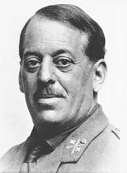


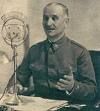





On Jan. 6, 1936 the Spanish Cortes is dissolved, and elections are scheduled for Feb.; meanwhile in Jan. Germany signs contracts to buy the output of Spanish mines for use in their military machine, and after the new Spanish govt. cancels them in Feb., pissed-off Hitler begins plotting with Gen. Jose Sanjurjo Sacanell (1872-1936) and Gen. Francisco Paulino Hermenegildo Teodulo (Teódulo) Franco y Bahamonde, Salgado y Pardo de Andrade (1892-1975) to overthrow them, meeting with them in Berlin in Mar., after which in Dec. Germany receives its first iron ore shipments from Spanish Morocco, followed by 1M tons of iron, tin, antimony, copper and ignite by the end of 1939, giving him the resources to take over Europe; meanwhile Britain refuses to help France fight Spain because of their longtime rivalry. Spain turns into a chessboard with Hitler and Stalin making the moves, and Mussolini and Franco acting as pieces, while anti-fascists from all over the world try to get in the game? On July 17/18 (Fri./Sat.) the Spanish Civil War (ends 1939), a rightist revolt against the leftist Popular Front govt. begins with the revolt of the Morocco garrison under Gen. Emilio Mola Vidal (1887-1937) and Gen. Francisco Franco, spreading to army towns in Spain, incl. Cadiz, Seville, Saragossa, and Burgos, and gaining the support of the bulk of the Spanish army; Madrid is initially held by the loyalists under Gen. Jose Miaja Menant (1878-1958) (until 1937), and Barcelona under ?; on July 23 the Junta de Defensa Nacional sets up in Burgos as the seat of Franco's nationalist govt. until the capture of Madrid in 1939; Franco's hometown of El Ferrol in Galicia, NW Spain is captured by his forces soon after the war begins for a moral V; on July 20 Gen. Jose Sanjurjo (b. 1872), the leader of the rightist revolt is killed in a plane crash in Estoril, Portugal when he overloads the plane with baggage, uttering the immortal soundbyte "I need to wear proper clothes as the new caudillo of Spain"; lucky Francisco Franco becomes the new leader of the rightists, quelling rumors that he you know what to get his promotion; the war splits Europe into fascist and anti-fascist camps, with Hitler and Mussolini aiding Franco, and Stalin aiding the loyalists, who hastily organize a militia composed of workers from labor groups; the war causes Chilean poet Pablo Neruda (1904-73) to turn to Communism, while the loyalists put out a call to the Communist Internat. for volunteers, recruiting from many countries incl. the U.S.; Mussolini sends 50K-75K volunteers to Spain along with armaments,

In Sept. 1936 Herr Hitler gives a speech in Nuremberg denouncing Boleshivism and declaring his goal of seizing Russian territory for Lebensraum; meanwhile the Internat. Brigades are formed by the Communists to fight against Franco in the Spanish Civil War; 59K volunteers from 55 countries serve, incl. British writer George Orwell (now a Marxist, later their worst nightmare?); philosopher Jose Ortega y Gasset (1883-1955), whose writings contributed to the fall of the Spanish monarchy in 1931, and who was a member (1931-3) of the Cortes that promulgated the repub. constitution flees Spain until 1949. On Nov. 3 the Swiss govt. outlaws the Communist Party. On Nov. 10 the govt. of Argentina outlaws the Communist Party. On Nov. 25 Germany and Japan sign an Anti-Comintern Pact against Communism and the Third Internat; Italy signs later, driving the Soviets into the arms of the Western dem. states. On Dec. 5 the Soviet Union promulgates a new 1936 Soviet Constitution to replace the 1924 one, written by Nikolai Bukharin, reorganizing the Soviet Federation of Russia, Belarus, Ukraine, Georgia, Armenia, Azerbaijan, Kazakhtan, Kirghistan, Tadzhikistan, Turmenistan, and Uzbekistan, claiming it as "the most democratic in the world", providing for free secret elections and universal suffrage, and guaranteeing complete freedom of press, assembly and religion, and personal privacy (as long as the basic structure of Soviet society isn't changed and the Commie Party retains political power) - enjoy your new office Sgt. Munch, don't let the power go to your head?
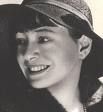
In 1936 Dorothy Parker (1893-1967) et al. found the Hollywood Anti-Nazi League, which gains 4K mostly wealthy members, who don't realize their money is being funneled to the Communist Party via Soviet agents Otto Katz and Willi Muenzenberg (Münzenberg) (1889-1940)?

By 1937 the Soviet Union is the largest country in Europe, followed by France; by 1939 Germany passes France and becomes #2; in Jan. a census of the Soviet Union reveals 30M people "missing"; Stalin responds by declaring the census an act of sabotage, and soon the census takers are missing? On Jan. 25, 1937 Joseph Edward Davies (1876-1958) becomes U.S. ambassador #2 to the Soviet Union (until June 11, 1938), going on to attend some of the Stalinist purge trials and believe in the guilt of the accused as well as the basic goodness of Comrade Stalin, sending Washington the immortal soundbyte "Communism holds no serious threat to the United States. Friendly relations in the future may be of great general value." On Mar. 19 Pope Pius XI issues the encyclical Divini Redemptoris, with the soundbyte "Since Communism is intrinsically evil, whoever wants to save Christianity and civilization from destruction must refrain from aiding it in the prosecution of any project whatever", becoming an official papal declaration of war against godless Communism.

In May 1937 after U.S. Steel and over 100 independent cos. recognize the steelworkers union, grant an 8-hour day and a 44-hour week, along with a 15% pay raise, the Steel Workers Organizing Committee, founded by U.S. Communist Gus Hall (1910-2000) gets the CIO to strike the holdout Little Steel Group incl. Youngstown Sheet and Tube, Inland Steel, and Bethlehem Steel (founded 1857), leading to the Republic Steel Memorial Day Massacre on May 30, where Chicago police fire on steelworkers and their families as they picnic near the South Chicago works of Republic Steel, killing 10 workers and injuring over 100 (along with 22 police), after which the strike collapses.




On June 11, 1937 the arrest and execution (on June 12) of deputy defense minister Field Marshal (since 1935) Mikhail Nikolaevich Tukhachevsky (1893-1937) is the start of the Stalinist Great Purge (Terror) of the Red Army, AKA the yezhovshchina ("Times of Yezhov"), which axes half of the 80K men in the officer corps incl. chief of the Red Army staff Field Marshal Alexander Ilyich Yegorov (Egorov) (1883-1939) and 14 of 16 army cmdrs.; ex-Trotsky supporter Karl Berngardovich Radek (1885-1939) (ed. of Izvestia) and other political leaders are also put on show trials in the Trial of the Seventeen in Jan. before being axed; Radek lucks out (not) and is given 10 years in priz, serving four before being murdered by the NKVD; one field marshal who survives is Semyon Mikhailovich Budyonny (1883-1973), chief of the cavalry and military cmdr. of Moscow. In 1937 the Soviets start a crackdown on Tibetan Buddhism among the Mongols (ends 1939).
By the end of 1938 850K (36%) members of the Soviet Communist Party have been purged since 1936; Soviet concentration camp pop. reaches 8M-10M - put another sucker in the bag of the commie fantasy? On Oct. 20 Czecho-Slovakia (new spelling) complies with Nazi policy and outlaws the Communist Party and begins persecuting Jews.

On Mar. 6, 1939 a military coup in Madrid is led by Gen. Segismundo Casado Lopez (1893-1968), resulting in the removal of suspected Stalin puppet PM Juan Negrin and his colleagues, who flee to France; the new Nat. Defense Council is headed by Gen. Jose Miaja Menant, the defender of Madrid in 1936-7; the Repub. fleet escapes from Cartagena and takes refuge in the Tunisian port of Bizerte, where the French intern it; the new regime's policy is "peace with honor", but the Communists begin a civil war in Madrid, which is quashed, followed by a failed attempt to compromise with Gen. Franco, who forces unconditional surrender.

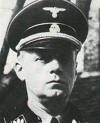
On Aug. 20, 1939 the Danzig-Polish Crisis begins (ends Sept. 1) when Nazi Danzig gauleiter Albert Maria Forster (1902-52) publicly announces that the hour of deliverance is near; on Aug. 21 Germany and the Soviet Union conclude a trade treaty, startling the world; on Aug. 22 the British govt. reiterates its pledges to Poland, and appeals to Germany for a truce in Eastern Europe with negotiation of German claims; on Aug. 24 (early a.m.) (Thur.) the 10-year Nazi-Soviet (Molotov-Ribbentrop) Non-Aggression Pact (dated Aug. 23) is signed in Moscow by Soviet foreign minister Vyacheslav Mikhailovich Molotov (1890-1986) and German foreign minister Ulrich Friedrich Wilhelm Joachim von Ribbentrop (1893-1946), dividing the states of N and E Europe into German and Soviet spheres of influence, and splitting Poland in two, pissing-off the West and causing the peace negotiations to be dropped; it calls for mutual non-aggression, plus neutrality if the other party is attacked by a 3rd power; secret protocols, made public years later assign Finland, Estonia, Latvia, and Bessarabia to the Soviet sphere of influence; Poland is partitioned along the rivers Narev, Vistula, and San; Germany retains Lithuania, enlarged by the inclusion of Vilnyus (Vilnius).



On Sept. 1, 1939 - Sept. 2, 1945 the horrific $3.5T World War II resulted in 24M military and 49M civilian deaths, and featured the low point of the Jewish Holocaust (Shoah) by the German Nazis, I guess it was the Jews' fault for not ransoming themselves to go to Israel before they could round them up for the camps. The whole experience turned Jews from lovers into fighters, ramping up the Zionist movement with full world sympathy and support by new world superpower U.S., which had its own guilt trip because on Nov. 24, 1942 Budapest-born Am. Zionist leader Rabbi Stephen Samuel Wise (1874-1949) announced in a press conference in Washington, D.C. that he was authorized by the U.S. State Dept. to confirm that the Nazis had murdered 2M Jews as part of a plan to exterminate all Jews in Europe; too bad, the nat. newspapers didn't consider it front page news, and the U.S. govt. did nada. After the war ended and Americans toured the concentration camps in horror, Polish-born Jewish scholar Raphael Lemkin (1900-59), who single-handedly led an unsuccessful campaign to get the League of Nations to give internat. protections against genocide starting in 1933 finally got what he wanted after his own people got it, namely the Dec. 9, 1948 U.N. Convention on the Prevention and Punishment of the Crime of Genocide (Gen. Assembly Resolution 260), which didn't come in force until Jan. 12, 1951, and which the U.S. still didn't ratify until 1988.
On Oct. 3, 1939 Winston Churchill utters his coolest soundbyte, calling the Soviets a "riddle wrapped in a mystery inside an enigma" - and that spells the acronym RIME? On Oct. 5 Soviet foreign minister V.M. Molotov invites Finnish foreign minister Juho Eljas Erkko (1895-1965) to Moscow for political discussions; the Finns delay the meeting until Oct. 12 while Field Marshal (since 1933) Carl (Karl) Gustav Emil von Mannerheim (1867-1951) prepares Finland for war, mobilizing on Oct. 9, and erecting the Mannerheim Line on the Russian border; on Oct. 12-Nov. 8 Finnish special envoy Juho Kusti Paasikivi (1870-1956) negotiates in Moscow, refusing to allow the establishment of Soviet military bases, and offering counterproposals on Oct. 23; the talks are broken off on Nov. 13, and the Soviets denounce the Soviet-Finnish Non-Aggression Treaty (renewed Apr. 7, 1934). Don't mess with Santa Claus? On Nov. 26 the Soviets accuse Finland of an artillery attack on their border; on Nov. 28 the Soviet Union scraps its non-aggression treaty with Finland; on Nov. 29 Soviet planes bomb an airfield at Helsinki; on Nov. 30 (a.m.) the Soviets invade Finland with 26 divs. totalling 465K men, later increased to 4 armies, 50 divs., 1M men, 2485 tanks, and 2K guns, vs. 9 divs. and 130K men for the Finns, beginning the Russo-Finnish Winter War; the Soviets have 1K+ planes, vs. 150 clunkers for the Finns; on Nov. 30 the Soviets bomb Helsinki, killing 61; on Dec. 2 Tass announces the establishment of a People's Govt. of Finland; the Finnish army fights back on the frontiers, inventing the Molotov Cocktail to fight Soviet tanks; on Dec. 3 the Finns appeal to the League of Nations, causing it to expel the Soviet Union on Dec. 14 and issue a plea to give the Finns all possible aid; on Dec. 12 Finnish troops repel a Soviet attack at Suomussalmi; after massive help from France and other nations, along with volunteers, the Finns hold out against the Soviet Union for 104 days (until Mar. 12, 1940), using the heavy forests, cold winter, and neat white snow uniforms with skis to even the odds - Herr Hitler misses the lesson? On Dec. 28 German industrialist Fritz Thyssen, a longtime financial backer writes a Letter to Adolf Hitler, dissing him for concluding a pact with the Soviets, with the soundbyte: "Your Propaganda Ministry even dares to state that the good Germans who voted for you, the professed opponents of Communism, are, in essence, identical with those beastly anarchists who have plunged Russia into tragedy and who were described by you yourself as 'bloodstained common criminals'."
On Jan. 29, 1940 the Soviets begin secret negotiations in Sweden with Finland to scrap their Commie People's Govt. of Finland in exchange for a longer coastline on the Gulf of Finland and some control of the entrance to protect Leningrad, as well as more control in Karelia; on Jan. 31 it is announced in Helsinki that 377 Finnish civilians have been killed by Soviet air raids in the 2-mo. war. On Feb. 1 the Soviets under Gen. Timoshenko launch a major offensive against the Finnish Mannerheim Line, but are beaten back by Feb. 3; too bad, they regroup and break through on Feb. 8, causing the Finns to establish a new defense line, which breaks on Feb. 13, defeating the pooped Finnish army by Feb. 16, which retreats again.

On Feb. 16, 1940 Jesuit priest Edmund Aloysius Walsh (1885-1956), head of the foreign service school of Georgetown U. gives a speech in Washington, D.C., in which he claims that the war aims of Hitler are a "reestablishment of the Holy Roman Empire" (962-1806 C.E.); after the war, with Hitler destroyed by a U.S.-Soviet Communist alliance, he suggests to freshman U.S. Sen. Joseph McCarthy that he might use the anti-Communist issue to gain political prominence.

On Mar. 5, 1940 NKVD head Lavrenti P. Beria (1899-1953) proposes the execution of all members of the Polish officer corps, which is approved by Stalin, and in Mar. the Katyn Forest Massacre of 4K+ Polish officers by the Soviets (all neatly shot in the back of the neck) takes place, after which the Soviet govt. officially denies it; the Russian govt. doesn't release the archives until 1992, and puts them online in Apr. 2010; another 10K Polish officers are taken to Russia and killed, and their bodies aren't discovered until ?.
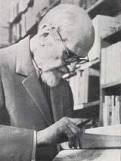
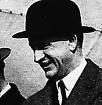
On Mar. 12, 1940 after 27K Finnish and 58K Russian troops are KIA, defeated Finland signs the Moscow Peace Treaty with the Soviet Union, leasing the Hango Peninsula to Russia for 30 years, and giving up territory which on Mar. 31 becomes the Karelian Soviet Socialist Repub., known for having 60K lakes. On June 12-14 the Soviet Baltic Fleet begins a total military blockade of Estonia. On June 16 as Soviet troops invade Estonia, Soviet minister Vyacheslav Molotov presents an ultimatum to Latvia, accusing it of violating the 1939 Nazi-Soviet Non-Aggression Pact, after which the Soviet NKVD invades and absorbs the Baltic repubs. of Estonia, Latvia, and Lithuania to create the 14th, 15th, and 16th Soviet Repubs.; on June 17 Estonia capitulates to avoid bloodshed, and the Soviet military occupation is completed on June 21 after the Estonian Single Signal Battalion holding out in Tallinn surrenders; on July 21 the Estonian Soviet Socialist Repub. is proclaimed (ends Aug. 20, 1991), along with the Lithuanian Soviet Socialist Repub. (ends Mar. 11, 1991); on July 23 the Red Army occupies Latvia; on Aug. 5 after deporting or killing 34,250 Latvians, the Soviets set up the Latvian Soviet Socialist Repub. (ends Sept. 6, 1991), headed (until 1952) by puppet Augusts Kirhensteins (1872-1963), going on to arrest 27,586 (most of whom are deported), and shoot 945 in the next year; U.S. spokesman Sumner Welles (1892-1961) announces the U.S. policy of non-recognition of Soviet annexation, after which 50 countries follow suit. On June 26 with its non-aggression pact with Germany in hand, the Soviet Union demands the return of Bessarabia from Romania, and the cession of Northern Bukovina (Bucovina) (19.3K sq. mi., pop. 3.5M), and after Hitler urges them to do it and they agree on June 27, occupies it on June 28, and Romania is the biggest Black Sea country no more; on July 1 after pressure from Germany and Italy, Romania renounces the Anglo-French guarantee of its integrity, and on Aug. 30 yields the 17.4K sq. mi. half (2.4M pop.) of N Transylvania to Hungary in the Vienna Award, creating the Moldavian Soviet Socialist Repub. (#13) (a small part of SE Bessarabia along the Black Sea coast and another small part in the NW are added to Ukrainian SSR), with capital at Kishinev (Chisinau). On July 21 as the Soviet Union formally annexes the Baltic states of Estonia, Latvia, and Lithuania, Hitler tells his military cmdrs. at Obersalzberg to make plans to invade the Soviet Union.
On June 29, 1940 the U.S. Alien Registration (Smith) Act is passed, making it a federal crime to advocate the overthrow of the U.S. govt. or any state govt. by force; too bad, it is worded so loosely that it becomes a swinging cannon on deck depending on who's in power?


On Aug. 20, 1940 on orders of his old comrade and archenemy Stalin, Leon (Lev) Trotsky (b. 1879), who once had an affair with artist Frida Kahlo is mortally wounded with an icepick (blunt side of an alpenstock) to the head in his home in Coyoacan ("place of the coyotes") in S Mexico City by Spanish-born KGB agent Jaume Ramon (Ramón) Mercader del Rio Hernandez (1914-78), who gives his name as Jacques Mornard until 1950, receiving the Order of Lenin for it, then rotting away in priz until 1960, after which he becomes a Cuban and Soviet Commie hero with free drinks at every bar; meanwhile 300K turn out for his funeral procession in Mexico City.

In 1940 the undeclared Japanese war on China causes the Kuomintang Nationalists and the Communists to table their civil war in favor of ousting the Japanese; the Communists have 800K members with a secure base in Yan'an in Shaanxi Province; the Kuomintang are based in Chongqing (Chungking) in Sichuan Province, and mess up by abusing the local pop. while the Communists offer them the moon, and found a univ. in Yan'an to breed anti-Japanese pro-Commie thinkers - facts are not neutral and whoever controls the schools controls the world? On Aug. 20, 1940 the Battle of a Hundred Regiments (ends Dec. 5) pits the Chinese People's Liberation Army under Gen. Peng Dehuai (1898-1974) in a series of assaults on strategic Japanese points in N China; the Japanese beat the Communists back after taking heavy casualties, retaliating against the local pop. On Sept. 23 the Japanese invade Lang Son Province in N Vietnam from S China, and occupy Indochina; the French flee, giving over their military installations to the invaders to avoid destruction of the country; on Sept. 27 a Communist-led anti-French rebellion begins in Bac Son in N Vietnam.

On Nov. 12-13, 1940 Soviet foreign minister (since 1939) Vyacheslav Mikhailovich Molotov (1890-1986) visits Hitler in Berlin, becoming the first high-ranking Soviet official to do so at his direct invitation, discussing how the four totalitarian powers will divide the world incl. carving up Britain's kaput empire, "a bloc of 40 million square kilometers in a gigantic auction"; on Nov. 13 an evening banquet is given in the Russian embassy in Unter den Linden by German foreign minister (since 1938) Ulrich Friedrich Wilhelm Joachim von Ribbentrop (1893-1946), and the toast to Hitler is interrupted by a British air raid, causing them all to take refuge in Ribbentrop's air raid shelter; after Ribbentrop continues to harp to Molotov about dividing England up now that it has been so decisively beaten, Molotov replies, "If England is beaten, why are we sitting in this shelter?"; Molotov tells Ribbentrop that Stalin wants the Kattegat and Skagerrak between Denmark, Norway, and Sweden, which the Germans took over from Denmark in May, pissing Hitler off and making him more eager to attack. On Dec. 18 Hitler issues Directive No. 21, ordering the military to make plans "to crush Soviet Russia in a quick campaign" to be ready by May 15, while making certain "that the intention to attack does not become discernable"; Hitler expects Finland and Romania to fight on his team to take Leningrad first, then Kiev, then Moscow, with the final objective being to "erect a barrier against Asiatic Russia" on the Volga-Archangel line; the operation is initially known as Operation Fritz until history-man Hitler changes it to Operation Barbarossa (Red Beard), named after HRE Frederick I Barbarossa (1122-90), who is supposed to be sleeping in a cave in Mt. Kyffhauser in Thuringia or Mt. Untersberg in Bavaria, his red beard growing through the table before him and his eyes half-closed, waiting for the ravens flying around to disappear to signal his reawakening to return to save Germany; Soviet spymaster in Japan (since 1933) Richard "Ramsay" Sorge (1895-1944) (posing as a German Nazi journalist under the codename Ramsay) warns Stalin, who doesn't believe him, saying "There's this bastard who's set up factories and brothels in Japan and even deigned to report the date of the German attack as 22 June. Are you suggesting I should believe him too?"; when he advises Stalin on Sept. 14, 1941 that the Japanese are not going to attack the Soviet Union, he believes him and pulls troops out of the east, allowing him to begin the victory push against Hitler; he also tells Stalin that if the Germans capture any city on the Volga River, Japan will attack, causing Stalin to dig in at Stalingrad.

In 1940 Sir Winston Churchill appoints Labour leader (avowed Marxist) Sir Richard Stafford Cripps (1889-1952) as British ambassador to the Soviet Union, who warns Stalin of the possibility of a Nazi attack, and after it happens in June 1941 goes on to engineer an alliance between the Soviet Union and the Allies, becoming super-popular in Britain and gaining jobs in the War Cabinet, lord privy seal, and leader of the House of Commons; too bad, Churchill smells a threat to his position as PM, and in Sept. 1942 sends him on the Cripps Mission to India to strike a deal that they will get full self-govt. after the war for loyalty during it, then pulls the rug under his feet, causing him to step down as Commons leader and accept a less glamorous job as minister of aircraft production for the rest of the war (until 1947).

In 1940 the Rapp-Coudbert Committee in N.Y. is established (until 1942) to rapp-out coudbert, er, root-out Communist influence in the public education system, ending with the dismissal of 60+ instructors and administrators at CCNY incl. historian Jack Donald Foner (1910-99), who doesn't work in academia again until 1969, his crime being devoting too much attention to African-Am. history; in 1979 the N.Y. State Board of Higher Ed. apologizes to the victims.
In Apr. 1941 eager-to-please Stalin keeps honoring the Aug. 1939 Nazi-Soviet Pact, sending Germany 208K tons of grain, 90K tons of oil, 8.3K tons of cotton, 6,340 tons of metals, and 4K tons of rubber imported from Asia.





Just when the Axis is looking like it's here to stay, high stakes gambling addict Hitler launches Operation Blunderossa and gambles the Third Reich away? On June 22, 1941 (Sun.) (4:15 a.m.) (1 year and 1 day after France signed the armistice with Germany) (129 years minus 4 days after Napoleon crossed the Nieman River to invade Russia) after Hitler utters the soundbyte "We have only to kick in the door and the whole rotten structure will come crashing down", in defiance of the Non-Aggression Pact (claiming gross violations of the same by the Soviets), after 17K trains bring troops to the Russian border since Jan., Germany attacks the Soviet Union with 154 German, 18 Finnish, and 14 Romanian divs. (3.2M men) in Operation Barbarossa, facing 2.5M Soviet soldiers in the W, with 2.2M in reserve defending Moscow, Leningrad, the Donetz Basin, and the Urals, with only 30% having automatic weapons, and only 20% of the aircraft and 15% of the tanks of modern design; after bombing 66 airfields to destroy aircraft on the ground, while bombing Kovno, Minsk, Rovno, Odessa, Sevastopol, and Libava, the German army begins advancing along a 930-mi. front; the attack interrupts a Soviet ball in the border town of Siemiatycze in NE Poland, attended by the local German border patrol and some Jews; at 7:00 a.m. Reich propaganda minister Paul Joseph Goebbels (1897-1945) reads a Russian Invasion Proclamation by Hitler over the radio, with the soundbyte: "Weighted down with heavy cares, condemned to months of silence, I can at last speak freely, German people! At this moment a march is taking place that, for its extent, compares with the greatest the world has ever seen. I have decided today to place the fate and future of the Reich and our people in the hands of our soldiers. May God aid us, especially in this fight" (I'm getting seasick?); at 7:15 a.m. Marshal Zhukov issues an order to Soviet troops authorized by Stalin to "attack the enemy and destroy him", but not cross the frontier into Germany, although air strikes are permitted up to 150km (90 mi.) behind the lines against Konigsberg, Memel et al.; at 12:00 noon after frantic attempts to stop the war with diplomatic messages to Germany and Japan, Vyacheslav Molotov announces the attack to the Soviet people; at 9:15 p.m. after the Germans have an easy time penetrating Soviet territory, Marshal Timoshenko issues a directive ordering Soviet forces to go on the offensive and penetrate German territory to a depth of 50-75 mi.; by noon the Germans have destroyed 1K+ Soviet aircraft on the ground, 35% of their air force; on ? the Roman Catholic bishop of Eichstatt, Germany sends out a pastoral letter calling the German invasion "a crusade, a holy war... for faith and church"; by the time Berlin falls in May 1945, 30M+ are killed in "the greatest and most hideous land-air conflict in history (Chris Bellamy); Army Group North (27 divs.), commanded by Field Marshal Wilhelm Ritter von Leeb (1876-1956) heads through the Baltic States to Leningrad; Army Group Center (51 divs.), commanded by Field Marshal Fedor von Bock (1880-1945) heads for Moscow; Army Group South (38 divs.), commanded by Field Marshal Karl Rudolf Gerd von Rundstedt (1875-1953) heads toward the Ukrainian capital of Kiev; the Russians have 170 divs. facing them, representing 54% of their total strength; the German advance ultimately reaches a line from Archangel on the White Sea to Astrakhan on the Caspian Sea; the Russkies shock the Nazis with their T-34 medium tank and KV-1 (Kliment Voroshilov) heavy tank, which outclass anything they have, causing a rush to catch up; after German ambassador Friedrich-Werner Graf von der Schulenberg (1875-1944) tells Russian minister Vyacheslav Molotov that Germany has been forced to take "countermeasures" in light of Russian military buildup on the border, he replies "Surely, we have not deserved that"; Stalin has a "nervous collapse" and does not speak for 11 days.

In 1941 Enver Halil Hoxha (1908-85) sets up a provisional Communist govt. in Albania. In Jan. 1945 it agrees to restore Kosovo to Yugoslavia under Josip Broz Tito as an autonomous region.

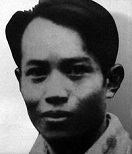
In May 1942 Mao Tse-tung calls the Yan'an Forum on Art and Literature to lay down the law on art and lit.; writer Ding Ling (1904-86) gets the raspberry for her bourgeois feminist mistake of singling out male Commies for mistreating women; in June the Yan'an Rectification Movement (ends 1944) drums slackers out of the burgeoning Chinese Communist Party, incl. Wang Shiwei (Sidao) (Shuhan) (1906-47) (executed in 1947), causing some to commit suicide?

On May 22, 1943 Michael Curtiz' Mission to Moscow (Warner Bros.) debuts, a "$2M love letter to Stalin", written by Howard Koch based on the 1941 bestseller by U.S. ambassador Joseph Edward Davies, starring Walter Huston as Davies, who snuggles up to Stalin and sees the Soviet Union as a bastion of freedom and civilization against the German Huns, and even falls for the 1937 Moscow Trials; made at the request of FDR to whip up support for the war effort, it is a box office bomb and loses $600K despite a $250K ad budget, becoming a cause celebre for HUAC, which targets it in 1947, grilling Jack Warner and blacklisting Koch.
In 1943 to please Stalin's Western allies, the Third Internat. (Comintern) (founded 1919) is abolished.

On Mar. 7, 1945 a Communist govt. under Marshal Josip Broz Tito (1892-1980) and his Nat. Liberation Movement is formed in Yugoslavia; on Nov. 11 an election boycotted by monarchists elects Tito, and on Nov. 29 a new assembly abolishes the 1K-y.-o. monarchy and proclaims the Federal People's Repub. of Yugoslavia; Montenegro is reorganized as a repub. of the new federation, with capital at (guess? yodel-ay-hee-hoo?) Titograd; on Apr. 11 the Soviet Union signs a treaty of friendship, mutual aid, and postwar collaboration with Tito.


In Mar. 1945 in Romania after the Communists achieve supreme control, a coalition cabinet is formed under Petru Groza (1884-1958), leader of the Plowmen's Party (splinter group of the Nat. Peasants), with all key positions held by Communists, led by veteran Communist (Jewish) Ana Pauker (1893-1960).



On Aug. 19, 1945 after being saved by a U.S. unit while helping the Allies, Ho Chi Minh (1890-1969) seizes power, and on Sept. 22 establishes a provisional govt. in Hanoi; on Aug. 22 British aircraft drop Free French paratroopers in S Indochina; on Aug. 23 Emperor Bao Dai abdicates and goes into exile in Hong Kong and China, while the French under Gen. Jean-Etienne Valluy (1899-1970) attempt to reclaim Vietnam by force with an all-out attack on Hanoi, incl. house-to-house fighting, capturing it after killing 1K-20K incl. all the Vietminh snipers; on Sept. 2 Ho proclaims the Dem. Repub. of Vietnam, causing civil war to break out; meanwhile after issuing a Declaration of Independence (DOI) modelled after the U.S. version (which was given to him by Am. writer William Lederer in 1940) Ho's Letters to Truman (starting Feb. 16), citing George Washington and asking for help go unanswered - did he lose face? On Aug. 25 Baptist missionary to China and U.S. spy behind Japanese lines Capt. John Morrison Birch (b. 1918) is murdered near Soochow by the Chinese Communists at the orders of Stalin; in a 1953 bio. John Birch Society founder Robert Welch Jr. describes him as "the first uniformed casualty of WWIII", claiming the act was covered up by Stalinist agents in the U.S. govt. On Sept. 8 Operation Masterdom is launched by the French with British, Indian, and ex-POW Japanese troops led by French Col. Henri Cedile and British Maj. Gen. Sir Douglas David Gracey (1894-1964), becoming the first direct anti-Communist struggle after WWII; on Sept. 22 they overthrow the Communist govt. in Saigon, causing the Commies to regroup and counterattack, killing 100+.

On Nov. 30, 1945 foreign minister (since 1944) Alcide Amedeo Francesco De Gasperi (1881-1954), co-founder and leader of the Christian Dems. becomes PM of Italy (until 1954), with a new govt. supported by all major parties; Communist leader Palmiro Togliatti becomes vice-PM; the Christian Dems. control the office of PM until 1981, while the Italian Communist Party (PCI) becomes the largest single party, forcing the Christian Dems. to forever form short-lived "third force" coalition govts. while forging ties with the Western democracies - like asking a stranger for directions?
In 1945 the Repub. of San Marino in Italy, 11 mi. SSW of Rimini (pop. 15K) establishes a Communist govt. (until 1957). Also in 1945 the World Federation of Trade Unions (WFTU) is founded by 54 nations incl. the Soviet Union; in 1949 the TUC of Britain, the CIO of the U.S. et al. secede to form the non-Communist ICFTU.

In Jan. 1946 after a truce arranged by the U.S. is flouted, the Chinese Civil War breaks out between the Communists and the Nationalists (ends Jan. 1, 1949). On Feb. 9 Stalin announces a new 5-year plan for the Soviet Union, calling for production boosts of 50% - in false paperwork? On Feb. 22 the Long Telegram from Moscow by U.S. diplomat-historian George Frost Kennan (1904-2005), followed by the 1947 Foreign Affairs article The Sources of Soviet Conduct (The X Article) (under the alias "X"), portraying the Soviet Union as expansionist, and espousing the Containment Doctrine establish him as the principal architect of U.S. Cold War strategy; "It is clear that the United States cannot expect in the foreseeable future to enjoy political intimacy with the Soviet regime. It must continue to regard the Soviet Union as a rival, not a partner, in the political arena. It must continue to expect that Soviet policies will reflect no abstract love of peace and stability, no real faith in the possibility of a permanent happy coexistence of the Socialist and capitalist worlds, but rather a cautious, persistent pressure toward the disruption and, weakening of all rival influence and rival power" - keep the frost on to kennel 'em?
On Mar. 5, 1946 Winston Churchill gives his Iron Curtain (Sinews of Peace) Speech at Westminster College in Fulton, Mo., popularizing the term "Iron Curtain", which had been used by the Nazis in the closing days of WWII, and which Churchill had used in telegrams to Truman on May 12 and June 4, 1945; "From Stettin in the Baltic to Trieste in the Adriatic an iron curtain has descended across the Continent. Behind that line lie all the capitals of the ancient states of Central and Eastern Europe. Warsaw, Berlin, Prague, Vienna, Budapest, Belgrade, Bucharest and Sofia, all these famous cities and the populations around them lie in what I must call the Soviet sphere, and all are subject, in one form or another, not only to Soviet influence but to a very high and in some cases increasing measure of control from Moscow", warning that Communist parties and fifth columns "constitute a growing challenge and peril in Christian civilization"; too bad, the Western press, still in love with the Soviet Paradise disses him, and it takes the Berlin Wall for the speech to appear prophetic; he also calls for "a new unity in Europe", from which no nation should be "permanently outcast", calling it a "grand pacification of Europe... within the structure of the United Nations and in accordance with its Charter".
How did the U.S. get to the point of fighting George Washington? On Mar. 6, 1946 after Ho Chi Minh makes the mistake of trusting the French to help him oust 150K Nationalist Chinese who are raping and pillaging in the N, the Mar. Agreement sees France recognize Vietnam statehood within the Indo-Chinese Federation, with Ho Chi Minh as pres.; too bad, they soon renege, and on Dec. 28 they declare martial law, starting the First (French) Indochina War (ends May 7, 1954); meanwhile the history ignoramus Yanks blindly back the Frogs against the George Washington of Vietnam, known for reciting the U.S. Declaration of Independence to his people, who break out in cries of joy, giving the French $2B in aid, throwing Ho and his people into the arms of their ancient enemies the Chinese.
On Mar. 31, 1946 after the Nat. Liberation Front (Ethniko Apelftherotiko Metopo) (EAM) and other leftist groups refuse to participate, the first gen. elections in Greece give an overwhelming V to the royalist Algerian Popular Party, and on Apr. 18 its leader Panyoti Tsaldaris becomes PM, while Greek Communists begin guerrilla activities, starting the Greek Communist Civil War (ends 1949).
On Mar. 31, 1946 the Chinese Civil War (War of Liberation) begins (ends May 1, 1950), with the 1.2M-man Red Chinese army of Mao Tse-dung making their move to defeat the Kuomintang Nationalist Chinese of Chiang Kai-shek, with the Commies promising peasants land in exchange for military service, wiping out 1.12M nationalist troops while growing their army to 2M men. On July 17 the Chinese Communists start an offensive against the nationalists at the Yangtze River; on July 20 the nationalists launch an offensive in North China with 113 brigades (1.6M troops).


On May 9, 1946 King (since 1900) Victor Emmanuel III (1869-1947) of Italy abdicates in favor of his son Umberto (Humbert) II (1904-83), who is then ousted by plebiscite (12.7M to 10.7M votes) on June 2 and the Italian monarchy dissolved, ending the House of Savoy (founded in the 11th cent.), with the Repub. of Italy proclaimed; the June 2 elections give the Christian Dems. 207 of 556 seats, with the Socialists getting 115 and the Communists 104 (19% of the vote); on June 11 PM Alcide de Gasperi is made provisional pres., and on June 13 Umberto II leaves the country while refusing to accept the plebiscite; next Dec. 28 Victor Emmanuel III (b. 1869) dies in exile.

On June 30, 1946 the Three Times Yes (3xTAK) (People's) Referendum in Poland is rigged to show overwhelming support for the Polish Communist Party, after which Communist Atheist Stalin puppet Wladyslaw Gomulka (1905-82) leads the Commies in winning the 1947 legislative elections, calling himself "the hegemon of Poland"; allegedly Stalin was told that the pope will never agree to an atheist Communist regime in Roman Catholic Poland, and he replies "How many divisions does the pope have?"

On July 15, 1946 a British royal commission reveals the existence of a Communist fifth column in Canada directed by the Soviet Union, implicating a Labour-Progressive Party MP. On Aug. 3 U.S. State Dept. official Samuel Klaus writes a 106-page confidential memo detailing alarming levels of Communist infiltration into the U.S. govt., which is later used by Sen. Joseph McCarthy to launch his investigation. On Sept. 8 Bulgaria ends its monarchy in favor of a Soviet-style people's repub. after a nat. referendum called by Communists installed by the Red Army, with Georgi Mikhaylovich Dimitrov (1882-1949) as gen. secy. #1 in Dec. (until July 2, 1949); Bulgaria acquires the rep. of being Moscow's most (should we say slavishly?) loyal satellite. On Nov. 19 elections in Romania give the Communists 338 out of 404 seats, causing opposition parties to declare them fraudulent - positive, encouraging K-Love?


In 1946 Soviet 2nd Communist Party secy. (1941-8) Andrei Alexandrovich Zhdanov (1896-1948) pub. Report on the Journals Zvezda and Leningrad, dictating an end to the Soviet lit. trend to humanism and a return to Socialist realism defined by the criterion of "partiinost" (service to the party), setting Russian lit. back to the dark ages as writers crank out technical manuals for industry and agriculture framed as novels until Stalin's 1953 death? In 1947 Armenian Soviet composer Aram Khachaturian (1903-78) composes Symphony No. 3; meant as a tribute to Communism, it backfires when Andrei Alexandrovich Zhdanov (1896-1948) condemns it in the 1948 Zhdanov Decree as "formalist" and "antipopular", causing him to almost give up composing.


On Feb. 25, 1947 Bela Kovacs (1908-59), secy.-gen. of the Smallholders' Party in Hungary (not to be confused with the Hungarian clarinetist born in 1937) is arrested for plotting against occupation forces, and given life in Siberia, beginning the purge of the party's anti-Communists, leading to the whole party becoming kaput by next year; Kovacs is released in 1956, just in time for you know what. In Feb. the British govt. informs the U.S. that they can no longer afford to supply military and economic aid to Greece and Turkey; on Mar. 12 Pres. Truman goes before Congress asking for aid to Greece and Turkey in fighting Communist guerrillas, becoming known as the Truman Doctrine, "to support free peoples who are resisting attempted subjugation by armed minorities or by outside pressures", initiating the policy of "containment" of Communism. On May 30 after being accused of conspiracy by the Communists, Hungarian PM Imre Nagy resigns, and is replaced by Lajos Dinnyes (1901-61) (pr. din-YESH) (until 1948); the Communists go on to take total control of Hungary, crushing dissidents with an iron hand. In May the May 1947 Italian Crisis in Italy results in Communist ministers being ejected; meanwhile France has its own May 1947 French Crisis, resulting in French Communist Party (PCF) head Maurice Thorez (1900-64), along with four other Communist ministers being ejected from the govt. of Paul Ramadier. On June 5 Marshall Plan aid is offered to all former warring nations; the Soviet Union refuses, along with all Communist Bloc countries incl. Czech., whose cabinet votes unanimously on July 7 to accept until it is bitch-slapped in Moscow, cementing the division of WWII victors into opposing blocs. On June 5 the U.N. Balkans Investigation Commission submits its report to the U.N. Security Council calling for an end to the support given by Albania, Yugoslavia, and Bulgaria to the Greek Communist rebels.


On June 23, 1947 the anti-union U.S. Taft-Hartley Act, sponsored by Repub. Sen. Robert Alphonso Taft (1889-1953) of Ohio and Repub. Sen. Fred Allen Hartley Jr. (1902-69) of N.J. is passed over the veto of Pres. Truman, who calls it a "slave-labor bill"; treating all unions (which have grown from 3M to 15M members since 1935) as corrupt, Communist-dominated, and over-uppity, it bans secondary boycotts, jurisdictional strikes, and closed union shops, makes a union shop subject to employee vote, and adds six unfair union practices to the Wagner Act, incl. annual certification that they aren't Communists; it creates the Nat. Labor Relations Board (NLRB), and gives the pres. the power to seek an 80-day injunction against any strike; it is never repealed despite union and liberal protests, and Truman drops his opposition when he finds it convenient to use it himself? On Aug. 31 a gen. election in Hungary gives the Communists the largest number of seats; the coalition cabinet of 15 members has five Commies. On Sept. 27 the Communist Info. Bureau (Cominform) is set up by reps of nine Communist countries in secret meetings in Poland (ends 1956).


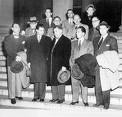
In Oct. 1947 screenwriter Ring Lardner Jr. (1915-2000) refuses to tell the whacked-out House Un-Am. Activities Committee (HUAC), under chmn. (R-N.J.) (1936-50) John Parnell Thomas (1895-1970) if he had ever been a member of the Communist Party, and is indicted for contempt of court for taking the Fifth Amendment, along with the other members of the Hollywood Ten, incl. Alvah Cecil Bessie (1904-85) (Jewish), Herbert J. Biberman (1900-71) (Jewish), Lester Cole (1904-85), Canadian-born dir. Edward Dmytryk (1908-99) (Jewish) (member since 1944), John Howard Lawson (1894-1977) (Jewish) (head of the Hollywood div. of the Am. Communist Party) Albert Maltz (1908-85) (Jewish), Samuel Ornitz (1890-1957) (Jewish), Robert Adrian Scott (1912-73), and screenwriter Dalton Trumbo (1905-76) (member since 1943), and given 1-year prison sentences in Danbury Prison in Conn. and Mill Point Prison in W. Va., served in 1950 after losing their appeals, after which many of them set up a colony in Mexico; Cole, Lawson and Ornitz founded the Writers Guild of Am. in 1933; the Hollywood Blacklist begins, ruining many careers; Dmytryk moves to England and directs two films before getting into financial problems and returning to turn rat; Bertolt Brecht testifies in front of it then returns to Europe; next year John Parnell Thomas is indicted for padding congressional payrolls, takes the Fifth Amendment at his own trial, and is convicted of fraud and given an 18-mo. sentence, resigning from the House on Jan. 2, 1950, and ending up in Danbury Prison with Lester Cole and Ring Lardner Jr. before being pardoned on Dec. 24, 1952 by Pres. Truman; meanwhile the 3-ring circus atmosphere embarrasses HUAC into leaving Hollywood alone until 1951?
On Dec. 24, 1947 20K Communist guerrillas led by Gen. Markos Vafiades proclaim the First Provisional Dem. Govt. of Free Greece, causing the Greek govt. to dissolve the Greek Communist Party and Nat. Liberation Front (EAM) on Dec. 27. On Dec. 30 under Communist pressure, King Michael of Romania abdicates, ending the monarchy (begun 1881), and a Communist-controlled People's Repub. of Romania is proclaimed, with a five (later 17) member presidium (ends Aug. 21, 1965). In 1947 first skyjacking is effected in order to escape from a Communist country to the West, with U.S. approval, resulting in 21 more skyjackings by 1956, 18 to escape Communism; after the rise of Fidel Castro in 1959, the tables get turned?

In Jan. 1948 Chinese "Christian General" Feng Yuxiang (Yu-Hsiang) (b. 1882) is kicked out of the Chinese Kuomintang after going to the U.S. on an official mission to study water conservation methods and issuing soundbytes that Chiang Kai-shek is more flagrant than the Communists in denying the principles of Sun Yat-sen; in Sept. he boards a Soviet vessel in the U.S. vowing to return to China and overthrow the nationalist govt., but dies on the Black Sea in a stateroom fire.

No freedom left, check? On Feb. 23-25, 1948 Soviet-backed Communists stage a coup in Czech., and force Pres. Eduard Benes to sign off on a new predominantly Communist govt.; for the next several mo. the Commies purge all democracy from the country, nationalize industries, and confiscate estates of over 50 hectares; the lit. and artistic output and its tradition goes kaput; on Mar. 10 foreign minister Jan Masaryk (b. 1886) is killed in a fall from his office window, and it is reported as suicide, but but but?; on May 9 a new constitution is adopted for the Czechoslovak Repub., and on May 30 the Commie-dominated Nat. Front wins 1-party elections; on June 7 Eduard Benes (b. 1884) resigns as pres., claiming ill health, and dies on Sept. 3; on June 14 Commie leader (PM since 1946) Klement Gottwald (1896-1953) becomes pres. of Czech. (until Mar. 14, 1953); on June 27 the Social Dem. Party is forced to merge with the Commie Party, and on Oct. 25 forced labor camps are set up for the malcontents.
On Apr. 18, 1948 Italy holds its first nat. elections under the 1947 constitution, with Communists threatening to take control, but the Christian Dems. win an absolute majority, vs. 30.7% for the Popular Front of Socialists and Communists; on May 23 PM Alcide de Gasperi forms a new govt., while the Communist-dominated Federation of Labor (CGIL) stages a gen. strike to protest the wounding of Communist leader Palmiro Togliatti on July 14 by a student, causing the non-Communist elements in CGIL to secede and form a separate trade union on Oct. 18; reconstruction in Italy is easier than most Euro counries since only 15% of its industrial installations, all in the N were destroyed by the war; the postwar economy takes until 1956 to prosper because of the backward agricultural S.
On June 12, 1948 the United Workers' Party in Hungary is created to unite Communists and Social Dems.





At least they pulled the plug in nice weather? On June 16, 1948 the Soviets pull out of the Komandantarie (Allied Council), and on June 17 Britain, France, and the U.S. agree to merge occupation zones and set up a separate West German Repub. under Allied control; on June 18 Ludwig Erhard (1897-1977), new dir. of economics announces a currency reform, introducing the deutschmark on June 20 and stabilizing it with 250M DM in cash, causing frantic Soviet efforts to match them, incl. a currency reform of their own on June 23; on June 24 at 6:00 a.m. after scheduled elections for mayor in Berlin threaten to put Social Dem. leader (former Communist) Ernst Reuter (1889-1953) in power, the Soviets, fearing a reuinified non-Communist Germany blockade all road and rail transportation to the Western Zone of Berlin, and begin the Berlin Blockade (ends 1949), threatening 2.5M citizens with starvation and freezing; on July 1 after lightweight Truman (worrying about being reelected) opts out of sending troops (settling for sending 60 B-29s to England), the Allies respond with a massive airlift called Operation Vittles, under the leadership of Gen. Curtis Emerson LeMay (1906-90) (fresh from destructive WWII air raids over Europe and fire-bombings of Japan), with the assistance of young analyst Robert McNamara; the Germans need 1.5K tons of food and 2.5K tons of fuel per day, and at first the airlift, using Lockheed Sunderland C-47s (3 tons cap.) can only supply 1K tons total to Tempelhof Airport, and the traffic jam results in several accidents, but in July Gen. William H. Tunner (1906-83) (who flew supplies across the Himalayas to anti-Communist forces in China) is put in charge, and increases the efficiency of the airlift to 1.5K flights and 4.5K tons a day, with planes having a 30 min. turnaround complete with pretty frauleins running runway snack bars, and planes not landing on the first pass having to turn around; meanwhile RIAS broadcasts Western propaganda and music, incl. jazz, causing an entire German generation of lazy couch potatoes to turn into lifelong jazz fans; when it is discovered that Germans loathe peanut butter, the pesky Yanks ship them plenty?; meanwhile Italians receiving U.S. food discover the delights of canned fruit cocktail, and it becomes a delicacy; U.S. pilot Gail Halvorsen (1920-) gains fame by dropping candy to Berlin kids, becoming known as "Chocolate Uncle" to fatherless German girl Mercedes Wild (1941-) of Friedenau, who writes to him to drop candies when he spots her garden's white chickens; after failing to spot them, he mails her some, along with a letter; on Aug. 1 the Soviets offer Berliners free food in the Soviet zone, as long as they sell out by registering their ration cards, which few agree to; as winter approaches, the Allies hire 18K workers (half women) and build a second airport in two mo., then begin night flights; on Sept. 6 the East German Communists stage demonstrations over planned elections, and on Sept. 9 after RIAS urges protest 500K Germans mob the Reichstag area and listen to a speech by Reuter, after which some pass the Brandenburg Gate into the Soviet sector and tear down red flags, pissing-off the authorities, causing police to kill a demonstrator; on Nov. 30 the Communists oust the dem. majority in the Berlin muncipal assembly and set up a new admin., claiming authority over all Berlin; on Dec. 5 elections in the Western Zone (boycotted by the Communists) give the Socialists 64.6% of the vote, and Ernst Reuter is elected mayor, but by this time his jurisdiction extends only to West Berlin as the Communists elect Friedrich "Fritz" Ebert Jr. (1894-1979) (son of Social Dem. leader and German pres. #1 Fritz Ebert Sr.) as mayor of East Berlin (until 1965); both East and West Germany decide to stick with black-red-gold flags; on Dec. 28 the U.S., Britain, France and the Benelux countries declare the Internat. Ruhr Authority, eventually admitting West Germany. On June 20 after seeing the horrors of a Communist-backed Hollywood union strike and flopping and becoming a conservative political activist, Ronald Reagan's wife (since 1940) Jane Wyman divorces him.
On June 28, 1948 Stalin kicks the "Tito Clique" from Cominform for doctrinal errors (bucking against Stalin's yoke), and imposes economic sanctions, but stops short of invading Yugoslavia, becoming the first split in the Communist East Bloc; on July 21-29 a Yugoslavia Communist Party congress is held, where Tito denies the charges and receives a vote of confidence, then purges the party of Cominform supporters.



On July 30, 1948 after the purge of anti-Communists from the Smallholders' Party is complete, Hungarian pres. (since 1946) Zoltan Tildy is forced to resign, and is replaced by United Workers' Party chmn. (former Socialist) Arpad Szakasits (1888-1965) (a padded sack of what?) (until Apr. 26, 1950); on Dec. 9 PM Lajos Dinnyes is forced to resign in favor of pro-Communist Istvan Dobi (1898-1968) (until 1952); meanwhile the real power is in the hands of Communist deputy PM Matyas Rakosi (1892-1971), gen. secy. of the Hungarian Communist Party (until 1956); to show that they now have the muscle.



A hero exposes a rat, or it takes a crook to know a crook? In Aug. 1948 the House Committee on Un-Am. Activities (HUAC) begins investigating former FDR aide Alger Hiss (1904-96) after confessed Communist Whittaker Chambers (1901-61) accuses him of being a Communist and passing U.S. State Dept. papers (typed on a typewriter named Woodstock) in 1936-7 to the Soviets in front of HUAC and again in front of Meet the Press, causing Hiss to sue him, while the anti-Communists swarm my-name-sounds-like-a-snake Hiss, launching the political career of Richard Milhous Nixon (1913-94), who gains fame for the Pumpkin Papers (spy notes hidden in a pumpkin in a field) and attempts to backstab Hiss on trivial questions, e.g., "Have you ever seen a prothonotary warbler?"; on Aug. 25 the saga features the first Congressional hearing to be televised; in Aug. 1975 Hiss becomes the first disbarred lawyer to be readmitted; meanwhile in Dec. HUAC pub. Guide to Subversive Orgs. and Pubs., which is revised and expanded in 1951, 1957, and 1961, the last ed. stating the Communist fronts gain support from non-Communist dupes by exploiting their interest in world peace and/or civil rights, naming the Civil Rights Congress; FBI dir. J. Edgar Hoover furnishes each FBI field office with 2+ copies.
On Dec. 10, 1948 the U.N. adopts the Universal Declaration of Human Rights, partially formulated by Eleanor Roosevelt, but it is not given the legal force of a treaty until 1966; it declares that everyone has the right to an adequate standard of living incl. satisfactory housing; the first Internat. Human Rights Day; too bad, Communist nations abstain, as does the kingdom of Saudi Arabia, and in 1981 the Repub. of Iran calls it a secular interpretation of Judeo-Christian tradition incompatible with Sharia, after which in 2000 the 57-nation Org. of the Islamic Conference (OIC) votes to endorse the Cairo Declaration on Human Rights in Islam, which states that people have "freedom and right to a dignified life in accordance with the Islamic Sharia", after which in July 2001 the European Court of Human Rights rules that "the institution of Sharia law and a theocratic regime were incompatible with the requirements of a democratic society".

Join us for lots of laughs at Atheist HQ in Hungary? On Dec. 26, 1948 after religious orders are banned, Hungarian Roman Catholic Cardinal Jozsef Mindszenty (1892-1975) and other dignitaries are arrested on treason and conspiracy charges by the Communists as part of their atheistic wave of persecution of the Mean Old Church; he had already been arrested on Nov. 26, 1944 and released in Apr. 1945, but this time it's meant to be permanent; next Feb. 8 after releasing a "Yellow Book" listing his coerced confessions, Mindszenty is sentenced to life in prison for treason by the Commies, causing him to seek asylum in the U.S. embassy in vain; on Feb. 12 Pope Pius XII excommunicates all persons involved in his trial and conviction; he is not released from priz until Oct. 30, 1956.
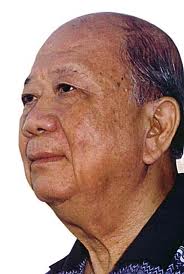
In 1948 the kingdoms of the Malay Peninsula, incl. Johore, Melaka (Malacca), and the island of Penang unite to form the Federation of Malaya, under British protection; Singapore, North Borneo, and Sarawak become separate crown colonies; the Malayan Communist Party begins a guerrilla uprising called the Malayan Emergency (ends 1960), led by Chin Peng (1924-), who had been given an OBE by the British govt. during WWII.
In 1948 Operation Gladio (Lat. "gladius" = sword) , with the Latin motto "Silendo Libertatem Servo" (Silently I Serve Freedom), a NATO "stay behind" force to counter possible invasion by Warsaw Pact Forces is founded by the Clandestine Committee of the Western Union, and eventually overseen by the Supreme HQ Allied Powers Europe (SHAPE) (ends 1982); in 1964 it begins false flag ops to frame Commies for terrorist acts?
On Jan. 1, 1949 hurray for Czech. as it gets its first Communist 5-year plan started, and Slovakia and the other provinces are officially abolished.



The Chinese Civil War ends with Mao painting the town Red? On Jan. 1, 1949 Peking (renamed Beijing next year) is taken by the People's Liberation Army without a fight, thanks to the work of Chinese Communist gen. Peng Zhen (1902-97); the Kuomintang collapses, ending the Chinese Civil War (begun Jan. 1946), and by Dec. Gen. Chiang Kai-shek flees with his 600K-man army to Taiwan, vowing to return one day; on Aug. 28 the U.S. State Dept. produces a White Paper on China, claiming that the U.S. had gone as far as an ally could go and that it's all Chiang Kai-shek's fault, becoming the last non-muddled report the U.S. State Dept. produces?; on Sept. 21 prosperous Chinese peasant's son Mao Tse-tung (1893-1976) proclaims the creation of the People's Repub. of China (PRC), with Zhou En-lai (1898-1976) as PM, finally adopting the Gregorian Calendar; on Oct. 1 Mao raises its very very red flag in a ceremony attended by umpteen zillions in Tiananmen Square, who believe this to be the 2nd greatest event in human history after the 1917 Bolshevik Rev. as they throw off the humiliating yoke of imperialism and capitalism to become slaves of the state?; on Oct. 2 the Soviet Union formally recognizes the PRC; on Dec. 2 Chiang Kai-shek proclaims Taipei, Taiwan as the temporary capital of "real" China; as the years go by, Mao centralizes absolute power to himself, becoming a de facto emperor - the more China changes, the more it stays the same?

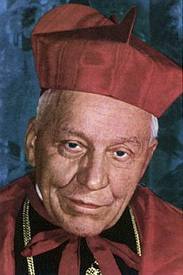

On Jan. 25, 1949 Moscow announces the formation of a Council for Mutual Economic Assistance (Comecon), to incl. reps. from all major East European Communist nations except you-go-your-own-way Yugoslavia in an Eastern Block EEC. On Mar. 2 U.S. defense secy. (since 1944) James Vincent Forrestal (b. 1892), a strong anti-Communist and critic of Stalin resigns, moves to Fla., and ends up in Bethesda Naval Hospital; on May 22 after coining the immortal soundbyte "The Russians are coming, the Russians are coming", he falls from a 16th story window, an apparent suicide, on the day of his scheduled release? - a Secret Service "sanction"? On Mar. 19 the Soviet-controlled People's Council of East Germany approves a draft constitution for a Dem. Repub. of Germany (GDR), and calls for the election of a People's Congress. On May 15 a gen. election in Hungary gives the Communist-controlled Nat. Independence Front a complete V. In early June the Czech. govt. founds a Catholic Action Committee to take action to do away with the Catholic Church, targeting Czech archbishop (cardinal in 1965) Joseph Beran (1888-1969) and his hierarchy, causing the Vatican on June 20 to excommunicate all supporters of Communism in the country, which the govt. shrugs off as it assumes full control of church affairs on Oct. 14 and requires all clergy to swear an oath of loyalty to the state, which most lower clergy comply with. On June 16 Communist foreign minister Laszlo Rajk (1909-49) of Hungary is arrested and executed for criticizing Stalin's attempts to run the country, after which Matyas Rakosi begins a Stalinist purge in Hungary, expelling 200K members from the Hungarian Workers' Party, imprisoning 100K, and executing 2K. On June 30 PM Themostokles Sophoulis of Greece dies, and is succeeded by Alexander Diomedes, who kicks up the war against the Commies, causing the remnants of the defeated Dem. Army to flee to Albania in Aug., and the remaining rebels to be defeated on Oct. 16 with U.S. aid, helped by the closing of the Yugoslav frontier by Tito after quarreling with the Cominform; the Greek Communist Civil War (begun 1946) ends. In June-July the Soviet satellites break off all economic relations with upstart Yugoslavia, causing Tito to conclude economic agreements with the West, incl. the U.S. On July 13 the Vatican excommunicates all Roman Catholics who follow or teach the Communist doctrine, and denies sacraments to all who "consciously and freely" support Communist activities. On Aug. 7 Hungary proclaims a new 1949 Hungarian Constitution based on the Soviet model; on Aug. 23 a new pres. council replaces the office of pres., with Arpad Szakasits as chmn. (until 1950).


On Oct. 7, 1949 the German Dem. Repub. of East Germany is declared, and on Oct. 11 (without an election) Wilhelm Pieck (1876-1960) becomes pres. #1 (until 1960), and Social Dem. Otto Grotewohl (1894-1964) becomes PM #1 (until 1964) as a figurehead for a Communist-dominated cabinet; the Soviet military govt. is replaced by the Soviet Control Commission (until 1953); the agrarian economy is no match for industrializing West Germany, but holds its own among the Soviet satellites? On Oct. 9 gen. elections in Austria see former Nazis rally behind the new Union of Independents and win seats from the People's Party and the Socialists, while the Communists remain in the mud; the ruling coalition stays in place.




On Jan. 24, 1950 German-born British physicist Klaus Emil Julius Fuchs (1911-88) gives himself up to the War Office in London and confesses to being a Soviet spy for seven years, passing data on U.S. and British nukes; he is charged on Feb. 2, and after a 90-min. trial is convicted on Mar. 1, receiving only a 14-year sentence because the Soviet Union is still classified as a "friendly nation"; on Mar. 7 the Soviets deny that he was a Soviet spy, after which German-born U.S. physicist Hans Albrecht Bethe (1906-2005) comments that Fuchs was the only physicist he knew who truly fu, er, changed history; after ratting him out, his U.S. confederate, Russian-Jewish-Swiss-Am. chemist Harry Gold (1910-72) is also convicted, and sentenced next year to 30 years, then paroled in May 1965, his testimony resulting in the arrest of Julius and Ethel Rosenberg, along with David Greenglass (1922-); Fuchs is released on June 23, 1959, and moves to East Germany, becoming a big man in the East German Communist govt., giving info. to Chinese scientists which they use to develop their A-bomb.

In Jan. 1950 the Repub.-controlled Saturday Evening Post pub. Why We Lost China, by Am. journalist (closet gay) Joseph Wright Alsop V (1910-89), which cements the conspiratorial mind-set of the Repub. Party by blaming the State Dept. for losing "our" China to Commies, launching the Second Red Scare (ends 1960); too bad, Joseph McCarthy comes along, goes off the deep end and finally pisses-off Alsop by going after his friend Dean Acheson?
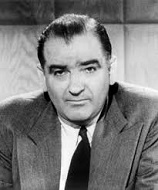
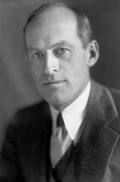




Figaro, Figaro, or, The definition of Cheesehead? On Feb. 9, 1950 rookie Rep. Wisc. U.S. Sen. Joseph Raymond "Joe" McCarthy (1908-57) bursts into nat. prominence with a Wheeling, W. Va. Lincoln Day Speech (titled "Enemies from Within") to the Ohio County Women's Repub. Club during which he holds up a piece of paper, saying: "While I cannot take the time to name all the men in the State Department who have been named as members of the Communist Party and members of a spy ring, I have here in my hand a list of two hundred and five (205) that were known to the Secretary of State as being members... and who nevertheless are still working and shaping policy"; on Feb. 9 he calls U.S. secy. of state Dean Acheson (1893-1971) a "pompous diplomat in striped pants", and calls on Pres. Truman to furnish a list of State Dept. employees considered bad security risks, and to revoke his pres. order of 3-13-48; on Feb. 20 he changes the magic number of names to 81, and when Sen. (D-Ill.) Scott Wike Lucas (1892-1968) demands that he makes them public, he refuses, saying: "If I were to give all the names involved, it might leave a wrong impression. If we should label one man a Communist when he is not... I think it would be too bad"; in Feb. the Tydings Committee (Subcommittee on the Investigation of Loyalty of State Department Employees) is formed to look into McCarthy's charges, chaired by Sen. (D-Md.) (1927-51) Millard Evelyn Tydings (1890-1961), and this time McCarthy names names, incl. China expert Owen Lattimore (1900-89), astronomer Harlow Shapley (1885-1972), jurist Philip Caryl Jessup (1897-1986), jurist Dorothy Kenyon (1888-1972), State Dept. diplomat (to China) John Stewart Service (1909-99), political scientist Frederick Lewis Schuman (1904-), State Dept. official Haldore Hanson (1912-92), Spanish composer Gustavo Duran Martinez (1906-69) (friend of Ernest Hemingway in Cuba), and U.S. Navy civilian employee (who helped scientists escape from Communist Hungary) Stephen Brunauer (1903-86); on Mar. 29 a cartoon in the Washington Post by Herblock (Herbert Lawrence Block) (1909-2001) coins the term "McCarthyism"; on May 4 Truman relents, releasing the files on the 81 cases McCarthy still claims he has, which McCarthy then claims have been stripped and skeletonized; after he lucks out and the stupid State Dept. fails to prevent the Korean War (or the Chinese from entering it), on Sept. 23 McCarthy claims that the Korean and Indochinese conflicts were planned in the 1945 Yalta Conference by Roosevelt and Stalin; the real reason Stalin approved them was his development of nukes, which neutralized the U.S.?; the Tydings Committee ends up in a partisan split, and the Dem. majority claims that McCarthy is full of it, to which the Repubs. respond that the Dems. are guilty of a whitewash; after three votes, all along partisan lines, the Senate also deadlocks; meanwhile, careers are ruined; John S. Service is fired but reinstated by the U.S. Supreme Court in 1957; Jessup is appointed by Pres. Truman as U.S. delegate to the U.K. next year, but the Senate refuses to approve him, after which Truman appoints him during their recess, after which JFK appoints him to the Internat. Court of Justice in 1961 (until 1970), causing him to become a legal folk hero, and the Philip C. Jessup Cup to be named in his honor; after McCarthy smears his colleague Gen. George C. Marshall as a Comsymp (Commie sympathizer), Gen. Dwight David Eisenhower gets permanently pissed-off at him, later fighting the influence of the John Birch Society on the Repub. Party.
On Feb. 14, 1950 Sir Winston Churchill gives an election speech in Edinburgh, proposing "a parley at the summit" with Soviet leaders, coining the term "summit" for a top-level meeting; on Feb. 23 gen. elections in Britain give a V to Clement Attlee's Labour Party, but Churchill's Tories gain seats in the Commons. On Mar. 25 gen. elections in Yugoslavia give an overwhelming V to Tito and his People's Front candidates, allowing Tito to push his Titoism brand of anti-Soviet Communism at will, going on to develop rapprochement with the West, oppose Chinese intervention in Korea, resume diplomatic relations with Greece, and thaw relations with Italy - he's teetering on the edge? On Apr. 10 after stopping two rightist coup plots and announcing in Feb. the discovery of a Red plot in La Paz, the Bolivian govt. outlaws the Communist Party and "all its activities and subsidiary organizations"; meanwhile tin prices decrease, threatening the economy.

On June 25, 1950 North Korean forces (with permission from Stalin) cross the 38th parallel and invade South Korea, starting the Korean War (ends 1953); China assists the North, while U.N. troops, led by U.S. Gen. Douglas MacArthur (1880-1964) aid the South; on June 25 the U.N. Security Council is called by the U.S., and the Soviet delegate doesn't attend, making it possible for them to call for the withdrawal of the North Korean troops and a ceasefire; on June 27 the U.N. Security Council calls on U.N. members to assist South Korea and invokes military sanctions, causing Truman to order the U.S. Air Force and Navy into the Korean conflict, and orders the U.S. Seventh Fleet into the Straits of Formosa to block an invasion of China by Formosa (freeing the Chinese to build up forces to cross the Yalu River into North Korea later?); on June 28 Seoul is captured by the North Koreans; on June 30 the first U.S. ground forces are committed; on July 7 the Security Council authorizes a unified U.N. command in Korea under U.S. leadership, and the hastily-formed U.S. Eighth Army backed by 20 other U.N. members takes the North Koreans on; MiG Alley in the Yalu River Valley in NW Korea becomes the scene of a 10-1 kill ratio for U.S. planes; in the opening months of the war, the South Korean military and police execute 4.9K pro-Communist civilians who signed up for reeducation classes, and don't admit it until Nov. 2009 - do you know why we're here? To jack my price up?
On June 26, 1950 South Africa passes the Suppression of Communism Act, effective July 17; repealed on July 2, 1982.
On June 26, 1950 the Congress for Cultural Freedom (CCF) is founded in the U.S. with CIA funds to promote Am. abstract art, jazz, etc. in the Cold War against the Soviet Union.
On Sept. 12, 1950 Communist riots erupt in Berlin, causing West Germany to decide to purge Communist officials on Sept. 19.
On Oct. 15, 1950 elections in East Germany bring a surprise V for the official list of Communist candidates, with only 99.7% of the vote? On Oct. 20, 1950 Australia passes the Communist Party Dissolution Act; the Australian supreme court strikes it down on Mar. 9, 1951.

United Fruit cracks the white in Guatwoman? On Nov. 10-20, 1950 after Guatemala's 2nd universal suffrage election, leftist Arevalo supporter Col. Jacobo Arbenz Guzman (Guzmán) (1913-71) is elected pres. of Guatemala by 60%, taking office next Mar. 15 in the country's first peace transfer of power (until June 27, 1954), and begins land reforms to increase the proportion of the pop. controlling arable land (at this point 2% control 72%); too bad, he begins appropriating the plantations of the United Fruit Co., causing the CIA to begin its usual anti-Commie plotting in this yes we have bananas today republic, setting up Operation PBFORTUNE to out him if he's deemed a Communist. On Dec. 16 Pres. Buck-Stops-Here Truman proclaims a Nat. State of Emergency in order to fight "Communist imperialism", and the same day the U.S. Office of Defense Mobilization is established. In 1950 the rise of Communism in Japan results in a govt. crackdown and the creation of the 75K-man Nat. Police Reserve, which is seen by some as the beginnings of a new Japanese army; in Sept. more than 10K prominent wartime leaders are rehabilitated overnight and released in an effort to bolster the country against the Commies; meanwhile the Korean War boosts the Japanese economy with exports to the U.S. military. In 1950 a fiscal crisis in the Philippines causes the Central Bank to borrow heavily to pay govt. payrolls; meanwhile defense secy. Ramon Magsaysay arrests the leaders of the Philippine Communist Party, then works with the army to insure that the upcoming 1951 pres. election will be clean, earning brownie points - or making it appear that way, so he can fix the 1953 election for himself?

In 1950 Roman Catholic archbishop Fulton John Sheen (1895-1979) of Rochester, N.Y. begins hosting the TV show Life Is Worth Living on the DuMont TV Network, switching to ABC-TV in 1951, reaching audiences of up to 30M with messages about theology and anti-Communism, then going into syndication from 1961-8, becoming TV's first major religious broadcaster; in Feb. 1953 he denounces the regime of Joseph Stalin, comparing him with Julius Caesar, and concluding "Stalin must one day meet his judgment"; he eventually converts Heywood Broun, Clare Booth Luce, and Henry Ford II to Roman Catholicism.
In 1950 Counterattack, a right-wing journal pub. by "Am. Business Consultants" pub. Red Channels: The Report of Communist Influence in Radio and Television, which lists 151 intellectuals, entertainers and journalists incl. Leonard Bernstein, Lee J. Cobb, Aaron Copland, Jose Ferrer, John Garfield, Ruth Gordon, Ben Grauer, Dashiell Hammett, E.Y. Harburg, Lillian Hellman, Judy Holliday, Lena Horne, Langston Hughes, Burl Ives, Sam Jaffe, Gypsy Rose Lee, Burgess Meredith, Zero Mostel, Dorothy Parker, Edward G. Robinson, Pete Seeger, William L. Shirer, Louis Untermeyer, and Orson Welles, creating a de facto industry blacklist, using the for-profit corp. AWARE Inc. as a clearance service to check for Communist sympathies.
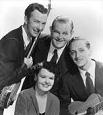
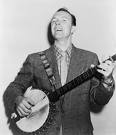
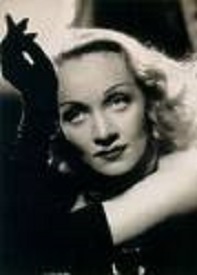
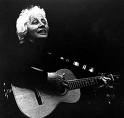
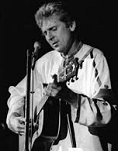
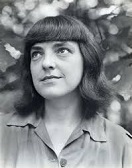
Speaking of Communism, in 1950 the Greenwich Village folk music quartet The Weavers, incl. Peter "Pete" Seeger (1919-2014), Ruth Alice "Ronnie" Gilbert (1926-2015), Lee Hays (1914-81), and Fred Hellerman (1927-) (who later produces Arlo Guthrie's album "Alice Restaurant") have a #1 U.S. hit with Goodnight, Irene by Leadbelly. Seeger's banjo carries the legend "This Machine Surrounds Hate and Forces It to Surrender". Too bad in 1950 the right-wing journal Counterattack pub. Red Channels: The Report of Communist Influence in Radio and Television, listing 151 intellectuals, entertainers and journalists incl. Leonard Bernstein, Lee J. Cobb, Aaron Copland, Jose Ferrer, John Garfield, Ruth Gordon, Ben Grauer, Dashiell Hammett, E.Y. Harburg, Lillian Hellman, Judy Holliday, Lena Horne, Langston Hughes, Burl Ives, Sam Jaffe, Gypsy Rose Lee, Burgess Meredith, Zero Mostel, Dorothy Parker, Edward G. Robinson, Pete Seeger, William L. Shirer, Louis Untermeyer, and Orson Welles, creating a de facto industry blacklist, using the for-profit corp. AWARE Inc. as a clearance service to check for Commie sympathies, and forcing The Weavers to disband in 1951 after releasing Wimoweh/ The Lion Sleeps Tonight, a cover of the 1939 song "Mbube" by Zulu musician Solomon Linda (1909-62) and the Evening Birds; too bad, they don't pay him proper royalties, causing him to lose millions until his family begins suing in 2004. On Aug. 18, 1955 Seeger refuses to take the Fifth Amendment in front of the House Un-Am. Activities Committtee (HUAC), and stood on the First Amendment, saying "I am not going to answer any questions as to my association, my philosophical or religious beliefs or my political beliefs, or how I voted in any election, or any of these private affairs. I think these are very improper questions for any American to be asked, especially under such compulsion as this." On July 26, 1957 the U.S. House of Reps votes 373-9 to cite Seeger, Arthur Miller, and five others with contempt of Congress for failing to cooperate with HUAC. In 1955 the experience causes Seeger to begin writing Where Have All the Flowers Gone? after reading Mikhail Sholokhov's 1928 novel "And Quiet Flows the Don", with verses added in May 1960 by Joe Hickerson, who is given 20% of the royalties; in 1961 the Kingston Trio releases their big hit Where Have All the Flowers Gone?, thinking it's an anon. folk song; in 1962 Marlene Dietrich (1901-92) releases Where Have All the Flowers Gone?, a cover of the 1961 Kingston Trio hit, which becomes a big hit in Germany in English and German as "Sag Mir, Wo die Blumen Sind"; she goes on perform it in Israel, breaking the taboo of using German publicly there; Seeger finally releases his own version in 1964. In Mar. 1961 they finally convict him and sentence him to 10 years, but he gets his conviction overtured in May 1962, going on to write or co-write (with Lee Hays) hit songs "If I Had a Hammer", and "Turn, Turn, Turn!" Meanwhile in 1960 he is barred by the school board of San Diego, Calif. from performing at a high school unless he signs an oath that he won't promote a Communist agenda or attempt to overthrow the govt., and after he refuses, the ACLU obtains an injunction forcing the concert to be held; they finally apologize in Feb. 2009 after he finally officially quits the CPUSA, with the soundbyte: "I should have asked to see the gulags when I was in the U.S.S.R. [in 1965]", and writes Big Joe Blues condemning Stalin, also uttering the soundbyte: "I certainly should apologize for saying that Stalin was a hard driver rather than a very cruel leader"; meanwhile he utters the soundbytes: "Some may find [my songs] merely diverting melodies. Others may find them incitements to Red revolution. And who will say if either or both is wrong? Not I", and "I like to say I'm more conservative than Goldwater. He just wanted to turn the clock back to when there was no income tax. I want to turn the clock back to when people lived in small villages and took care of each other", and "I still call myself a Communist, because Communism is no more what Russia made of it than Christianity is what the churches make of it." When will we ever learn, when will we ever learn? Go figure, in 1962 German film star Marlene Dietrich (1901-92) records Seger's song Where Have All the Flowers Gone?, which becomes a big hit in Germany in English and German as "Sag Mir, Wo die Blumen Sind"; she goes on to perform it in Israel, breaking the taboo of using German publicly there - quit stealing my style, bitch? In 1963 Seeger et al. organize a concert at Carnegie Hall in New York City featuring the Freedom Singers to benefit the Highlander Folk School in New Market, Tenn., dir. by folk singer Guy Hughes Carawan Jr. (1927-2015), bringing the anthem We Shall Overcome, written in 1947 by white Spadra, Ark.-born Highlander student Zilphia Horton (Zilphia Mae Johnson) (1910-56) to public attention. In 1963 he also releasees the hit single Little Boxes, written by Malvina Reynolds (1900-78). On Mar. 8, 1965 the U.S. Supreme Court in U.S. v. Seeger (named for Daniel Andrew Seeger, not singer Peter Seeger, although it should be?) unanimously expands the definition of conscientious objector to people who are not members of any religious denomination, such as agnostics and atheists, the test being a "sincere and meaningful belief which occupies in the life of its possessor a place parallel to that filled by the God of those who had been granted the exemption from the military draft." In 1966 Seeger founds Hudson River Sloop Clearwater to fight pollution in the Hudson River, and in 1969 launches the sloop Clearwater, with crew incl. singer Don McLean; the Hudson River Shad catch fell to 50 tons in 1966, most of it tainted, causing the Dept. of Interior Bureau of Commercial Fisheries to stop keeping records of it; meanwhile the U.S. becomes the last major nation to abandon the 3-mi. limit for fishing, extending it to 12 mi.; in 1976 they upped it to 200 mi. Also in 1966 Seeger releases the album Dangerous Songs!?, which features the track Beans in My Ears (by Len Chandler), containing the lyric "Mrs. Jay's son Alby has beans in his ears", which the anti-war crowd took to mean LBJ. In 1967 Seeger and Hector Angulo (1932-) releases the single Guantanamera, with lyrics taken from an 1895 poem by Cuban revolutionary Jose Marti (1853-95). In 1967 Seeger releases the single Waist Deep in the Big Muddy, with the lyrics: "Every time I read the paper, those old feelings come on/ We are waist deep in the Big Muddy/ and the big fool says to push on." Too bad, the song is cut from the Sept. 1967 "Smothers Brothers Comedy Hour", then reinstated in Jan. 1968, probably helping the network decide to cancel the show.
On Jan. 1, 1951 the lucky govt. of Communist Romania launches a Soviet-style 5-year plan designed to shift the economy from an agricultural to industrial basis, incl. construction of a 42-mi. canal linking the Danube River and Black Sea; too bad that peasants resist collectivization, while industrial workers become known for low productivity; in Jan. the govt. institutes a monetary reform which robs, er, reduces the value of currency, and in May it issues a decree requiring peasants to sell their crops to the state.
On Jan. 30, 1951 Belgium bans Communists from making speeches on radio. In 1951 Royal Prince Souphanouvong of Laos, half-brother of Prince Souvanna Phouma organizes the Pathet Lao ("Land of Laos") Communist independence movement in North Vietnam.
On June 4, 1951 the U.S. Supreme (Vinson) Court rules by 6-2 Dennis v. U.S. to uphold the 1940 U.S. (Alien Registration) Smith Act and the conviction of 11 Communists because First Amendment protection doesn't extend to a plot to overthrow the govt.; too bad, they didn't actually plot, only preach, causing dissenting Justice Hugo Black to utter the soundbyte: "These petitioners were not charged with an attempt to overthrow the Government. They were not charged with overt acts of any kind designed to overthrow the Government. They were not even charged with saying anything or writing anything designed to overthrow the Government. The charge was that they agreed to assemble and to talk and publish certain ideas at a later date: The indictment is that they conspired to organize the Communist Party and to use speech or newspapers and other publications in the future to teach and advocate the forcible overthrow of the Government. No matter how it is worded, this is a virulent form of prior censorship of speech and press, which I believe the First Amendment forbids. I would hold 3 of the Smith Act authorizing this prior restraint unconstitutional on its face and as applied"; softened in Yates v. U.S. (1957).
On June 4, 1951 the U.S. Supreme (Vinson) Court rules 7-2 in Garner v. Board of Public Works that a municipal loyalty oath covering the previous five years which was enacted more than five years previous is not an ex post facto law or a bill of attainder.

On Jan. 30, 1952 U.S. Navy Adm. Lynde Dupuy McCormick (1895-1956) is named Supreme Allied Commander of Armed Forces in the Atlantic (SACLANT) (until 1954), opening a new HQ in Norfolk, Va. on Apr. 10, becoming equal in rank to the SACEUR, with the largest naval command given a single person since Christopher Columbus was appointed grand adm. of the Ocean Seas; on Sept. 20 NATO holds Operation Mainbrace, its first major naval exercises, commanded jointly by SACEUR and SACLANT, with 160 Allied ships testing their ability to support a Euro land battle should the Soviet Union invade West Germany, Denmark, and Norway; after it leaves something to be desired, Operation Mariner is held on Sept. 16-Oct. 4, 1953, involving 300 ships, 1K planes, and 500K men from 9 navies, showing the Soviets that NATO shouldn't be messed with.
On Feb. 1, 1952 U.N. Gen. Assembly Resolution 505 is adopted 25-9-24 by the Sixth Session of the U.N. Gen. Assembly after the Repub. of China (Taiwan) complains, condemning the Soviet Union's violations of the Aug. 14, 1945 Sino-Soviet Treaty of Friendship and Alliance and the U.N. Charter by assisting the Chinese Communist Party during the Chinese Civil War of Mar. 31, 1946 - May 1, 1950.

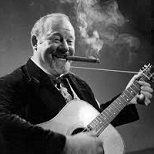
In Mar. 1952 after refusing to do so in Jan., then seeing his sure-thing 12-nomination film "A Streetcar Named Desire" get snubbed as a warning, Greek-Am. "theme of the damaged male" movie dir. Elia Kazan (1909-2003) (a Communist Party member in 1934-6, who broke with it and claims to detest it) names eight names before the House Un-American Activities Committee (HUAC), incl. Clifford Odets and Paula Strasberg, drawing intense fire from his colleagues even though the names had been named before, causing him (at the urging of wife Molly Day Thatcher Kazan) to take out a wordy self-serving newspaper ad in the New York Times two days later defending his actions and calling for others to name names, which only increases bitter feelings and makes him the outcast Hollywood celebrity rat fink; his bosom buddy Arthur Miller doesn't speak to him again for 10 years, while attacking him through his plays, causing him to counterattack through his films; meanwhile Marilyn Monroe, who was Kazan's mistress when she met the unhappily married Miller in 1951 waits in the wings for his inevitable divorce?; later allegations that he got a $500K contract from a major studio as a payoff for finking prove untrue?; meanwhile Santa Claus clone Burl Ives (1909-95) is dragged before whacked-out HUAC, and names fellow folk singer Peter Seeger to save his own career, after which they don't reunite onstage for 41 years - there's nothing wrong with a little confidence in your line of work? On Oct. 1 gen. elections in Japan give the conservative Liberal Party of PM Yoshida Shigeru 240 out of 466 seats in the Diet; the Communists win no seats. On Oct. 5 the first All-Union Communist Party Congress since 1939 convenes in Moscow; the Politburo and Orgburo are replaced by the Presidium (Praesidium) of the new Central Committee (until 1966), and a new 5-year plan is announced - more bureaucratic reports to falsify? On Oct. 16 Charles Chaplin's Limelight debuts, starring Chaplain as failing comedian Calvero, and Claire Bloom as fading ballet dancer Terry; also features Buster Keaton; incl. the song Eternally (Terry's Theme); too bad, while attending the London debut Chaplin is accused of "Communist sympathies" by J. Edgar Hoover and barred from reentering the U.S., after which he relocates to Vevey, Switzerland to avoid English taxes, sending his wife Oona back to the U.S. to close out his assets and sew $1K bills into the lining of her mink coat, after which she renounces U.S. citizenship. In Nov. 14 mostly Jewish Czech Communists incl. Rudolf Slansky are sentenced to death for treason and Zionism and/or belonging to the Jewish Antifascist Committee; Stalin's death next Mar. saves them.
On Dec. 15, 1952 the U.S. Supreme (Vinson) Court rules 8-0 in Wieman v. Updegraff that an Okla. loyalty oath violates the Due Process Clause of the 14th Amendment because it does not give individuals the opportunity to abjure membership in subversive orgs., with Justice Tom C. Clark writing the soundbyte: "Membership may be innocent"; Juston Robert H. Jackson recuses himself.


In 1952 Romanian dictator Gheorghe Gheorgiu-Dej (1901-65) purges Jewish rival, foreign minister Ana Pauker (Hannah Rabinsohn) (1893-1960) and her Soviet (Muscovite) faction, and consolidates his power, remaining a loyal puppet of Stalin, then later under Khrushchev becoming his own man. Communist Poland adopts a 1952 Polish Constitution similar to the Soviet Union's. Pres. Eisenhower meets with a group of foreign Muslims incl. Muslim Brotherhood leader Said Ramadan (1926-95), courting them as a counterweight against Soviet Communism and placing them on the CIA payroll; in early 1959 West Germany refuses to help - big mistake?

On Jan. 21, 1953 Charles Sinclair Weeks (1893-1972) is appointed U.S. commerce secy. (until Nov. 10, 1958), immediately getting involved in the Russian Butter Scandal, which began last year when future Archer Daniels Midland CEO (former Cargill salesman) Dwayne Orville Andreas (1918-) of Mankato, Minn. agreed to sell Moscow 75K tons of butter and an equal amount of cottonseed oil; although both Ike and Sen. Joseph McCarthy approve the deal, U.S. anti-Communists attack it, claiming that Russian housewives who have been paying $3.25 (13 rubles) a pound for butter will be able to get it for 50 cents a pound, while Americans must pay 80 cents, causing weak Weeks to nix an export license, after which the Russians buy cottonseed oil from Rotterdam, and the U.S. butter, which costs 67 cents a pound to store ends up going rancid and is made into soap - let them eat cottonseed cake? On Jan. 26 Walter Ulbricht announces that East German agriculture will be collectivized - big surprise? On Jan. 30 Pres. Eisenhower announces that he will pull the Seventh Fleet out of Formosa to permit the Nationalists to attack Communist China. On Feb. 2 Ike's First State of the Union Address admits that "no single country, even one so powerful as ours, can alone defend the liberty of all nations threatened by Communist aggression from without or subversion from within", and calls for mutual cooperation. On Feb. 21 the Soviets cause a purge of 30 Jewish Communist leaders in Hungary. On Feb. 25 a plan is announced in Guatemala to expropriate half of the United Fruit Co.'s 500K acres, only 15% of which are under cultivation, but despite this, on Oct. 14 the U.S. State Dept. declares that Guatemala is "openly playing the Communist game", and refuses cooperation, instead sending the CIA to help the United Fruit Co. overthrow Arbenz. In Feb. U.S. Pres. Eisenhower removes the U.S. Seventh Fleet from the straits between Formosa (Taiwan) and Communist China, freeing Formosa to invade or bomb the mainland; Chicken Kai-shek chooses la bomba.




Ding dong the witch is dead? Or don't stop believing? On Mar. 5, 1953 the 25-year (since 1928) assassination-attempt-free reign of Joseph Stalin ("Koba") (b. 1879) is ended by his death at age 73 (6 weeks after the birth of TLW), four days after having a stroke in his Kremlin apt. during an all-night dinner with Beria, Malenkov, Bulganin, and Khrushchev which paralyzes the right side of his body; his death is not announced until Mar. 6 (after the piranhas feed); on Mar. 6 he is succeeded as PM by WWII aircraft and tank production chief Georgi (Georgy) Maximilianovich Malenkov (1902-88) (until 1958), with secret police chief Lavrenti Pavlovich Beria (1899-1953) as deputy PM (until July 10); marshal Klimenti Efremovich Voroshilov (1881-1969) becomes pres. (until 1960); on Mar. 14 Nikita Sergeyevich Khrushchev (1894-1971) replaces Malenkov as first secy. of the Soviet Communist Party, then moves up to head of the Central Committee on Sept. 7 after Beria is out of the way; Stalin leaves a list of names, with the handwritten note "Execute everyone"; exiled Chechens are allowed to return home, and sick and disabled Korean War POWs are exchanged following Stalin's funeral; happy Eastern Europeans begin a de-Stalinization agitation - they'll be baaack?

On Mar. 16-21, 1953 Tito visits Britain, and on Mar. 31 announces that PM Winston Churchill as promised to protect Yugoslavia in return for his pledge of resistance to any aggression. On Mar. 21 Antonin Zapotocky (1884-1957) is elected pres. #6 of the Czechoslovak Repub. (until Nov. 13, 1957) after Klement Gottwald dies on Mar. 14 in Prague of pneumonia contracted while attending Stalin's funeral; not that anybody misses this Stalin zock puppet who purged 180 party officials Stalin-style with show trials (Gottwald not Zapotocky).


In Apr. 1953 British Guiana (Guyana) is granted a new 1953 Guyanan Constitution, and East Indian dentist (son of a sugar plantation foreman) Cheddi Berret Jagan (1918-97) of the leftist People's Progressive Party (PPP) (founded 1950) is elected PM, ruling with his Chicago-born Jewish wife (related to Julius and Ethel Rosenberg, hence a Marxist or Zionist plot?) Janet Rosalie Jagan (nee Rosenberg) (1920-) and Linden Forbes Sampson Burnham (1923-85); too bad, on Oct. 6 after strikes and demonstrations Britain sends warships to prevent a suspected Communist coup, and deposes Cheddi and suspends the new constitution on Oct. 9, charging that he and his party had Soviet ties and "were under the complete control of a Communist clique"; Jagan is jailed for 6 mo.

On June 14, 1953 Yugoslavian pres. Tito announces that the Soviet Union has requested resumption of normal diplomatic relations, calling it a "great victory". On June 16 a govt. announcement of new norms for construction workers leads to a strike of East Berlin workers dissatisfied with economic (read low wages and bad working conditions) and political conditions (read Stalin), escalating on June 17 to a riot of 30K workers, causing the Soviet Union to send tanks and troops; after the rioters throw stones at Russian tanks, the Soviets respond by mowing them down with machine guns, killing 25, and Eric Honecker threatens and delivers a "Peking Solution", later executing 600; on June 22 the govt. offers the Krauts, er, fellow Communist comrades a 10-point reform program; the deep divisions that later cause the breakup of Soviet Communism are exposed, the illusions about Communism being a workers' paradise are kaput, and people begin leaving the country in huge numbers any way they can - they couldn't have used water cannons? On July 2 the Communist govt. of Hungary resigns; on July 3 parliament reelects Istvan Dobi as pres. and Imre Nagy as vice-pres.; on July 4 Matyas Rakosi resigns as a concession to farmers and consumers, and Imre Nagy (1896-1958) becomes PM of Hungary (until 1955). On July 10 Pravda announces that Lavrenti P. Beria (b. 1899) of the Soviet Presidium (former NKVD secret police head) has been ousted and arrested, after which he is secretly tried and executed along with six others, which is not officially announced until Dec. 23 - not a wet eye in the house?

On July 26, 1953 former atty. (never really tried out as a ML pitcher?) Fidel Alejandro Castro Ruz (1926-2016) stages the 26th of July Movement, leading 160 starry-eyed rebels in a desperate, ill-equipped attack on Batista's Moncada Army Barracks in Santiago de Cuba on Sierra Maestra in E Cuba, losing 69 (most) of his men (vs. 19 soldiers and police) and being imprisoned, creating heroes out of Christ and his Twelve Disciples, i.e., Castro and a dozen surviving guerrillas, incl. his brother Raul Castro (1931-) and macho wife Vilma Espin Guillois (1930-2007), Jose Miro (Miró) Cardona (1902-74), Manuel Urrutia (1901-81), Jose Perez (Pepe) San Roman, Erneido Oliva, and Huber Matos (1918-); after the archbishop of Santiago intercedes to spare their lives (groan?), and Fidel writes a Letter from Prison containing a phrase from Hitler's "Mein Kampf" (which he carries and reads often): "I will be absolved by history" from his 1924 trial for his failed Rathaus Putsch (after studying it in prison), they are given 15-year prison terms (released in 1955); Castro's July 26th Movement later adopts the red-black-white Nazi flag as its colors.

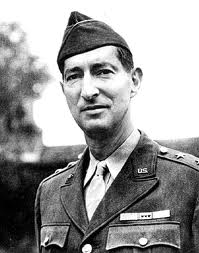
At the first sign of smoke someone is dialing 911? Millions die for a line drawn in the sand and some medals, like a sick chess tournament using real people as pieces? On July 27, 1953 (Mon.) after seven weeks of negotiation on behalf of the U.S. and U.N. by New York atty. Arthur Hobson Dean (1898-1987), the "forgotten" Korean War ends with an Armistice Agreement signed in Panmunjon near the 38th parallel by the U.S. North Korea, South Korea, and the People's Repub. of China (PRC), ending (suspending?) the Korean War (begun 1950) after 3 years 32 days; the U.N. Command, Military Armistice Commission, Korea (UNCMAC) composed of U.N. and Communist officers is established to supervise the truce, which incl. the creation of a 2.4-mi.-wide Korean Demilitarized Zone (DMZ) running 150 mi. between the two Koreas, where 1K plant species, 50 types of mammals (incl. the rare Asiatic black bear, Amur leopard and Siberian tiger) and hundreds of bird species, incl. two endangered cranes live; the Bridge of No Return is used for POW exchanges; total casualties: 800K soldiers killed and 1.6M wounded, plus 2M civilians killed and 2M-3M wounded; total South Korean casualties: 1,312,836, incl. 415,004 killed; U.N. casualties: 334,227, incl. 36,914 U.S. dead (36,576 official), and 103,284 wounded, 8,176 MIA, 7,245 POW, 131 Medals of Honor; Communist casualties: 1.5M-2M; and that's not counting the destruction of most of the peninsula, and the hundreds of thousands of families left homeless; the only war the U.S. enters in the 20th cent. that remains unresolved at the end of the cent. (until ?); U.S. Gen. Mark Wayne Clark (1896-1984) signs the armistice for the U.S., gaining "the unenviable distinction of being the first United States Army commander in history to sign an armistice without victory"; the Neutral Nations Supervisory Commission (NNSC), consisting of reps. from Sweden, Switzerland, Poland, and Czech. is created to investigate truce violations outside the DMZ; a top-level political conference between the Communists and U.N. is scheduled for "within 3 months" "to insure the peaceful settlement of the Korean question"; M/Sgt. Anthony B. "Tony" Herbert is the war's most decorated GI, and later gets into a war with the U.S. govt. over alleged atrocity coverups in the Vietnam War; Capt. Joseph "Joe Mac" McConnell is the top U.S. ace of the war, with 16 kills; the Communists lose 954 aircraft in the war, 827 of them MiG-15s, 792 of them downed by U.S. F-86 Sabres in MiG Alley S of the Yalu River, losing only 78 Sabres.

On Jan. 7, 1954 Ike's Second State of the Union Message expresses gratitude that "our sons no longer die on the distant mountains of Korea", adds that "Segregation in the armed forces and other federal activities is on the way out", and observes that "American freedom is threatened so long as the world Communist conspiracy exists in its present scope, power and hostility"; he concludes "No government can inoculate its people against the fatal materialism that plagues our age. Happily, our people, though blessed with more material goods than any people in history, have always reserved their first allegiance to the kingdom of the spirit, which is the true source of that freedom we value above all material things. But a government can try, as ours tries, to sense the deepest aspirations of the people, and to express them in political action at home and abroad. So long as action and aspiration humbly and earnestly seek favor in the sight of the Almighty, there is no end to America's forward road, there is no obstacle on it she will not surmount in her march toward a lasting peace in a free and prosperous world." On Jan. 17 the Yugoslavia Communist Party condemns Montenegrin Serb vice-pres. Milovan Djilas (1911-95) for rocking the boat with his new book The New Class, and kicks him out of his party position - I won't tell, baby, I promise?
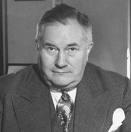


The U.S. squeezes that leftist peanut butter out of the Guatemalans On Jan. 29, 1954 Guatemala accuses Nicaragua of planning an invasion with the "tacit assent" of the U.S.; on Feb. 19 the CIA launches Operation WASHTUB to plant phony Soviet arms in Nicaragua to frame Guatemalan pres. Jacobo Guzman as a Commie ally; too bad, in May real Czech arms arrive in Guatemala in May aboard the Swedish ship Alfhem, and although they are WWII-era and the Guatemalans only bought them because other countries turned them down, the CIA jumps, and launches Operation PBSUCCESS; on June 27 the govt. of "uppity" land-leveling Col. Jacobo Arbenz Guzman in Guatemala is overthrown by a CIA-backed coup called Operation Success, conceived and planned by U.S. diplomat and United Fruit Co. lobbyist Spruille Braden (1894-1978), and Col. Carlos Castillo Armas (1914-57) returns from exile in Honduras with a rebel army while CIA planes bomb and leaflet the capital and jam radio comms, ousting Arbenz, who flees to Mexico, Switzerland, Paris, Prague, Moscow, Uruguay in 1957, and Cuba in 1960; on July 8 Armas becomes pres. (until 1957) after a military crackdown by Col. Elfego Hernan Monzon (Hernán Monzón) Aguirre (1912-81) arrests all Communists, causing Guzman to flee to Mexico; the new regime begins a bloody counterrev., reversing land and social reforms, and the vast banana plantations and railroad concessions of the United Fruit Co. are again safe for the successful fatcat peanut-butter-and-banana-eating elite; too bad, the CIA then launches Operation PBHISTORY to document Soviet control of Guatemala, and gathers 150K documents, only to find no evidence that Guatemalan Communists are controlled by the Soviets.

McCarthy single-handedly whips the U.S. What? After a Jan. 1954 Gallup poll reports that public approval for him had risen 16% in the past 6 mo. to 69%, on Jan. 30 Sen. Joseph McCarthy seizes on an automatic routine promotion from capt. to maj. granted to Army dentist Irving Peress in Oct. 1953 to ask "Who promoted Peress", accusing him of being a leftist and member of the Am. Labor Party; he then forces him to testify before his subcommittee at Camp Kilmer, N.J.; when the First Army discharges him on Feb. 2, McCarthy accuses them of Communist infiltration because they didn't court-martial him; on Feb. 18 McCarthy beats up on Gen. Ralph W. Zwicker (1903-91), cmdr. of Camp Kilmer in N.J., telling him that he is "not fit to wear that uniform", hasn't got "the brains of a 5-y.-o. child", and should "be removed from any command"; Army Secy. Robert T. Stevens, under pressure of Gen. Matthew B. Ridgway tells the press that McCarthy will not be given the names of the officers responsible for Peress' discharge, and deplores Zwicker's "humiliating treatment", telling him to not appear there again, and volunteering to testify in his place, which causes McCarthy to call him up and tell him "Just go ahead and try it, Robert. I am going to kick the brains out of anyone who protects Communists. I will guarantee you that you will live to regret it"; on Feb. 24 the Chicken Luncheon is held in the office of Ill. Sen. Everett McKinley Dirksen (1896-1969), where he is swindled by senior Repubs. into signing a "memorandum of understanding" caving into all of McCarthy's demands; "Senator McCarthy achieved today what General Burgoyne and General Cornwallis never achieved - the surrender of the American Army" (London Times); "Stevens didn't mean to surrender to the senators, he just thought they wanted to look at his sword" (anon.); Richard Nixon is present in an adjoining office. It's not too late to whip it, whip it good? On Mar. 3 Pres. Eisenhower praises Gen. Zwicker at a press conference, and says that his admin. will not tolerate having any official "submit to any kind of personal humiliation when testifying before congressional committees or elswhere"; McCarthy responds that Peress is "the sacred cow of certain Army brass", and that he had established "beyond any possiblity of a doubt" that "certain individuals in the Army have been promoting, covering up, and honorably discharging known Communists"; U.S. defense secy. Charles Erwin Wilson replies "Just damn tommyrot"; at this point Ralph E. Flanders of Vt. becomes the first to publicly ridicule the pompous so-and-so on the Senate floor, saying that despite his "war paint" and "warhoops" he has nothing to show but "the scalp of a pink Army dentist", and tells him to put up or shut up.
On Feb. 26, 1954 U.S., British, Soviet, and French foreign ministers meeting in Berlin agree to sponsor a conference on Far Eastern affairs incl. the Korean question, and on Apr. 26 the Geneva Conference convenes (until June 15) to discuss what to do about Korea and Indochina, attended by reps. of 19 states (the Soviet Union and all South Korean war belligerents except South Africa); on June 15 after the Communists demand that a neutral-nation commission supervise Korean elections rather than the U.N., the U.N. delegation walks out; on July 21 (3:42 p.m.) a truce is signed bringing an end to the 8-y.-o. Indochina War.



On Mar. 4, 1954 Todor Zhivkov (1911-98) becomes first secy. of the Central Committee of the Bulgarian Communist Party (until Nov. 10, 1989) - bring on Jolly Zhivkov it's a whole new show? Another Ulbricht in the Wall? On Mar. 7 Walter Ulbricht (1893-1973) becomes East Germany's new strongman (first secy.) (until 1971) after Pres. Wilhelm Pieck and PM Otto Grotewohl are relieved from their chairmanship positions on the Communist Party Central Committee; on Mar. 25 the Soviet Union grants "full sovereignty" to East Germany and announces the end of its occupation, after a "temporary" period for security reasons; Ulbricht goes on to badger Khrushchev into letting him build the Berlin Wall ulbricht-by-ulbricht to halt the mass exodus; meanwhile, pres. (since Sept. 13, 1949) Theodor Heuss (1884-1963) remains as pres. of West Germany (until Sept. 12, 1959), and on Mar. 29 he signs laws ratifying the European Defense Community and the Bonn Conventions.


On Mar. 9, 1954 chain-smoking CBS-TV #1 journalist (on the board of dirs. since 1949) Edward Roscoe "Ed" Murrow (1908-65), known for signing off "Good night, and good luck" critically reviews Sen. Joseph McCarthy's anti-Communism campaign in an episode of "See It Now", specially reviewing Air Force reservist Milo Radulovich (1926-2007) (of Serbian descent), who was falsely accused of having Communist ties and reinstated, using newsreel footage to paint McCarthy as a sullen demagogue, saying "Dissent is not the same thing as disloyalty." In Mar. six leaders of the Communist Party in Detroit, Mich. are found guilty of conspiring to overthrow the U.S. govt. - for what the govt. spends in a day on coffee?

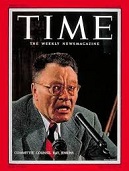





McCarthy becomes American TV's biggest draw, trying to write his own script, but flubs Act One? On Apr. 22, 1954 after the Senate Armed Services Committee chickens out, and the full Senate Committee on Government Operations is found unacceptable by Repubs., McCarthy's subcommittee opens hearings to investigate itself, with McCarthy stepping down as chmn., and his ardent admirer Karl Earl Mundt (1900-74) (R-S.D.) replacing him; Roy Cohn steps down as chief counsel, and is replaced by pro-McCarthy Tenn. atty. Ray Howard Jenkins (1897-1960); Lyndon B. Johnson successfully demands that the hearings be televised, and McCarthy receives the right of cross-examination (which he had denied to others when he was chmn.); the Dems. end their boycott, and their counsel is 28-y.-o. Robert F. Kennedy; instead of McCarthy being on trial, on the first day he runs the proceedings from the floor as 20M-30M watch, interrupting the chmn. with "A point of order, Mr. Chairman; may I raise a point of order?", then launching into speeches which are never gavelled down, complaining that he is "sick and tired" of "sitting down here" and hearing "packs of lies"; at one point he delivers a homily on somebody named Indian Charlie, to the effect that if ever anybody approaches you "in a not completely friendly fashion", you "should start kicking at the other person as fast as possible below the belt until the other person was rendered helpless"; Jenkins once asks him "I want you to tell... what each individual American man, woman and child can do... to do their bit to liquidate the Communist Party"; Mo. Sen. William Stuart Symington (1901-98) is cheered for telling McCarthy: "You said something about being afraid. I want you to know from the bottom of my heart that I'm not afraid of anything about you or anything you've got to say anytime, anyplace, anywhere"; Army special counsel, Boston Repub. atty. Joseph Nye Welch (1890-1960) emerges as McCarthy's nemesis, exposing him as a hypocrite for refusing to acknowledge possession of a "purloined letter", a classified document retyped in violation of federal law, proving himself to be no different than the "Fifth Amendment Communists" he had spent four years scorning; Welch then scores on McCarthy when he reveals that a photo given to the chmn. by Roy Cohn had been cropped, hiding the fact that Schine was making lovey-dovey expressions at him, and when Welch asks Cohn, who professes ignorance of the photo "Do you think it came from a pixie?", McCarthy blunders by asking Welch "Will the counsel for my benefit...[explain] what a pixie is?", to which Welch replies "Yes, I should say, Mr. Senator, that a pixie is a close relative of a fairy." McCarthy flubs Act Two? On June 9 after Joseph Nye Welch jokingly exhorts Roy Cohn to cure the Commie situation at Ft. Monmouth by sundown, Joseph McCarthy, thinking he sees his chance, butts in and suggests "a young man named [Frederick G. Fisher]... who has been for a number of years a member of an organization which was named, oh years and years ago, as the legal bulwark of the Communist Party"; but Welch turns it around, showing that Fisher had resigned after finding out about the Commie connections, and had disclosed everything before joining his firm, and "will continue to be with Hale and Dorr"; he then drills McCarthy, beseeching him to "not assassinate this lad further, Senator. You have done enough. Have you no sense of decency, sir, at long last? Have you no sense of decency?"; when McCarthy tries to keep it up, Welch silences him with a final speech, saying "If there is a God in heaven it will do neither you nor your cause any good. I will not discuss it further"; the day's session ends with the audience cheering Welch, then stampeding out, leaving McCarthy alone, asking "What did I do?"; in Feb. 1968 Cohn tells Esquire that McCarthy had broken a prior agreement with Welch not to publicly bring the matter up. Act Two is bad but Act Three gets the show canceled? On June 17 the Army-McCarthy hearings end after 36 days of testimony and great soap opera, and the Repubs. finally begin to break ranks and prepare to cut the bum loose; "It is now time for the Republican party to repudiate Joe McCarthy before he drags them down to defeat" (Palmer Hoyt of The Denver Post); "MCarthyism has become a synonym for witch-hunting, star-chamber methods, and the denial of those civil liberties which have distinguished our country in its historic growth" (Ohio Repub. Rep. George Bender); Roy Cohn is discredited and resigns on July 19, which McCarthy calls "A great victory for the Communists"; on Aug. 22 his popularity goes down by 22%, and 24M adult Americans think he sucks. Let's get it started, let's get it started in here? On June 20 debate opens in the U.S. Senate over a resolution by Vt. Repub. Sen. Ralph Edward Flanders (1880-1970) to strip Wisc. junior Sen. Joseph McCarthy of his chairmanships, which is changed that evening to a motion of censure, and referred to a select committee of three Repubs. and three Dems., all Conservatives, chaired by Utah Repub. Arthur Vivian Watkins (1886-1973); McCarthy says about Flanders that "I think they should get a net and take him to a good quiet place", but Watkins puts McCarthy in his place, not letting him interrupt, bringing the gavel down on him the very first time he cries "Mr. Chairman, Mr. Chairman", saying "The Senator is out of order... We are not going to be interrupted by those diversions and sidelines. We are going straight down the line"; McCarthy is forced to run into a corridor where TV crews, banned from the proceedings, are waiting, and tell them "I think this is the most unheard of thing I ever heard of"; the committee eventually recommends that MCarthy be censured. McCarthy is cancelled and can't get back on the air? On July 30 U.S. Sen. (R-Vt.) Ralph Edward Flanders introduces a resolution condemning Sen. McCarthy for conduct unbecoming a member; the 46-count indictment is later reduced to two by a committee, and Vice-pres. Nixon as presiding officer of the Senate alters the word "censure" in the title, changing it to "Resolution relating to the conduct of the Senator from Wisconsin, Mr. McCarthy", which his supporters claim as a victory, to which McCarthy tells reporters "Well, it wasn't exactly a vote of confidence", adding "I'm glad to have this circus ended so I can get back to the real work of digging out Communism, crime, and corruption"; despite the Committee of Ten Million Americans Mobilizing for Justice presenting the Senate with a petition with 1,000,816 signatures, on Dec. 2 he is condemned but not censured (John F. Kennedy ducks out of the vote against his daddy's longtime friend who dated sister Patricia and hired brother RFK by claiming he's sick and staying in a hospital?), although he might have actually been right about it, since by Nov. all 81 of the people on his famous Feb. 20, 1950 List of Communists in the U.S. Govt. had left the govt., and on June 27, 1956 State Dept. security chief (1953-7) Robert Walter Scott McLeod (1914-61) draws up his own list of 847 more suspected security leaks in his dept., firing 300 of them on suspicion of being Comsymps (Commie sympathizers); Ike tells his cabinet, "Have you heard the latest? McCarthyism is McCarthywasm"; McCarthy misses a "Who Promoted Peress?" rally in New York City attended by 13K after a supporter inadvertently shoves his elbow through a glass tabletop, causing him to go to Bethesda Naval Hospital and be fitted with a sling - I'm not a sinner, I never sinned, cause I got a friend named Jesus? On Aug. 24 the U.S. Communist Control Act goes into effect in the good ole U.S.A., virtually outlawing the Communist Party as such; Article 2 incl. the soundbyte: "The Congress hereby finds and declares that the Communist Party of the United States, although purportedly a political party, is in fact an instrumentality of a conspiracy to overthrow the Government of the United States. It constitutes an authoritarian dictatorship within a republic, demanding for itself the rights and privileges accorded to political parties, but denying to all others the liberties guaranteed by the Constitution. Unlike political parties, which evolve their policies and programs through public means, by the reconciliation of a wide variety of individual views, and submit those policies and programs to the electorate at large for approval or disapproval, the policies and programs of the Communist Party are secretly prescribed for it by the foreign leaders of the world Communist movement. Its members have no part in determining its goals, and are not permitted to voice dissent to party objectives" - forcing them to do what, go underground, or mole into the system more thoroughly? On Dec. 2 Wisc. Repub. Sen. Joseph R. McCarthy is formally condemned by the U.S. Senate by a vote of 67-22 for "conduct that tends to bring the Senate into dishonor and disrepute".

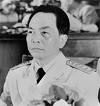

After 8 years of civil war, Vietnam's problems are over? On May 7, 1954 after 1.5K French KIA and 400 wounded vs. 8K Vietnamese KIA and 15K wounded, French Brig. Gen. Christian Marie Ferdinand de la Croix de Castries (1902-91) surrenders Dien Bien Phu and 10K men to Viet Minh guerrillas under Gen. Vo Nguyen Giap (1912-), ending a cent. of French colonialism in Indochina, and giving Vietnamese guerrillas an aura of invincibility (we don't care how good your cuisine is?); in Aug. there is a 9-power conference in Geneva about Korea and Vietnam, where the French agree to pull out of Vietnam, which is divided into North Vietnam and South Vietnam, with Ho Chi Minh as PM of the Dem. Repub. of North Vietnam (ends 1976), monklike devout Roman Catholic Ngo Dinh Diem (pr. ziem) (1901-63) as PM of the Repub. of South Vietnam (ends in 1975), and playboy Emperor Bao Dai remaining in nominal power, with a 2-year deadline for nat. elections to reuinite the country under Ho or Diem; the Communists officially occupy Hanoi to large celebrations; the U.S., which paid $2B, about 78% of the French war effort in Indochina sees red, believing that Ho is just a puppet of Beijing and Moscow, and the first of several dominoes that will soon fall in Indochina, when actually Ho is just the George Washington of Vietnam, putting patriotism above Communism, and the U.S. should have helped Ho oust the French colonizers and declare the entire country independent of France, Russia, and China, becoming a bulwark against the real domino theory, which is that the dominoes are being pushed by Red China in order to later gobble them all up; since for the next few years the North Vietnamese are busy cleaning their own house, Roman Catholic U.S. puppet Diem appears good to the West, Life mag. calling him "the tough miracle man of Vietnam", The Saturday Evening Post calling him "the bright spot in Asia", and a "mandarin in a sharkskin suit who's upsetting the Red timetable"; French forces evacuated from Vietnam are moved to Algeria, where the French-Algerian War (ends in 1962) against the Nat. Liberation Front (NLF) begins in Nov. - the birth of modern Islamic terrorism is the result of Commies in Southeast Asia winning one for Uncle Ho?
In 1954 the U.S. and Canada agree to build the Distant Early Warning (DEW) Line of 31 radar warning stations across N Canada from NW Alaska to E Greenland to guard against a sneak attack over the Arctic, which becomes operational in 1957; Midway Island becomes the main Pacific base; replaced in 1993 with the North Warning System.

On Oct. 12, 1954 Japanese acting PM Taketora Ogata (1888-1956) rejects an offer of normalized relations from Communist China, calling it "bait" aimed at weakening U.S.-Japanese ties; Ogata dies on Jan. 28, 1956 before he can become PM.

On Nov. 1, 1954 Communist-backed nationalists of the Front of Nat. Liberation (FLN) of Mohamed Ahmed Ben Bella (1918-) begin massacring Muslims and blaming it on the French army, beginning their successful 8-year rebellion against French rule in Algeria; the U.S. finances France as part of its NATO alliance.

On Jan. 12, 1955 Ike is questioned by the press about Ukrainian-born Am. Jewish agricultural economist (adviser to Chiang Kai-shek, followed by Japan from 1945-54) Wolf Isaac Ladejinsky (1899-), who was fired by agriculture secy. Ezra Taft Benson as a security risk for alleged Communist connections, then chosen by Harold Stassen to direct the South Vietnamese land reform program; novelist James Michener fires off a letter to the New York Times that "It is precisely as if Richard Nixon and Adlai Stevenson were to be charged with subversion. Mr. Ladejinsky is known throughout Asia as Communism's most implacable foe", after which he is allowed to keep his job (until 1961).
The Chinese try to bait the U.S. by giving it a pescadillo, and Ike gets a new power for the presidency to get the U.S. into all kinds of trouble worldwide? On Jan. 18, 1955 after Pres. Eisenhower informs the Chinese that any attack on the Pescadores (64 islets 30 mi. from Formosa in the Taiwan Strait) would be interpreted as a planned invasion of Formosa and resisted by the U.S. Seventh Fleet, the Chinese Communists occupy tiny Yikiang, one of the Dachen (Tachen) Islands 200 mi. N of Formosa while increasing their attacks on Quemoy and Matsu (all 5-10 mi. away from the mainland); on Jan. 20 the Red Chinese conquer the Yijiangshan Island, after which Jan. 24 Pres. Eisenhower addresses Congress, asking for authorization to use U.S. armed forces in the defense of Formosa and the Pescadores (deliberately avoiding mention of Quemoy and Matsu), but on his call not theirs; the Senate passes the Formosa Resolution of 1955 by 85-3 and the House by 410-3, and Ike signs it on Jan. 29; Adlai Stevenson observes that Congress has given the pres. a "blank check", which one day might be cashed without consulting them again, which proves true in Vietnam; in Feb. 1955 the U.S. Seventh Fleet evacuates 14K Chinese Nationalist troops and 14.5K civilians from the Dachen Islands, defusing the Formosa situation and making the Jan. resolution of Congress unnecessary.

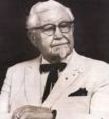
On Feb. 8, 1955 Soviet PM Malenkov resigns after assuming blame for failure of the country's agricultural policy, and is succeeded by Col. Sanders lookalike Nikolai Alexandrovich Bulganin (1895-1975), who becomes Soviet PM (until Mar. 27, 1958). On Feb. 24 the Baghdad Pact, designed by John Foster Dulles is signed by Turkey and Iraq, followed by Britain (Apr.), Pakistan (Sept. 23), and Iran (Oct.), with member countries assured that the U.S. will shield them from Communist subversion and Soviet interference with a "mobile power of great force"; the Western alignment causes Egypt to break with Iraq and blockade the Straits of Tirain, cutting off the Israeli port of Eilat in the Gulf of Aqaba. On Mar. 24 the South Korean assembly declares the 1953 armistice null and void and calls for the abolition of the NNSC after charging that the Communists, abetted by its Polish and Czech members are building up their military; in Aug. violent demonstrations over this issue erupt in South Korea, causing MAC to agree on Aug. 29 to reduce NNSC personnel from 79 to 40 (not that the Commies care about it anyway?); meanwhile South Korea accuses Japan of commercial dealings with North Korea and places a trade ban on it (until Jan. 1, 1956).



In Apr. 5, 1955 the first legislative elections in Singapore give a V to the left-wing Labour Front, led by "never lose" defense atty. David Saul Marshall (1908-95), a Jew of Iraqi ancestry becomes the first chief minister of Singapore (until 1956); on May 10-12 the Hock Lee Bus Co. Riots turn into a fight for independence and lead to Black Thursday on May 12, where 2K protesters tangle with police, killing two of them before the violence is stopped by the next morning, with two non-cops killed and 31 injured; Marshall claims "The pattern of action of the demonstrators conform to Communist techniques." On Apr. 18 the Hungarian Communist rubber-stamp parliament replaces Imre Nagy as PM with Andras Hegedus (1922-99) (until 1956) after accusing him of right-wing deviationism on Apr. 14. In Apr. after Indonesian Pres. Sukarno organizes the Afro-Asian Conference in Bandung, the Non-Alliance Movement between Third World countries that do not wish to align to either side in the Cold War begins; by 2007 it has 118 members. On May 14 the counter-NATO Warsaw Pact is signed by eight Communist bloc nations incl. the Soviet Union, GDR, Albania, and Romania. On May 15 Fidel Castro and his brother Raul Castro are released from prison in Cuba and flee to Mexico - we never said we're sorry? On May 26 Soviet PM Khrushchev arrives in Belgrade, Yugoslavia, apologizes for Soviet treatment of the country in 1949, and calls for closer ties; Tito secures Soviet recognition of Yugoslavian independence in domestic and internat. affairs; on June 2 Tito and Khrushchev issue a joint communique calling for a collective European security treaty, banning of nukes, and U.N. membership for Communist China; on June 3 the Belgrade Declaration of equality in relations between Communist countries is signed. In Dec. the Soviet Union vetoes an attempt by Nationalist China to gain U.N. membership for South Korea. In 1955 prominent U.S. anti-Communist Robert Welch Jr. (1899-1985) visits Gen. Chiang Kai-shek, and Pres. Syngman Rhee of South Korea, who writes to him "I must confess I did not know we had such a staunch ally and champion as you in America."


On Nov. 19, 1955 New York City-born William Frank Buckley Jr. (1925-2008) begins pub. conservative powerhouse mag. National Review, which becomes the #1 organ for U.S. Repubs. and conservatives (until ?); Marxist-turned-conservative James Burnham (1905-87) writes the column "The Protracted Conflict" until 1977; "It stands athwart history, yelling Stop, at a time when no one is inclined to do so, or to have much patience with those who so urge it."

Speaking of Monkey? Which Old Witch, the Wicked Witch? On Feb. 14, 1956 the 20th All-Union Communist Party Congress opens; on Feb. 25 Soviet joy-to-the-world-not Communist Party head St. Nicholas, er, Nikita Khrushchev (1894-1971) gives his Secret Speech to the 20th Congress of the CPUSA titled "On the Cult of Personality and Its Consequences", condemning his predecessor Stalin for fostering the "cult of the individual" and one-man rule, the "use of mass terror", making "mass arrests and deportations of many thousands of people, execution without trial and without normal investigation", and charging him with bungling WWII, causing the rupture with Yugoslavia, and with jeopardizing "peaceful relations with other nations"; the full text of the speech isn't pub. until 1989; Khrushy lightens up and declares the new goal of Soviet foreign policy to be coexistence, and permits a relative increase in personal freedom, which backfires, causing immediate anti-Soviet revolts in Berlin and Budapest, followed by brutal crackdowns which consolidate his power, allowing him to grab for internat. power, proving it was all a brilliant gamble?; the congress adopts its 6th Five-Year Plan, then adjourns on Feb. 25; the Secret Speech causes many Brits to abandon the Communist Party of Great Britain and join the Labour Party or various Trotskyist groups, causing the birth of the New Left in the 1960s; Red China and Russia begin to split over Communist policies toward the West, but it is not made public until Apr. 16, 1960, and in 1961 the Communist Party of China denounces the Soviet Communist Party as "revisionist traitors", competing for ideological leadership; the split ends in ?; meanwhile in 1959 Mao Zedong (Tse-Tung) officially gives up his title as chmn. of the People's Repub. of China.
On Mar. 29, 1956 Hungarian leader Laszlo Rajk, who had been executed in 1949 for treason and Titoism is cleared by the Commie Hungarian govt. In Mar. the Chinese Communists step up their shelling of Quemoy and Matsu, causing Pres. Eisenhower to respond with a statement that tactical atomic weapons are no different from other weapons in a strictly military situation; by May the shelling stops, and Eisenhower becomes Alexander the Great to a gleeful Congress.

In Mar. 1956 Am. anti-Communist Roman Catholic physician Thomas Anthony "Tom" Dooley III (1927-61), who volunteered for duty in Vietnam in 1954 and ended up in a refugee camp in Haiphong for 8 mo., and pub. the hit anti-Communist book Deliver Us from Evil resigns from the U.S. Navy under pressure after being investigated for homosexual activities, then builds a hospital in Nam Tha, Laos, followed by Muong Sing, Laos, and founds the Medical Internat. Committee (MEDICO) to aid underdeveloped countries; too bad, he has to hang it up early in life after contracting cancer - hang down your head jokes here?



On Apr. 18-27, 1956 Khrushchev visits England, and on Apr. 23 announces that the Soviet Union will produce an H-bomb-tipped missile. In Apr. after returning from a failed mission to London to negotiate independence, David Saul Marshall resigns, uttering the soundbyte "I have failed in my Merdeka [independence] mission", and Lim Yew Hock (1914-84) becomes chief minister #2 of Singapore (until 1959), going on to suppress anti-colonials and Communists to impress the Brits that they can kiss them and call them sweetheart and allow them to rule themselves. In Apr. Todor Hristov Zhivkov (1911-98) removes "Little Stalin" Vulko Velev Chervenkov (1900-80), becoming sole ruler of Bulgaria (until 1989). On June 1 Molotov resigns, and Pravda ed. Dmitri Trofimovich Shepilov (1905-95) (who helped write Khruschev's "Secret Speech" denouncing Stalin last Feb.) becomes Soviet foreign minister (until ?). On June 1-20 Yugoslavian Pres. Tito visits Moscow - those Moscow girls really knock me out, they leave the West behind? On July 18 Matyas Rakosi is replaced as first secy. of the Hungarian Communist Workers Party by first deputy PM Erno Gero (1898-1980). On July 20 free unification elections scheduled to be held in Vietnam per the 1954 Geneva agreement are cancelled by Diem, who knows that Ho Chi Minh would easily win; thus are created the Viet Cong and a you know what, though at the time nobody notices.



On Oct. 13, 1956 ex-PM Imre Nagy is readmitted to the Hungarian Communist Party. On Oct. 21 univ. students in Hungary threaten a strike if their demands for freedom are not met, and guess what? How far is Heaven, Lord can you tell me, is it 10-23-56? On Oct. 23 (Wed.) the Hungarian Revolt begins with student protests in the afternoon which turn into an armed uprising by nightfall; on Oct. 24 anti-Soviet rioters in Budapest reinstate Imre Nagy as PM of Hungary; on Oct. 25 the rioters force the govt. to replace Stalinist Erno Gero with Janos Kadar (1912-89) as first secy. of the Hungarian Communist Party (until 1988); on Oct. 27 the revolt spreads throughout the country, causing the Hungarian Communist Party to promise to work to withdraw Soviet troops, while PM Imre Nagy appoints leaders of the outlawed Smallholders' Party to his cabinet; on Oct. 28 the U.N. votes to discuss the Hungarian problem, while Hungarian Communist PM (since 1955) Andras Hegedus, the most hated man in Hungary makes a quit exit to Moscow; on Oct. 30 Soviet forces withdraw from Budapest, and PM Imre Nagy gives a radio speech promising free elections and an end to 1-party dictatorship; on Nov. 1 Nagy denounces the Warsaw Pact and asks the U.N. for help; on Nov. 4 after regrouping, Soviet forces under Field Marshal Ivan Stepanovich Konev (1897-1973) (WWII hero and Stalin's favorite gen., who was entrusted with the 1953 trial of Lavrenti Beria) move back into Budapest, killing 2.8K Hungarians while losing 700 of their own, and crushing the revolt by Nov. 6, causing 15K to flee to N Yugoslavia; PM Imre Nagy is ousted, and replaced by Janos Kadar (until 1958); on Nov. 4 the U.N. Gen. Assembly adopts a resolution condemning the Soviet invasion and calling for an investigation; Cardinal Jozsef Mindszenty (1892-1975) takes refuge in the U.S. embassy, and the Hungarian U.N. delegation begs for U.N. intervention, causing Henry Cabot Lodge Jr. to introduce a resolution calling for it, which the Soviets veto; the Soviet ambassador to Hungary is future Soviet PM Yuri Andropov; on Nov. 14 the Soviets crush the last rebel stronghold on Csepel Island in the Danube River S of Budapest; on Nov. 22 the Soviets seize Imre Nagy as he leaves the Yugoslav embassy in Budapest; on Dec. 12 the U.N. Gen. Assembly condemns Soviet aggression in Hungary, calls for a withdrawal of forces, and uges the reestablishment of Hungarian independence; Cardinal Mindszenty is released from prison, along with Cardinal Wyszynski; Pres. Eisenhower spends $20M in Mutual Security Funds for medical and food aid, and orders 21.5K Hungarian refugees admitted to the U.S.
The Suez War - it was a moment, does it have to mean everything? On Oct. 29, 1956 (Mon.) the Suez War (Crisis) (Tripartite Aggression) begins when 100K Israeli troops invade Egypt's Sinai Peninsula, giving Britain and France an excuse to issue an ultimatum to Egypt and Israel on Oct. 30 calling for a ceasefire, then citing their right to reoccupy the canal under the 1950 Tripartite Declaration; on Oct. 31 Cyprus-based British bombers bomb Egyptian airfields, causing Ike to go nonlinear, and in the evening he goes on TV, saying "We cannot subscribe to one law for the weak, another for those allied to us"; on Nov. 3 John Foster Dulles is taken to Walter Reed Hospital for surgery for an ulcer; on Nov. 5 British paratroopers begin landing on the N end of the canal, causing Soviet PM Nikolai Bulganin to warn that nukes will be used if they don't withdraw, and asking the U.S. for an alliance with the Soviet Union, to which Ike replies "Those British, they're still my right arm", accusing the Soviets of trying to divert attention from Hungary, and deciding to send aid to Israel, also issuing the Washington Declaration with British PM Anthony Eden; on Nov. 6 French infantry seize the E side of the canal, but the U.S. intervenes, arranging a ceasefire on Nov. 7 and demanding full British and French withdrawal, which they cave-in and obey; in Nov. a U.N. Emergency Force is created, organized by Lester B. Pearson of Canada (who wins the 1957 Nobel Peace Prize), and in Dec. it supervises withdrawal of French and British forces (ends Jan. 1957), while the U.N. fleet leaves the Suez Canal; Egypt agrees to pay $81M in reparations to the World Bank; the Sinai is demilitarized, with U.N. troops deployed along the Egyptian-Israeli border, and the U.S. commits to keeping the Straits of Tiran open to Israeli shipping; in Nov. Eden, his health breaking down, goes on vacation on Ian Fleming's 007 estate in Jamaica, allowing Harold Macmillian to work to push him out of office.

In Oct. 1956 the Polish Oct. sees anti-Russian riots; Russian-born Polish defense minister Marshal Rokossovsky is dismissed, and Stalin-urged Polish Communist leader Wladislaw Gomulka (1905-82), who had been in disgrace for supporting Tito returns to power as the head of the govt. with Khrushchev's backing, and is allowed to pursue a more liberal "Polish road to Communism".
In 1956 the FBI under J. Edgar Hoover launches the COINTELPRO (Counter Intelligence Program) of covert and often illegal projects to infiltrate Communist orgs. and distrupt or subvert them, expanding to women's rights, militant black, non-violent civil rights, Am. Indian, leftist student, and white hate groups incl. the KKK and Nat. States' Rights Party; ends 1971.
In 1956 the People's Repub. of China begins the Hundred Flowers Campaign (Movement), based on Mao Zedong's statement "The policy of letting a hundred flowers bloom and a hundred schools of thought contend is designed to promote the flourishing of the arts and the progress of science", encouraging intellectuals to freely express their opinions on their Communist regime, which turns out to be a trap to get liberals to expose themselves so that Mao can launch his Anti-Rightist Campaign next year, persecuting 550K by 1959.
On Jan. 5, 1957 Pres. Eisenhower addresses a joint session of Congress to ask for authority to use U.S. troops in the Middle East to protect against Communist aggression, which comes to be called the Eisenhower Doctrine, saying "I just do not believe that we can leave a vacuum" there after the failure of Britain and France in Egypt; after 2 mo. of debate the U.S. Senate approves the resolution 72-19.

On Feb. 14, 1957 Dmitri T. Shepilov becomes gen. secy. of the Soviet Communist Party, and on Feb. 15 Andrei Andreyevich Gromyko (1909-89) replaces him as foreign minister (until 1985). On Feb. 19 Khrushchev announces that Yugoslavia cannot expect any more economic favors from its ex-girlfriend the Soviet Union, but they kiss and make up, and on July 29 the Soviets restore $250M in aid, then on Aug. 3 hold a secret meeting in Romania and agree on ever closer cooperation. On Mar. 28 Hungarian PM Janos Kadar signs agreements in Moscow providing for Soviet economic aid and the continued presence of Soviet troops. On Mar. 28-Apr. 5 the Second Composers' Congress in the Soviet Union, presided over by Dmitri T. Shepilov reaffirms the decision of the first congress in Jan. 1948 to denounce modernist composers Dmitri Shostakovich et al., adding jazz ("wild caveman orgies") and rock ("explosions of basic instincts and sexual urges"); too bad, Shepilov picks the wrong side and joins Malenkov, Molotov, Kaganovich, and other plotters in the pro-Stalin Anti-Party Group Affair, a failed attempt to depose Khrushchev as first secy. of the Communist Party, which gets the Presidium to vote him out only to have the Central Committee back him up in June, after which the "anti-party group" is sacked, along with Shepilov's known friend, defense minister Grigory Zhukov, who had voted to keep Big K; the new era arrives when they are not executed but merely demoted to sideline jobs.

On May 19, 1957 CBS-TV (producer Don Hewitt) shocks the world by airing Rebels of the Sierra Maestra: The Story of Cuba's Jungle Fighters, featuring hero Fidel Castro (whom Batista had claimed was dead) and his swaggering monologues being interviewed by New York Times journalist Herbert Lionel Matthews (1900-77), incl. the soundbyte: "The truth will always be known because there always brave reporters like you and Herbert Matthews who will always risk their lives for seeking the truth."
On June 17, 1957 the U.S. Supreme (Warren) Court rules 6-1 in Yates v. U.S. that the First Amendment protects radical and reactionary speech unless it poses a "clear and present danger", softening Dennis v. U.S. (1951).

On July 2, 1957 Mass. Dem. Sen. John F. Kennedy introduces a Senate resolution calling for the U.S. to support the Communist-backed Algerian independence movement. In July 1957 Jewish-Am. CBS News journalist (one of Edward R. Murrow's Boys) Daniel Louis Schorr (1916-2010) (son of Russian Jewish immigrants) obtains an exclusive interview with Soviet Communist Party chief Nikita Khrushchev, which airs on Face the Nation, becoming Schorr's 1st TV interview; after leaving the Soviet Union he is denied an entry visa until 1962. On July 16 Japan announces an easing of trade restrictions with Communist China. On July 26 the U.S. House of Reps votes 373-9 to cite Arthur Miller, Pete Seeger, and five others with contempt of Congress for failing to cooperate with the House Un-Am. Activities Committee (HUAC); the experience causes Seeger to begin writing (with Joe Hickerson) the 1961 hit song "Where Have All the Flowers Gone?", starting with a passage from the Mikhail Sholokhov novel "And Quiet Flows the Don". On Sept. 19 Ceylon and Communist China conclude a 5-year trade pact. On Oct. 7 Yugoslavia recognizes East Germany. On Oct. 11 Federico Bigi (1920-96) becomes pres. of San Marino after 12 years of Communist rule (since 1957) - big deal?

On Oct. 20, 1957 former First Lady Eleanor Roosevelt (1884-1962) appears on "Meet the Press" to discuss her recent 3-hour meeting with Nikita Khrushchev in Yalta, saying that he has a likeable personality; they ended up arguing on arms proliteration, Soviet Jewry, and the Yalta agreements, after which she told reporters that their discussion was "friendly", with Khrushchev adding "at least we didn't shoot each other".



On Oct. 26, 1957 the Soviet Union announces that defense minister Marshal Georgi Zhukov has been relieved of his duties. On Nov. 14 left-wing Italian Socialists led by Pietro Nenni (1891-1980) approve "unity of action" with Communists. On Nov. 13 Antonin Zapotocky (b. 1884) dies, and on Nov. 19 Antonin Novotny (1904-75) is elected pres. of the Czechoslovak Repub. (until Mar. 22, 1968) - sprinkle a little sugar on them high cheekbones, sourpuss? In 1957 WWII anti-Nazi hero and Socialist Willy Brandt (Herbert Ernst Frahm) (1913-92) is elected mayor of West Berlin; meanwhile Berlin-born longtime Stalinist Erich Mielke (1907-2000) (a non-smoking fitness enthusiast who loves hunting animals) becomes head of the East German Stasi secret police, keeping track of 85K domestic spies and 170K informers who watch every person in the Communist Paradise, weeding out anybody who doesn't tow the line, and torturing, imprisoning, and killing them in an endless war on his imagined little Nazis. In 1957 an attempted coup against Nikita Khrushchev by hardline Stalinists Vyacheslav Molotov, Kliment Voroshilov, Georgi Malenkov, and Lazar Kaganovich is crushed. In 1957 smoky 34 mpg 2-door 4-passenger (2-stroke engine) Trabant (German way of saying Sputnik or fellow traveller) (AKA Trabbi or Trabi) automobile goes into production in Zwickau, Saxony for lucky East Germans and other Communists (until 1991); the body is made from Duroplast, a resin-wool-cotton-strengthened plastic made of recycled material; it takes so long to order one that people keep them running an avg. of 28 years; 3M are produced, and the style never changes.
In 1958 Red China begins its Second Five-Year Plan AKA Great Leap Forward (ends 1962), a disastrous attempt by Chairman. Mao to turn China from an agrarian capitalist farmer economy into a Communist collective farm economy run by people's communes, resulting in vast inefficiencies covered-up with false progress reports while famine kills 15M-55M, becoming the largest famine in human history (until ?).
On Jan. 9, 1958 Ike's Sixth State of the Union Address contains the soundbyte: "The threat to our safety, and to the hope of a peaceful world, can be simply stated. It is Communist imperialism. This threat is not something imagined by critics of the Soviets. Soviet spokesmen, from the beginning, have publicly and frequently declared their aim to expand their power, one way or another, throughout the world. The threat has become increasingly serious as this expansionist aim has been reinforced by an advancing industrial, military and scientific establishment. But what makes the Soviet threat unique in history is its all-inclusiveness. Every human activity is pressed into service as a weapon of expansion. Trade, economic development, military power, arts, science, education, the whole world of ideas - all are harnessed to this same chariot of expansion. The Soviets are, in short, waging total cold war. The only answer to a regime that wages total cold war is to wage total peace. This means bringing to bear every asset of our personal and national lives upon the task of building the conditions in which security and peace can grow."
On Jan. 27, 1958 Hungarian PM (since 1956) Janos Kadar resigns, and on Jan. 28 first deputy Ferenc Muennich (Münnich) (1886-1967) becomes PM (until 1961), becoming known for his abject Soviet loyalism; Kadar remains first secy. of the Hungarian Socialist Workers Party, and takes a post in the cabinet as minister without portfolio. In Mar. the U.S. halts all arms deliveries to the corrupt despotic Batista regime in Cuba, dooming it. The Ugly American in South America slips on a banana peel? On Apr. 28 U.S. vice-pres. Richard Nixon and wife Pat begin an 18-day goodwill tour of Latin Am. to Uruguay, Argentina, Paraguay, Bolivia, Peru, Ecuador, Colombia, and Venezuela; at first the protestors shout "Fuera" (go home), "Go back to the U.S., where you enjoy the lynchings of Negroes and massacres of Indians", but as he visits one country after another, they get more violent, shouting "Muera" (death); on May 8 hostile mobs in Lima, Peru throw rocks at Nixon and his party, causing the Peruvian govt. to send a note to the U.S. State Dept. on May 9 apologizing; on May 13 mobs in Caracas, Venezuela spit on them as they go to the limos, and throw vile stuff as well as rocks at the windows at three ambush points planned by the Communists, with Nixon almost being killed at the last one before making a miraculous escape, causing Ike to send 1K Marines and paratroopers on six destroyers, a guided-missile cruiser, and an aircraft carrier to rescue him, even though they aren't needed by then? On May 1 the U.S. celebrates its first Loyalty Day, "a special day for the reaffirmation of loyalty to the United States and for the recognition of the heritage of American freedom"; by the end of the cent. it is hijacked by advocates of legalization of illegal Mexican immigrants.
On July 10, 1958 Pres. Ike and PM Diefenbaker agree in Ottawa to establish the Canada-U.S. Committee on Joint Defense.

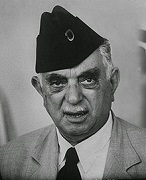
On July 14, 1958 the pro-Western (British-backed) Hashemite monarchy of Iraq is overthrown in the bloody July 14 Iraqi Army Coup headed by pro-Nasser Arab nationalist Gen. Abdul Karim (Abd Al-Karim) Qasim (Kassim) (1914-63), who veers Iraq pro-Communist with his Iraqi Communist Party; after surrending on the promise of safe passage abroad, the royal family incl. 23-y.-o. King Faisal II and his uncle Crown Prince Abdul-Illah are massacred by troops in the Massacre of Al-Zuhoor Palace in Baghdad, followed by execution of other prominent Iraqis incl. former PM Nuri Pasha al-Said (as-Sa'id) (b. 1888) (founder of the Constitutional Union Party in 1949) on July 15; land and social reform programs are put in place, shifting govt. expenditures away from agricultural projects to urban programs, while imposing rent and price controls; land is redistributed, bringing the percentage of the pop. owning land from 15% this year (2% of landowners controlling 68% of the land) to 95% by 1971; the 6-mo.-old Baghdad Pact falls apart; the Iraq pop. doubles from 7M to 14M by 1983, while the percentage residing in towns rises from 37% to 75%, with Baghdad growing from 1M to 4M pop., and Mosul and Basra topping 1M each; elementary school students grow from 500K this year to 2.6M in 1983; literacy goes from 15% this year to 50% in 1977; the army grows from 50K this year to 200K in 1988, with military spending going from 7% to 19% of GNP.
On July 31-Aug. 3, 1958 Khrushchev visits Beijing, and is given a lukewarm reception by Mao, then invited to his private residence known as the Zonghanhai on Aug. 3, and made to join him in a swimming pool, knowing that K-baby can't swim, causing him to don big green trunks and water wings and dog-paddle while Mao swims circles around him lecturing him like an emperor does a peasant, er, cementing the Sino-Soviet aplit - take your shoes off before going inside? On July 31-Aug. 3, 1958 Khrushchev visits Beijing, and encourages them to take Quemoy and Matsu Islands, then writes a letter to Pres. Eisenhower warning that any U.S. attack on Red China would be viewed as an attack on the Soviet Union; on Aug. 23 the Second Taiwan Strait (Formosa) (Offshore Islands) Crisis begins when the Great Leaping Chinese PRC resumes massive bombardment of Quemoy and Matsu Islands and threatens invasion, blocking the islands against Nationalist Chinese resupply efforts and waging a propaganda campaign against the U.S., threatening U.S. ships and promising the "liberation" of Taiwan; this doesn't stop Ike from sending a large naval force to the Taiwan Straits to escort the Nationalist ships, while U.S. secy. of state John Foster Dulles tells the Commies that the U.S. will take "timely and effective action" to defend Taiwan, meaning a U.S. plan to nuke China; once they get over the shock, on Sept. 6 Zhou Enlou proposes a resumption of diplomatic talks with the U.S, and on Oct. 6 defense minister Peng Dehuai announces suspension of the bombardment for 1 week while making diplomatic overtures to the nationalists, resulting in a ceasefire on Sept. 22; meanwhile the Soviets abrogate their 1957 agreement to supply the PRC with nukes, and the whole affair convinces the Commie Chinese that they are pawns of the nuked-up U.S. and Soviet Union and have to develop their own nukes to change the rules in the future.

On Dec. 9, 1958 rich Am. Sugar Babies and Junior Mints candy manufacturer Robert Winborne Welch Jr. (1899-1985) founds the John Birch Society in Indianapolis, Ind., and changes the name of his mag. to American Opinion; within 10 years it is the leading anti-Communist org. in the U.S.
Great leaping lizards in Maoland? In 1958 in Red China never-wrong Chmn. Mao begins the disastrous Great Leap Forward, attempting to industrialize the villages and establish rural communes using Communist strong-arm tactics; too bad, the effort fails, causing him to lose face - just don't tell him to his face?


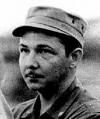


On Jan. 1, 1959 "U.S.-backed" (actually, they cut him loose a year earlier, with an arms embargo and diplomatic pressure to resign) Cuban dictator (since 1952) Fulgencio Batista flees after killing 20K of his own people, and is denied entry into the U.S., and after a 25-mo. guerrilla war Faithful Chaste Beaver, er, Fidel Alejandro Castro Ruz (1926-2016) becomes ruler (until 2008) of Cuba, "the Paris of the Caribbean", marching into Havana on Jan. 8 after a 7-day 600 mi. triumphal march down Central Highway, where his adoring subjects salute him as "El Caballo" (the Horse); on Feb. 6 as his regime kills hundreds, Fidel Castro is interviewed by Edward R. Murrow in the Havana Hilton on CBS-TV's "See It Now", in which he sits with his son and his son's pet dog and claims he will shave his beard when Cuba gets a good govt.; on Jan. 5 Castro's old chum Jose Miro (Miró) Cardona (1902-74) becomes PM of Cuba, but on Feb. 13 he unexpectedly resigns, and is replaced by Castro, who appoints him Cuban ambassador to Spain; after rejecting Castro's policies he resigns in July, flees to the Argentine embassy, then flees to the U.S. in late 1960; on Jan. 7 the U.S. recognizes Castro in record time, touting the handsome, likeable, cigar-chomping (Montecristo brand, 50 cents each) commandante as the George Washington of Cuba, and undoubtedly anti-Communist when he utters the soundbyte "Power does not interest me, and I will not take it. From now on the people are entirely free"; too bad, on Jan. 21 he names his hardline Communist younger brother Raul Castro (1931-) as his successor, saying "Behind me are others more radical than I"; in July New York Times journalist Herbert Lionel Matthews (1900-77) writes "This is not a Communist revolution in any sense of the word. In Cuba there are no Communists in positions of control", and "Fidel Castro is not only not a Communist, he's decidedly anti-Communist"; Matthews has close connections with the Fourth Floor of the U.S. State Dept., which was instrumental in withdrawing U.S. support for Batista and paving the way for Castro, causing U.S. ambassador Earl E.T. Smith to convince his friends the Kennedy that they are to blame for Castro's takeover; the Feb. issue of the John Birch Society's American Opinion exposes him as a "vicious, lying, brutal, murdering Communist", which later gains them credibility when Castro comes out of the closet and makes a monkey out of the Eisenhower admin., despite a confidential memo from vice-pres. Nixon (who was sent to visit him after Ike refused) that he was "incredibly naive about Communism or under Communist discipline"; Commie or not, Castro is loved by the majority of the people, who could overthrow him if he went bad, and he gives the people universal literacy for the first time ever, making the gobs of demonizing anti-Castro propaganda churned out by Cuban exiles in Miami a little unbelievable?
On Jan. 9, 1959 Ike's Seventh State of the Union Address ends with the soundbyte: "By moving steadily toward the goal of greater freedom under law, for our own people, we shall be the better prepared to work for the cause of freedom under law throughout the world. All peoples are sorely tired of the fear, destruction, and the waste of war. As never before, the world knows the human and material costs of war and seeks to replace force with a genuine rule of law among nations. It is my purpose to intensify efforts during the coming two years in seeking ways to supplement the procedures of the United Nations and other bodies with similar objectives, to the end that the rule of law may replace the rule of force in the affairs of nations. Measures toward this end will be proposed later, including a reexamination of our own relation to the International Court of Justice. Finally, let us remind ourselves that Marxist scripture is not new, it is not the gospel of the future. Its basic objective is dictatorship, old as history. What is new is the shining prospect that man can build a world where all can live in dignity. We seek victory, not over any nation or people, but over the ancient enemies of us all, victory over ignorance, poverty, disease, and human degradation wherever they may be found. We march in the noblest of causes, human freedom. If we make ourselves worthy of America's ideals, if we do not forget that our nation was founded on the premise that all men are creatures of God's making, the world will come to know that it is free men who carry forward the true promise of human progress and dignity."

On Jan. 26, 1959 in welcoming deputy PM Anastas Mikoyan home from a U.S. Tour, Khrushchev says that "the possibility of a thaw" in Soviet-U.S. relations is "not excluded", and that "everything possible" must be done to improve them - if going home doesn't feel safe to you? On Mar. 12 the Chinese army moves in on Tibet, and orders 24-y.-o. Tibetan Dalai Lama #14 (1950-) "His Holiness" Tenzing Gyatso (Lhamo Dhondrub) (1931-) to report to their military camp in Lhasa, pissing-off Tibetan Buddhists, who stage a march of 5K Tibetan women carrying banners reading "Tibet for Tibetans", presenting an appeal at the Indian consulate; on Mar. 17 Chinese troops fire two mortar shells at the Dalai Lama's palace, and six hours later under cover of darkness he sneaks out wearing a soldier's uniform carrying a gun, and flees Tibet for N India through a pass in the Himlayas, arriving on Mar. 31; on Mar. 18 protests in Lhasa lead to violence, after which the Chinese conquer Tibet in Mar., killing 57K by the end of the year; in India the Dalai Lama espouses the "Middle Way", a policy of peacefully working with China for autonomy rather than independence; too bad, China closes Tibet off from the world for the next quarter of a cent., instituting a genocide that kills 15% of the pop., importing masses of Chinese to displace the Tibetans and destroying all traces of Tibetan culture incl. art, writings, and 6K monasteries, while making any resistance or even ownership of a photo of the Dalai Lama a crime; the CIA supports Tibetan freedom fighters until Nixon's 1972 visit to China, then cuts them loose. On Apr. 3 Indian PM Jawaharlal Nehru announces that his govt. has granted asylum to the Dalai Lama.
On Apr. 15, 1959 at the invitation of the Am. Society of Newpaper Editors, Cuban leader Fidel Castro arrives in Washington, D.C. to begin a goodwill tour of the U.S., bringing a hundred cases of goodwill Cuban rum with him; he tells the Senate Foreign Relations Committee that "The July 26 movement is not a Communist movement. Its members are Roman Catholics, mostly... We have no intention of expropriating United States property, and any property we take we'll pay for." On Apr. 16 Ike avoids Castro by going golfing, making the cigar-smoking dude settle for meeting with new U.S. secy. of state designate Christian Archibald Herter Sr., followed by vice-pres. Richard Nixon on Apr. 21, after which Nixon utters the soundbyte that Castro is "either incredibly naive about Communism or under Comunist discipline", adding that he guesses the former.


On Apr. 27, 1959 Liu Shaoqi (1898-1969) becomes pres. of the People's Repub. of China (until Oct. 31, 1968), and Mao loses influence to him, as well as PM Zhou Enlai and party secy. Deng Xiaoping. On May 17 back in Cuba, Castro signs the Agrarian Reform Act, confiscating all private land holdings larger than 3.2K acres and banning land ownership by foreigners, giving land titles to 200K peasants. In May Khrushchev issues an ultimatum to the West to clear out of Berlin in 6 mo. or the Red Army will throw them out; Eisenhower issues an ultimatum, saying "We are not saying that we are going to shoot our way into Berlin. We say we are just going to go and continue carrying out our responsibilities to those people. So that if we are stopped, it will be somebody else using force"; the matter is dropped after the Kitchen Debate and an invite from Ike to visit the U.S., Khrushchev uttering the soundbyte "I am prepared to turn out my pockets to show that I am harmless." On June 25 the Cuban govt. seizes 2.35M acres under the Agrarian Reform Law; in the spring and summer Castro becomes a dictator, suspending habeas corpus, establishing military tribunals, and ending the right of criminal appeals - that's outrageous, yes, it is? On June 28 Soviet deputy PM Frol Romanovich Kozlov (1908-65) (an alcoholic Boris N. Yeltsin clone who is being groomed by Khrushchev as his replacement) opens the Soviet Exhibition of Science, Technology and Culture in New York City. On July 11 Pres. Eisenhower invites Khrushchev to visit the U.S. - keep your friends close, your enemies even closer? On July 17 China abolishes serfdom in Tibet, and takes away the monopoly control of land and livestock from the ruling 5%. On July 18 after abrogating the treaty with China promising to provide military technology, Soviet PM Khrushchev denounces Chinese communes, saying that their leaders "don't properly understand what Communism is or how it is to be built" - never wear black without the blue, Soviet blue? On July 23 U.S. vice-pres. Richard Nixon arrives in Moscow to open an American Nat. Exhibition in Sokolniki Park as a "return courtesy" for the June 28 Soviet Exhibition in New York City; on July 24 (Fri.) the Kitchen Debate (Skolniki Summit) on the merits of Communism vs. Capitalism takes place between Nixon and Khrushchev over a display of a 6-room model ranch house with central viewing corridor, nice furnishings, and gadget-filled kitchen, when Nixon tells him that this is a typical Amerikanski house that almost any American workman could afford; after repartees on both sides, incl. some banter about which kind of shit smells worse, horse or pig (Big K having been a pig herder once), they toast each other at a table of Calif. wines, to which Nixon utters the soundbyte "I am for peace. We will drink to talking. As long as we're talking we're not fighting"; after this all summits are pre-scripted media events - you got satellites, we got refrigerators and tail-fin Cadillacs? On July 23 Mao Tse-tung holds a conference where he admits that his backyard steel-making campaign is a "catastrophe". On July 31 Pres. Rajendra Prasad of India issues a proclamation ousting the Communist regime in Kerala (begun 1957). On Aug. 1 U.S. vice-pres. Richard Nixon speaks on Soviet TV, criticizing Communism and warning against any attempt to spread Communist ideology beyond Soviet borders. In Aug. Pres. Eisenhower flies to Europe for two weeks of talks with Konrad Adenauer, Harold Macmillan, and Charles de Gaulle to reassure them that the upcoming summit with the Soviet Union will not cause him to abandon them; huge crowds greet him as a hero; at the Hotel de Ville Ike tells the French "Je vous aime tous" (I luv y'all funny-talking frogs); he returns to the U.S. on Sept. 7, telling a crowd "I am quite certain that for the moment, at least, everything is going splendidly."
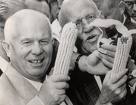

On Sept. 2, 1959 after the agreement between the royal govt. of Laos and the Communist Pathet Lao breaks down and civil war resumes, with rebel soldiers led by Capt. Kong Lee trying to overturn the pro-Western govt. of PM Tiao Samsonith, Pathet Lao rebels aided by North Vietnam regulars open a major offensive in Laos, capturing 80 villages in the N, causing the govt. to ask the U.N. to send an emergency force to stop "aggression" by North Vietnam; on Sept. 16 a U.N. subcommittee on Laos begins an investigation in Vientiane, which concludes on Nov. 6 that it finds no clear evidence of direct participation by North Vietnamese troops. On Sept. 6 Cardinal Francis Spellman calls on Catholics in his New York archdiocese to participate in an hour of prayer "for our beloved country", expressing concern about the upcoming visit of atheist Khrushchev. On Sept. 15 Soviet PM Nikita Khrushchev arrives in the U.S. for a 13-day visit, stepping off the plane at Andrews Field in Md. wearing three small medals on his black suit, accompanied by his shy wife Nina Petrovna, daughters Julia and Rada, son Sergei, and 63 Soviet bureaucrats, as Soviet ambassador Mikhail Menshikov announces "Nikita Sergeyevich, I salute you on American soil"; he meets with the Eisenhowers, saying that he arrives "with open heart and good intentions - the Soviet people want to live in friendship with the American people"; meanwhile demonstrators keep out-of-sight carrying signs calling him "the Butcher of Budapest"; Khrushchev later wins an argument with 20th Cent.-Fox pres. Sypros P. Skouras, then loses one to Walter Reuter and his union vice-presidents, calling them "agents for capitalists", which draws a laugh from Reuter; after watching Juliet Prowse (1936-96) dancing on the movie set of Can-Can, he calls the dancers "immoral", "depraved", and "pornographic" saying "A person's face is more beautiful than their ass"; on Sept. 19 he is barred from Disneyland, and throws a tantrum, uttering the soundbyte "Is there an epidemic there? Have gangsters taken over the place?" On Sept. 17 after calling the Great Leap Forward a disaster, Peng Duhua is replaced as defense minister by Lin Piao (Biao) (Yurong) (1907-71). On Sept. 21 Nikita Khrushchev is applauded by the crowds in San Francisco, Calif., and breaks away from security to shake hands. On Sept. 23 Nikita Khrushchev visits hybrid corn farming pioneer Roswell Garst (1898-1977), and is cheered by students at Iowa State College, causing Sen. Hubert H. Humphrey to utter the soundbyte that Americans must not be lulled into accepting a "live and let live" arrangement with the Commies - life is about good vs. evil? On Sept. 25 the "Spirit of Camp David" is born as Khrushchev meets with Eisenhower in Camp David (named after Ike's son) for talks, and enjoys chatting with Ike's grandkids. On Sept. 26 Indian PM Nehru and his daughter Indira Gandhi (pres. of the Congress Party) criticize Communists for resorting to violence in Tibet and elsewhere. On Sept. 28 Khrushchev ends his tour of the U.S. with a report from Ike that Big K has promised not to set a deadline for the solution to the Berlin problem. In Sept. Castro recognizes Red China, renounces Cuba's 1952 military pact with the U.S., and calls the U.S. a "vulture... feeding on humanity"; Havana underground cmdr. Manuel Ray, pres. Manuel Urrutia and PM Jose Mio Cardona, along with other heroes of the 26th of July (1953) movement are either jailed or flee to Fla., creating a "cane curtain"; Oriente province manager Dr. Manuel Francisco Artime escapes dressed as a priest, smuggled out in a Honduran freighter by the CIA, who organizes the young exiles into La Brigada and the old exiles into El Frente in hopes of ousting Castro, but the fighting force never exceeds 1.2K, although Castro believes there are 20K; to fool him the serial numbers begin with 2500, and later the brigade calls itself 2506 after recruit #6 dies in training.
On Oct. 11, 1959 Chiang Kai-shek predicts an uprising in China that will give him a V in 1960. On Oct. 21 anti-Castro exiles drop leaflets from a small airplane on Havana; the Cuban govt. accuses them of dropping bombs and killing or wounding 45. On Oct. 26 Nikita Khrushchev begins his Six-Day Vacation in Romania, hyping it as the only "Latin" country in the Soviet block to help recruit Latin-Am. leaders into his "war of liberation"; the KGB creates Liberation Theology for this purpose? On Nov. 30 Hungarian Communist Party secy. Janos Kadar announces that Soviet troops will remain in Hungary as long as required.


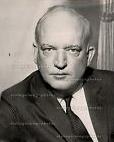
On May 1, 1960 (Sun.) (Mayday) (6 weeks after Lee Harvey Oswald arrived in the Soviet Union) the U.S. Lockheed U-2 spy plane (sortie #4154 of Operation Overflight, commanded by Col. William M. Shelton, leaving at 3:26 a.m. Moscow time) piloted by beefy crew-cut Air Force 1st lt. Francis Gary Powers (1929-77) (salary $30K/year) is shot down at 65K ft. alt. by 14 Soviet S-75 Dvina (SA-2 Guideline) SAMs over the Soviet Union near Degtyarsk (near Sverdlovsk) (the Russian Ruhr) in the Urals (1.3K mi. from the Soviet-Afghan border) on a spy run from Badaber (near Peshawar), Pakistan to Bodo, Norway (1st overflight since Apr. 9, 2nd U-2 overflight since last Oct., and 1st attempt to cross the entire Soviet Union, personally approved by Eisenhower). Powers wasn't shot down but defected? The incident causes the B-70 Valkyrie high altitude Mach 3 nuclear bomber program (begun in 1957) to be cancelled in 1961, causing the B-52 to be forced to keep on keeping on. Powers was flying U-2 #360, known to be a "dog" with faulty fuel tanks, and waits 56 min. on the flight line waiting for final White House approval. He parachuted onto a large state farm and is held by farmers at gunpoint until the KGB arrived. On May 5 (Thur.) after NASA issued a coverup report about an aircraft missing N of Turkey, claiming pilot oxygen difficulties, Khrushchev reports the true incident in a 3.5 hour speech in the Supreme Soviet, calling it a "spy plane", after which the same day the U.S. responded by lying that it was a weather observation plane that may have "strayed" over the Russian border, not realizing that the plane had been captured almost intact along with its photographic equipment after Powers failed to activate the self-destruct mechanism before parachuting out. On May 7 Khrushchev sprung his trap, revealing that Powers was captured "alive and kicking", and had made a "complete confession", calling his mission "an agressive act" by the U.S. "aimed at wrecking the summit", with the soundbyte "Now just look how many silly things [the Amerikanskies] have said", raising a big stink which causes lasting injury to U.S.-Soviet relations. Powers was carrying the "silver dollar" containing an instant-death curare-tipped needle, but whimped out and didn't use it. On May 6 Lincoln White of the U.S. State Dept. issues an official coverup, with the soundbyte : "There was absolutely no deliberate intention to violate Soviet airspace, and there has never been.". On May 9 Khrushchev warned that any country allowing U.S. spy planes will be attacked by Soviet rockets. On May 11 Ike belatedly assumed personal responsibility for all U-2 flights, and K-Shoe responded by displaying the plane wreckage and uttering the soundbyte "The Russian people would say I was mad to welcome a man who sends spy planes over here." On May 15 Ike suspends future U-2 flights. On May 16 the Four-Nation Summit U.S., U.K., Soviet Union, France) in the Elysee Palace in Paris begins, but collapses after Khrushchev accuses Ike of "treachery" and "bandit" acts, demands an apology, then demands it be postponed for 6 mo. and walks out on both shoes; on May 17 at 5 p.m. the summit ends after Ike refuses to apologize; on May 18 Khrushchev tells a press conference attended by 3K that the U.S. is "thief-like", "piratical", and "cowardly"; on July 8 the Soviets charge Powers wth espionage, and he pleads guilty on Aug. 17, saying "I have a sackful of pride", er, "I am sincerely sorry that I had anything to do with this"; on Aug. 19 he is convicted, and sentenced to 10 years in prison, then after negotiations by Brooklyn atty. James Britt Donovan (1916-70) is exchanged on Feb. 10, 1962 after 17 mo. for English-born German-Russian Soviet spy Col. Rudolf Abel (real name Vilyam Genrikhovich "Willie" Fisher) (1903-71) at the Glienicke Bridge in Potsdam, Germany, after which he works for Lockheed as a test pilot until being laid off in 1970; Powers' survival pack, incl. 7.5K rubles plus jewelry to give women ends up on display with the plane wreck at the Central Museum of the Armed Forces in Moscow, although a small piece of the plane is returned to the U.S.; on his way home Ike visits Lisbon to honor Portugal's 71-y.-o. dictator (since 1931) Antonio de Oliveira Salazar (1889-1970); did the Military-Industrial Complex stab Ike in the back to kill the summit by feeding U-2 radar secrets to the Soviets through Office of Naval Intelligence (ONI) double-agent Lee Harvey Oswald, who worked at Atsugi U-2 Air base in Japan before defecting to the Soviet Union, and is later allowed to return to the U.S. without arrest and then later used as the patsy when the MIC bumps JFK off?
On May 6, 1960 Spanish Communist Ramon Mercader (1914-78), murderer of Leon Trotsky (1879-1940) is freed in Mexico, moving to Havana, where he is welcomed as a hero, followed by the Soviet Union next year. On June 4 the Taiwan island of Quemoy is hit by 500 artillery shells fired from the coast of Communist China. On June 23 Fidel Castro threatens to seize all U.S.-owned property in Cuba to stop "economic aggression", causing Ike on July 6 to cut the Cuban sugar quota by 95% and declare that the U.S. will never permit a regime "dominated by international Communism" to exist in the Western Hemisphere, pissing-off Khrushchev, who threatens on July 9 to use Soviet ICBMs to protect Cuba from U.S. invasion, followed on July 12 by the soundbyte that the 1823 Monroe Doctrine has "died a natural death", causing the U.S. to reaffirm the doctrine on July 14 and accuse the Soviets of trying to set up a rival "Bolshevik Doctrine" to push world Communism. On June 27 Ike returns to Washington, D.C., his personal diplomacy efforts in ruin, uttering the soundbyte "After all, Communists will act like Communists"; the Cold War is back bigtime. On July 1 the Soviets shoot down a USAF RB-47 recon plane in the Barents Sea, capturing all six crew and sticking them in horrid Lubyanka Prison in Moscow, then using the incident to put more pressure on Ike over the Gary Powers affair, vetoing a U.S.-sponsored U.N. resolution calling for an impartial investigation - let's make room for big bucks? On July 11 the Czechoslovak Repub. changes its name to Czechoslovak Socialist Repub.

On May 13, 1960 U. of Calif. students are barred from entering a meeting of the House Un-Am. Activities Committee (HUAC) investigating Calif. KPFA/KQED-TV broadcaster William Marx "Bill" Mandel (1917-2016) in San Francisco's city hall, and it turns into a riot, with 12 injured and 52 arrested; on May 14 2K-5K protesters are greeted by the pigs with fire hoses; student protesting is born in San Fran. ("I was a political virgin, but I was raped on the steps of city hall"); to lead counsel Richard Arens' question "Are you now or have you ever been a member of the Communist Party?", Mandel utters the immortal soundbyte: "Honorable beaters of children, sadists, uniformed and in plain clothes, distinguished Dixiecrat wearing the clothing of a gentleman, eminent Republican who opposes an accommodation with the one country with which we must live at peace in order for us and all our children to survive. My boy of fifteen left this room a few minutes ago in sound health and not jailed, solely because I asked him to be in here to learn something about the procedures of the United States government and one of its committees. Had he been outside where a son of a friend of mine had his head split by these goons operating under your orders, my boy today might have paid the penalty of permanent injury or a police record for desiring to come here and hear how this committee operates. If you think that I am going to cooperate with this collection of Judases, of men who sit there in violation of the United States Constitution, if you think I will cooperate with you in any way, you are insane!"

On July 1, 1960 cocoa-producing Ghana gains its independence from the U.K., with Marxist Kwame Nkrumah (1909-72) as pres. #1 (until Feb. 24, 1966), who gets Mali to join the Union of African states next Apr. while instituting state socialism, only to run up against a brick wall as the welfare state causes inflation and shortages.
On Sept. 6, 1960 Uruguay breaks off diplomatic relations with the Dominican Repub., and on Nov. 16 Uruguayan pres. Nardone states that internat. Communism has made Uruguay a base for operations. On Sept. 18 cigar-puffing Fidel Castro (1926-2016) arrives in New York City and is cheered by thousands; on Sept. 19 he angrily checks out of the Shelbourne Hotel in a dispute with the management, and is offered free lodging at the Hotel Theresa in Harlem, where he is visited by Nehru, Malcolm X, and other dignitaries - these pretty women are just my nieces, isn't my Communist Express card good? On Sept. 21 Khrushchev arrives in the U.S. for 25 days to attend a U.N. session, shoe in hand. On Sept. 26 Fidel Castro gives the longest speech so far in U.N. history (4 hrs. 29 min.), during which he calls JFK "an illiterate and ignorant millionaire", and utters the immortal soundbyte: "When the philosophy of robbery disappears, then the philosophy of war will disappear" - no need to debate with anybody? On Sept. 30 the West German cabinet announces that it will break off trade relations with East Germany effective Jan. 1, 1961 if they don't lift their travel restrictions, but caves in on Dec. 29 and extends the trade pact.

On Oct. 3, 1960 after blaming high inflation on incumbent (since 1956) Juscelino Kubitschek, Sao Paolo gov. (since 1955) Janio da Silva Quadros (1917-92) is elected pres. #25 of Brazil by a landslide, taking office next Jan. 31 (until Aug. 25, 1961), and going on go establish relations with the Soviet Union and Cuba, outlaw gambling, and ban women from wearing bikinis; too bad, his Commie alignment turns off the Nat. Dem. Union, which leaves him powerless, and he doesn't last long. On Oct. 7 Nikita Khrushchev extends diplomatic recognition to the provisional govt. of the Algerian Repub. (formed 1958).


Destiny: Shoes? Shoe Day, 10-12-60 (10/2 x 12 = 60)? On Oct. 12, 1960 (Wed.) (Shoe Day) (15th anniv. session) after Soviet PM Shoechev, er, Khrushchev got away with interrupting a speech by British PM Harold Macmillan twice on Sept. 29 by pounding his fists and shouting in Russian (causing Macmillan to ask U.N. Gen. Assembly pres. Frederick Henry Boland (1904-85) of Ireland that he would like a translation), he ramps it up to the next level by waving and pounding his table with his right shoe during a U.N. Gen. Assembly speech by Filipino delegate Lorenzo Sumulong (1905-97), after he said that the Soviet resolution condemning Western imperialism should be viewed with the shoe on the other foot when it comes to their domination of Eastern Europe, uttering the rejoinder "You're a hooligan and stooge of imperialism", causing an adjournment - Bun-dy, Bun-dy? On Oct. 14 (Shoe Day Plus Two?) after the U.S. stops its sugar quota, Cuba nationalizes its banks, sugar industry, and all large commercial and industrial enterprises, causing the U.S. to respond on Oct. 19 with an embargo on Cuba covering all commodities except medical supplies and certain food products (until ?); Ike sends a note to the Org. of Am. States (OAS) on Oct. 28 charging that Cuba has been receiving substantial arms shipments from the Soviet bloc; too bad, the sugar embargo allows Cuban expatriates led by the Fanjul Brothers to set up shop in Fla. S of Lake Okechobee, depleting the Everglades while setting up a federally-subidized system of sugar price supports greased by baksheesh that continues until ?. In Oct. 26 the after using repressive measures to counter leftist-inspired worker unrest fails, making the U.S. nervous, the U.S.-backed bloodless 1960 El Salvador Coup desposes pres. (since 1956) Jose Maria Lemus, and puts a military-civilian junta in charge, led by Lt. Col. Julio Adalberto Rivera (1921-73); Castro-sympathizer univ. prof. Fabio Castillo leads the opposition. In Oct. after failing to incite civil war to overthrow Fidel Castro via Operation 40, the CIA sponsors the creation of Brigade 2506, consisting 1,511 Cuban exiles who are trained to invade Cuba in the Bay of Pigs Invasion next Apr.


On Nov. 11, 1960 the 1960 South Vietnamese Coup Attempt by a paratroop brigade in Saigon, led by Lt. Col. Vuong Van Dong traps pres. Ngo Dinh Diem in the Independence Palace, after which he stalls them until his own forces have time to arrive and quash them on Nov. 12 (400 casualties on both sides), causing the leaders to flee to Cambodia, after which Diem orders a crackdown, imprisoning former cabinet ministers and critics, and condemning the plotters in absentia to death; after murdering 1.2K of his own govt. officials last year, only to see the Commies keep coming, Diem assumes dictatorial powers to combat them, causing them on Dec. 20 to secretly form the Nat. Front for the Liberation of South Vietnam (NLF), made up from over a dozen different political and religious groups, led by non-Marxist atty. Hua Tho; they announce the 10-Point Program of the NLF, incl. a new regime that "represents all social classes and religions", and the big kicker, free land redistribution to peasants, which causes many peasants to support them; early next year the People's Liberation Armed Forces (PLAF) AKA the Viet Cong (VC) are created as the military arm of the NLF by the North Vietnamese; meanwhile after a power struggle, aging North Vietnamese Communist leader Ho Chi Minh ("He Who Enlightens") (1890-1969) (real name Nguyen Singh Cung et al.) becomes a figurehead pres., and Le Duan (1907-86) becomes the real boss, masterminding the Vietnam War. On Nov. 14 Pres. Eisenhower orders U.S. naval units into the Caribbean after Nicaragua and Guatemala charge Castro with starting uprisings, which are suppressed by CIA-trained Cuban exiles while U.S. warships wait off the coast. On Nov. 15 the CIA gives a briefing to JFK on the planned invasion of Cuba, telling him that the invasion force is too small to work, although it gives him plausible deniability. The war of the three princes in landlocked Laos? On Dec. 9 the Laotian govt. of PM Prince Souvanna Phouma flees to Cambodia as the capital city Vientiane is taken by Gen. Phoumi Nosavan, who controls the bulk of the royal army, and on Dec. 16 after defeating Capt. Kong Le he sets up a pro-Western rightist govt. in the S headed by Prince Boun Oum Nachampassack (1912-80), causing the U.S. to resume arms shipments; Kong Le joins the Pathet Lao, and the Soviet bloc supports Phouma. On Dec. 21 the Peruvian govt. announces that it has proof that the Cuban embassy had been giving support to Communists, causing it to sever diplomatic relations on Dec. 30.

In 1960 Am. Communist folk singer Peter "Pete" Seeger (1919-2014), who was indicted for contempt of Congress on July 26, 1957 for refusing to testify to the House Un-Am. Activities Committee (HUAC) is barred by the school board of San Diego, Calif. from performing at a high school unless he signs an oath that he won't promote a Communist agenda or attempt to overthrow the govt., and after he refuses, the ACLU obtains an injunction forcing the concert to be held; they finally apologize in Feb. 2009 after he finally officially quits the Communist Party USA, with the soundbyte "I should have asked to see the gulags when I was in the U.S.S.R. [in 1965]", and writes Big Joe Blues condemning Stalin, also uttering the soundbyte "I certainly should apologize for saying that Stalin was a hard driver rather than a very cruel leader"; meanwhile he utters the soundbytes "Some may find [my songs] merely diverting melodies. Others may find them incitements to Red revolution. And who will say if either or both is wrong? Not I", and "I like to say I'm more conservative than Goldwater. He just wanted to turn the clock back to when there was no income tax. I want to turn the clock back to when people lived in small villages and took care of each other", and "I still call myself a Communist, because Communism is no more what Russia made of it than Christianity is what the churches make of it."

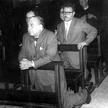

On Jan. 3, 1961 the U.S. severs diplomatic relations with Cuba - that won't last long, duh? On Jan. 25 a rightist coup in El Salvador halts "leftist excesses"; in Apr. elections give a big V to the new U.S.-backed anti-Communist Party of Nat. Conciliation, led by Julio Adalberto Rivera (1921-73), who becomes pres. of El Salvador (until 1967). On Feb. 3 Red China buys $60M worth of grain from Canada. On Mar. 1 Eduardo Victor Haedo (1901-70) becomes pres. of Uruguay (unitl 1962); in May Communist China sends three political agitators to Montevideo via Havana to organize a trade union federation, and they remain despite attempts to deport them. On Mar. 15 U.S. ambassador to South Vietnam (since Mar. 1957) Elbridge Durbrow (1903-97) is replaced by conservative Va. Dem. Frederick E. "Fritz" Nolting Jr. (1911-89) as U.S. ambassador to Vietnam (until June 27, 1963), who arrives in Saigon in May as the Viet Cong begin to dominate the countryside and assassinate village chieftains, changing the U.S. policy from being honest with Diem to being nice to him?



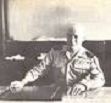


On Mar. 18, 1961 France and Algeria sign the Evian Agreement (Accords) in Evian-les-Bains, ending the 7-year Algerian War, with France agreeing to pull out of Algeria, ending 132 years of French rule; on Mar. 19 an armistice in Algeria begins, although the OAS continues terrorist attacks against traitor Algerians, exploding a bomb on May 2, killing 110 and injuring 147 total; on Apr. 8 a nat. referendum in France approves the accords by 90%-15%; on May 20 the French begin an airlift to evacuate Europeans from Algiers; on May 29 negotiations between the OAS and FLN cause a real armistice in Algeria, which is signed on June 17; too bad, on June 18 the OAS announces that it will continue to fight; on June 30 the last French Foreign Legion troops leave Algeria; on July 1 Charles de Gaulle recognizes Algerian independence, and on July 3 the U.S. recognizes it; on July 31 Algeria declares independence; war losses since 1954 total 30K French and 1.5M Algerians; 1M Europeans are repatriated; on Sept. 26 FLN founder (1954) Mohamed Ahmed Ben Bella (1916-) (released from priz soon after the truce is signed, after which he uses Communist tactics to eliminate all opposition) becomes PM of the Algerian Socialist Repub. (until 1965), and is recognized by the U.S. on Sept. 29 even though he openly courts Commie support, and 76 FLN vets are sent to Cuba to train terrorists; longtime Algerian nationalist leader Ahmed Messali Hadj (1898-1974) tries to create a party in opposition to the FLN, and ends up in exile in Paris for life; meanwhile on Mar. 23 de Gaulle orders the French army to stage an all-out war against the French right-wing anti-independence OAS and its four leader generals, causing the arrest of gen. Edmond Jouhaud (1905-95) in Oran on Mar. 24, followed on Apr. 20 by gen. Raoul Albin Louis Salan (1899-1984) in Algiers; on Apr. 13 Jouhaud is sentenced by a military tribunal in Paris to death, followed on May 23 by Salan, who gets it reduced to life in priz, and released in 1968; politician Pierre Lagaillard (1931-), who was arrested in Madrid last Oct. is exiled to the Canary Islands, then pardoned in 1968; Jean-Jacques Susini (1933-) hides out in Italy while attempting to assassinate Charles de Gaulle, getting twice condemned to death in absentia, then returns to France after the 1968 amnesty; in June WWII Resistance leader and PM (1949-50) Gen. Georges-Augustin Bidault (1899-1983) (who claims not to belong to the OAS) is accused of conspiracy against the state and stripped of parliamentary immunity, fleeing to Brazil, followed in 1967 by Belgium, then returning to France in 1968 after an amnesty; it takes until 1999 for France to officially call the "operation to maintain order" a "war"; in 1963 the Soviets send experts to Algeria to rid it of hundreds of thousands of French land mines.

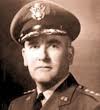
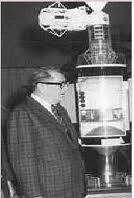

On Apr. 15, 1961 six repainted U.S. Air Force B-26 bombers knock out half of the Cuban Air Force, but Pres. Kennedy recalls them on Apr. 16 without the 1,511 CIA-trained commandos being informed, and on Apr. 17 they invade Cuba in four chartered merchant ships and two landing crafts from Nicaragua in the unsuccessful Bay of Pigs Invasion in Cochinos Bay on the S coast of Cuba 90 mi. from Havana, getting pinned down on a swampy beachhead while their supplies are blocked by reefs until the supply ships are sunk; on Apr. 19 the 300K-man Cuban army finishes the invaders off, killing 114 and capturing 1.2K POWs (released in Dec. 1962 for $53M in food and medical supplies, privately raised), after which on Apr. 20 Castro announces the defeat of the invasion; on Apr. 22 Pres. Kennedy accepts "sole responsibility", saying "How could I have been so stupid?" for trusting the CIA and Joint Chiefs of Staff, but he actually holds CIA dir. (since 1953) Allen Welsh Dulles (1893-1969) responsible, and he is pressured into resigning in Sept., along with deputy dir. USAF Gen. Charles Pearre Cabell (1903-71), brother of Dallas mayor (1961-4) Earle Cabell (1906-75), allegedly saying that he wants "to splinter the CIA in a thousand pieces and scatter it to the winds", although his memo to do it is ignored (turning the whole CIA against him with a reason to assassinate him?); E. Howard Hunt uses the cover name Eduardo in the Bay of Pigs operation; after the Cuban V, Khrushchev gets the idea of installing nuclear missiles in Cuba to protect it from another invasion, and vetoes Castro's plan of doing it publicly, preferring to do it in secret before the U.S. can react; in Apr.-May the Cuba Study Group, led by retired gen. Maxwell Davenport Taylor (1901-87) performs an "autopsy" of the fiasco, then pub. a report on June 13 concluding that the invasion was Ike's plan, that JFK's decision to not call in additional air strikes did not doom it, and that the CIA and Joint Chiefs of Staff share the blame; during this time Taylor becomes a friend of Robert Kennedy, who is wowed by his intellect and names one of his sons after him in Jan. 1965; meanwhile Taylor is recalled to active duty and installed to the new post of military rep. to the U.S. pres., causing him to end up cutting off the Joint Chiefs, until JFK appoints him as chmn. on Oct. 1, 1962 (until 1964) - the plot to kill JFK, who just approved the execution of a U.S. soldier and stabbed others in the back, begins? In Apr. Red China is estimated to have 200M armed and organized militiamen behind the Bamboo Curtain.
On May 1, 1961 Fidel Castro announces the end of elections in Cuba, and founds Radio Havana to broadcast his absolutely truths to the world at 6MHz - I always win and am always right, so why bother with all that democratic machinery and give the people a chance to make a mistake and elect somebody else? On May 1 Cuban expatriate Antulio Ramirez Ortiz hijacks a Nat. Airlines Convair 440 flight en route from Marathon, Fla. to Key West to Havana allegedly to warn Castro of an assassination plot, becoming the first hijacking from the U.S. to Cuba; after arrival he becomes a hero and is nicknamed Numero Uno; the first skyjacking was in 1947, in order to escape a Communist country, with U.S. approval, after which there are 21 more skyjackings by 1956, 18 to escape Communism. On May 3 after King Sisavang Vathana asks Cambodia, Burma, and Malaya to form a 3-man peace commission on Feb. 19 and affirms Lao's neutrality and policy of nonalignment, and the U.S. approves it on Feb. 20, a ceasefire is arranged in Laos; on May 16 the 14-nation Geneva Conference on Laos, chaired by Britain and the Soviet Union meets in Geneva, and on June 22 the three warring princes Boun Oum (rightist), Souvanna Phouma (neutralist) and Souphanouvong (leftist) announce a coalition govt. in Zurich.


On May 16, 1961 after student demonstrations in South Korea, an anti-Communist military coup led by army chief of staff Gen. Chang Do Yung (1923-) takes power and declares a military dictatorship on June 6; after a power struggle on July 3 Yung is forced to resign, and Maj. Gen. Park Chung-hee (Pak Chong-hui) (1917-79) is elected chmn. (until 1979), arresting Yung and ruling with an iron hand, closing the nat. assembly, arresting thousands, and setting up the KGB-clone Korean CIA (KCIA), headed by Oddjob, er, Kim Chong-p'il (Jong-pil) (1926-); meanwhile he begins an austerity program and reopens negotiations with Japan.
On Aug. 13, 1961 the GDR blocks off East from West Berlin, and on Aug. 15 begins building the Berlin Wall (torn down 1989) to halt the flight of refugees after the U.S. rejects proposals by Khrushchev to make Berlin a "free city" with access controlled by East Germany, mentally splitting Eastern and Western Europe; on Aug. 15 an East German soldier, Hans Conrad Schumann jumps a 3-ft. barbed wire barrier to West Berlin to join his family and has his 15 min. of fame (he commits suicide in 1998); on Aug. 31 the wire is replaced by a concrete wall, and extended to 559 mi. in length; on Oct. ? U.S. and Soviet tanks confront each other at Checkpoint Charlie in a near-battle; 130+ go on to be killed trying to cross to the West; the Berlin Wall saves West Germany from Soviet takeover, and becomes the Second Birth of the GDR, stablizing its economy and allowing it to become one of the most prosperous Commie countries, until the 1B mark-a-year cost for guarding it drags them down - nine months for a health career, did you say nine months?

On Sept. 5, 1961 after the position has been vacant since Oct. 9, 1953 because of British interference, former 133-day PM (1953) Cheddi Berret Jagan (1918-97) of the People's Progressive Party becomes PM of British Guiana again (until Dec. 12, 1964), which only pisses the Brits off more, causing them to begin scheming to oust him again.


In Sept. 1961 Viet Cong guerrillas capture a provincial capital in South Vietnam and execute the gov., causing Pres. Diem to ask the U.S. for a bilateral defense treaty, causing Pres. Kennedy to send hawk Gen. Maxwell Davenport Taylor (1901-87) and civilian hawk economist Walt Whitman Rostow (1916-2003) as advisors, and they end up writing a report urging Kennedy to send 8K soldiers, but he refuses, saying "It will be just like Berlin"; in Nov. he yields partially, and authorizes a buildup of U.S. strength by sending in support units and advisors, some of which participate in combat; meanwhile JFK requests the military to draw up a plan for withdrawal from Vietnam, stating his determination not to send ground units, citing the French failure as a precedent, desiring Vietnam to be handled by Laos, all of which pisses-off the military, who stonewall. On Dec. 2 Fidel Castro gives a big speech, declaring himself a Marxist-Leninist who is going to lead Cuba to a golden age of Communism - as its chain-smoking Materialist Messiah? On Dec. 11 the first 100 U.S. military advisors along with 400 soldiers arrive in Vietnam, officially beginning the Vietnam War (ends Apr. 30, 1975); on Dec. 22 James Thomas Davis becomes the first of 90K U.S. military deaths (58K in battle or theater) in Vietnam.

In 1961 the Marxist Sandanista Nat. Liberation Front is founded in Nicaragua by Carlos Fonseca Amador (1936-76) et al., named for assassinated nationalist rebel Augusto Cesar Sandino (1895-1934).

On Jan. 3, 1962 Pope John XXIII excommunicates Cuban Communist dictator Fidel Castro - I'll bet he's real hurt? On Jan. 13 Albania allies with the People's Repub. of China. On Jan. 27 the Soviet govt. eliminates all place names honoring Stalin backers Vyacheslav Molotov (1890-1986), Lazar Kaganovich (1893-1991), and Georgi Malenkov (1902-88), who tried a coup in 1957 and are now kaput. On Feb. 3 after sending a fellow cigar smoker on a mission to get him 1.2K green Petit Upmanns for his personal humidor, JFK orders the Cuban Embargo, banning all U.S. trade with Cuba on Feb. 7 except for food and drugs; too bad, other countries don't follow suit. On Feb. 15 the nat. council of Uruguay votes to retain diplomatic relations with Cuba to placate a large pro-Castro segment of the pop. On Mar. 6 the U.S. promises Thailand assistance against Communist aggression. On Mar. 13 JCS chmn. (1960-2) Gen. Lyman Louis Lemnitzer (1899-1988) presents his plan for Operation Northwoods to U.S. secy. of defense Robert McNamara, calling for false flag acts of terrorism in the Miami area to create support for military action against Cuba; on Mar. 16 JFK told Lemnitzer that there is no way the U.S. will take military action against Cuba on his watch, after which Lemnitzer is denied another term as JCS chmn., pissing-off the Pentagon and causing USAF chief of staff gen. Curtis LeMay on Oct. 19 to utter the soundybte: "This is almost as bad as the appeasement at Munich"; in Jan. 1963 Lemnitzer is appointed Supreme Allied Cmdr. of NATO (until July 1969) - giving them a reason to get revenge as well as stop a pinko in the White House?



In May 1962 Nikita Khrushchev gets the bright idea of putting intermediate-range nuclear misiles in Cuba to counter the U.S. lead in strategic missiles and protect it from another Bay of Pigs invasion. On June 28 radio personality John Henry Faulk (1913-90), who was fired by CBS-Radio in Sept. 1957 as an alleged Communist wins his libel lawsuit against blacklisting service AWARE Inc. with financial backing from Edward R. Murrow using Jewish-Am. atty. Luis Nizer (1902-94), obtaining a record $3.5M judgment that is reduced to $550K on appeal, ending the entertainment industry's blacklisting policy. In June a border war erupts between China and India in the Kongka La low ridge pass in the Himalayas (Aksai Chin in China, Ladakh in India), leading to a battle on Sept. 21, followed on Oct. 10 by the Sino-Indian War as Chinese Communist forces invade India, causing Indian pres. Nehru to ask for U.S. military aid on Oct. 29, then dismiss defense minister V.K. Krishna Menon (1896-1974) on Oct. 31 and assume his post; on Nov. 19 as Indian troops retreat from a massive Chinese attack, Nehru asks JFK for further military aid, and on Nov. 21 the U.S. sends transport planes with U.S. crews, causing China to unexpectedly order a ceasefire along the Indian border on Nov. 21 and offer to withdraw its troops back of the "lines of actual control" existing on Nov. 7, 1959; on Dec. 14 after Nehru rejects the Chinese offers, India announces that the Chinese are beginning a massive troop withdrawal from the NE frontier region, after which neither country patrols this part of the border.


On Oct. 8, 1962 the Der Spiegel Scandal erupts after the German mag. Der Spiegel pub. an article about the poor preparedness of the West German Bundeswehr (defense force) to fight the Commies, and is taken on by defense minister (since 1956) Franz Josef Strauss (1915-88), who accuses editor Rudolf Augstein (1923-2002) of treason, getting him arrested for 103 days, after which on Nov. 5 he admits that he lied to the police and resigns, with the soundbyte that he was treated like a "Jew who dared to appear at a Nazi Party convention"; the police end their occupation of the Der Spiegel offices on Nov. 26. On Oct. 8 new Algerian PM Ben Bella arrives in New York City for Algeria's admission into the U.N., and meets at the Dryden Hotel with Cuban pres. Osvaldo Dorticos Torrado to get some pointers, after which he denounces the U.S. to the U.N. Gen. Assembly; amazingly, Adlai E. Stevenson turns his ears off then praises him for "cutting the chains" holding the people of Algeria down, and pledging U.S. financial support; on Oct. 9 Ben Bella addresses the assembly again, proclaiming Algeria's neutrality but also announcing support for Communist nationalist movements in Africa incl. Angola, Rhodesia, South Africa, and Southwest Africa, and calling for Communist China to be admitted to the U.N.; on Oct. 12 his foreign minister Mohammed Khemisti (1930-63) addresses the assembly, calling Capitalism "inappropriate" and saying that Algeria will take the "Socialist road", praising Castro and denouncing efforts to undermine his regime as a threat to internat. peace, and backing the Soviet position on Berlin, saying the settlement must "recognize the realities of the German situation"; despite this, on Oct. 15 JFK gives Ben Bella a friendly welcome on the South Lawn of the White House (first foreign chief JFK greets there), complete with a 21-gun salute, after which he gets another 21-gun salute in Cuba on Oct 16; despite quarantining Cuba on Oct. 22, JFK goes through with $47.5M in food grains and dairy products, 11K U.S. Army tents, a 60-bed field hospital and other medical assistance, then attempts to cover it up with tricky reasoning, all tracing back to his 1957 Senate resolution for U.S. support of the FLN? - so JFK really is pink right down to his underwear? On Oct. 19 the Checkpoint Charlie Museum (originally the House at Checkpoint Charlie) in Berlin is opened by German anti-Communist Rainer Hildebrandt (1914-2004).

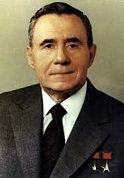


It takes a real guy to wear pink? On Oct. 14, 1962 after wasting three weeks photographing the wrong end of the island despite intel reports indicating the real location, CIA U-2s detect Soviet ballistic missiles in Cuba; U.S. Air Force pilot Maj. Richard S. Heyser and CIA contract pilot James A. Barnes Jr. (1929-99) identify missile sites in separate flights; on Oct. 16 Pres. Kennedy is informed of them, beginning the Cuban Missile (Caribbean) Crisis (Scare) on Oct. 16-28, forcing nuclear missiles out of Cuba only after bringing the U.S. to DEFCON 2 on Oct. 24 (until Nov. 20), and coming close to World War III; too bad, JFK fails to consult Canadian PM John G. Defenbaker before requesting Canada to put its forces on DEFCON 3 status, pissing him off; on Oct. 16 JFK recites the following verse to the State Dept. after being told of the crisis: "Bullfight critics ranked in rows/ Crowd the enormous plaza full;/ But only one is there who knows,/ And he's the man who fights the bull"; on Oct. 18 JFK meets foreign minister Andrei Andreyevich Gromyko (1909-89); on Oct. 22 (7:00 p.m. EDT) JFK announces an air and naval blockade of Cuba, with the soundbyte: "It shall be the policy of this nation to regard any nuclear missile launched from Cuba against any nation in the Western Hemisphere as an attack by the Soviet Union on the United States, requiring a full retaliatory response upon the Soviet Union"; on Oct. 23 U.S. ambassador to the U.N. (1961-5) Adlai Ewing Stevenson II (1900-65) speaks at the U.N. about the Cuba crisis; on Oct. 24 (7:06 p.m. ET) JFK signs Proclamation 3504, officially beginning the U.S. blockade of Cuba (ends ?); on Oct. 25 muse-turned-lion Stevenson presents photographic evidence of Soviet missile bases in Cuba to the U.N. Security Council, demanding that Soviet ambassador Valerian Alexandrovich Zorin (1902-86) answer regarding Cuban missile bases, uttering the immortal mouse-that-roared soundbyte: "I am prepared to wait for my answer until Hell freezes over"; on Oct. 26 JFK warns Russia that the U.S. will not allow Soviet missiles to remain in Cuba, causing Khrushchev to send a private message offering to remove them in return for a U.S. pledge not to invade; on Oct. 27 (a.m.) Khrushchev sends a public hardliner message to JFK offering to withdraw the missiles if the U.S. closes its bases in Turkey, warning that if the U.S. attacks Cuba they will respond with massive military power, causing RFK and George McBundy to suggest the Trollope Ploy of answering the first note and ignoring the second, while making a private assurance that the bases will be closed; on Oct. 28 after receiving a telegram from Castro reading "We should deliver a nuclear first strike", causing him to tell his son Sergei "That is insane", Khrushchev informs the U.S. that he has ordered the dismantling of the Soviet missile bases in Cuba, and on Oct. 29 Radio Moscow reports that the Cuban nukes have been deactivated, although they really start doing it on Nov. 1?; the final deal also made the U.S. pledge to not invade Cuba?; the missiles were dismantled without Castro's knowledge, later pissing him off?; Khrushchev told JFK that their two countries had knotted the cord between them, and the more they pull the tighter the knot gets, and if the knot has to be cut nobody knows what will happen?; Khrushchev was in a bind, and the U.S. gave him a way out by allowing him to tell his people that he stopped the U.S. from exterminating Cuba?; JFK awards plaques to McNamara et al. with calendars that circle the dates Oct. 16-28; in Nov. Che Guevara utters the soundbyte: "If the missiles had remained, we would have fired them against the very heart of the U.S. including New York. The victory of Socialism is well worth millions of atomic victims"; in Jan. 1992 Fidel Castro tells Robert McNamara: "Of course I knew the missiles were nuclear-armed. That's precisely why I urged Khrushchev to launch them. And of course Cuba would have been utterly destroyed in the exchange"; "My dream is to drop three atomic bombs on New York City" (Raul Castro, Nov. 1960).
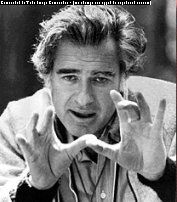


On Oct. 24, 1962 John Frankenheimer's The Manchurian Candidate, written by Frankenheimer and George Axelrod, based on the 1959 Richard Condon novel set in 1952 stars Frank Sinatra as Maj. Bennett "Ben" Marco, Laurence Harvey as Medal of Honor winner Raymond Shaw, Angela Lansbury as his Commie agent mother Mrs. Iselin, James Gregory as her Commie agent hubby U.S. Sen. John "Johnny" Iselin ("there are exactly 207, er, 104, er, 275 card-carrying members of the Communist Party in the State Dept."), and Janet Leigh as Sinatra's babe Eugenie "Rosie" Rose (Eldorado 5-9970) in an eerie mix of the Korean War, the McCarthy years, brainwashing theory, and the JFK assassination, which hasn't occurred yet, pissing-off both leftist and rightist critics while pleasing conspiracy theorists; Khigh Dhiegh plays Commie pshrink Yen Lo, Henry Silva plays Korean double agent Chunjin, John McGiver plays Sen. Thomas Jordan, Leslie Parrish plays his daughter Jocie; establishes TV dir. Frankenheimer as a film dir.; the Queen of Diamonds sets off Raymond Shaw's assassin programming mode; "Raymond Shaw is the bravest, kindest, warmest, most wonderful human being I've ever known in my life"; "Raymond Shaw, hell, hell" (ending).

On Dec. 23, 1962 Cuba begins returning the last 1,113 POWs from the Bay of Pigs invasion to the U.S. in return for $53M in food. In Dec. Pres. Kennedy commutes the sentence of Junius Irving Scales (1920-2002) of N.C., who had been tried under the U.S. Smith Act in 1958 and served 14 mo. for being a leading member of the Communist Party (first-ever under the Smith Act).
In 1962 the Chinese take control of W Tibet, causing many nomad refugees to flee to Ladakh; only 70 of Tibet's 2.5K Buddhist monasteries remain. In 1962 radical leftist elements who have splintered from Venezuela's ruling Accion Democratica Party stage unsuccessful revolts at navy bases, causing pres. Romulo Betancourt to suspend civil liberties, driving them underground as the Armed Forces for Nat. Liberation (FALN) (Fuerzas Armadas de Liberacion Nacional); after Betancourt finds out that Castro is arming them, he protests to the OAS.



On Feb. 8-9, 1963 with CIA backing, the Baath (Ba'ath) Socialist Party in Iraq overthrows Soviet-leaning Gen. Abdul Karim Kassim in Baghdad and seizes power, putting Kassim through a farcical hours-long trial and then immediately machine gunning him to death in an Iraqi TV studio, holding his lifeless face up to the camera for everybody to see, after which thousands of Communists, trade unionists, and leftist sympathizers are executed; a new 1963 Iraqi Flag is approved, with red-white-black horizontal stripes and three green stars in the white strip to symbolize the union of Iraq with Egypt and Syria as the United Arab Repub.; law student Saddam Hussein (1937-2006) (on the CIA's payroll?) returns from exile in Cairo, Egypt, and resumes his studies in Baghdad, while Ahmed (Ahmed) Hassan al-Bakr (1914-82) becomes PM; on Nov. 18 they are overthrown by the army, led by Pres. Abdel (Abdul) Salam (Abd al-Salam) Mohammed Arif Aljumaily (1921-66), who curtails the Ba'th Party but runs the govt. as a family affair, with no constitution or parliament; Saddam Hussein is imprisoned.

On Mar. 3, 1963 Pakistan and Communist China sign an agreement defining their disputed 300-mi. frontier between China's Sinkian Province and Kashmir. On Mar. 12 Pakistan and Red China announces a tentative cession to Pakistan of 750 sq. mi. of territory held by China, and on Aug. 29 a treaty is signed providing scheduled air service between China and Pakistan, making Pakistan the first Western-oriented nation with such a treaty. On Mar. 15 1.5K demonstrate before the Iraqi Embassy in Moscow to protest their anti-Communist drive. On Mar. 16 the South Korean military junta withdraws its promise of elections for four more years of military rule, causing demonstrations in Seoul on Mar. 22; on Mar. 26 U.S. state dept. official Lincoln White breaks U.S. silence on South Korea, saying that a prolongation of military rule "could constitute a threat to stable and effective government", after which the military offers civilian leaders a compromise offer of a civilian-military junta, which the civilian leaders reject, causing the U.S. govt. to threaten to withdraw $25M in aid; on Apr. 6 after a personal letter from JFK, elections are promised for the fall. On Mar. 17 the U.S. claims that two Soviet recon planes penetrated 30 mi. into U.S. airspace over SW Alaska on Mar. 15, and later charges that similar flights over U.S. aircraft carriers in the Atlantic and Pacific are being staged as reprisals; on Mar. 28 the Soviets deny knowledge via a note, which the U.S. State Dept. calls "unsatisfactory". On Mar. 17 leftist supporters of Brazilian pres. Joao Goulart demand removal of U.S. ambassador Lincoln Gordon, after which the Brazilian govt. disavows a Communist congress being held in order to defuse increasing U.S. congressional opposition to foreign aid; on Mar. 25 Congress finally approves $399M for Brazil, and on Mar. 27 JFK cuts $500M from his $4.9B foreign aid budget. On Mar. 19 after a warm welcome in San Jose, Costa Rica, Pres. Kennedy and six Latin Am. presidents pledge to fight Communism, with Kennedy uttering the soundbyte "We will build a wall around Cuba, not a wall of mortar or brick or barbed wire, but a wall of dedicated men determined to protect their own freedom and sovereignty"; on Mar. 19 the CIA-sponsored exile group Alpha 66 announces that it had raided a Soviet "fortress" and ship in Cuba, causing a dozen casualties, pissing-off JFK, who intervenes to stop them; on Mar. 21 JFK adds that the U.S. will not accept a "yielding up" of Cuban sovereignty to the Soviets, and that the Western Hemisphere "can never be secure until the Soviet Union leaves Cuba", and that "indeed it must and will"; on Mar. 22 JFK returns to Washington, D.C., saying that "We will continue to live in a hemisphere of independent, firm and faithful friends"; on Mar. 23 Castro unexpectedly says that the Russkies are seeking a strategic advantage apart from their interest in Cuba's defense. On Mar. 21 Algerian PM Ben Bella calls on France to negotiate an end to nuclear testing in the Algerian Sahara, charging that it had just detonated an underground nuke there, then begins seizing French properties, causing France to complain on Apr. 6; on Apr. 16 the Soviet Communist Party calls for all Africans to stop the French from testing nukes in the Sahara, saying that their foreign bases are "springboards of aggression"; on May 2 France caves in and announces that it will build a new nuclear test center in the Tahiti Islands in the Pacific. On Mar. 24 several hundred Soviet technicians leave Havana. On Mar. 29 the U.S. claims that two MiG jets fired shots near a U.S. vessel in internat. waters off the N coast of Cuba, after which on Mar. 30 Castro apologizes, claiming they "probably fired in error"; meanwhile Cuban exiles attack two Soviet freighters in the Caribbean, causing the Kennedy admin. works out a plan to prevent further attacks, restricting prominent exile leaders to Miami-Dade County, Fla. on Mar. 31, and getting the British to seize an anti-Castro raiding boat en route from the Bahamas to attack a Cuban ship on Apr. 2, followed by another in Miami, then on Apr. 6 strengthens Coast Guard air and sea patrols - another nail in JFK's coffin? In Mar. exiled liberal pres. Juan Jose Arevalo returns to Guatemala for the Nov. pres. elections, but on Mar. 30 Pres. Miguel Ydigoras Fuentes is overthrown by a rightist anti-Castro rebel group led by defense minister Col. Alfredo Enrique Peralta Azurdia (1908-97) (until 1966); Fuentes flees to Nicaragua; the U.S. recognizes the new govt. on Apr. 17.

On Apr. 2, 1963 Laotian foreign minister Quinim Pholsena (b. 1916) is assassinated in Vientiane by one of his Kong Le Guards, after which fighting erupts between Pathet Lao and neutralist forces; on Apr. 9 the U.S. complains about "a serious violation of the ceasefire" in Laos, and says that there are "indications" that Commie North Vietnamese troops are supporting the Pathet Lao, and on Apr. 10 SEATO calls for pressure against them, and on Apr. 12 U Thant accuses nations of reneging on promises to maintain Laotian neutrality to sell arms to the warring factions, after which the Soviets balk at a British suggestion to join in counseling the neutralist Laos govt.; on Apr. 15 PM Prince Souvanna Phouma negotiates a battlefield truce, breaks down the next day; on Apr. 24 after the U.S. stages naval maneuvers in the Gulf of Siam, hostilities end with an Internat. Control Commission-monitored truce, after which on Apr. 27 Khrushchev agrees that Laos should stay neutral and unified, and issues a joint communique with Kennedy rep. W. Averell Harriman; too bad, the Commies used the opportunity to open a road from the North Vietnamese border to the Pathet Lao military HQ. On Apr. 4 Pres. Kennedy announces that 4K Soviet troops left Cuba in Mar. in addition to the 5K who left last Nov., but this "still leaves some thousands on the island", which "we hope are going to be withdrawn"; he also announces a reduction in economic aid to South Korea, says that he opposes the spread of nukes to the Middle East, and disses a $12B budget cut for 1964 proposed by ex-pres. Eisenhower, saying it would result in an economic decline and impede defense. On Apr. 4 France pledges to help defend Southeast Asian nations from Communism. On Apr. 5 reports of an economic reorganization and crackdown on intellectuals cause rumors that Khrushchev is in political trouble. On Apr. 7 the Yugoslavia proclaims proclaims the Socialist Federal Repub. of Yugoslavia, and on Apr. 8 unanimously adopts a new Communist 1963 Yugoslavian Constitution extending human and civil rights while making Tito pres. for life, with his successors elected to a max of two consecutive 4-year terms; in Apr. Tito sends JFK a letter assuring him that Yugoslavia will remain "independent, socialist and nonaligned", after which U.S. state secy. Dean Rusks visits Belgrade in May to talk about trade concessions. On Apr. 7 ex-Cuban pres. Manuel Urrutia declares that the Cuban people are anxiously awaiting outside aid to help them overthrow Castro. On Apr. 17 the 2nd anniv. of the Bay of Pigs Invasion sees the Kennedy admin. about ready to cut off its $2M annual subsidy to the 17-member Cuban Rev. Council in Miami, causing Jose Miro Cardona and five other members to resign, after which on Apr. 22 U.S. atty. gen. Robert Kennedy urges Cuban exiles to unite in a single org. with a single voice; on Apr. 22 the last group of 21 Americans imprisoned in Cuba arrives in Miami, which Washington admits on Apr. 25 contains three CIA agents. On Apr. 17 South Vietnamese pres. Ngo Dinh Diem broadcasts a clemency offer to the Commie guerrillas, then flip-flops on Apr. 18, saying that all card-carrying Commies must be destroyed. On Apr. 19 Pres. Kenney addresses a newspaper editors' convention in Washington, D.C., and denies that anyone in his admin. had ever pledged to mount another invasion of Cuba; meanwhile U.S. Sen. (R-N.Y.) (1959-65) Kenneth Barnard Keating (1900-75) claims that Soviet troops are not being withdrawn from Cuba, but merely rotated, and that there are still 30K-40K there.
On May 5, 1963 Communist Chinese pres. Liu Shao-qi signs a declaration of friendship with Norodom Sihanouk of Cambodia. On May 6 the first evidence is claimed by the U.S. that Communists have been parachuting supplies to the Viet Cong guerrillas; meanwhile the U.S. Pacific Command finally gives JFK a plan for withdrawal from Vietnam, but its extended timeline pisses-off defense secy. Robert S. McNamara, who orders them to draw up plans for withdrawing 1K military personnel by the end of the year. On May 10 a Senate subcommittee reports that there are still at least 17.5K Russians in Cuba, and that it was "quite possible" that Soviet missiles are still there and could become operational "in a matter of hours", even though the CIA believes they have all been withdrawn. On May 11 Fidel Castro gives a televised speech, saying that the U.S. has taken some "steps in the right direction" towards improving relations, incl. prisoner exchanges and fewer anti-Castro raids. On May 17 Chinese leader Liu Shao-qi praises Stalin as an antidote to the "revisionist" doctrines of Khrushchev. On May 20 after flying from Washington, D.C. to Moscow nonstop in a record 8 hours 38 min. 42 sec., JFK sends AEC chmn. Glenn T. Seaborg to inspect Soviet atomic installations and conclude a new U.S.-Soviet nuclear cooperation agreement that incl. exchange of research specialists, which he does on May 22. On May 21 India requests $1.5B in military aid over three years from the U.S. and Britain to meet the threat from go-ahead-make-my-day Communist China. On May 23 Pres. Kennedy denies Repub. allegations that the U.S. might abandon Guantanamo Bay Naval Base in Cuba, saying "It will not be done"; meanwhile 125K cheering Commies in Moscow bid farewell to Fidel Castro, who has been visiting the Soviet Union for four weeks, and warns that any blockade or attack on Cuba by the U.S. would provoke a graver crisis than the one last Oct.; Khrushchev accepts Castro's invitation to visit Cuba in the near future.
On June 1, 1963 a citizen's court of 2K in a Moscow stadium votes to exile three young unemployed idlers under a 1961 decree authorizing "comradely courts" to expel those who "shun socially useful labor and lead a parasitic way of life". On June 2 Cuba makes $140M after putting 1M tons of sugar on the world market to take advantage of rising prices, with Soviet permission of course. On June 3 it is revealed that the Chinese Commies are using the racial troubles in Birmingham, Ala. to recruit non-whites to its brand of Communism and woo them away from the Soviet "peaceful coexistence" policy; meanwhile Ala. gov. George C. Wallace appears on a TV program at the RCA Bldg. in the Rockefeller Center in New York City under heavy police security; on June 4 it is revealed that African students in Moscow are complaining of racial discrimination also. On June 3 an AEC group inspects a nuclear plant in Russia. On June 5 an 8-nation committee appointed by the OAS reports that Cuban-backed Communist subversion in Latin Am. has increased sharply in the last year, and calls for a ban on pro-Commie meetings in Latin Am. along with a ban on travel to Cuba and a new system of inter-Am. cooperation on security. On June 12 Commies burn a U.S.-owned warehouse in Caracas, Venezuela, and on June 13 pres. Romulo Betancourt announces that an assassination attempt has been foiled. On June 20 after agreeing on Mar. 26 to do it to "immediately reduce the danger of accidental war", the U.S. and Soviet Union sign an agreement in Geneva to set up a Moscow-Washington Hot Line communications link; in Aug. the Nat. Communications System is created to respond to "all conditions, ranging from a normal situation to nat. emergencies and internat. crises incl. nuclear attack"; the hot line becomes operational on Aug. 30 but is not used until the Six-Day War of 1967 - it's time to get organized for back to school? On June 26 (Wed.) during a 4-day visit to Western Germany, JFK visits the Berlin Wall and makes his famous Ich Bin Ein Berliner Speech ("I am a jelly doughnut" - he should have left out the "ein"); after his visit East Germany begins selling antiques and prisoners in an effort to acquire hard currency - he did become a jelly doughnut, on Nov. 22? On June 28 Khrushchev tries to copy JFK and visits East Berlin - saying "I am a cheese Danish"?

On July 26, 1963 JFK gives a radio-TV address announcing the Limited Nuclear Test Ban Treaty, drafted by MIT scientist Jerome "Bert" Wiesner (1915-94), which is signed in Moscow on Aug. 6 by the U.S., U.K., and Soviet Union after eight years of negotiations, banning above-ground nuclear testing, also underwater and in outer space; too bad, on July 29 Charles de Gaulle announces that France will not sign it; with the help of a public campaign, JFK prevails on the Senate to ratify it; within a few mo. 100+ other govts. also sign it, except France and the People's Repub. of China; meanwhile JFK engages in secret negotiations with Cuba seeking an accomodation. On Oct. 2 West German chancellor Konrad Adenauer condemns Western grain shipments to the Soviet Union. On Oct. 9 Pres. Kennedy announces that the U.S. govt. will approve export licenses for selling wheat and other agricultural products to the Soviet Bloc; next Jan. 3 the Soviet Union buys wheat from the U.S. for the first time. On Oct. 21 the U.S. votes against admitting Communist China to the U.N.
On Nov. 1-2, 1963 the U.S.-backed Diem Coup in Saigon, led by Gen. Duong Van "Big" Minh (1916-2001) (known for the soundbyte "They had to be killed... Pres. Diem was too much respected among simple, gullible people in the countryside") overthrows the Diem govt., causing pres. (since 1954) Ngo Dinh Diem (b. 1901) of South Vietnam and his younger brother Ngo Dinh Nhu (b. 1910) (the brains of the outfit) to escape to the suburb of Cholon, where they are offered safe conduct out of the country, then murdered in the back of an armored personnel carrier by Capt. Nguyen Van Nhung (-1964), after which the pop. goes wild with joy, tearing down the statues and photos of Diem and his BBQ-loving sister-in-law Madame Ngo Nhu; "The name I would write under his portrait is the Patriot Ruined by the West" (Graham Greene); from now on the U.S. owns Vietnam, and pesky JFK can finally go?


On Nov. 12, 1964 Pres. Kennedy signs a top secret memorandum to CIA counterintel chief James Jesus "Jim" Angleton (1917-87), AKA "the Kingfisher", telling him to begin sharing CIA UFO intel data with the Soviets through NASA; meanwhile he orders NASA chief (1961-8) James Edwin Webb (1906-92) to begin a peace overture to the Soviets via joint space exploration.
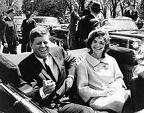

If the government's so perfect, why did it send me a license saying I'm a woman? The You Always Remember Where You Were Day? The Day the U.S. Constitution Died Like That, 1-2-3? A turning point in U.S. history, as the most forked-up official coverup in Illuminati history offers the old One Lucky Plucker Theory, which seems on closer inspection like one of them Japanese magic shows with black ninjas? The JFK Assassination is like a dark alley, with a stand in front holding a voluminous official story, which you are told to accept by the government, while if you try to go in the alley to see for yourself, you will end up dead, and all historyscopers can do is hope to shine a little light in the alley while looking downstream and seeing who had the power to do it, who benefitted, and who had the power to cover it up? The Mighty U.S. comes to a stop for a month, during which who knows what's going on behind the scenes during the nonexistent coup d'etat? "And I saw one of his heads as it were wounded to death; and his deadly wound was healed; and all the world wondered after the beast" (Rev. 13:3)? On Nov. 22, 1963 (11-22-33, er, 11-22-63) (6+3=9 and 22-11=11, thus the first real 9/11?) (Fri.) U.S. pres. (since Jan. 20, 1961) (34 mo., 2 days) after approving a probe to see whether relations with Fidel Castro can be improved earlier this mo., John Fitzgerald Kennedy (b. 1917) is assassinated in Dealy Plaza in Dallas, Tex. From the get-go the U.S. govt. closes ranks, claiming it wasn't a coup d'etat, er, conspiracy, allowing the stink of one to cover it until ? LBJ becomes U.S. pres. #36, immediately ramping the Vietnam War up. On Nov. 29 LBJ signs Nat. Security Action Memo 273, reversing JFK's pullout of U.S. troops from Vietnam, or at least advisors. In Nov. Romanian Communist leader Gheorghe Gheorghiu-Dej signs an agreement in Yugoslavia agreeing to construct an "Iron Gate" hydroelectric and navigation system on the Blue Danube River.
In 1963 a Marxist coup takes place in the People's Repub. of the Congo (Brazzaville), causing China and the Soviet Union to come knocking seeking influence, while France retains its role as trade partner with private enterprise continuing.

In 1963 Russian Jewish non-political poet Joseph Brodsky (1940-96) is arrested, then tried next year in a Soviet court for parasitism, with the judge asking him "Who gave you the authority to call yourself a poet?", and Brodsky replying "No one. Who gave me the authority to enter the human race?"; he is sentenced to five years of forced labor in Archangelsk, but after internat. protests by Jean-Paul Sartre, Yevgeny Yevtushenko, Dmitri Shostakovich et al. his sentence is commuted in 1965, and he is exiled on June 4, 1972, ending up in the U.S., and going on to win the 1987 Nobel Lit. Prize. In 1963 Nikita Khrushchev's son-in-law Ivan A. Adzhubei becomes ed. of Izvestia, dropping out of sight when his father-in-law is ousted next year, then resurfacing after Mikhail Gorbachev rehabilitates him in 1987.

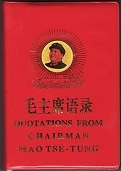
On Jan. 5, 1964 French defense minister (1960-9) Pierre Joseph Auguste Messmer (1916-2007) meets in Phnom Penh with king (1941-55) Norodom Sihanouk, and offers French tanks, trucks, and combat aircraft to defend Cambodian neutrality. On Jan. 7 Leyland Motor Co. of Britian announces the sale of 450 buses to Cuba, thumbing their nose at the U.S. blockade. On Jan. 28 France and the Soviet Union agree to negotiate a 5-year trade agreement to increase trade, pissing-off the Communist Chinese. In Jan. the new Chinese Jehovah Mao pub. his atheist Bible, the "Little Red Book" Quotations from Chairman Mao Tse-tung, which immediately becomes required reading for good (live) Chinese Communists and Western leftists, and is full of soundbytes, e.g., "Political power grows out of the barrel of a gun", and "Communism is not love, it is a tool with which we crush the enemy", and promotes the term "political correctness" (PC) to describe the "correct" party line, which ends up getting eagerly adopted by the Western left. On Feb. 10 the People's Repub. of China (PRC) breaks off diplomatic relations with France for playing footsie with the Soviet Union. On Feb. 18 the U.S. cuts military aid to five nations in reprisal for having trade relations with pesky Cuba. On Feb. 27 the Pathet Lao captures strategic positions in the Plaine des Jarres in Laos, causing a conference between the three main factions, resulting on Mar. 16 in an agreement to halt "all military activities" there; on Apr. 19 two rightist generals try to take over the cabinet, causing protests by the Western powers, the Soviet Union and China, and PM Souvanna Phouma agrees to revamp the coalition govt., but the Pathet Lao drops out and resumes fighting by May 16, then on June 1 withdraws all officials from Vientiane, cutting its ties with Phouma's govt.; on June 12 U.S. recon flights find North Vietnamese troops in Laos, and the U.S. finally is resigned to Laos being a Commie haven containing the Ho Chi Minh Trail; the only cheery news for the U.S. is the training of Meo tribesmen to fight them; meanwhile the U.S. begins 580K bombing missions over Laos, dropping 2.3M tons of bombs by 1973, after which dud bombs kill 200 a year until ?. On Mar. 10 a Communist delegation leaves Beijing and Moscow to negotiate arms purchases with Cambodia; on Mar. 11 Cambodians attack the U.S. and British embassies in Phnom Penh, causing Norodom Sihanouk to express regret and withdraw his demand for a 4-power conference to guarantee his country's borders; on Mar. 24 Cambodia and South Vietnam formally end their border talks, and Sihanouk unwithdraws his demand, causing the Soviets to request the British to co-chair the conference with them, which the British rejects, and Pres. Charles de Gaulle to promise to use his influence with the U.S. and Britain to get the conference set. Car toys, a better way to go? On Mar. 26 U.S. defense secy. Robert S. McNamara delivers a speech reaffirming U.S. support of South Vietnam against the Commies; meanwhile Pres. Johnson signs a document accepting Predelegation of Authority, authorizing senior military cmdrs. to use nukes if the U.S. is attacked by nukes and the pres. cannot be reached, as satirized in the 1963 Stanley Kubrick film "Dr. Strangelove".
On Apr. 1-10, 1964 Nikita Khrushchev visits Hungary; a joint statement is issued declaring Hungarian support of the Soviet Communist Party in its dispute with the Chinese - ahoo-oo, play something country? On May 9 Nikita Khrushchev visits Egypt, and on May 14 he joins Egyptian pres. Gamel Abdel Nasser in setting off charges that begin diverting the Nile River from the site of the Aswan High Dam project; when the dam begins operation, it stops the pesky annual flooding, but it also keeps silt from making it to the Nile Delta region, resulting in the salty sea slowly reclaiming usable land - why fix something that isn't broke? On May 19 the U.S. State Dept. announces that the U.S. embassy in Moscow had been bugged by a network of 40+ microphones embedded in the walls. On June 9 IQ-142 army deserter George John Gessner (1936-) is convicted of passing U.S. secrets to the Soviet Union in federal court in Kansas City, Kan.

I love the smell of napalm in the morning, play the Wagner music, please? On June 20, 1964 S.C.-born gen. William Childs "Westy" Westmoreland (1914-2005) (who in 1956 at age 42 became the youngest Maj. Gen. in the U.S. Army) succeeds Gen. Paul Harkins as CIC of U.S. forces in Vietnam (until 1968), using his WWII experience leading a fast-moving artillery battalion to orchestrate a "mammoth logistical buildup, various tactical expedients and innovations, the Advisory effort, civic action programs... But perhaps the most impressive of all was the accomplishment for the first time in military history of a true air mobility on the battlefield" (Westmoreland); he goes on to become the U.S. gen. who "won every battle until he lost the war" (Neil Sheehan) - a half head shorter than LBJ?

On Sept. 21, 1964 East German PM (since 1949) Otto Grotewohl (b. 1894) dies, and lifelong (since age 14) Communist Willi Stoph (1914-99) becomes PM of East Germany (GDR) (until 1973) - new boss, same ole stoph? In Sept. the U.S. Joint Chiefs of Staff set up the SIGMA I & II wargames to model how the Commies would react to LBJ's policy of "graduated pressure"; it predicts that bombing has little effect and stiffens their determination as they use stockpiled supplies, after which public support in the U.S. tanks.


On Oct. 14-15, 1964 after embarrassing them for the last time, shoe-tapping Soviet gen. secy. (since 1953) Nikita Sergeyevich Khrushchev (1894-1971) is ousted from power by the Politburo while vacationing on the Black Sea coast, and replaced as first secy. of the Soviet Communist Party (CPSU) by beetle-browed (not Beatle-browed) Leonid Ilyich Brezhnev (1906-82) (until 1982), and as PM by Alexei (Aleksei) Nikolayevich Kosygin (1904-80) (until 1980); (after leaving two "open in an emergency" letters to his successor, the first saying "blame everything on me", the second saying "sit down and write two letters" :), Big K spends the rest of his life under house arrest doing shoeless gardening work.
On Oct. 16, 1964 China explodes its first A-bomb in Lop Nor (Nur), a lake in the Gobi Desert, and becomes nuclear nation #5 (U.S., Soviet Union, Britain, France), and the first Asian country with nukes; China now has some muscle to challenge Russia for leadership of the Communist bloc of nations; Indonesia announces its intent to pursue a nuclear weapons program - the U.S. hope of winning in Vietnam dies right here?


On Nov. 3, 1964 after the CIA funnels up to $20M into Chile to insure it, good guy Eduardo Frei Montalva (1911-82) (son of a Swiss-born German father from Austria) of the Christian Dem. Party is elected as pres. #28 of Chile (until Nov. 3, 1970) by 56%-39% over bad guy Marxist Salvador Allende Gossens (1908-73), with the slogan "Revolution in Liberty". On Dec. 30-31 the Indian govt. arrests members of of the pro-Chinese wing of the Communist Party for plotting a violent rev. to coincide with another Chinese invasion. In 1964 Juanita Castro (1933-), sister of Cuban dictator Fidel Castro and Raul Castro, who broke with them and began cooperating with the CIA goes into exile; the secret is kept until 2009.

In 1964 Altoona, Penn.-born Baptist minister John A. Stormer (1928-) pub. None Dare Call It Treason, a bestseller (7M copies) about Commie traitors in the U.S. govt., making him "the most popular U.S. backstairs author of all time" (Daniel Pipes).

On Jan. 1, 1965 the People's Dem. Party of Afghanistan, its first Communist org. is founded by Nur Muhammad Taraki (1913-71) and Babrak Karmal (1929-96).


Sukarno no, Suharto go? On Jan. 2, 1965 after getting pissed-off at the seating of its neighbor enemy Malaysia on the U.N. Security Council, Indonesia becomes the first nation to withdraw from the U.N. (resuming membership next year after a peace agreement), and on Mar. 19 it nationalizes all foreign oil cos.; on Sept. 30-Oct. 1 a coup by junior military officers in Jakarta kills six generals, and is crushed by Pres. Sukarno, after which Java-born Muslim Gen. Suharto (Soeharto) (1921-2008) stages a military coup against Sukarno, becoming pres. #2 of Indonesia on Mar. 12, 1967 (until May 21, 1998); on Oct. 20 Suharto begins mass arrests of Communists after blaming them for the coup, outlawing the Communist Party then massacring 500K-1M peasants, workers, students and activists by next year, with the CIA furnishing 5K names of Communist leaders, while using his Golkar Party (founded Oct. 20, 1964) to rule with an iron hand, proclaiming the New Order (ends 1998), banning celebration of the Chinese New Year and other Chinese culture in an effort to force assimilation of mainly rich Chinese Indonesians (5% of the pop.); Indonesian leftist writer Pramoedya Ananta Toer (1925-2006), known for being sympathetic to the Indonesian Chinese is imprisoned on Buru Island without charges until 1979, then kept under house arrest until 1992; in 1979 his 4-part novel Buru Quartet is pub., getting banned by the govt. and making him a poster boy for human rights and free speech advocates; the 1983 Mel Gibson film "The Year of Living Dangerously" is set in the 1965 Indonesian civil war.


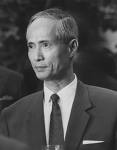

The original Wrath of Khanh without Captain Kirk? On Jan. 27, 1965 a bloodless military coup led by Lt. Gen. Nguyen Khanh ousts the civilian govt. of Tran Van Huong in Saigon; on Feb. 9 Khan names Harvard-educated economist Nguyen Xuan Oanh (1921-2003) as acting PM of South Vietnam; on Feb. 19 a coup in Saigon against Khanh by several gens. causes him to flee to Da Lat, where he obtains the support of air marshal Nguyen Cao Ky (1930-) and threatens to bomb Saigon incl. Tan Son Nhut Airport if rebels troops aren't withdrawn, after which U.S. gen. William Westmoreland talks him out of it, and on Feb. 15 Ky appoints Buddhist physician Phan Huy Quat (1911-79) as PM, who lasts 111 days; on June 14 Ky and gen. Martin Nguyen Van Thieu (1923-2001) stage a coup against Khanh (9th since Diem's assassination), and on June 19 Ky becomes PM (youngest ever), and Thieu becomes pres. of South Vietnam (until 1967), becoming the 10th govt. in 20 mo.; meanwhile on Feb. 22 Khanh is replaced as army CIC by Maj. Gen. Tran Van Minh (1923-) (called Little Minh to distinguish him from physically large Duong Van Minh, who is called Big Minh), and on Feb. 25 Khanh becomes an ambassador to France as a coverstory to being exiled, uttering the soundbytes "I left my country in honor that day, not like Thieu, who fled later. My cabinet, my troops, the whole diplomatic corps were there at the airport to bid me farewell", "I am bringing a handful of dirt from the homeland, and will definitely return someday" (copying U.S. gen. Douglas MacArthur), "China believes it is the center of the Universe, just look at its flag, one big star surrounded by satellite stars - arrogance!", and "Vietnam is the next dragon in Asia"; in 1977 Khanh and his family emigrate to the U.S., and on Jan. 2, 2005 he is elected chief of state of the anti-Communist Govt. of Free Vietnam, headquartered in Little Saigon, Westminster, Calif. On Feb. 25 South Korea sends 600 ROK troops to aid South Vietnam, causing North Korea on Mar. 26 to announce its readiness to aid the Communists in Vietnam; South Korea sends 143K troops by next year and 300K by the end of the war; in 1998 it expresses regret to Hanoi for participating in the war. On Feb. 27 the U.S. State Dept. white paper Aggression from the North accuses the North Vietnamese of a deliberate campaign of aggression against the south, justifying U.S. intervention, with the soundbyte: "The war in Vietnam is a new kind of war, a fact as yet poorly understood in most parts of the world. Much of the confusion that prevails in the thinking of many people, and even governments, stems from this basic misunderstanding. For in Vietnam a totally new brand of aggression has been loosed against an independent people who want to make their way in peace and freedom. Vietnam is not another Greece, where indigenous guerrilla forces used friendly neighboring territory as a sanctuary. Vietnam is not another Malaya, where Communist guerrillas were, for the most part, physically distinguishable from the peaceful majority they sought to control. Vietnam is not another Philippines, where Communist guerrillas were physically separated from the source of their moral and physical support. Above all, the war in Vietnam is not a spontaneous and local rebellion against the established government. There are elements in the Communist program of conquest directed against South Vietnam common to each of the previous areas of aggression and subversion. But there is one fundamental difference. In Vietnam a Communist government has set out deliberately to conquer a sovereign people in a neighboring state. And to achieve its end, it has used every resource of its own government to carry out its carefully planned program of concealed aggression. North Vietnam's commitment to seize control of the South is no less total than was the commitment of the regime in North Korea in 1950. But knowing the consequences of the latter's undisguised attack, the planners in Hanoi have tried desperately to conceal their hand. They have failed and their aggression is as real as that of an invading army" - duh, Vietnam is one country, and they're just ousting you foreign invaders from halfway around the world?








On Mar. 19, 1965 Romanian dictator Ghreorghe Gheorgiu-Dej (b. 1901) dies, and on Mar. 22 Nicolae Ceausescu (1918-89) becomes gen. secy. of the Romanian Workers Party, followed by pres. of the state council on Dec. 9, 1967 (until Dec. 22, 1989), going on to rule with an iron hand, starting with changing the party's name to Romanian Communist Party, and the country from People's Repub. of Romania to Socialist Repub. of Romania, and breaking with the Soviet Union and Warsaw Pact while courting the U.S. and W Europe and becoming the first Communist country to recognize Western Germany, join the IMF, and receive a U.S. pres. (Richard Nixon); he is the only Communist leader to retain diplomatic relations with Israel, attempting to mediate with the PLO until the 1967 Six-Day War causes him to break them off; Chivu Stoica (1908-75) becomes pres. #6 (until Dec. 9, 1967). On Apr. 7 East Germany closes the autobahn between West Germany and West Berlin to protest the meeting of the West German Parliament in Berlin, and imposes higher tariffs on rail and water traffic with Berlin. On Apr. 24 Cuban industry minister Che Guevara and 13 Cuban guerrillas arrive in the Congo to help anti-Mobuto revolutionaries, leaving next year after it turns into a disaster, and going to Bolivia. On May 3 Cambodia severs relations with the U.S. (until 1969); meanwhile the first 3.5K U.S. Army combat troops, all from the 173rd Airborne Brigade arrive in Vietnam - where's the 2-buck chuck?
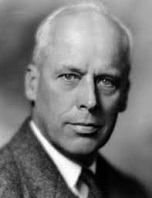
On May 24, 1965 after Englewood, N.J.-born Marxist philosopher Corliss Lamont (1902-95) gets pissed-off at the U.S. Postmaster Gen. for opening and refusing to deliver his mail, the U.S. Supreme (Warren) Court rules 4-4 (White taking no part) in Lamont v. Postmaster General to declare the 1962 U.S. Postal Service and Federal Employees Salary Act unconstitutional that allowed the U.S. Post Office to intercept "Communist political propaganda" and hold it until the addressee requests it.
In June 1965 Janos Kadar resigns as Hungarian PM, and Gyula Kallai (1960-96) becomes PM (until 1967), with Kadar remaining the real ruler with Soviet puppet strings up his back, attempting to lighten the repression as best he can in the presence of Soviet trailer trash troops. On Aug. 11 Canada sells huge amounts of wheat to the Soviet Union and Communist China - Capitalists feed Communists good? On Oct. 29 after a new legislature is elected and an impasse over approval of the cabinet brings student riots, killing three, journalist and senior diplomat Mohammad Hashim (Hashem) Maiwandwal (1920-73), known for his advocacy of evolutionary Socialism becomes PM of Afghanistan (until Oct. 1967), replacing Mohammed Yousef; he quickly pacifies the students but makes their wiggle-room limits clear. In Oct. the Pathet Lao rename themselves to Lao People's Liberation Army. In Oct. Moise Tshombe is dismissed as PM of the Dem. Repub. of Congo after rendering the Stanleyville rebels ineffective by July, then flees to Spain (until June 26, 1964); on Nov. 24 after being put up to it by CIA Congo station chief Lawrence "Larry" Devlin (1922-2008), Gen. Joseph Desire Mobutu (Joseph-Désiré Mobutu) (1930-97) of the Gbandi tribe deposes Joseph Kasavubu and becomes dictator pres. of the DRC (until May 16, 1997), imposing five years of totalitarian army rule, causing political stability and improving economic conditions while he rids the country of all colonial cultural influence and fights Communism in neighboring countries while maintaining close personal and party ties with Nicolae Ceausescu of Romania; too bad, Mobutu ends up using his position to enrich himself, setting the gold standard for African kleptocracy.




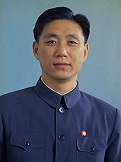
On Nov. 10, 1965 Chinese Gang of Four member Yao Wenyuan (1931-2005) pub. the 10K-word "On the Historical Beijing Opera 'Hai Rui Dismissed from Office'" in the Shanghai Daily, dissing a popular opera by Beijing deputy mayor Wu Han as being a veiled attack on Mao for his 1959 dismissal of defense minister Peng Dehau, launching the Chinese (Great Proletarian) Cultural Rev. (ends 1976) after the Beijing party apparatus tries to protect Wu Han and Mao decides to make an example of them and get rid of them and every other potential enemy in China; the other Gang of Four members are Mao's 3rd and last wife Jiang Qing (1914-91), Zhang Chunqiao (1917-2005), and Wang Hongweng (1935-92), all of whom are low-ranking members of the Chinese Communist Party but personally favored by Mao, allowing them to outmaneuver party moderates incl. Deng Xiaoing and take China down the Red roller coaster; after Mao dies, the Gang of Four is arrested on Oct. 6, 1976, and the Cultural Rev. shoved up their butts?
The pen is mightier than the sword even in Russia? On Dec. 5, 1965 the first pro-democracy demonstration in Soviet Union history sees several dozen demonstrate in C Moscow to demand that the trial of writers Andrei Donatovich Sinyavsky (1925-97) (non-Jewish) and Yuli Markovich Daniel (1925-88) (Jewish) be open; after becoming the first defendants in Soviet history to ender a plea of not guilty, they are tried next Feb., and sentenced to 5-6 years in priz for pub. anti-Soviet works; in 1973 Sinyavsky emigrates to France, while Daniel refuses to emigrate; their actions launch the dissident movement in the Soviet Union that ultimately brings it down.
In 1965 despite its official Commie stance, Yugoslavia begins permitting some free enterprise, moderated by workers' councils.

In 1965 the Soviet Economic Reforms of 1965 (ends 1971), designed by Ukrainian-born economist Evsei Grigorievich Liberman (1897-1981) are based on the Leninist principles of New Dem. Centralism, introducing capitalist mgt. methods incl. material incentives, saving the Soviet economy from stagnation, ditto the East German economy.

In 1965 Harvard-educated economist Barack Obama Sr. (1936-82) of the finance ministry of Kenya proposes dumping pres. Jomo Kenyatta's planned move from Socialism toward capitalism and going 100% Communist, with a 100% income tax to be "utilized in investment for future development", causing Kenyatta to kick him out of the govt., ending his career, after which he goes into a tailspin of alcoholism and drunk driving - leave it to his son to carry on and implement his polices in the U.S.?

On Jan. 4-10, 1966 Indian PM Lal Bahadur Shastri and Pakistani pres. Ayub Khan meet in Moscow under the auspices of Soviet PM Alexei Kosygin, and on Jan. 10 sign the Tashkent Agreement over Kashmir in Tashkent, Uzbekistan, agreeing to withdraw troops to the Aug. 1965 lines and restore diplomatic relations, and promising a peaceful discussion of the problems without specifics; too bad, India fails to renounce guerrilla warfare; on Jan. 11 Shastri dies of a heart attack in Tashkent, and on Jan. 19 Mrs. Indira Gandhi (nee Nehru) (1917-84), daughter of Jawaharlal Nehru is elected PM and head of the Congress Party, taking office as PM #3 of ndia on Jan. 24 (until Mar. 24, 1977); meanwhile India suffers the worst famine in 20 years after crops fail in Bihar, and U.S. Pres. Johnson asks Congress for $1B to aid them, exporting 8M tons of wheat, which pisses-off rice-eaters in Karala State, who stage protests; meanwhile world food production lags 2% behind last year; too bad, after U.S. agricultural secy. Orville H. Freeman urges farmers to plant huge crops, and 6M tons of wheat are shipped to India (whose 1965 crop was 12.3M metric tons), farm prices fall next year, pissing-off farmers, although 10K receive $20K+ in subsidies, 6.5K receive $25K+, 15 receive $500K+, and five get $1M+ - go girl, you should write a book?
On Jan. 7, 1966 a delegation from the Soviet Union in Hanoi expresses solidarity and wishes their Commie bro's an early V over the pesky Yankee imperialists in South Vietnam. On Jan. 12 LBJ's Third State of the Union Address claims that the U.S. should stay in Vietnam until Communist aggression there is ended, and that the U.S. could have both "guns and butter", admitting that this war is unlike anything the U.S. has faced before, but adding the soundbyte "Yet, finally, war is always the same. It is young men dying in the fullness of their promise. It is trying to kill a man that you do not even know well enough to hate... Therefore, to know war is to know that there is still madness in this world"; draft quotas are raised 10x (from 5K in 1965), causing the anti-Vietnam War protest to escalate 100x? - God you remind me of myself when I was your age? On Jan. 20 demonstrations are held in Hungary over high food prices - I got paprika but no chicken? On Feb. 6 Fidel Castro accuses China of spreading anti-Soviet propaganda among Cuban soldiers.


 It's not your father's Olds? The bullet and the big character poster is stronger than the ballot in Red China?
On Feb. 12, 1966 the Group of Five, led by Beijing mayor (since 1951) Peng Zhen (1902-97)
pub. the Feb. Outline,
trying to diffuse the issue of the "Hai Rui Dismissed from Office" brouhaha, causing Gang of Four members Jiang Qing and Yao Wenyuan
to fire back with articles denouncing them; on May 16 Chairman Mao pub. the Notification,
criticizing Peng Zhen and disbanding the Group of Five, launching the Great Proletarian Cultural Rev.
(ends 1976) against the liberal bourgeoisie elements in the Communist Party, ramping up his personality cult and touting him as "a genius, everything
the Chairman says is truly great, one of his words will override the meaning of tens of thousands of ours"; on May 25 female Beijing U. philosophy prof.
Nie Yuanzi (1921-)
pub. the first dazibao (big character poster), calling the rector and other profs. at her univ. "black anti-Party gangsters", which
Mao orders to be broadcast nationwide; on May 26 the first youth group of Red Guards
is formed at Tsinghua U. to kick their elders' bourgeois butts for Mao; on June 1 the People's Daily calls for the purging of all imperialists,
imperialistic intellectuals, or people with imperialist affiliations, after which the Red Guards write a formal letter to Mao on July 28 asking
for official approval of mass purges, which he responds to with the epic article
Bombard the Headquarters; on
Aug. 8 the Chinese Communist Central Committee approves the 16 Points of the Cultural Rev.
to "struggle against and crush those persons in authority who are taking the capitalist road", calling on all workers to "transform the superstructure"
by writing big character posters and holding great debates, fighting the Four Olds (Old Customs, Old Culture, Old Habits, Old Ideas), pretending
to grant unprecedented freedom of speech as long as it rubberstamps Mao; on Aug. 16 11M Red Guards gather in Beijing, where Mao warmly receives
them on top of the Tiananmen Square gate; the terror campaign destroys all religious bldgs. and tortures and/or kills everybody with any kind
of Western education or an IQ higher than a rice doughnut, with Mao on Aug. 22 issuing an order preventing police intervention in Red Guard
actions while uttering the soundbyte "Hitler was even more ferocious. The more ferocious the better, don't you think? The more people you
kill, the more revolutionary you are"; in Aug.-Sept. 1,772 are murdered in Beijing; in Sept. 534 are killed and 704 commit suicide; on Sept. 5
Mao invites all Red Guards to visit Beijing at govt. expense; on Oct. 10 Mao's puppet gen. Lin Biao (1907-71)
publicly criticizes Deng Xiaoping and Liu Shaoqi, and Deng is sent to a reeducation camp 3x until being rescued by Zhou Enlai; by the end of the
Cultural Rev. 1M+ are killed or driven to suicide; the Red Guards close medical schools and dump Western-trained physicians in favor of "barefoot doctors" peddling Chinese herbs.
It's not your father's Olds? The bullet and the big character poster is stronger than the ballot in Red China?
On Feb. 12, 1966 the Group of Five, led by Beijing mayor (since 1951) Peng Zhen (1902-97)
pub. the Feb. Outline,
trying to diffuse the issue of the "Hai Rui Dismissed from Office" brouhaha, causing Gang of Four members Jiang Qing and Yao Wenyuan
to fire back with articles denouncing them; on May 16 Chairman Mao pub. the Notification,
criticizing Peng Zhen and disbanding the Group of Five, launching the Great Proletarian Cultural Rev.
(ends 1976) against the liberal bourgeoisie elements in the Communist Party, ramping up his personality cult and touting him as "a genius, everything
the Chairman says is truly great, one of his words will override the meaning of tens of thousands of ours"; on May 25 female Beijing U. philosophy prof.
Nie Yuanzi (1921-)
pub. the first dazibao (big character poster), calling the rector and other profs. at her univ. "black anti-Party gangsters", which
Mao orders to be broadcast nationwide; on May 26 the first youth group of Red Guards
is formed at Tsinghua U. to kick their elders' bourgeois butts for Mao; on June 1 the People's Daily calls for the purging of all imperialists,
imperialistic intellectuals, or people with imperialist affiliations, after which the Red Guards write a formal letter to Mao on July 28 asking
for official approval of mass purges, which he responds to with the epic article
Bombard the Headquarters; on
Aug. 8 the Chinese Communist Central Committee approves the 16 Points of the Cultural Rev.
to "struggle against and crush those persons in authority who are taking the capitalist road", calling on all workers to "transform the superstructure"
by writing big character posters and holding great debates, fighting the Four Olds (Old Customs, Old Culture, Old Habits, Old Ideas), pretending
to grant unprecedented freedom of speech as long as it rubberstamps Mao; on Aug. 16 11M Red Guards gather in Beijing, where Mao warmly receives
them on top of the Tiananmen Square gate; the terror campaign destroys all religious bldgs. and tortures and/or kills everybody with any kind
of Western education or an IQ higher than a rice doughnut, with Mao on Aug. 22 issuing an order preventing police intervention in Red Guard
actions while uttering the soundbyte "Hitler was even more ferocious. The more ferocious the better, don't you think? The more people you
kill, the more revolutionary you are"; in Aug.-Sept. 1,772 are murdered in Beijing; in Sept. 534 are killed and 704 commit suicide; on Sept. 5
Mao invites all Red Guards to visit Beijing at govt. expense; on Oct. 10 Mao's puppet gen. Lin Biao (1907-71)
publicly criticizes Deng Xiaoping and Liu Shaoqi, and Deng is sent to a reeducation camp 3x until being rescued by Zhou Enlai; by the end of the
Cultural Rev. 1M+ are killed or driven to suicide; the Red Guards close medical schools and dump Western-trained physicians in favor of "barefoot doctors" peddling Chinese herbs.
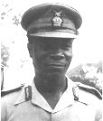


On Feb. 23, 1966 the Syrian Coup of 1966 in Damascus gives power to a radical Marxist neo-Baathist faction, causing the party's founders to flee into exile for life, while creating a permanent schism between the Syrian and Iraqi branches. On Feb. 24 while visiting Hanoi and Beijing, Ghana's Marxist pres. Kwame Nkrumah is deposed by a CIA-backed military coup led by Lt. Gen. Emmanuel Kwasi Kotoka (1926-67); on Mar. 2 pres. (1958-84) Ahmed Sekou Toure of Guinea welcomes him and declares him joint pres. in his 1-party police state paradise, but it turns out to be only honorary - it's not a house or a hut, it's a mansion? On Mar. 11 Indonesian pres. Sukarno signs the Supersedekarforhar, er, Supersemar, a document handing over all military and executive power to Gen. Suharto, who stages anti-Communist demonstrations on Mar. 17. On Mar. 29 the 23rd Communist Party Conference convenes in the Soviet Union; Leonid Brezhnev demands that the U.S. pull out of Vietnam while admitting that Sino-Soviet relations suck. On Apr. 18 China announces that it's ending economic aid to Indonesia, after which on May 15 Indonesia flip-flops and asks Malaysia for peace negotiations, which are concluded on May 28, after which a treaty is signed on Aug. 11. On Apr. 27 Pope Paul VI grants an audience to Soviet foreign minister Andrei Gromyko (1909-89), becoming the first official meeting between the leaders of the Roman Catholic Church and Soviet Union, beginning the Great Vatican Thaw; "Smiling broadly, [he] met Gromyko at the door of the library and held out both hands in greeting" (Newsweek). In Apr. East German "Nichtkonformer" (dissident) chemistry prof. Robert Havemann (1910-82) is ousted from the East Berlin Academy of Sciences, his job at Humboldt U., and the Socialist Party for criticizing the GDR regime after giving an interview to a West German newspaper and delivering the shocking lecture Dialectic Without Dogmatism: Natural Sciences Against Communistic Ideology in 1964; he was only trying to inject life into the moribund Marxist-Leninist theology? On June 20-July 1 French pres. Charles de Gaulle visits the Soviet Union to show his independence of NATO, discussing joint programs for technological development and space exploration; meanwhile on June 30 France officially leaves NATO - the end of the 6th month of 1966? On July 4-6 a conference of Warsaw Pact countries sees Romanian dictator Nicolae Ceausescu propose dissolution of both NATO and the Warsaw Pact, and demand that all nations withdraw their troops from the soil of other nations; it ends with a promise to support their brothers in North Vietnam. In July Yugoslavian vice-pres. (former security chief) Alexander Rankovic (a Serb) is ousted for opposing the toleration of free enterprise, and his office is abolished. On Aug. 16 the House Un-Am. Activities Committee holds a meeting to investigate Americans who are aiding the Viet Cong, and are disrupted by anti-Vietnam War demonstrators; 50 are arrested. On Sept. 3 Mao puppet Lin Biao urges students to go after party officials influenced by the ideas of Nikita Khrushchev. On Sept. 13 Soviet news agency TASS reports clashes between the Chinese Communist Party and the Chinese Monkees, er, Red Guards. On Oct. 3 the Soviet Union announces that it will join Red China in providing economic and military assistance to North Vietnam. On Oct. 7 the Soviet Union orders all Chinese students to leave the country by the end of Oct. On Oct. 11 France and the Soviet Union sign a treaty of cooperation in nuclear research - so what did the GIs save them in WWII for? On Oct. 22 in Britain former MI-6 agent George Blake (Behar) (1922-), son of an Egyptian-born Sephardic Jew who fought for the British in WWI, who betrayed his comrades to the East Germans and was sentenced to 42 years in 1961 (longest sentence in British history so far) breaks out of Wormwood Scrubs Prison in London, and turns up in East Berlin on Nov. 20, where he is welcomed as a Cold War hero - anything to do with the August 12 massacre? In Oct. North Korea begins returning to its old allegiance with the Soviet Union, backing off its support of Communist China and its Cultural Rev. - how 'bout them missiles? On Nov. 28-Dec. 3 the Ninth Congress of the Hungarian Socialist Workers Party discusses economic reforms - more fashionable coveralls? On Dec. 5 Mao's wife Jiang Qing gets her first official political job, consultant to the Chinese Army, in an effort to curb the uppityness of the Red Guards; too bad, she flops to their side. On Dec. 31 East German PM Walter Ulbrich flirts with negotiations on German reunification - simple, become Commies and we're okay? In 1966 the U.N. passes two Internat. Human Rights Covenants and presents them to the U.S. for signing, but the latter cites Cold War concerns and refuses (one of them is ratified in 1992); meanwhile the U.S. is busy propping up repressive regimes around the world merely because they claim to be anti-Communist: Bolivia, Chile, Guatemala, Haiti, Iran, Liberia, Pakistan, Paraguay, Somalia, South Africa, South Korea, South Vietnam, Sudan, Zaire et al.

In 1966 Hamilton, Ohio-born former TV Cinderella Janet Greene (nee Marcum) (1930-) releases Fascist Threat, one of six anti-Communist songs recorded this year, causing her to be called the "Anti-Joan Baez"; too bad, the non-reaction causes her to give up next year.



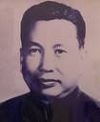

On Jan. 1, 1967 Yugoslavia becomes the first Communist country to open its borders to all foreign visitors and abolish visa requirements; pres. (since 1945) Josip Broz Tito goes on to call for Arabs to recognize Israel. On Feb. 15-21 nat. elections in India give Indira Gandhi's Congress Party a small majority in the lower house, but state elections cause them to have to form coalition govts. in 9 of 16 states, while the Communists gain; the Congress Party begins to become weighed down by special interest groups, incl. Muslims, Sikhs and Untouchables, and to become divided over the language question; meanwhile rich peasants who made a killing from inflated prices during the 1965-6 drought become a force. On Mar. 15 pres. (since 1964) Humberto Castelo Branco resigns, and on July 18 he is killed when his Piper plane crashes into a Hercules training jet near Forteleza; on Mar. 15 U.S.-trained war minister gen. Artur da Costa e Silva (1902-69) becomes pres. #30 of Brazil (until Aug. 31, 1969), going on to crack down on Communists, promulgate Institutional Act 5 (AI-5) next Dec. 13, giving him the power to dismiss the congress and repress left-wingers, and preside over the Brazilian Miracle, a 9%-15% per annum growth rate (until ?). On Aug. 8 the Assoc. of Southeast Asian Nations (ASEAN) is formed by Malaysia, Philippines, Indonesia, Thailand, and Singapore to fight Chinese-backed Communist encroachment. On Sept. 3 after nat. elections cause an 83% turnout, Lt. Gen. Nguyen Van Thieu (d. 2001) is elected as pres. #1 of South Vietnam's Second Repub. under the new anti-Communist 1967 South Vietnamese Constitution, and is sworn in on Oct. 31 (until 1975); his vice-pres. is Nguyen Cao Ky (1930-), the pair winning only 35% of the vote. On Dec. 26 the South Vietnamese govt. threatens to pursue Communist troups into Cambodia if they are using it as an infiltration base; on Dec. 29 Beijing tells Cambodia that it will support it against any U.S. military operations; meanwhile the Cambodian Khmer Rouge Communists, led by Paris-educated Pol Pot (Saloth Sar) (1928-98) begin a peasant uprising in NW Battambang Province to protest a rice tax, which is suppressed by next year - since I got in the loop, heads started to roll? In 1967 sick Czech., home of the lowest standard of living in the Soviet bloc agrees to adopt the New Economic Model of Ota Sik (1919-2004), calling for limited reforms incl. less central planning to spur industrial growth; too bad, Communist Party bureaucrats hamstring the reforms, resulting in little more than new private taxicabs in Prague, and after the Prague Spring he exits Czech. stage left, ending up in Switzerland, with TASS calling him "one of the most odious figures of the right wing revisionists". In 1967 the Communist regime (since 1941) of Enver Hoxha in Albania, which began religious persecution in 1944 prohibits all religion this year, closing all 2,169 churches and mosques, and conducting a violent campaign to extinguish religious life, imprisoning and executing religious leaders; Albania is declared the "world's first atheist state" - what do you expect from a country where nodding your head means no and shaking it means yes? In 1967 North Korea insitutes compulsory education, emphasizing science, technology, productive labor, and Communist ideology.
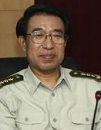

On July 20, 1967 after efforts are made to get the Red Guards to return home and go back to school, the Wuhan (July 20th) Incident sees the 500K-person Million Heroes attack the radical 500K-person Wuhan Workers Gen. HQ and capture party leader and party mag. Red Flag ed. Wang Li (Guangbin) (1922-96), after which they are viciously exterminated by orders of Chmn. Mao; a speech given by Wang Li on Aug. 7 to the Red Guards in China leads to their violent takeover of the Foreign Ministry bldg., followed by weeks of rampaging over foreign diplomats and their envoys; after being purged by Mao, Wang Li is jailed for inciting the Red Guards; Chinese military superstar and former vice-PM Peng Dehuai (1898-1974), who in 1964 was put in charge of the Third Front strategic fallback base in SW China is arrested by the Cultural Rev. and penged, er, beaten 130 times by the Red Guard until his internal organs are crushed and his back splintered, shouting dehuaials, er, denials and pounding the table so hard the cell walls shake, ending up dying of cancer in priz without recanting his independent views.




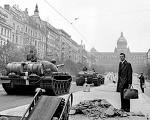


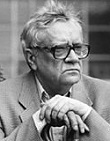
Let's forget the past, or, Your mouth, mouth, mouth? Czechoslovakia plays cat and mouse with the Soviet Bear and gets eaten? On Jan. 5, 1968 the Prague Spring begins when Leonid Brezhnev replaces repressive (since 1957) Antonin Novotny (1904-75) as first secy. of the Czech Communist Party with indubitably liberal Alexander Dubcek (1921-92) (until Apr. 17, 1969); on Mar. 22 Dubcek announces liberal dem. reforms to implement "Socialism with a human face"; on Mar. 30 (as a hedge or a cover-story?); Moravian-born Communist hardliner war hero Ludvik Svoboda (1895-1979) is elected Czech pres. #8 (until May 28, 1975), then on Apr. 7 centrist fuel minister (son of a miner) Oldrich Cernik (1921-94) becomes PM (until Jan. 28, 1970); on Apr. 19 the secy. of the nat. assembly promises rehabilitation of political prisoners and freedom of the press, assembly and religion, and on June 27 does as promised; both Dubcek and Svoboda turn down invites to conferences in Moscow and Warsaw, although they receive support from Tito of Yugoslavia and Ceausescu of Romania - what's that creaking noise on the frontier? On Aug. 3 reps. of the Soviet, Czech., and other Communist parties meet to resolve their differences; the Bratislava Statement apparently concedes Czech.'s right to pursue its own path; Bratislava (Pressburg) is named capital of the Slovak Socialist Repub. of Czech. Every spring the toilets explode? Prague Spring yes, Hungarian Summer no? On Aug. 20 (night) fearing a Hungarian-copycat rev., the Soviets announce new military maneuvers along the Czech border, and in the early hours of Aug. 20/21 200K forces (incl. 5K tanks) of the Warsaw Pact (Soviet Union, Bulgaria, East Germany, Hungary, Poland, but not Romania) stage the 1968 Czech Invasion (AKA Operation Danube) to prevent the new govt. of Alexander Dubcek from carrying out promised dem. reforms; Dubcek and other members of the Czech Presidium incl. PM Oldrich Cernik are arrested to take them to the Kremlin (Dubcek is making a phone call, and Russian parachutists tear the phone from his hands and cut the cord); occupation forces are increased to 650K; Hollywood child star Shirley Temple Black (1928-) is in Prague during the invasion, and leads the first car of a convoy of Westerners to the Czech border; after PC pres. Ludvik Svoboda lobbies on their behalf, the arrested leaders return to Prague on Aug. 27 and announce reversal of their reforms, then on Aug. 28 Slovak anti-reform deputy PM Gustav Husak (1913-91) takes over from duped Czech, er, Dubcek as first secy. of the Czech Communist Party, taking office next Apr. 17 (until Dec. 12, 1987); after Soviet foreign minister Adm. Nikolai Gerasimovich Kuznetsov (1904-74) arrives in Prague, Dubcek bans political clubs on Sept. 6, Czech authorities introduce a censorship system on Sept. 13, and the foreign minister who presented the Czech case at the U.N. resigns under pressure on Sept. 19; Soviet writer Vladimir Emelyanovich Maximov (originally Lev Alekseyvich Samsonov) (1930-95) resigns as ed. of the Communist lit. journal Oktyabr to protest the Czech invasion. On Aug. 23 the Soviet Union casts its 105th U.N. Security Council veto to block a resolution condemning its own invasion of Czech.
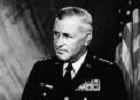

On Jan. 16, 1968 U.S. military aide Lt. Cmdr. Ernest A. Munro is assassinated by Communist guerrillas while returning to the U.S. embassy in Guatemala. On Feb. 29 Romania walks out of a Communist Party conference in Budapest in a dispute over Communist China. On Mar. 22 Gen. William C. Westmoreland is relieved of his duties in the wake of the Tet disaster, returning to the U.S. as Army chief of staff until his 1972 retirement, and on June 11 he is succeeded by Lloyd Bridges lookalike Gen. Creighton Williams Abrams III (1914-74), who reverses Westmoreland's aggressive strategy of attrition of enemy forces, ending major search-and-destroy missions (which have been given a bad name by the press) and focusing on the nicer-sounding protection of pop. centers; meanwhile on July 1 William Egan Colby (1920-96) takes charge of the CIA pacification campaign known as the Phoenix Program to help the South Vietnamese govt. root out (don't say search) and pacify (don't say destroy) the civilian infrastucture supporting the Viet Cong, eventually assassinating 20K-60K suspected Viet Cong in Vietnamese villages (ends 1972) - justice the American way?
In Mar. 1968 the Communist govt. of Poland launches a campaign against dissident intellectuals and students, stripping 12K-20K Jews and people of Jewish origin of their citizenship and forcing them to leave the country; in Mar. 1998 they are invited to return by pres. Aleksandr Kwasniewski, who calls the episode a shameful page in Polish history. In Mar. a campaign to raise Chmn. Mao to the status of a god begins in Red China - yo ho mao yo ram geeky yo?
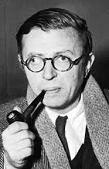

Prague has a whole spring, France gets just May? On May 2, 1968 (Thur.) French May of 1968, a near-repeat of the 1789 French Rev. begins when student outbreaks that began on Mar. 22 spread to Paris' Latin Quarter (Sorbonne et al.), and erupt into student riots; on May 3 the police evacuate the Sorbonne after arresting 600 (100 injured), just making them madder; on May 6 (Mon.), AKA Bloody Monday hundreds of thousands of students riot; on May 10 and May 11 ("Night of the Barricades") students in the Latin Quarter erect cobblestone barricades, fly red flags, and overturn 188 cars, burning many of them with Molotov cocktails, injuring 1K, incl. 251 police; on May 11 the revolt spreads to 10M French workers, who begin striking; on May 18 pres. Charles de Gaulle cuts a visit to Romania short to return to Paris, and calls in troops, causing the students' rev. spirit to begin to dissipate, and the strikes to stop by May 27; after philosopher Jean-Paul Sartre (1905-80) is arrested for civil disobedience, de Gaulle intervenes and pardons him, with the soundbyte "You don't arrest Voltaire"; on May 24 de Gaulle gives a radio address, calling for a referendum on reforms to end the violence, with the soundbyte "Back me or sack me"; on May 24 protesters set fire to the Paris Bourse after French-born German Jewish student Daniel Marc Cohn-Bendit ("Danny the Red") (1945-), who took part in the initial revolt in Nanterre is exiled as a threat to public order; after trade unions sign major agreements on wages and working conditions, workers begin returning to the job on May 27; on May 30-31 de Gaulle dissolves the French nat. assembly (parlement) and proclaims new gen. elections, which are held on June 23-30 and are a V for his Gaullists, giving them 358 of 487 seats, a repudiation of Communists and other radicals, causing his govt. to become stronger than before the big ruckus; meanwhile on Apr. 29 a Renault factory on Seguin Island is struck for 33 days until the govt. recognizes their union; after things calm down, de Gaulle appoints former agriculture minister Edgar Faure as education minister and gets a new law enacted to reform higher education.
On July 1, 1968 the U.S., Britain, and U.S.S.R. sign the Nuclear Non-Proliferation Treaty (Treaty on the Non-Proliferation of Nuclear Weapons), drafted by Alfonso Garcia Robles of Mexico, pledging to refrain from helping any non-nuclear country get nukes; 59 other nations soon sign it, with France and Communist China holding out until 1992, and India, Pakistan, and Israel holding out until ?; the Soviet invasion of Czech. causes the U.S. Senate to delay ratification until Mar. 5, 1970, and in 1995 the 174-nation U.N. votes to extend it indefinitely - are you ready for hearts on fire?
On July 27, 1968 after they get too uppity, Mao orders the Red Guards' power over the army ended, and begins reining them in, dismantling them by next year after beginning a campaign in Oct. to completely consolidate his power by purging all officials disloyal to him and sending them to labor camps.


On Oct. 11, 1968 after two weeks in office, new Panamanian pres. Arnulfo Arias (who founded Panama's social security system and gave women the vote, then made the mistake of trying to restructure the Nat. Guard) is ousted for the 3rd time (1941, 1951) in a coup led by Nat. Guard cmdr. Lt. Col. Omar Torrijos Herrera (1929-81) and Col. Boris Martinez, and replaced by puppet pres. Jose Maria Pinilla Fabrega (Fábrega) (1919-79) on Oct. 12 (until 1969); Arias flees to Miami until 1978; within a year (1969) Torrijos ousts Martinez (having him shanghaied to Fla., where he becomes a gas station attendant), promotes himself to brig. gen., foils a coup attempt by younger officers, then stirs up sentiment over the Panama Canal and first jails then invites leftists into his cabinet, relaxes banking and tax laws to attract banks to the country, retaining the U.S. dollar as official currency, and goes on to become the de facto leader of Panama until 1981, known as a champion of the poor, divesting landed families and promoting birth control, and gaining U.S. support by opposing Communism - only until they can get another boot-kisser of the rich to replace him?

On Nov. 30, 1968 Yugoslavia rejects the Soviet doctrine of limited sovereignty for "Communist Commonwealth" nations - do I look black? On Dec. 1 former law and sociology prof. Rafael Antonio Caldera Rodriguez (1916-), founder of the Christian Dem. Party (COPEI) is elected pres. of Venezuela (until Mar. 12 1974), winning by only 33K votes against a divided Accion Democratica Party, and is sworn in next Mar. 11 in the first peaceful transfer of power between parties in the country's history; he goes on to pardon rebels, legalize the Communist Party and establish diplomatic relations with the Soviet Union, ditching the Betancourt Doctrine of not recognizing regimes who gained power by force as isolationist - preparing to create another Cuba on the coast of South America one day?

On Dec. 27, 1968 Communist China explodes its 2nd H-bomb. On Dec. 31 the Soviets use good old Communist industrial espionage to build and fly a supersonic aircraft, the Tu-144, beating the capitalist Anglo-French Concorde. In Dec. Yugoslavia passes constitutional amendments giving the chamber of nationalities more power. In Dec. Mao begins the Down to the Countryside Movement (literally "Up to the mountains and down to the villages") (ends 1978), ordering young intellectuals (middle school grads) in cities to move to the countryside - chuck the books, smell the manure, get some callouses? In 1968 Polish Communist leader (since 1946) Wladyslaw Gomulka (1905-82) helps stir up anti-Semitic feelings; within the next two years most of the 30K Polish Jews are forced to leave.

In 1968 Paulo Freire (1921-97) pub. Pedagogy of the Oppressed, a Marxist analysis of education in Brazil; Eng. trans. 1970; bestseller (700K copies); claims that traditional pedagogy is the "banking model", treating students as piggy banks to fill with knowledge, destroying their creativity; "No pedagogy which is truly liberating can remain distant from the oppressed by treating them as unfortunates and by presenting for their emulation models from among the oppressors. The oppressed must be their own example in the struggle for their redemption"; "Education makes sense because women and men learn that through learning they can make and remake themselves, because women and men are able to take responsibility for themselves as beings capable of knowing - of knowing that they know and knowing that they don't."

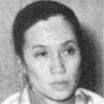
On Mar. 17, 1969 Czech. Communist Party leader Alexander Dubcek presides over the first meeting of the seven Warsaw Pact nations since the invasion in Aug. 1968. On Apr. 14 the Ninth Congress of the Chinese Communist Party (first since 1958) convenes, and adopts a new 1969 Chinese Constitution, ousting pres. (since 1959) Liu Shaoqi, and naming defense minister Lin Biao (Piao) (Yurong) (1907-71) as Mao's successor; too bad, he is killed during a coup, or while Mao is staging a coup on him - ask Mao Piao? On Apr. 17 Alexander Dubcek of Czech. is deposed under Soviet pressure by the Czech Communist Party Central Committee, and Gustav Husak is named first (gen.) secy. (until 1987), going on to reverse Dubcek's reforms and purge liberal party members under the banner of "a new federalism", uttering the 1971 soundbyte "In 1968 Socialism was in danger in Czechoslovakia, and the armed intervention helped to save it" - I got my mind right boss? On May 8 North Vietnamese foreign minister Mme. Nguyen Thi Binh (1920-) announces a 10-Point Peace Program in Paris, actually a non-peace program calling for unification of Vietnam under Communist rule - get all 10 of your toes out of our country, Yankees? On June 5-17 the Internat. Meeting of Communist and Workers' Parties is held in Moscow, the first meeting since 1960, and the largest before the collapse of the Soviet Union, with the Chinese, Koreans, and Vietnamese Communists absent, causing the phenomenon of Eurocommunism to emerge.


On June 18-22, 1969 after reaching a membership of 100K, the crypto-Commie Nat. Convention of the Students for a Dem. Society (SDS) in Chicago, Ill. collapses, and the Weatherman faction seizes control of the SDS nat. office, changing their name to Weather Underground Org. (WUO), from the Bob Dylan song Subterranean Homesick Blues ("You don't need a weatherman to know which way the wind blows"), going on to bomb eight govt. and corp. office bldgs. in New York City this year to protest the Vietnam War., incl. Grace Pear on July 27, Marine Midland Bldg. on Aug. 20 (19 inuries), Federal Place Office Bldg. (Sept. 19), Army Induction Center on Whitehall St. (Oct. 7), Standard Oil offices in the RCA Bldg. (Nov. 11), Chase Manhattan Bank (Nov. 11), Gen. Motors Bldg. (Nov. 11), New York City Criminal Courts Bldg. (Nov. 12); on Nov. 12 leader Samuel Joseph "Sam" Melville (Grossman) (1934-71), his Swarthmore College-educated babe (who never joined the Weather Underground?) Jane Lauren Alpert (1947-), and two others (George Demmerle, Dave Hughley) are arrested; Melville dies in the 1971 Attica Prison riots, and Alpert skips bail in May 1970, turning herself in on Nov. 17, 1974 and receiving 27 mo. in prison after deciding to become a feminist instead, uttering the soundbyte: "For now, I only want to set the scene of my renewed acquaintance with the Weather Underground by saying that when it occurred, I was decisively through with the left and had, at least mentally, rededicated myself to the cause of a revolution made by and for women."





On Sept. 1, 1969 the last U.S. troops leave the Mekong Delta, leaving the South Vietnamese army to fu, er, fend for itself. On Sept. 3 Ho Chi Minh (b. 1890) dies in Hanoi from a heart attack after 15 years as North Vietnamese pres., and on Sept. 24 nat. assembly vice-pres. Ton Duc Thang (1888-1980) succeeds him as pres.; Indochina Communist Party founding member (1930) Le Duan (1908-86) (#2 behind Ho since 1958 and driving force behind the Vietnam War) becomes head of the Vietnam Communist Party, forming a triumvirate with Truong Chinh (1907-88) (Chin. "long march") and PM (1955-87) Pham Van Dong (1906-2000); Alexei Kosygin meets at Beijing (Peking) Airport with Zhou Enlai (Chou En-lai) en route home from Ho Chi Minh's funeral in Hanoi, and they discuss Sino-Soviet border clashes earlier in the year in E and C Asia. On Sept. 28, 1969 Alexander Dubcek is deposed from the ruling presidium of the Czech Communist Party, and the Central Committee purges 29 progressives and liberals from the federal assembly; Oldrich Cernik, a former supporter of the Prague Spring who was forced to visit the Soviet Paradise to get his mind right forms a new cabinet, quickly disavowing the "errors" that he and others have committed against the Holy Cow of Communism.

On Oct. 1, 1969 75-y.-o. Chmn. Mao ascends the vermillion Gate of Heavenly Peace in S Beijing for the 20th anniv. of Nat. Day, and 500K people chanting Mao quotations and pounding gongs and drums stream by; the Beijing Subway begins operation. On Oct. 3 Social Dem. Party (SPD) leader and former foreign minister Willy Brandt (1913-92) forms a coalition with Free Dem. Party leader Walter Scheel to form a slim 12-seat majority in the Bundestag, and on Oct. 21 he is elected West Germany's 4th chancellor by the Bundestag (until 1974), becoming the first Socialist chancellor since 1930, and the youngest (55), going on to pursue the policy of Ostpolitic, recognizing Eastern European Soviet satellite nations. On Oct. 19 amid signs of deepening divisions in the Communist world, formal border conferences begin in Beijing. On Dec. 14 Laotian PM Souvanna Phouma admits the presence in N Laos of 4-5 battalions of Chinese Communists hooking up with North Vietnamese forces; Phouma's troops with U.S. air support eventually drive them back from the Plaine des Jarres. In 1969 Philippine Pres. Ferdinand Marcos is reelected on a platform of big govt. spending, going on to institute authoritarian rule; meanwhile the Communist Party of the Philippines (founded in 1930) is refounded, and sets up the New People's Army (NPA) to give Marcos more excuses to rule with an iron hand.


In 1969 Calif. gov. Ronald Reagan gets black UCLA activist prof. Angela Davis (1969-) fired for being a member of the Communist Party; she is later rehired; Jewish-Am. pragmatist philosopher Sidney Hook (1902-89), who started out a Marxist and went conservative and supports the Vietnam War becomes controversial for pragmatically supporting Reagan's actions.


On Jan. 28, 1970 too-liberal Oldrich Cernik resigns, and is later forced out of the Communist Party, and Lubomir Strougal (1924-) becomes PM #20 of Czech. (until Oct. 12, 1988). On Mar. 1 the Austrian Socialist Party wins an unexpected V over the conservative ruling People's Party, and on Apr. 21 diplomat-politician (party chmn. since 1967) Bruno Kreisky (1911-90) is sworn in as chancellor of Austria's first postwar all-Socialist govt. (until May 24, 1983) (first Jewish chancellor), replacing chancellor (since 1966) Josef Klaus, and restoring the old coalition between the People's Party and Socialist Party.
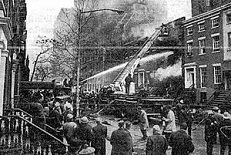
On Mar. 6, 1970 the Greenwich Village Townhouse Explosion at 18 W. 11th St. in Greenwich Village, N.Y. of a nail bomb under construction to be used at a non-com officers dance at Ft. Dix, N.J. that night kills three members of the Weather Underground, Terry Robbins (b. 1947), Theodore "Ted" Gold (b. 1947), and Diana Oughton (b. 1942), and wounds members Kathy Boudin (1943-) and Cathlyn Platt "Cathy" Wilkerson (1945-) (whose father owns the house), after which the rest of the gang goes on the run from the feds, scoring bombings on New York City Police HQ in 1970, the U.S. Capitol in 1971, and the Pentagon on May 19, 1972, and the U.S. Dept. of State Bldg. on Jan. 29, 1975, with William Ayers later writing in his 2001 memoir Fugitive Days: "The sky was blue. The birds were singing. And the bastards were finally going to get what was coming to them"; Stalinist Clayton Van Lydegraf (1915-92) becomes the leader of the Weather Underground until he is captured in 1977 and sent to priz, after which most of the members quit or surender to authorities by 1980.


On Mar. 13, 1970 Cambodia officially requests North Vietnamese and Viet Cong troops (invited in 1969) to get out, but they prefer to polish their nails, causing conferences and peaceful protests to be held; on Mar. 18 Cambodian king ("head of state") (since 1960) Norodom Sihanouk (1922-) is deposed and ousted while visiting Beijing, and right-wing PM (since 1969) Gen. Lon Nol (1913-85) takes over as PM (until 1975), attempting to drive the 400K North Vietnamese Communist troops out of Cambodia, and inviting U.S. and South Vietnamese forces to enter.
On Apr. 21-22, 1970 the centennial of Lenin's birth is celebrated in Communist countries - thanks, thanks, thanks for the memory? Speaking of a giant country with no environmental movement? On Apr. 24 the People's Repub. of China launches its first satellite, (5th nation to do so), the 381-lb. China 1 (Dong Fang Hong I) (Red East I), which repeatedly transmits the Red Communist torch song The East is Red (Dong Fang Hong). On Apr. 27 the North Vietnamese govt. proclaims support for ousted prince Norodom Sihanouk, and Communist forces advance toward Phnom Penh; on Apr. 29 a large South Vietnamese force invades Cambodia with U.S. aerial support; on May 5 Sihanouk forms a govt. in exile in Beijing; on Apr. 30 Pres. Nixon announces that the U.S. is sending 32K U.S. and 48K South Vietnamese troops into Cambodia to clear their "headquarters" and "sanctuaries" near the South Vietnamese border to save U.S. lives and help his Vietnamization plan, with the soundbyte "If, when the chips are down, the world's most powerful nation, the United States of America, acts like a pitiful, helpless giant, the forces of totalitarianism and anarchy will threaten free nations and free institutions throughout the world", adding "It is not our power but our will and character that is being tested tonight. The question all Americans must ask and answer tonight is this: Does the richest and strongest nation in the history of the world have the character to meet a direct challenge by a group which rejects every effort to win a just peace?"; the announcement sparks massive campus protests, which finally penetrate the more conservative and Roman Catholic campuses; the troops capture supplies and stop Cambodian seaports from supplying the Vietnamese Communists, causing the latter to rely more heavily on the portions of the Ho Chi Minh Trail in Laos; vice-pres. Spiro Agnew calls the invasion "the finest hour in the Nixon presidency", but defense secy. Melvin R. Laird and secy. of state William Rogers are opposed to it; on May 1 Nixon calls campus radicals who oppose his policies "bums"; the truth doesn't come out until 2005, when relevant documents are declassified; meanwhile the Khmer Rouge of Red Queen Pol Pot grows from 2K to 70K members.
On June 24, 1970 the U.S. Senate votes overwhelmingly to repeal the Aug. 7, 1964 Gulf of Tonkin Resolution, on which U.S. govt. involvement in the Vietnam War was largely based; the House follows suit next Jan. 13. On June 24 North Korean PM Kim Il-sung offers to sign a pact with South Korea leading to eventual reunification on certain conditions, mainly the pullout of U.S. troops, but Pres. Park Chung-hee rejects it, saying that the U.N. should be involved.

The Marxists go outback in South America, gaining a beachhead where the U.S. finds it hard to control the action for once? On Sept. 4, 1970 after losing in 1952, 1958, and 1964, avowed Marxist Salvador Isabelino Allende Gossens (1908-73) wins the pres. election in Chile with 36.3% of the vote in a 3-way battle, despite CIA efforts to assassinate him, with the help of ITT (Internat. Telephone & Telegraph); he is sworn in on Nov. 3 as pres. #29 of Chile (until Sept. 11, 1973), becoming the first Communist pres. freely elected by a non-Communist electorate and the first Marxist head of a govt. in the Western Hemisphere, going on to recognize the Cuban govt. of Fidel Castro and begin nationalizing the economy.
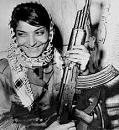
On Sept. 6, 1970 the Marxist Popular Front for the Liberation of Palestine (PFLP) (founded 1967) attempts to hijack El Al Flight 219 en route from Amsterdam to New York City, but Israeli skymarshals foil it, killing Nicaraguan terrorist Patrick Arguello, and capturing female Palestinian terrorist Leila Khaled (1944-), who is jailed in Britain then released on Oct. 1 in a prisoner swap, becoming the "Poster Girl of Palestinian Militancy".

On Oct. 9, 1970 the anti-Communist pro-U.S. Khmer Repub. of Cambodia declares independence; Son Ngoc Thanh (1908-77), cmdr. of the Khmer Serei guerrillas becomes PM, but is sacked in Oct. 1972 by Gen. Lon Nol, who begins to rule with an iron hand in an attempt to stop the emerging Communist Khmer Rouge, which is trained and equipped by North Vietnam. On Oct. 13 Canada establishes diplomatic relations with Communist China, and severs relations with Nationalist China, but doesn't recognize the Communist claim to Taiwan. On Oct. 13 French pres. Georges Pompidou visits the Soviet Union, and concludes an agreement "to extend and deepen political consultations on major international problems of mutual interest" without prejudice to either party's commitments; meanwhile France begins a civilian nuclear energy program, expanding it rapidly in a vacuum of opposition.


On Dec. 7, 1970 Poland and West Germany sign a pact renouncing the use of force to settle disputes, recognizing the Oder-Neisse River as Poland's W frontier, assenting to repatriation of Germans living E of the frontier, and acknowledging transfer to Poland of 40K sq. mi. of former German territory, making Poland Europe's 5th largest country, compared with #1 in 1571 and 1771, and not even on the map in 1871; on Dec. 14 riots begin in Gdansk (Danzig) by shipyard and factory workers over high prices and shortages caused by several years of poor harvests, spreading throughout Poland, causing defense minister Gen. Wojciech Jaruzelski to impose martial law; on Dec. 17 riot police under Jaruzelski's orders fire on protesting workers, killing 44; on Dec. 20 popular unrest forces Communist party chief Wladyslaw Gomulka to resign in favor of Edward Gierek (1913-2001) of Upper Silesia, who becomes first secy. of the Polish United Workers' Party (until Sept. 5, 1980); on Dec. 23 Gen. Piotr Jaroszewicz (1909-92) becomes PM of Poland (until Feb. 18, 1980).
In Dec. 1970 aging Croatian-born Yugoslav pres. (since 1945) Josip Broz Tito (1892-1980) announces that he will be succeeded by a collective leadership under a new constitution; after being reelected for the 6th time next year, he gets the new constitution passed on May 16, 1974, and on June 23, 1978 is named pres. for life. In 1970 Prague Spring (1968-9) man Alexander Dubcek (1921-92) is expelled from the Communist Party and kicked out of the govt., ending up in the forestry service in Slovakia; after the 1989 Velvet Rev. he makes a comeback as speaker of the federal assembly.

In the 1970s Communist Paradise East Germany begins pumping their female Olympic athletes with anabolic steroids with or without their knowledge in a misguided attempt to divert attention from their lousy economy and misery caused by lack of personal freedom, taking advantage of the backwardness of testing technology to avoid getting caught; too bad, the steroids ruin the women's reproductive organs and cause liver, heart and other damage, making them into physical wrecks after their sports years; female shot putter Heidi Krieger (1966-) becomes so masculinized that she undergoes sex change therapy in 1997, changing her name to Andreas; the Stasi covers it up until the fall of the Berlin Wall, when extensive files covering 10K athletes are discovered; in 2000 former East German sports program dir. Manfred Ewald (1926-2006) and medical dir. Manfred Hoeppner are convicted of accessory to intentional bodily harm of athletes; only Hoeppner apologizes.


Not a berry broad political base? On Feb. 14, 1971 the center-left Frente Amplio (Broad Front) is formed by progressives (Socialists, Christian Dems., Communists) in Uruguay to support candidate Gen. Liber Seregni (1916-2004); on Nov. 28 ultraconservative Colorado Party military-puppet candidate Juan Maria Bordaberry Arocena (1928-) is elected, then declared pres. on Dec. 2 amid allegations of fraud, replacing pres. (since 1967) Jorge Pacheco Areco; he is sworn in next Mar. 1 (until June 12, 1976), going on to deal with inflation and violent strikes, plus assassinations and kidnappings by leftist Tupamaro guerrillas that cause him to declare martial law in 1973 until the military deposes him in 1976. On Feb. 19 the Nat. Operations Council, which ran Malaysia for 22 mo. is dissolved, the suspended parliament is reconvened, and PM Abdul Razak lifts the ban on public rallies for election campaigns; the constitution is reinstated, but is amended to avoid discussion of "sensitive issues", esp. the special position of the Malays vis a vis the Chinese; in June the 2nd 5-year New Economic Plan is begun to further equalization of wealth among racial groups; meanwhile Communist guerrillas establish camps in the S at Perak and Ipoh, causing the tin mines in Perak to be closed for awhile. On Mar. 8 Pres. Nixon vents his bigotry against women, blacks, Jews, Mexicans, and Italians on tape recordings that are not made public until 1998; "The only two non-Jews in the Communist conspiracy were Chambers and Hiss. Every other one was a Jew and it raised hell with us." On Mar. 16 Ceylon PM Sirimavo Bandaranaike declares a nationwide state of emergency against terrorism, and on Apr. 5-23 the Maoist People's Liberation Front (Janata Vimukti Peramuna) (JVP) in Ceylon attempts a coup against the leftist coalition govt. dominated by the Ceylonese Communist Party and the Trotskyite Party, but the army regains control with the help of 24K Soviet troops, aided by an unusual coalition of Britain, the U.S., India, Pakistan, East and West Germany, Egypt, and Yugoslavia supplying weapons. On Mar. 29 Yugoslav pres. Tito becomes the first Communist leader to officially meet with the pope (Paul VI) during a formal state visit to Italy - titopapa jokes here?





On May 3, 1971 Walter Ulbricht, hardliner first. secy. of the East German Socialist Unity (Communist) Party (since 1960) resigns, and his hardliner (hard-necker?) disciple (since 1945) and security chief (since 1958) Erich Honecker (1912-94) is unanimously elected to succeed him (until 1989); Ulbricht continues as head of state. On May 12 the Communist Chilean govt. nationalizes the U.S.-owned copper industry, pissing-off the fatcats bigtime and causing them to pressure the U.S. govt. into overthrowing Salvador Allende. On May 7 Willy Brandt (1913-92) resigns as chancellor of West Germany (since Oct. 21, 1969) after close aide Gunter (Günter) Guillaume (1927-95) is unmasked as an East German spy, and Protestant vice-chancellor Walter Scheel (1919-) becomes acting chancellor; on May 16 Scheel is elected pres. of West Germany, and minister of finance Helmut Heinrich Waldemar Schmidt (1918-) is elected as West German chancellor #5 (until Oct. 1, 1982); Guillaume is imprisoned for 7.5 years then released in Oct. 1981 in exchange for Western spies, and awarded the Order of Karl Marx by East German Communist leader Erich Honecker.
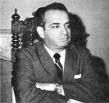
On May 8, 1971 philosophy-educated Daniel Oduber Quiros (Quirós) (1921-91) is sworn in as pres. of Costa Rica (until May 8, 1978), going on to become very popular by helping the working class and the environment, granting legal status to the Communist Party in 1975, and restoring diplomatic relations with Cuba in 1975.

On May 30, 1971 pres. Josip Broz Tito is named dickhead, er, dictator of Yugoslavia's Communist Party for life at the 10th Party Congress; meanwhile in May Yugoslovia grants the pesky region of Kosovo autonomous status within the Repub. of Serbia, and allows it to develop its own security, judiciary, defense, foreign relations, and social control; Kosovar Albanian Communist politician Mahmut Bakalli (1936-2006) drafts a constitution for the Socialist Autonomous Province of Kosovo (until 1990), giving the region a status equivalent to the Yugoslavian repubs.; Bogoljub Nedeljkovic (1920-) becomes PM of Kosovo (until May 1978); in 2002 Bakalli becomes the first witness to testify at the trial of Slobodan Milosevic at the Hague Internat. Criminal Tribunal for the former Yugoslavia. In May Brazil raises its diplomats in Romania, Hungary, and Bulgaria to ambassadorial level, maintaining cautious relations with the East European Communist Bloc. On June 15 the Red Lion Square Riot sees members of the Fascist Nat. Front protesting govt. amnesty for illegal immigrants battle leftist Liberation Group and Internat. Marxist Group protesters in West End, London, killing 21-y.-o. math student Kevin Gately. On Oct. 1 Chinese Communists celebrate 25 years in power; ailing old farts Chmn. Mao and PM Chou En-lai miss the ceremonies.


On Nov. 23, 1971 Socialist hardliners stage a coup in Ethiopia, forming the Derg (Dergue) Communist military junta, which governs until 1987; on Nov. 24 they execute Gen. Aman Andom and 59 others, incl. PM Endelkachew Makonnen (b. 1927) and two former PMs; Brig. Gen. Teferi Bante (Benti) (1921-77) becomes PM, but the real strongman is Maj. Mengistu Haile Mariam (1937-); on Dec. 20 the govt. announces that the country is a 1-party Socialist state, and that collective farms will be established, ending in a famine that kills 1M during the 1980s after the govt. spends its money to buy military equipment instead of food.
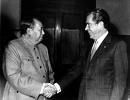

Only Nixon can visit China? On Feb. 17, 1972 (Thur.) Pres. Nixon, having ordered on Feb. 14 that U.S. trade with the PRC be put on the same basis as trade with the Soviets, and taking advantage of China's troubles with India and the Soviet Union, and saying that the U.S. has no "permanent enemies" departs for China on a surprise Journey for Peace, which was arranged during a secret (from secy. of state William P. Rogers) trip made by Henry Kissinger, who hoped to get Chinese help to get the U.S. out of Vietnam in exchange for supporting them against the Soviet Union, and played sick during a trip to Pakistan then snuck off to a plane at night wearing a floppy hat and dark glasses, using Nixon's image of anti-Commie strongman to advantage, along with residual Chinese respect for the U.S. for standing up for them at the end of WWI in keeping their country from being carved up into foreign zones of influence, plus prior visits by Chinese-speaking mining engineer Herbert Hoover before he became pres., all ending the U.S. hostility toward Red China that began in 1949; on Feb. 21 (Mon.) Nixon becomes the first U.S. pres. to visit China as he and his wife Pat arrive in Shanghai, beginning "the week that changed the world"; on Feb. 22 he meets with shorter-older tired-looking Mao Tse-tung (Mao Zedong) and Chou En-Lai (Zhou Enlai) in Beijing, then visits Hangzhou; CBS newsman Walter Cronkite wears electric socks while accompanying Nixon to the Great Wall, where they malfunction and shock him; on Feb. 28 Nixon and Chou issue the Shanghai Communique at the conclusion of the historic visit, in which both nations promise to work towards improved relations (read: economic takeover of U.S. imports?), and the U.S. acknowledges China's right to Taiwan and to a foothold against the Soviets, pissing-off William F. Buckley, also Patrick J. Buchanan, who had opposed the recognition of Mongolia in 1969, and calls it a "sell-out"; Nixon's approval rating soars to 56%, and a Gallup poll reveals that 98% of Americans know of the visit, the highest since the Pearl Harbor attack; German-born Jewish Am. journalist Max Frankel (1930-) wins the 1973 Pulitzer Prize for his coverage of the trip, and goes on to become exec ed. of The New York Times in 1986-94 - if only he hadn't bungled the Watergate burglary, he'd go down in history as one of the greatest U.S. presidents ever?
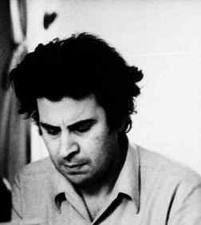
On Feb. 23, 1972 after being acquitted, black Communist activist Angela Davis is released from jail where she was being held for kidnapping, conspiracy, and murder. On Mar. 5, 1972 popular Greek "Zorba the Greek" composer Mikis Theodorakis (1925-) walks out of the Greek Communist Party.

On May 7, 1972 Hubert Maga turns over power in Dahomey to Justin Ahomadegbe-Tometin as required, but on Oct. 26 another army coup ousts the ruling triumvirate and installs Lt. Col. Mathieu Kerekou (Kérékou) (1933-) as pres. of Dahomey (until 1991, then 1996-2006), who becomes known for his brainy quotes, incl. "Poverty is not a fatality"; he at first states that the country will not "burden itself by copying foreign ideology" and doesn't want Capitalism, Communism, or Socialism, but has its own brand of Dahomeanism, then on Nov. 30 he announces that the country is officially Marxist-Leninist, nationalizes the petroleum industry and banks, and next Nov. 30 announces that the Party of the People's Rev. of Benin is being formed to mark the first anniv. of his "new society", officially changing the country's name to People's Repub. of Benin on Nov. 30, 1975 in commemoration of the 17th cent. C.E. Benin Empire; he converts to Islam in 1980 and changes his first name to Ahmed, then changes it back, claiming to be a born-again Christian - based on Marxist-Leninist or Cadillac-Lincoln principles?
On May 30, 1972 the British Communist-anarchist Angry Brigade goes on trial for 25 bombings since 1970, mainly targeting banks, embassies and the homes of Tory MPs, slightly injuring one person; the publicized trial lasts until Dec. 6, with four receiving 10-year sentences, and several found not guilty, incl. Angela Mason (1944-), who goes on to become dir. of the gay pressure group Stonewall in 1992-2002. In June the French Socialist Party and French Communist Party establish a Common Program of nationalizing nine major industrial groups. In July-Nov. Yugoslavia tries and sentences Croatian nationalists for offenses against the state, while leaders of the Communist League of Croatia are purged from the Yugoslavian Communist Party and state posts.
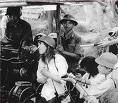
On Aug. 22, 1972 Oscar-winning Am. actress Jane Fonda (1937-) gives a bad performance for once when she gives an antiwar radio address in English on Radio Hanoi from a hotel room in Hanoi, then sits behind an anti-aircraft gun emplacement as if she's ready to shoot down all Yankees in sight, causing her to be branded as a traitor by Americans; after years of denial, she finally apologizes in 1988 in a 20/20 TV interview with Barbara Walters; she had gone to Hanoi because the U.S. govt. was bombing dikes in the Red River Delta, threatening 200K Vietnamese civilians with drowning, and claims the Communists tricked her into the AA gun photo op by singing a song with the lyrics "We hold these truths to be self-evident"; false rumors circulate that her visit causes U.S. POWs to be killed.
On Sept. 27, 1972 Japan and Communist China (People's Repub. of China) agree to reestablish diplomatic relations, and on Sept. 29 Japan breaks official ties with Taiwan (Repub. of China).
On Jan. 21, 1973 after splitting with hippies and anti-trade unionists, the Communist League (Kommunistisk Forbund) is founded in Arghus, Denmark by the Leninist Faction of the Left Socialists (VS) (founded 1970); after holding seven congresses and several summer camps, it dissolves in 1980 after factional disputes and rejoins VS. On Feb. 22 the U.S. and Communist China agree to establish liaison offices in each other's capitals, establishing de facto diplomatic relations; meanwhile full diplomatic relations are barred by China as long as the U.S. continues to recognize pesky Nationalist China (Taiwan).


Communism might be taking over povery-stricken regions in Africa, but closer to home, the U.S. makes sure it loses? On Aug. 23, 1973 right-wing Gen. Augusto Pinochet Ugarte (1915-2006) is named CIC of the Chilean army by Pres. Salvador Allende; on Sept. 11 (9/11/73) the 1973 Chilean Coup begins after 1M+ workers go on strike demanding Allende's ouster, and he commits suicide during an army assault on the La Moneda pres. palace in a bloody coup in Santiago, aided by the CIA (which has spent $7M to oust him), and his Marxist govt. replaced by a 4-man right-wing military junta led by Pinochet and his "Chicago boys"; Chile's 46 years of constitutional dem.-elected govt. (longest in Latin Am. history) ends in a pool of blood, stinking the U.S. up, and Chile is now run by a right-wing dictatorship bent on exterminating Marxism, suspending parliament, breaking off relations with Cuba, and banning all political activity, letting the DINA (secret police) loose, who jail 40K political oppponents by the end of the year, executing 3K of them, incl. Communist singer Victor Lidio Jara Montez (b. 1932), who is taken to Chile Stadium on Sept. 12 and tortured and killed along with thousands of others, his hands allegedly being broken or cut off before he is taunted to play his guitar; the bloody fun doesn't end until 1989; Nicolae Ceausescu's Romania is the only Warsaw Pact country that doesn't sever diplomatic relations with Chile after Pinochet's coup.


On Aug. 28, 1973 Princess Anne becomes the first member of the British royal family to visit the Soviet Union as she arrives in Kiev for an equestrian event. In Sept. Enrico Berlinguer (1922-84), secy.-gen. of the Italian Communist Party proposes the Historic Compromise with the Christian Dem. Party, giving them regional and big city control in exchange for handing most ministerial positions to the Christian Dems.; too bad, the rank and file get pissed, causing them to return to their militant stand by the end of the decade. On Dec. 28 Alexander Solzhenitsyn (1918-2008) pub. The Gulag Archipelago, 1918-1956, which denounces the Soviet penal system as oh what a poor show, helping to bring Soviet Communism down like a slow poison?

Say hello to the can-doers in Britain, not? On Feb. 10, 1974 after a 1-mo. slowdown backed by Communists that caused Britain to adopt a 3-day work week, British coal miners strike; on Feb. 27 British PM (since 1970) Edward Heath calls a gen. election for Feb. 28, which is a close V for the Conservatives, causing him to resign on Mar. 4 after failing to form a coalition govt. with the Liberal Party, leaving Labour Party leader (PM in 1964-70) Harold Wilson (1916-95) to return as PM on Mar. 4 (until Apr. 5, 1976), leading the first minority govt. in 45 years (1929), going on to fight 19.1% inflation and economic decline, and preside over a referendum on joining the European Economic Community (EEC); on Mar. 6 the coal strike ends after receiving a 35% pay raise (from $85 to $122 per week for underground workers, and from $58 to $78 a per week for surface workers), after which the Nat. Coal Board boosts prices by 28% in Sept., and coal workers reject the concept of incentives to boost productivity; on Oct. 10 the Labour Party narrowly retains power, winning 319 seats vs. 276 for the Conservatives, 13 for the Liberals, and 26 for other parties.






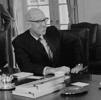
On Apr. 5, 1974 Laotian king Savang Vathana decrees a coalition govt., incl. reps. from the Communist Pathet Lao Party. On Apr. 25 leftist officers in the armed forces led by Maj. Ernesto Augusto de Melo Antunes (1939-) ("an intellectual in uniform"), author of the Document of the Nine (Captains' Manifesto) launch the bloodless (red carnations in their gunbarrels) Captains' (Carnation) Rev. in Portugal, deposing PM (since 1968) Marcelo Caetano (who flees to Brazil), ending 40 years of civilian dictatorship, and forming a Nat. Salvation Junta to supervise the restoration of democracy after 41 years (since 1933); too bad, the April Rev. in Angola reverses Portugal's stand against its independence; on May 15 after the new civilian govt. falls apart, conservative monocled Gen. Antonio Sebastiao (Sebastiăo) Ribeiro de Spinola (1910-96) (who pub. a critique in Feb. of the dictatorship's African policy, and whom Caetano insisted on surrendering to) becomes provisional pres., going on to abolish the secret police, release political prisoners, promise to restore democracy in Portugal's African colonies, and resume diplomatic relations with Cuba for the 1st time since 1917, pissing-off NATO, who fear that the new govt. will leak secrets; with guerrillas already controlling most of the countryside, Portugal gives up Portuguese Guinea, which on Sept. 10 becomes the Repub. of Guinea-Bissau, with Luis Severino de Almeida Cabral (1931-2009) as pres. #1 on Sept. 24 (until Nov. 14, 1980); Ernesto Melo Antunes is the main megotiator of the independence; on Sept. 15 Spinola meets with Zaire pres. Mobutu Sese Seko on Sal Island, Cape Verde over the future of Angola, and on Sept. 30 he resigns in protest of rushed attempts to dismantle the colonial empire, saying that "a general climate of anarchy" exists; he is succeeded by Gen. Francisco da Costa Gomes (1914-2001) (until July 14, 1976), who is known for fighting liberation movements in Moazambique from 1965-9, but now recognizes decolonization as inevitable; Portugal still has control of Angola, Mozambique, and East Timor; next Mar. Spanish PM Carlos Arias Novarro meets with U.S. deputy state secy. (1974-6) Robert Stephen Ingersoll (1914-), and offers to invade Portugal to stop the spread of godless Communism, but Ingersoll is satisfied with Spain remaining non-Communist and allowing the U.S. to keep its military bases there in return for supporting a future NATO membership.



On Jan. 3, 1975 Pres. Ford signs the U.S. Jackson-Vanik Amendment, passed unanimously by both houses of Congress on Dec. 13, sponsored by U.S. Sen. (D-Wash.) Henry Martin "Scoop" Jackson (1912-83) and U.S. Rep. (D-Ohio) Charles Albert Vanik (1913-2007), and drafted by Jackson staff member Richard Norman Perle (1941-), denying most-favored nation status to non-market-economy (Communist) countries that restrict emigration rights, particularly via the infamous Soviet diploma emigration tax on Jews, causing them to cave and allow more to emigrate; meanwhile the act derails detente and pisses-off Nixon, Kissinger, and Moscow, and later becomes a stumbling block to U.S. trade with Red China.

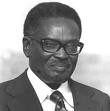
On Jan. 15, 1975 the People's Repub. of Angola, which has been a colony since 1576 is granted independence by Portugal (last Portuguese African colony), and on Nov. 11 it begins nationalizing banking, transport, heavy industries, and the media, granting the vote to women; under Portuguese pres. Francisco de Costa Gomes it immediately plunges into civil war before promised elections can take place, with the Communist-backed People's Movement for the Liberation of Angola (MPLA) (founded 1956) and the Nat. Front for the Liberation of Angola (FNLA) (founded 1957) fighting the CIA and South Africa-backed rebel group UNITA (Union for the Total Independence of Angola) (founded 1966), led by Jonas Malheiro Savimbi (1934-2002), which secretly invaded in Oct.; on Nov. 11 MPLA leader Antonio Agostinho Neto (1922-79) becomes Angolan pres. #1 (until Sept. 10, 1979); on Nov. 4 Fidel Castro of Cuba decides to send troops to support the MPLA, and next Jan. the Soviets fly 10 planeloads in, after which 30K Cuban troops are ultimately deployed as the conflict attracts Nicaragua on the Marxist side, and the People's Repub. of China, Israel, Cote d'Ivoire, Zaire, Morocco, and Zambia on the U.S. side.

Commies acting bravely? On Mar. 10, 1975 the North Vietnamese Army launch their march on Saigon by attacking the South Vietnamese town of Ban Me Thout; on Mar. 18 South Vietnam abandons most of the Central Highlands; on Mar. 21 Hue and other towns in N South Vietnam are evacuated; on Mar. 25 Hue is captured and Da Nang is endangered, and the U.S. orders a refugee airlift to remove those in danger; NVA CIC Gen. Vo Nguyen Giap (b. 1912) is diagnosed with Hodgkin's Disease, and replaced by Van Tien Dung (1917-2002) (veteran of the 1954 Battle of Dien Bien Phu), who establishes his HQ in Loc Ninh only 75 N of Saigon, launching the 55-day Ho Chi Minh Campaign.

On Mar. 11, 1975 a right-wing coup attempt in Portugal fails, causing Gen. Antonio de Spinola to flee to Brazil, returning next year after the Nov. 25 coup; in Apr. elections in Portugal brings out 92% of eligible voters (a record for a Western Euro nation), electing gen. Francisco da Costa Gomes as pres., and Adm. Jose Baptista Pinhiero de Azevedo (1917-83) as PM #3, who is sworn in on Sept. 19 (until June 23, 1976), and loses the pres. election in 1976; the new govt. nationalizes banks, heavy industries, media, and transport, while farm workers in the S expropriate the latifundias and set up communal farms; meanwhile foreign minister (1974 coup leader) Ernesto Melo Antunes visits Pres. Ford in the U.S. and arranges for an $85M emergency aid package; ousted leftist Portuguese PM (since July 18) Gen. Vasco dos Santos Concalves joins the Portuguese Communist Party.



Commies behaving badly? On Apr. 1, 1975 Cambodian pres. Lon Nol is forced to leave the country with a few advisors and the U.S. embassy staff as the Communist Khmer Rouge, led by Pol Pot (Saloth Sar) (1928-98) advance on the capital of Phnom Penh; on Apr. 17 (final day of the Cambodian New Year) the U.S.-backed Lon Nol govt. surrenders after a 5-year war to the Khmer Rouge, who rename the country Dem. Kampuchea, and, spurred on by chief ideologue Nuon Chea (Long Bunruot) (Lau Ben Kon) (1926-) proceed to begin the Pol Pot (Cambodian) Genocide (Massacre) (ends 1979), emptying Phnom Penh of its 3M pop. in 72 hours and marching them off to rural shithole communes, murdering 1.7M people (35% of the pop.) in 450 killing fields to create their Third World Commie paradise, while the U.S. and the rest of the world look the other way; everyone over age 10 has to work in the fields; families are separated, and marriage, religion, formal education, and money are abolished; being educated or wearing glasses is a death sentence; they destroy the Cambodian Nat. Library, wiping out much of the country's history archive; horror stories are told for decades; religion is outlawed, and all but a few hundred of the 60K Buddhist monks are murdered - pass another pot along the empty Commie salad bar?
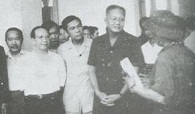

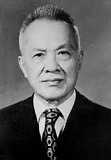
On Apr. 12-20, 1975 the Battle of Xuan Loc, (last stop before Saigon) is won by the NVA, and the South Vietnamese army disintegrates as the NVA heads for Saigon; on Apr. 21 pres. (since 1965) Nguyen Van Thieu resigns, condemning the U.S. for selling him out, and flees to Taiwan with millions of dollars of gold, later moving to Surrey, England; vice-pres. Tran Van Huong becomes pres.; on Apr. 23 NVA forces reach artillery and rocket range of Tan Son Nhut Air Base; on Apr. 25 former foreign minister Vu Van Mau (1914-98) is named new South Vietnamese PM, and the Australian embassy is closed 10 years after the first Australian troop commitments to South Vietnam; on Apr. 27 Saigon is encircled by North Vietnamese troops, causing Graham A. Martin, U.S. ambassador to South Vietnam to ask Washington to protect Saigon with an "iron ring" of B-52s from Guam, saying on Saigon TV "I, the American ambassador, am not going to run away in the middle of the night... I give you my word"; too bad, on Apr. 29 Henry Kissinger sends him a cable telling him to evacuate, and after Tran Van Huong resigns and Tan Son Nhut comes under NVA attack, Martin orders the the preset signal "The temperature in Saigon is 112 degrees and rising" sent on the radio, followed by the playing of Bing Crosby's "White Christmas", which is blasted on loudspeakers throughout the city, and Operation Frequent Wind begins, and U.S. helis evacuate 1,373 U.S. civilians and 5,595 Vietnamese refugees in an 18-hour period (largest heli rescue in history until ?), while a city crammed with 2M-3M heads for the U.S. embassy hoping to get a ride out; as the NVA close in on the airport, during the day and night Marine CH-53 Sea Stallion and smaller UH-1B Huey helis (who land on the embassy roof) dodge sniper fire to fly 638 sorties and take 6,236 passengers to ships of the Seventh Fleet, who make room by pushing helis into the sea; the embassy roof is illuminated by a 35mm slide projector; only 1.5K are airlifted from the embassy, plus a few from the roof, while 4.5K are airlifted from the Defense Attache Office (DAO) (created Jan. 28, 1973) at the airport, which is attacked by South Vietnamese A-37 Dragonfly attack planes commandeered by North Vietnamese pilots; the embassy gets all the publicity, so that when Marine Cpl. Otis Lamar Holmes (1955-2008) is wounded by shrapnel from a rocket attack that kills Lance Cpl. Darwin Lee Judge (b. 1956) and Cpl. Charles McMahon (b. 1953) on Apr. 29 (the last two U.S. servicemen to die in the war), he doesn't get his Purple Heart until 2005; on Apr. 30 at 4:58 a.m. CH-46 heli "Lady Ace 09" takes gung-ho U.S. ambassador Graham Martin and his Marine squad to the fleet, and "as his heli banked over Highway One, the ambassador could see the headlights of trucks of the People's Army of Vietnam, waiting"; by 8 a.m. the last 11 Marines are airlifted out, stiffing several hundred Vietnamese promised evacuation; at 12:15 p.m. after tank crews stop and ask for directions, Pres. Duong Van Minh surrenders without a shot, and the flag of the Nat. Liberation Front is raised above the Pres. Palace; Gen. Duong Van "Big" Minh (1916-2001), South Vietnam's last leader announces its unconditional surrender, giving the Commies a big V to celebrate on May Day (May 1), AKA Gen. Dung's Great Spring Victory; 200K-350K possible troublemakers (incl. military officers, politicians, and intelligentsia) are sent to reeducation camps, where thousands die, and 1M are sent to New Economic Zones, where starvation and disease kill thousands more; meanwhile 1.2M Vietnamese boat people flee in leaky overcrowded vessels, drowning 600K; former PM Nguyen Cao Ky flees to Norwalk, Calif., where he buys a liquor store; Saigon is renamed Ho Chi Minh City, with Nguyen Huu Tho (1910-96) as the first mayor; on May 3 Pres. Ford declares the war "finished", and calls upon Americans "to avoid recriminations about the past, to look ahead to the many goals we share"; the Vietnam War (never officially begun?) ends; death toll: U.S.: 58,209 dead, 153,300 wounded, 2,124 MIA; Communists: 1M dead, 300K MIA; civilians: 1.3M-2M dead (14% of the pop.); U.S. aid to South Vietnam: $141B; Congress appropriates $405M to settle 130K Vietnamese refugees in the U.S.; Thailand demands that the U.S. withdraw its military personnel, and establishes diplomatic relations with China; in 1985 Graham bitches "In the end we simply cut and ran; the American national will had collapsed" - maybe Ford just pardoned the Viet Cong?


In May 1975 the Communist Pathet Lao led by founder Prince Souphanouvong (1909-95) take over Laos; on Dec. 2 they oust a coalition govt. in Laos, force King Savang Vatthana to abdicate after 24 years of U.S. backing, and abolish the monarchy, proclaiming YAPDR (yet another people's dem. repub.) (1-party state), with Kaysone Phomvihane (1920-92) as PM (until 1992); Vatthana becomes the "supreme adviser" to new pres. Souphanouvong, but in actuality he and Queen Khamphouis are dumped in a detention camp, where they die in 1981; former Prince Souvanna Phouma (half-brother of Prince Soupy, and royal PM since 1962) is made an "adviser" to the govt. - the domino theory is a pathetic lao?

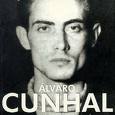
On June 15, 1975 after PM (since 1972) Gabriel Ramanantsoa resigns on Feb. 5, yet another military coup results in leftist Vice-Adm. ("the Red Admiral") Didier Ratsiraka (1936-) being named pres. of the Malagasy Repub. (until 1993), which on Dec. 21 after a referendum changes its name to the Dem. Second Repub. of Madagascar, going on to close French bases, go Communist-Socialist and nationalize French-owned cos., close a U.S. space tracking station, and seek Chinese aid; a wannabe Mao, Ratsiraka pub. his own little red book of Marxist principles; on Dec. 30 a new 1975 Madagascar Constitution is approved by a referendum. On Nov. 15 the Communist Parties of France and Italy (the two largest) issue a Joint Statement affirming the dem. process and declaring opposition to "foreign interference", specifically "American imperalism", although Soviet imperialism isn't mentioned but implied? On Nov. 25 the Portuguese Communist Party under pro-Soviet-to-the-end secy.-gen. (1961-92) Alvaro Barreirinhas Cunhal (1913-2005) attempts a coup in Lisbon with leftist army paratroops, after which Gen. Antonio de Spinola returns, getting a promotion to field marshal in 1981.

In 1975 the House Un-American Activities Committee (HUAC), created in 1938 to inquire into subversive activities in the U.S. (now the House Internal Security Committee) is finally dissolved; meanwhile after the Watergate affair tips them off to hanky-panky by the CIA and FBI, the 9-mo. Senate Select (Church) Committee to Study Governmental Operations With Respect to Intelligence, chaired by Sen. (D-Idaho) Frank Forrester Church III (1924-84), and incl. John Tower (R-Tex.), Walter Mondale (D-Minn.), and Barry Goldwater (R-Ariz.) to investigate CIA and FBI involvement in assassination attempts on Fidel Castro of Cuba, Salvador Allende of Chile et al., pub. the 661-page Church Committee Report, which concludes that many U.S. intel operations were without merit and begun without proper authorization, calling it "unacceptable in our society", with Church calling the CIA a "rogue elephant", causing Pres. Ford next year to issue Executive Order 11905, banning the assassination of foreign leaders (until ?), followed on Oct. 25, 1978 by Pres. Carter signing the U.S. Foreign Intelligence Surveillance Act (FISA), setting up the Foreign Intelligence Surveillance Court to oversee requests for surveillance warrants of suspected foreign intel agents inside the U.S., with no obligation to provide info. to Congress other than semi-annual reports on the number approved; former FBI intel dir. William Cornelius Sullivan (1912-77), who broke with Hoover and was fired on Oct. 1, 1971 testifies before the Senate Intel Committee about Hoover's COINTELPRO dirty tricks counterintel program, saying "Never once did I hear anybody, including myself raise the question, is this course of action which we have agreed upon lawful, is it legal, is it ethical or moral?"; after 9/11 shakes things up, on Aug. 5, 2007 the U.S. Protect America Act restricts FISA protections to "persons in the United States and not foreign targets located in foreign lands" (Pres. George W. Bush) - they were getting closer to figuring out that JFK was one of their hits?




On Jan. 8, 1976 Red Chinese PM #1 (snce Oct. 1, 1949) Zhou Enlai (b. 1898) dies in Beijing of cancer, and is succeeded by deputy PM Deng Xiaoping (1904-97), who within 1 mo. is replaced by former public security minister (Mao's designated successor) Hua Guofeng (Hua Kuo-feng) (Su Zhu) (1921-2008) (real name Su Zhu, his assumed name being an abbreviation for "Chinese resistance against Japanese nation-saving vanguard"), who pm Feb. 4 becomes Communist Chinese PM #2 (until Sept. 10, 1980); on Apr. 5 100K fill Tiananmen Square to protest the neglect of Zhou's memory, laying wreaths at the Monument of the Martyrs to commemorate him, along with anti-Gang of Four poems, causing a riot with the pro-Mao crowd; on Apr. 6 Hua becomes first deputy chmn. of the Chinese Communist Party, then after Mao dies on Sept. 9, he becomes chmn. #2 on Oct. 7 (until June 28, 1981), releasing 100K political prisoners, opening the univs. (closed since 1966, and not granting degrees again until 1980) and dealing with Mao's pesky widow Jiang Qing and her Gang of Four; after Mao's death Christian churches reopen - why do they say that ping-pong is the national sport? On Sept. 9, 1976 82-y.-o. Mao Tse-tung (Zedong) (b. 1893), leader of the Communist People's Repub. of China since 1949 dies of Parkinson's disease in Beijing, ending the 1966 Cultural Rev. and starting a 2-year power struggle; Deng Xiaoping (1904-97) is purged by the Maoist Gang of Four, incl. his widow Jiang Qing (1914-91), and her radical colleagues Wang Hongweng (1935-92), Zhang Chungqiao (1917-2005), and Yao Wenyuan (1931-2005), who are themselves rejected by the Chinese Communist Party as enemies of true Communism and arrested in Oct., then tried and sentenced to death, which is later graciously commuted to 20-life after the crowds have their fun attacking effigies of Jiang Qing in Shanghai.

On Jan. 21, 1976 Leonid Brezhnev and Henry Kissinger meet to discuss the Strategic Arms Limitation Treaty (SALT). On Jan. 30 Tex. oilman and JFK assassination mystery figure George Herbert Walker Bush (1924-) is named dir. #11 of the CIA by Pres. Ford (until Jan. 1977), replacing William Colby, who was dismissed last Nov. 2; meanwhile Pres. Ford forms the Safari Club, a coalition of intel agencies to fight Communism, using a coalition of countries incl. France, Egypt, Saudi Arabia, Morroco, and Iran to do intel ops that the CIA couldn't get away with, organized by French intel chief Alexandre de Marenches; Saudi intel chief Kamal Adham (King Faisal's brother-in-law) turns the Pakistani Bank of Credit and Commerce Internat. (BCCI), into the biggest clandestine worldwide money-laundering machine in history. On Feb. 4-8 the Twenty-Second Congress of the French Communist Party renounces the idea of dictatorship of the proletariat; meanwhile the 7th French Economic Plan (1976-80) emphasizes computers, robotics, and other new things to alter the old labor equation.


On July 2, 1976 the Socialist Repub. of Vietnam is officially proclaimed, reuniting North and South Vietnam, with Ho Chi Minh City (Hanoi) as the capital, and North Vietnamese pres. #2 (since Sept. 2, 1969) Ton Duc Thang (1888-1980) as pres. #1 (until Mar. 30, 1980), and Ho Chi Minh's successor (since 1969) Le Duan (Le Dung) (1907-86) remaining secy.-gen. of the Vietnamese Communist Party (until July 10, 1986); ethnic Chinese merchants in Ho Chi Minh City and other cities resist assignment to "new economic zones" in the countryside. On July 30 reps. of 35 countries convene in Finland for a conference on security and human rights, which on Aug. 1 results in the Helsinki Accords (Agreement) (Declaration), formalizing East-West detente by officially recognizing nat. borders in Europe, incl. the Soviet Union's conquests in WWII, along with inviolability of frontiers, mutual respect for "sovereign equality and individuality", and full support of the U.N., along with provisions for human rights, causing U.S.-based Helsinki Watch to be launched to monitor compliance, later becoming Human Rights Watch; Soviet Jews set up the Moscow Helsinki Group to publicize human rights violations; the Soviet Union keeps its 10 armored divs. in Poland; too bad, when U.S. state secy. Henry Kissinger meets with anti-Soviet vice-PM Deng Xiaoping on Oct. 21 in Beijing, he denounces the agreement, and later the same day Chmn. Mao asks him if the New York Times and Washington Post are owned by Jews like him. In 1976 the Syrian-backed Marxist Popular Front for the Liberation of Palestine - General Command (PFLP-GC) (formed in Apr. 1968) begins battling the PLO, until Yasser Arafat patches up their differences, after which a splinter group forms a new PFLP-GC on Apr. 24, 1977 led by Muhammad Zaidan (1948-2004) (AKA Abu Abbas and Muhammad Abbas).
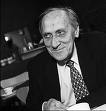
In 1976 Polish ex-Marcist philosopher Leszek Kolakowski (1927-2009) pub. Main Currents of Marxism: Its Rise, Growth, and Dissolution (3 vols.), which calls Marxism "the greatest fantasy of our century", helping spur Polish Solidarity.


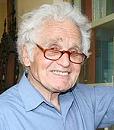



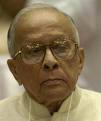
On Jan. 24, 1977 the Massacre of Atocha at 77 Atocha St. near Atocha Railway Station in Madrid sees far-rightists massacre five and injure four Spanish Communists, causing a backlash for legalizing the Communist Party, which is done on Easter. Soviet Jews use the liberal Carter admin. as their way out, only to discover he's a whimp? On Jan. 26 the U.S. State Dept. charges the Soviet-dominated govt. of Czech. with violating the 1976 Helsinki Agreement for cracking down on dissidents Vaclav Havel, Jan Patocka et al., who signed Charter 77 (which is smuggled to West Germany and signed by 1.2K), which starts as a protest against the 1976 arrest of the rock band Plastic People of the Universe; on Jan. 28 they warn the Soviets not to crack down on Nobel scientist Andrei Sakharov for accusing the KGB of planting a bomb in a Moscow subway car and framing dissidents for it; on Mar. 1 Pres. Carter meets at the White House with exiled Soviet dissident refusenik (refusing to stay in the Soviet Union if they can find a way to get to Israel) Vladimir Konstantinovich Bukovsky (1942-); on Mar. 15 Ukrainian Jewish scientist and activist Anatoly "Natan" Borisovich Shcharansky (Sharansky) (1948-) is arrested by the Soviets for working with the CIA, after which they rebuff a U.S. protest and charge him with treason on June 1 along with nuclear physicist Yuri Feodorovich Orlov (1924-) and journalist Alexander "Alik" Ilyich Ginzburg (1936-2002); in 1978 they are convicted of "anti-Soviet agitation" and sentenced to 7, 13 and 8 years respectively; refusenik Vladimir Slepak gets 5 years of internal exile for "malicious hooliganism"; Shcharansky is imprisoned, then released to the West in 1986, emigrating to Israel; Orlov is deported in 1986 to the U.S. On June 7-9 Hungarian Communist Party first secy. (since 1956) Janos Kadar (1912-89) meets with Pope Paul VI at the Vatican, marking "new progress" in relations with the Church. On June 15 the first gen. election in Spain since 1936 is a V for the UCD (Union of Dem. Centre); Spanish Civil War heroine ("La Pasionaria") Dolores Ibarruri (Ibárruri) (1895-1989), who returned from 38 years of exile in Moscow on May 15 runs on the Communist Party ticket. On June 21 Marxist Jyoti Basu (1914-2010) becomes PM of West Bengal, India (until Nov. 6, 2000).

On July 22, 1977 at the Chinese Politburo central committee meeting, Deng Xiaoping is rehabilitated and reinstated as deputy PM, chief of staff of the army, and member of the central committee; at the same time the Gang of Four are removed from all official posts and banned from the party; Deng begins bid for supreme power against Hua Guofeng, launching the Beijing Spring, permitting open criticism of the excesses of the Cultural Rev. and removing barriers against former Chinese capitalists and landlords joining the party to give him new recruits, and decommunizing China with new capitalist programs, giving nearly half of all urban workers a 5%-15% wage increase late in the year; new party leadership is elected on Aug. 20. In Sept. in France an attempt to revise the Socialist-Communist Common Program leads to a rupture of the left. In Oct. after Communist students in jungle bases threaten the regime, the Thailand military stages another coup, appointing gen. Kriangsak Chomanand (1917-2003) as PM of Thailand on Nov. 12 (until Feb. 29, 1980); meanwhile refugees from Laos, Cambodia, and Vietnam pour into Thailand starting next year.

On Nov. 4, 1977 former CIA dir. (1966-73) Richard McGarrah Helms (1913-2002) is sentenced for lying to Congress that the CIA didn't help overthrow Communist Salvador Allende in 1973; he receives a 2-year suspended sentence plus a $2K fine, paid for by friends. On Dec. 10 on U.N. Human Rights Day the Soviet Union places 20 prominent dissidents under house arrest, cutting off telephones and threatening to break up a planned silent demonstration in Moscow's Pushkin Square.


On Jan. 26, 1978 Einstein's Theory of Relativity is officially reinstated in Communist China; on Feb. 11 they lift a ban on works by Aristotle, Dickens, and Shakespeare. On Mar. 16 while en route to the Italian parliament to discuss voting confidence in the new govt. of Giulio Andreotti with the first-ever support of the Communist Party, former Italian PM (1963-8, 1974-6) and Christian Dem. leader Aldo Moro (b. 1916) is kidnapped by the left-wing terrorist Red Brigades, led by Mario Moretti (1946-), who ambush his car on Via Fani in Rome and kill all five of his guards, becoming known as the Second Red Brigades since all the founders are in jail; the trial in Italy of the First Red Brigade terrorists (begun Mar. 9) continues anyway, and on May 9 after 55 days the bullet-riddled body of Moro is found in a parked car on Via Caetani in Rome after the govt. fails to release them as demanded and they hold their own "people's trial" that finds him guilty; Moretti is caught and given six life sentences, but only serves 15 years until he is paroled in 1998, causing speculation that he was a double-agent; the incident backfires when police are given greater powers against terrorists, causing them to begin to wink out by the end of the decade.

On Apr. 27, 1978 the Afghan Communist Rev. begins with the pro-Soviet leftist Saur Revolt (Great Saur Rev.); Pres. Mohammad Daoud Khan (b. 1910) is executed along with several fallen govt. leaders, and on Apr. 30 the Marxist Dem. Repub. of Afghanistan is proclaimed, with Nur Muhammad Taraki (1917-79) installed as pres. and PM (until Sept. 14, 1979), and Babrak Karmal as deputy PM, becoming the 1st country in South Asia to fall while under Communist rule, although it's to other Commies; on Dec. 5 Taraki and the Soviets sign a 20-year Treaty of Friendship, Cooperation and Good Neighborliness, incl. Soviet military assistance, which the Soviets later use as their pretext for invasion; meanwhile the Muslim pop. in the countryside won't go with atheistic Communism or secular govt., and stick to Sharia despite mass arrests and executions, causing mujahideen forces to gear up to topple them, and in June the Afghan Muslim fundamentalist guerrilla Mujahidin (Mujahideen) Movement is born - we're baack?



In May 1978 expulsion of ethnic Chinese by Vietnam produces an open rupture with Communist China as Beijing sides with Cambodia in border fighting with Vietnam, and charges Hanoi with aggression. On July 8 Socialist Alessandro "Sandro" Pertini (1896-1990) becomes pres. of Italy (until June 29, 1985), going on to facilitate cooperation between Communists and Christian Dems. while the Communists and neo-Fascists battle, becoming the world's oldest pres. by 1983. On July 12 U.S. ambassador to the U.N. (1976-9) Andrew Jackson Young Jr. (1932-) compares Soviet dissidents to U.S. civil rights activists, and utters the soundbyte that there are "political prisoners in both countries", causing Pres. Carter to rebuke him and the White House to disavow his views. On July 17 in San Marino a Communist-Socialist coalition becomes Western Europe's only Communist-led govt. On Dec. 15 (Fri.) Pres. Carter announces that he will grant full diplomatic recognition to the Communist People's Repub. of China (PRC) (Red China) on New Year's Day, and sever official relations with the Repub. of China (ROC) (Taiwan) (Formosa), incl. the 1954 Taiwan Defense Treaty; it continues to maintain unofficial ties through the Am. Inst. in Taiwan, while Taiwan establishes the Coordination Council for North Am. Affairs in Washington, D.C. On Dec. 22 the Communist Party in China holds the Third Plenum of the 11th Nat. Congress of the Chinese Communist Party in Beijing, and in the sincerest form of flattery vis a vis Taiwan it unfetters the economy and allows limited private enterprise to develop with the Great Leap Forward, authored by Den Xiaoping, who introduces the "household responsibility system" in a drought-parched region, allowing farmers to selfishly keep some of the benefits of their labors. On Dec. 25 after making an announcement early in the year that it will begin socializing industry and agriculture in S Vietnam, causing hundreds of thousands of ethnic Chinese and Vietnamese to flee, and getting tired of border attacks, the Soviet-supplied Vietnamese army invades Cambodia to drive out the Khmer Rouge, becoming the first full-scale war between the two countries since 1917; 400 are killed in initial clashes. In Dec. union leader Nestor Cerpa Cartolini (1953-97) leads 50 workers in the occupation of the Cromotex textile factory in Lima, Peru to protest low wages and layoffs; they hold the plant for more than six weeks before the police storm it, killing several workers; after organizing a sit-in at the U.N. office in Lima in late 1979, Cerpa becomes leader of the pro-Cuban Marxist Tupac Amaru Rev. Movement (MRTA) (until 1997). On Aug. 20 four Shiite terrorists set fire to a crowded theater in Abadan, Iran, killing 377; the govt. blames Marxists, and the Shiites blame him, causing the PM to resign on Aug. 27, after which the shah tries to pacify his fundamentalist opponents by closing gambling casinos and dismissing hi-ranking Bahai's from his govt., incl. his personal physician - I'm a dinner jacket? In 1978 Chinese journalist Wei Jingsheng (1950-) becomes a hero by putting a signed wall poster titled The Fifth Modernization on Democracy Wall in Beijing, pointing out that individual liberty and political democracy are the real modernizations needed, not the Four Modernizations (agriculture, industry, science & tech, and nat. defense) pushed by Deng Xiaping's Communist govt.; guess how the govt. responds to him, you guessed it, he is arrested on Mar. 1979, and sentenced to 15 years in prison on Oct. 16, 1979 (until Sept. 14, 1993).







On Jan. 8, 1979 amid a gen. strike of oil workers and mass calls for his death, the U.S. advises shah (since Sept. 16, 1941) Mohammed Reza Pahlavi II (1919-80) to get his butt out of Iran or lose it, and he skedaddles with his family on Jan. 16 after 38 years in power, but doesn't abdicate, claiming that when he returns he will only reign not govern, receiving asylum from Anwar Sadat in Egypt, then hiking to Morocco, the Bahamas, and Cuernavaca, Mexico, finally entering the U.S. on Oct. 22 at the urging of Henry Kissinger and David Rockefeller to be treated for cancer in New York City, incl. removal of his gall bladder; on Jan. 17 Islam history ignoramus Pres. Carter pledges support for the new civilian govt. in Tehran, and urges the shah's opponents to give it a chance; behind the scenes, Peanut Pres. Carter sends a rep. to meet Ayatollah Khomeini in Paris, who returns with glowing reports about a "saint", causing Carter to undermine the new regime to put him in power, making a deal with him to remove the shah and prevent an Iranian army coup in return for ending Soviet influence and disruption of Iranian oil to the West - and he ran a lemonade stand as a kid? On Jan. 30 the civilian govt. of Iran announces that it has decided to allow Muslim Shiite ultra-fundamentalist Ayatollah Ruhollah Khomeini (1902-89) to return from 15 years of exile in Paris, and on Feb. 1 (9:33 a.m. local time) (which becomes an annual celebration) he lands in Tehran to cheering crowds who believe him to be the Islamic hidden imam or Shiite messiah, while Commies believe he's one of them because of his cryptic statements incl. "In a truly Islamic society, there will be no landless peasants", and his claims to back the mostazafin (oppressed masses), plus the popularity of "Red Shiite" Ali Shariati (1933-77), and the U.S. govt. believes that he won't become Iran's Archbishop Makarios but will hole-up in the Shiite holy city of Qum while letting Iran have a parliamentary democracy; on Feb. 3 he creates the Council of the Islamic Rev.; on Feb. 7 his supporters take over govt. bldgs. while the final session of the nat. assembly is held; on Feb. 10 the army mutinies and joins the rev.; on Feb. 11 the Islamic Uprising of Khurdad 15 sees Khomeini's supporters route the elite Imperial Guard and cause PM (since Jan. 4) Shahpur Bakhtiar to resign, and Khomeini seizes power, ending autocratic rule after 2.5K years and erecting a theocracy with Sharia Law, with thousands killed throughout the year in rioting and mass executions, and troops sent by Khomeini to crush Kurdish guerrillas seeking autonomy; the Communists applaud the takeover at first, but by 1983 all the real rev. gains of workers and peasants are destroyed by the new regime, which also outlaws the pesky Bahai (Baha'i) Muslim sect; Khomeini sets up the Rev. Guards (Army of the Guardians of the Islamic Rev.) and the Basij-e Mostaz'afin ("Mobilization of the Oppressed") paramilitary militia; meanwhile the rev. drives U.S. gasoline prices from 63 to 86 cents per gal. On Feb. 16 Iranian gen. Nematollah Nassiri (b. 1911), head of the secret service Savak since 1965 (who delivered the arrest warrant for PM Mohammed Mossadegh in 1953, and who has been imprisoned since last year) is executed by firing squad after a summary trial; his predecessor Gen. Hassan Pakravan (b. 1911) is executed on Apr. 11 despite having saved Khomeini's life in 1963. On Feb. 17 Iran announces that starting Mar. 5 it will resume oil exports at a 30% higher price than set by OPEC in Dec. 1978; production is only 3.4M barrels this year, compared to 5.4M last year, hurting the U.S., which had been importing 900K barrels from Iran a day, 6% of total imports. On Feb. 19 U.S. writer-activist Richard Anderson Falk (1930-) stinks himself up with a letter to the New York Times called "Trusting Khomeini", with the soundbyte "The depiction of Khomeini as fanatical, reactionary and the bearer of crude prejudices seems certainly and happily false... To suppose that Ayatollah Khomeini is dissembling seems almost beyond belief... Having created a new model of popular revolution based, for the most part, on nonviolent tactics, Iran may yet provide us with a desperately-needed model of humane governance for a third-world country." On Mar. 1 Kurdish Dem. Party leader (since 1946) Mustafa Barzani (b. 1903) dies in Washington, D.C. while in exile in Iran, and his son Massoud Barzani (1946-) becomes head of the Kurdish Dem. Party (until ?). On Mar. 10 15K women march on the Palace of Justice in Tehran, Iran to protest Ayatollah Khomeini's reversal of women's equality gained under the shah's regime back to 1907, incl. mandatory wearing of the chandor heavy veil in public and removal of women from govt. jobs. On Mar. 18 Iranian authorities detain Am. feminist Kate Millett (1934-) (author of the 1970 bestseller "Sexual Politics") a day before deporting her and a companion for what they call "provocations", i.e., working for women's rights. On Mar. 18 battles between Kurds and Iranians begin in Sananday (Sanandaj), Iran. On Apr. 1 after a 98% vote, Iran proclaims itself the Islamic Repub. of Iran (until ?); the shah's program of family planning is abolished; Ayatollah Khomeini closes the shah's nuclear program closed down as "the work of the Devil", then has it reopened after Iraq invades Iran with Western backing - which proves that it was never about unneeded nuclear energy, only nukes?




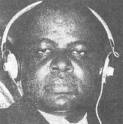
On June 1, 1979 after a nearly whites-only referendum on Jan. 30 approves it by 85%, Rhodesia ends 80 years of white rule with a new constitution and a new name, Zimbabwe Rhodesia; the capital Salisbury becomes Harare; all blacks are enfranchised, and guaranteed a black majority in the assembly and senate, with 10 Senate and 28 house seats reserved for the white minority, plus 35% of cabinet positions; on June 1 Methodist bishop Abel Tendekayi Muzorewa (1925-2010) becomes PM #1 (until Dec. 11, 1979); Josiah Zion Gumede (1919-89) becomes pres. #1 (until Dec. 12, 1979); on Aug. 5 delegates from 30 Commonwealth countries meet in Lusaka, Zambia and approve a proposal to end the 6-y.-o. civil war in Rhodesia; too bad, Communist rebel leaders Robert Mugabe and Joshua Nkomo denounce the arrangement, and continue their war, and after internat. recognition is denied because they hadn't been included in the elections, on Sept. 10 British foreign secy. (1979-82) Peter Carrington, 6th Baron Carrington (1919-) holds a conference with them in Lancaster House, Salisbury, and they strike the Lancaster House Agreement for new elections in early 1980, ending the civil war for black independence - the people will never vote Commie will they?

On June 2, 1979 just 8 mo. after his consecration, Pope John Paul II returns to his native Poland for a triumphal 9-day visit (ends June 10), challenging its Communist leaders while urging the people to "not be afraid"; after the big success, the Vatican bankrolls the Solidarity Movement, and Communism in Poland starts to crack.
On June 3, 1979 the Italian gen. election gives the Christian Dems. 38.3%, the Italian Communists 30.38%, and the Italian Socialist Party 9.8%. On June 7-10 European electors of nine member states vote for the first European Parliament, with a total of 410 seats up for grabs, becoming the first internat. election in history; the U.K., France, Italy, and West Germany each get 81 seats, Netherlands 25, Belgium 24, Denmark 16, Ireland 15, and Luxembourg 6; in the U.K. with 41.56M votes cast, Conservatives win 60 seats (48.4%), Labour 17 seats (31.6%), and the Liberals no zeats (12.6%); the Scottish Nat. Party wins 1 seat (1.9%), the Dem. Unionist Party wins 1 seat (1.3%), the Socialist Dem. Labour Party wins 1 seat (1.1%), and the Official Ulster Unionist Party wins 1 seat (0.9%); Plaid Cymru wins no seats (0.6%); in Italy the Christian Dems. win 29 seats, the Communists 24 seats, and the Socialists 9 seats.

On June 18, 1979 after almost five years of negotiations on the U.S. side by former Navy secy. (1963-7) Paul Henry Nitze (1907-2004), Pres. Carter and Soviet chmn. Leonid Brezhnev sign the Strategic Arms Limitation Treaty (SALT) II agreement in Vienna, setting a ceiling on long-range bombers and missiles and limiting development to only one new land-based missile system for the duration of the treaty; too bad, Nitze turns against it, believing that the Soviets have developed new WMDs and have aggressive strategies with regard to a nuclear war, founding Team B, a think tank that promotes the concept of the U.S. "window of vulnerability", which is adopted by the Carter and Reagan admin. to justify a massive arms buildup despite lack of real evidence, and causing the U.S. Senate to block ratification of the treaty; meanwhile the U.S. has 2,283 missiles and bombers vs. 2,504 for the Soviet Union; on June 7 Carter approves the $30B MX (LGM-118A Peacekeeper) Missile, a shell-game deployment of large missiles in 8.8K underground shelters connected by railroad track in the deserts of Utah, Nev. et al. in an attempt to survive a Soviet first strike and/or preserve the option of a U.S. first strike, which is deployed starting in 1985, then decommissioned on Sept. 19, 2005 after only 50 missiles are deployed.

On Sept. 10, 1979 Angolan pres. #1 (since 1975) Antonio Agostinho Neto (b. 1922) dies of pancreatic cancer in Moscow, and on Sept. 21 planning minister Jose Eduardo dos Santos (1942-) of the MPLA (not to be confused with the dos Santos in Portugal) becomes pres. #2 (until ?), continuing his struggle against anti-Communist UNITA rebels led by Jonas Savimbi.

On Sept. 14, 1979 after visiting Moscow on Mar. 20 and meeting with Leonid Brezhnev to request Soviet ground troops and 300K tons of wheat, Marxist Afghan pres. #3 (since Apr. 30, 1978) Nur Muhammad Taraki (b. 1913) after a brutal reign that killed 15K-45K is murdered on the orders of his rival PM Idi, er, Marxist Ghilzai Pahstun Hafizullah Amin (b. 1929), who becomes pres. #4 of Afghanistan (2nd Commie pres.), and announces the death of Taraki due to an "undisclosed illness"; after causing thousands of Afghans to flee to Iran and Pakistan to organize mujahideen resistance to the atheistic infidel Commie regime (the ones in Peshawar, Pakistan being described by the Islam history ignoramus Western press as freedom fighters), and trying to play both sides by claiming that the Saur Rev. is based on the principles of Islam and handing out Qurans and invoking Allah's name in speeches, pissing the Muslims off more, and trying to ally with Pakistan and the U.S. and/or China and Pashtunize the country, pissing the Soviets off, the KGB assassinates Amin on Dec. 27, issuing disinfo. that he was a CIA agent.



On Nov. 3, 1979 the Greensboro Massacre in N.C. sees five Communist Workers Party marchers killed and seven wounded by KKK and neo-Nazi gunmen during a "Death to the Klan" demonstration in Greensboro, N.C.; the Klansmen plead self-defense and are acquitted. On Dec. 24 after fearing that it is in danger of being toppled by Islamic mujahideen forces, 85K Soviet troops of the 40th Army invade and seize control of Afghanistan; on Dec. 27 Pres. Hafizullah Amin is assassinated by the KGB, and Babrak Karmal (1929-96) becomes puppet pres. #5 of Afghanistan (3rd Commie) (until Nov. 24, 1986), beginning the Soviet-Afghan War (ends Feb. 15, 1989), in which 13K-15K Soviet soldiers and 1M Afghans are killed, 35,478 Soviet solders are wounded and 311 go MIA, and 3M civilian refugees flee to Pakistan and Iran; by 1985 the Soviets have 120K troops in Afghanistan after 8K deaths and 25K casualties, while the CIA believes they needed 500K troops to win; fear of Communism trumping fear of resurgent Islam, the U.S. backs the mujahideen, giving them $600M a year, along with matching funds from the Persian Gulf states incl. Saudi Arabia, and more support from China and the U.K.; the U.S. gives them hundreds of FIM-92 Stinger anti-aircraft missiles in 1985-6; to keep them from the Soviets, treasures from the Afghan Nat. Museum in Kabul are locked in a basement vault on the grounds of the pres. palace, with the secret "key holders" guarding the key until 2003, incl. the 1st cent. C.E. Bactrian Gold, discovered in a burial ground in the Karakum Desert in 1978 by Soviet archeologist Viktor Ivanovich Sarianidi (1929-). On Dec. 29 the U.S. begins pub. its List of State Sponsors of Terrorism, starting with Iraq (until 1982, then 1990-2004), Libya (1979-), and South Yemen (1979-90), then Cuba (1982-), Iran (1984-), Sudan (1993-), North Korea (1988-2008), and Sudan (1993-) - guess why is Saudi Arabia always exempt, kaching?

In the 1980s Bulgaria's Communist Party begins the Revival Process to force Muslims to adopt Slavic-sounding names to assimilate them. On Jan. 17, 1980 Philippine pres. (since 1965) Ferdinand Marcos (1917-89) finally lifts martial law, but retains his power to rule by decree; on June 16 he wins a fraudulent election to another 6-year term, quashing democracy, and the corruption spreads like a cancer, with the army becoming an engine of oppression under the guise of fighting Communism, stroking Pres. Reagan.

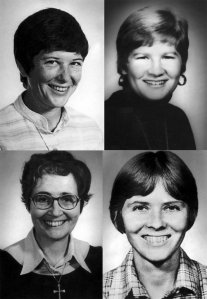

On Mar. 24, 1980 Communist-friendly Roman Catholic archbishop Oscar Arnulfo Romero (1917-) is assassinated in El Salvador while celebrating Mass, touching off riots; on Mar. 30 42 are killed at his funeral with bullets and bombs. On Apr. 1 after 10.8K Cubans crowd into the Peruvian embassy in Havana and Fidel the King of Great Deals Castro says that anyone can leave Cuba through the port of Mariel, the massive Mariel Boatlift from Mariel Harbor, Cuba to Fla. of 125K people begins; too bad, on Sept. 26 Fidel changes his mind and closes the port of Mariel, leaving 375K unable to get out of his Commie Paradise. On Dec. 2 three Am. Roman Catholic nuns and Am. lay missionary Jean Donovan (b. 1953) are ambushed, raped, and murdered in El Salvador by five Salvadoran guardsmen in a death squad; a coverup follows, and gen. outrage causes the Carter admin. to suspend all aid pending an investigation. On Dec. 13 moderate civilian Christian Dem. Jose Napoleon Duarte Fuentes (1925-90) is named pres. of El Salvador's new govt. by the governing junta, causing U.S. aid to be resumed; he is sworn in next June 1 (until June 1, 1989), immediately instituting land reforms, but violence continues. On Feb. 19, 1981 the U.S. State Dept. calls El Salvador a "textbook case" of a Communist plot.

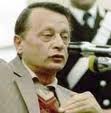

On June 29, 1980 Popular Dem. Union (UDP) leftist candidate and former pres. (1956-60) Hernan Siles Suazo is elected pres. of Bolivia; too bad, on July 17 before he can redecorate the pres. suite, the Cocaine Coup of military cocaine trafficker-financed anti-Communist hardliners led by Gen. Luis Garcia Meza Tejada (1932-), and backed by Nazi Klaus Barbie (under the alias Klaus Altmann) and Italian Neo-Fascist Stefano Delle Chiaie (1936-) overthrows him, and Tejada becomes pres. #68 of Bolivia (until Aug. 4, 1981), bragging that his new reich will last 20 years, and setting up the notorious Intelligence Battalion 601, stocked with imported prof. torturers from Argentina, led by Col. Luis Arce Gomez (known for the soundbyte "walk around with your written will under your arms"), which goes on to kill 1K in the next 13 mo., incl. Socialist congressman Marcelo Quiroga Santa Cruz (1931-80); Tejada gives cocaine traffickers a green light, making it the country's main export by 1981, resulting in an internat. outcry, despite arms-length support by U.S. Pres. Reagan.
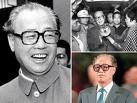
In June 1980 Zhao Ziyang (1919-2005) becomes PM #3 of Communist China (until Nov. 1987).



On Aug. 14, 1980 in protest of the dismissal of forklift operator Anna Walentynowicz (1929-2010) for collecting the remains of candles from local graves to make new ones in memorial to workers shot in the 1970 food riots, 17K Polish workers led by electrician Lech Walesa (1943-) begin a 17-day strike at the Lenin Shipyards in Gdansk, spreading to 350K workers who demand the right to unionize, paralyzing the Baltic coast; on Aug. 31 the Gdansk Agreement is signed in Gdansk by Polish United Workers' Party first secy. Edward Gierek, ending the strike, and the Polish Solidarity labor movement is born in Gdansk, officially forming on Sept. 17 with 10M members, becoming the first labor union in a Soviet bloc country, causing the Soviets to position 55 divs. on the Polish frontier, and Gierek to be replaced on Sept. 6 by Stanislaw Kania (1927-) (until Oct. 18). In Aug. the city of Shenzhen in Guangdong N of Hong Kong is designated as Communist China's first Special Economic Zone.

On Sept. 11, 1980 Cuban diplomat Felix Garcia-Rodriguez is assassinated on a New York City street by the anti-Communist Omega Seven group. On Sept. 17 exiled Nicaraguan dictator (1967-79) Anastasio Somoza Debayle (b. 1925) is assassinated in his chauffered Mercedes-Benz in Asuncion, Paraguay by a commando team led by Argentine Communist guerrilla leader Enrique Gorriaran (Gorriarán) Merlo (1941-2006), who use a double tap from a bazooka at close range; his son Anastasio Somoza Portocarrera flees to exile in Guatemala. On Sept. 22 (Liberation Day) anti-Soviet youth riots in Tallinn, Estonia are ruthlessly suppressed by police. In Sept. China announces a goal of a pop. limit of 1.2B by 2000, and orders all families of Communist Party officials to limit themselves to one child.
On Oct. 2, 1980 after Taiwan goes off the U.S. official map because of Pres. Carter's "One China" policy, Congress over his objections overwhelmingly passes the U.S.-Taiwan Relations Act, guaranteeing U.S. action in the event of an attack on the island, and providing for the continuation of arms sales, trade and other relations through an Am. Inst. in Taipei, in the former U.S. embassy bldg. On Oct. 23 the resignation of Soviet PM (since 1964) Alexei N. Kosygin (b. 1902) is announced; on Dec. 18 he dies of a heart attack, and a state funeral is held for him in Moscow on Dec. 23. On Nov. 22 18 Communist Party secys. in 49 provinces are ousted in Poland, incl. Communist boss (since 1970) Edward Gierek.
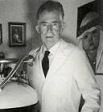
In 1980 millionaire shaterproof plastic eyeglasses inventor Robert Klark Graham (1906-97) founds the Repository for Germinal Choice, a sperm bank in an underground backyard bunker to produce geniuses and reverse the "dysgenic crisis" of "retrograde humans", "fend off the idiotic herds", and "stop global Communism", inviting Nobel Prize winners to donate sperm which he then offers to brilliant women, eventually producing 215 children, but not via the sperm of transistor inventor William Shockley and two others, since none of it "took", and they all quit by late 1980, causing the bank to begin accepting sperm from every Tom, Dick, er, Harry, er, John who walks in; bad publicity causes the bank to close in 1999.

On Feb. 9, 1981 Polish PM Josef Pinkowski resigns; on Feb. 11 after three other PMs in a year, bespectacled Gen. Wojciech Witold Jaruzelski (1923-) (who started out as a coal miner in Karangda, where he contracted permanent damage to his eyes and back) is elected PM #8 of Communist Poland (until Nov. 6, 1985); on Oct. 18 after starting a crackdown on "anti-Soviet activity and lawlessness" in Sept. he is elected first secy. #6 of the Polish Communist Party (until July 29, 1989), succeeding Stanislaw Kania.


On May 10, 1981 after a pres. election on Apr. 26 results in a runoff with Valery d'Estaing, Francois Maurice Adrien Marie Mitterrand (1916-96) is elected the 1st French Socialist pres. in a surprise upset over d'Estaing and the Gaullist alliance, which has held power since 1958; on May 21 Mitterrand becomes French pres. #21 (until May 17, 1995); the news causes the stock exchange to suspend trading for 48 hours, and extra customs officials to be posted to prevent money and valuables from being smuggled out of the country; not to disappoint, the new govt. runs the printing presses, weakening the franc; on May 22 Socialist Pierre Mauroy (1928-) becomes French PM #8 (until July 17, 1984), going on to reduce the workweek to 39 hours and lower the retirement age to 60 before abandoning Socialism; on June 14-20 nat. assembly elections in France give the Socialists a landslide, after which Mitterrand appoints four Communists to his cabinet and begins an economic austerity program incl. large scale nationalization, devaluation of the franc, and tax hikes for the rich; he goes on to abolish the death penalty and end nuclear tests.
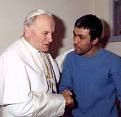

On May 13, 1981 (Sun.) Pope John Paul II (1920-2005) is shot twice in the abdomen and hand by Turkish Muslim assassin Mehmet Ali Agca (1958-) as he enters St. Peter's Square; a year earlier Agca (who was suffering from fantasies about being the Messiah?) escaped from a military prison where he was serving time for killing journalist Abdi Ipekci in 1979, and evaded mandatory Turkish army service; on May 18 the pope publicly forgives him from his hospital bed, attributing his recovery to the Virgin of Fatima, and leaves the hospital in Rome on June 3 and returns to the Vatican after three weeks, then meets with him in his prison cell in Rome in 1983 for 21 min., personally pardoning him; on June 9 the Italians link the Communist Bulgarians to the attack; on July 22 Agca is sentenced to life in prison after a 3-day trial, and on June 13, 2000 he is extradited to Turkey to serve a 10-year sentence for murdering Turkish journalist Abdi Ipekci (b. 1929) on Feb. 1, 1979, plus another seven years 4 mo. for two 1979 Turkish robberies, then released on parole on Jan. 12, 2006 after an Istanbul court rules in 2004 that he should only serve the longer sentence, which is 36 years, less 6 mo. he served before escaping to assassinate the pope, minus 10 years for a 2000 amnesty, minus 20 years for his time in prison in Italy; on Jan. 18, 2010 he is released from prison in Turkey after 19 years, saying that he wants to visit John Paul II's tomb and meet Pope Benedict XVI. On May 13 the People's Repub. of the Congo (Brazzaville) signs a Treaty of Friendship and Cooperation with the Soviet Union in Moscow.

On June 29, 1981 after a meeting of the 215-member Chinese Central Committee starting June 27, Deng Xiaoping's protege Hu Yaobang (1915-89) is elected Communist Party chmn. (until 1987), replacing Mao's hand-picked successor Hua Guofeng; Deng becomes chmn. of the military commission of the Central Committee, giving him control of the army and supreme power; the committee concludes its session with a statement holding dead Chmn. Mao responsible for the "grave blunder" of the Cultural Rev.; in Oct. 1983 Deng begins purging the Chinese Communist Party of extreme left-wing Mao holdovers; too bad, after a long struggle to enact economic and political reforms, he loses to hardliners in 1987, and his death on Apr. 15, 1989 triggers the Tiananmen Square Protests - who do you bang?

On Aug. 1, 1981 (12:01 a.m.) heavily youth-skewed MTV (Music TV) cable channel begins operation, with the soundbyte "Ladies and gentlemen, rock and roll" by John Lack, and airs Video Killed the Radio Star by the Buggles, followed by You Better Run by Pat Benatar - Communist nations in the Soviet bloc can't stop the decadent Yankees from corrupting their youth now, and the Cold War is all-but won by sex, drugs, and rock & roll?
On Aug. 22, 1981 five Afghan resistance groups form the Mujahideen Alliance, which by 1985 is up to seven groups, called the Islamic Unity of Afghanistan (Seven Party) (Peshawar Seven) Mujahidin (Mujahideen) Alliance, dedicated to kicking the Soviets out of Afghanistan, seeking representation in the U.N. On Sept. 29 a bus and truck collide head-on near Quintanar de la Orden, Spain, killing 25 and injuring 20+, all members of the Spanish Communist Party returning to Murcia from an annual meeting in Madrid. In Sept. the CIA is informed that a major Contra rebel group plans to sell drugs in the U.S. to pay its bills - right now there's summer ale?

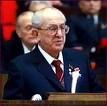
On May 12, 1982 in Fatima, Portugal, security guards overpower Spanish Roman Catholic priest (who lives in France) Juan Maria Fernandez y Krohn (1948-), who is armed with a bayonet while trying to reach Pope John Paul II at the altar, who is visiting to thank his dream babe Mother Mary for saving him from the previous assassination attempt; Krohn's seminary was founded by Marcel Lefebvre, who was suspended by the pope for opposition to Vatican II; in Oct. at his trial Krohn says the pope "betrayed the Church and encouraged Communism through compromise with Soviet Bloc countries", adding that he got the idea from seeing Sadat's assassination on TV; he is sentenced to six years and serves three, leaving the priesthood and moving to Belgium, where he becomes an atty., getting into several brushes with the law - JPII mentioned Fatima in his first close call? On May 24 KGB chief Yuri Andropov is appointed to the Communist Party secretariat. On June 8 Pres. Ronald Reagan gives his Star Wars Speech to the British Parliament (where he is the first U.S. chief exec to address a joint session), stealing his metaphors from the movie Star Wars (itself filmed in a British studio), and calling the Soviet Union an "evil empire" that will end up on the "ash heap of history" along with its ideals - that's his star power? On Sept. 30 a bomb set by the Nuclei Armati Communista explodes in front of a Jewish community center in Milan, Italy. On Nov. 10 Soviet leader Leonid I. Brezhnev dies at age 75 after 17 years, and on Nov. 12 former KGB head Yuri Vladimirovich Andropov (1914-84) becomes gen. secy. #5 of the Soviet Communist Party Central Committee (until Feb. 9, 1984); on Nov. 15 funeral services are held in Moscow's Red Square for Brezhnev, attended by more than 60 world leaders - millions begin waiting for Andropov to drop off?

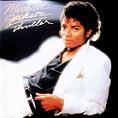
On Nov. 30, 1982 African-Am. singer Michael Jackson (1958-2009) releases his mega-album Thriller, which makes him into a superstar and breaks "the apartheid of pop" that has kept black music out of the mainstream; many young blacks and whites get a new hero who shows that staying a kid through adulthood is cool?; "His high-flying tenor makes him sound like the lead in some funked-up boys choir" (Time mag.) - once Commie kids hear him they'll ditch Communism in minutes? In 1982 Rev. Sun Myung Moon's Unification Church launches the Washington Times newspaper allegedly to fight Communism (until ?).



On Mar. 8, 1983 Pres. Reagan addresses Christian evangelicals in Orlando, Fla., and delivers his Focus of Evil Speech, calling the Soviet Union "the focus of evil in the modern world". On Mar. 23 Pres. Reagan delivers his Star Wars Speech, calling the Soviet Union "an evil empire" and calling for a space-based defense system against ICBMs called the Strategic Defense Initiative (SDI), describing it as a "new hope for our children in the 21st century", all despite warnings of experts that the system can never work because of numerous possible countermeasures; he stole it from his role as Secret Service agent Brass Bancroft in the 1940 film "Murder in the Air", or from the 1966 film "Torn Curtain" in which Paul Newman said "We will produce a defensive weapon that will make all nuclear weapons obsolete, and thereby abolish the terror of nuclear warfare"; Sen. Ted Kennedy dubs the program Star Wars after the George Lucas flicks - Star Wars Episode 4: A New Hope? On Apr. 5 the French govt. expels 47 Soviets accused of espionage. On Apr. 25 Soviet leader Yuri V. Andropov invites 11-y.-o. Manchester, Maine schoolgirl Samantha Reed Smith (1972-85) to visit his country after receiving a letter in which she expresses fears about nuclear war; she leaves with her parents on July 7, completes a whirlwind tour of the Soviet Union, and returns home on July 22. On Aug. 4 Benedetto "Bettino" Craxi (1934-2000) of the Italian Socialist Party (PSI) becomes PM #66 of Italy (until Mar. 1987) (first Socialist PM), going on to ride an economic boom to stay in office longer than anyone since Christian Dem. Alcide de Gasperi (1945-54); although it supposedly split off from the Italian Communist Party, it keeps one foot in their camp, allowing its leader Enrico Berlinguer (1922-84) to become his horse whisperer?; too bad, Craxi ends up in exile after a corruption scandal. On Aug. 25 the U.S. and Soviet sign a grain agreement pledging the Soviets to buy 9M-12M metric tons of U.S. grain a year for the next five years; there is no escape clause in the event of U.S. shortages like in 1975. KAL drops off the radar screen in Andropovland? On Sept. 1 (3:30 a.m.) Korean Air Lines (KAL) Flight 007 (Boeing 747) en route from New York City via Anchorage to Seoul is shot down over the Sea of Japan (East Sea) near Moneron Island W of Sakhalin Island off Siberia (birthplace of Yul Brynner) by two Soviet Sukhoi SU-15 fighters after it strays off course into Soviet airspace, killing all 269 aboard, incl. 61 Americanskis, incl. U.S. Rep. (D-Ga.) (since 1975) Lawrence Patton "Larry" McDonald (b. 1935) (a physician), and playing into Reagan admin. hands who had been calling the Soviet Union an evil empire, forever stinking up Andropov's name, esp. after the Soviets start out by denying knowledge then claiming it was a deliberate U.S. provocation to test their defenses as a prelude to war, although the U.S. later reveals that it had a recon plane in the vicinity earlier; on Sept. 1 U.S. Sen. (D-Wash.) (since 1941) Henry Martin "Scoop" Jackson (b. 1912) holds a news conference in Everett, Wash. to deplore the incident, then dies of an aortic aneurysm; on Sept. 6 the Soviets finally admit to shooting it down, claiming they didn't know it was a civilian aircraft; on Sept. 25-26 Soviet Lt. Col. Stanislav Yevgrafovich Petrov (1939-) makes a 5-min. decision that saves the world from nuclear Armageddon when he ignores a false warning of a U.S. missile attack; the Reagan admin. drops its prohibition on civilian use of GPS so that aircraft can better determine their location, although precision is limited to 100m until 2000, when it goes to 20m like the military gets.

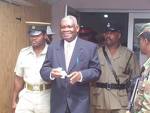
That's Grenada, not Granada, or, We'll give you a kick in the ass, that's the American Way? On Oct. 12, 1983 in Grenada pro-Cuban Marxists within the govt. (which came to power in a 1979 coup) led by deputy PM Winston Bernard Coard (1945-) overthrows and imprisons PM Maurice Bishop and his supporters at Ft. Rupert (later Ft. George), then assassinate him and 40 others on Oct. 19 after supporters try to break him out, after which gen. Hudson Austin (1938-) seizes power and declares a military curfew, causing Dominican PM (1980-95) Mary Eugenia Charles, a member of the Org. of Eastern Caribbean States (OECS) to appeal to the U.S. to intervene, citing ties with Cuba and construction of a 10K-ft. runway that could be used for Cuban and Soviet arms shipments; on Oct. 21 citing the presence of U.S. medical students at St. George's Medical School that need protection, U.S. Pres. Reagan authorizes Operation Urgent Fury, a 10-ship invasion of Grenada, and on Oct. 25 (two days after the Marine Barracks disaster in Lebanon) 6K U.S. and 1K OECS forces, incl. 1.8K U.S. Marines invade the island (the 2nd largest country in the Western hemisphere invading the 2nd smallest), handily defeating the 750 Grenadian troops and 600 Cuban construction workers; 19 Americans, 45 Granadians and 29 Cubans die before resistance ends on Oct. 28; the U.S. vetoes a U.N. Security Council resolution condemning the invasion, while some U.S. allies claim it's a ploy to distract attention from the debacle in Lebanon; Austin and other military officers are sentenced to death in 1986, their sentences later commuted to life in prison; no Medal of Honor awards result from the Grenada action.
On Nov. 18-19, 1983 Aeroflot Flight 6833 (Tu-134A) with 57 passengers and seven crew en route from Tbilisi, Georgian SSR to Leningrad is hijacked by seven young Georgians trying to flee the Soviet Union to Turkey "to have a better life and live in a free society"; Soviet special forces storm the plane, killing eight, incl. a stewardess, leaving 108 bullet holes in the aircraft; after Georgian Communist Party chief Eduard Shevardnadze calls them "bandits" and "drug addicts", the surviving three hijackers are executed, along with their alleged ringleader, Orthodox priest Theodore Chikhladze.




On Jan. 10, 1984 former Argentine pres. Reynaldo Bignone is arrested in Argentina for the slaying of two Communists. On Jan. 12 the U.S. and China sign agreements on industrial cooperation and renew science and technology accords. On Jan. 29 the Soviets issue a formal complaint against alleged U.S. arms treaty violations. On Feb. 9 Soviet Big Brother Yuri Andropov surprises no one when he drops off from acute kidney failure; on Feb. 13 he is succeeded by equally stiff Konstantin Ustinovich Chernenko (1911-85) as gen. secy. of the Soviet Communist Party Central Committee (until Mar. 10, 1985). On Feb. 10 China and the Soviet Union sign a $1.2B trade agreement. On Feb. 14 after the inflation rate passes 12%, Italian PM Bettino Craxi ends automatic wage increases based on prices, and sets a 15% limit on increases in govt.-controled prices incl. electricity and gas, causing protests in major cities along with wildcat strikes; on Apr. 16 the decrees fail to win parliamentary approval; on May 9-10 a referendum backed by the Communists to restore wage cuts is rejected, and on May 24 a new decree issued Apr. 17 is approved by the chamber of deputies by 329-256, followed on June 8 by the senate by 172-12. In Apr. Pres. Reagan visits China; Pres. Li Xiannian, an outspoken critic of the U.S. is the official host, but this is just window dressing as Deng Xiaoping, who calls the real shots is busy softening hardline Maoism and introducing Western capitalist ideas to save China's economy. On May 10 the Internat. Court of Justice (World Court) orders the U.S. to halt its blockade of Nicaraguan ports, but the U.S. does not recognize their jurisdiction on this issue. On June 24 1M Catholics demonstrate in Paris against unsavory private school (ecole libre) reform, and on July 12 French pres. Francois Mitterrrand announces the repeal of the Jan. 26, 1984 Savary Law, which had attempted to integrate Catholic schools into the state system, causing education minister Alain Savary (1918-88) and PM (since May 22, 1981) Pierre Mauroy, who had flopped from Socialism to support of private schools to resign on July 17, and Mitterrand to move towards the political center, appointing fabulous new PM Laurent Fabius (1946-) (whose father is a Sephardic Jew art dealer) as French PM #9 (until Mar. 20, 1986), who appoints a new all-Socialist cabinet, ending the Socialist-Communist coalition; proposed cuts in the pay of workers don't compensate for proposed tax cuts, and Mitterrand's popularity continues to sag. On July 28-Aug. 12 the XXIII (23rd) Summer Olympics are held in Los Angeles, Calif. after the Soviets pull out on May 7-8, and 13 other Communist nations follow suit (Romania attends); 6,797 athletes from 140 nations compete in 221 events in 23 sports; the first privately-funded games (profit $200M), featuring a new IOC trust fund set up in 1985 at the urging of Edwin Moses to subsidize athletes. On Aug. 11 Pres. Reagan sparks controversy when he utters the We Begin Bombing in Five Minutes Joke during a voice test on NPR for a paid political radio address that he had "signed legislation that will outlaw Russia forever - we begin bombing in five minutes"; it was never broadcast, but that doesn't stop the Soviet Far East Army from going on alert for 30 min. On Aug. 25 the Soviets successfully test cruise missiles. On Sept. 10 a full Communist regime is proclaimed in Ethiopia, with Mengistu Haile Mariam (1937-) leader of the Derg (Dergue) military junta which governed Ethiopia since 1974; meanwhile the country is in the throes of the worst famine in a decade, with 6M of its 43M pop. on the edge of starvation - and 7 million Ethiopian jokes cropping up among U.S. rednecks? On Oct. 7 the 1st Reagan-Mondale U.S. Pres. Debate in Louisville, Ky., hosted by Barbara Walters of ABC-TV on domestic and economic policy sees Reagan appear tired and confused, scoring points for Mondale; on Oct. 21 after late Sept. polls give Reagan a 54% approval rating, making this Mondale's last chance, the 2nd Reagan-Mondale U.S. Pres. Debate in Kansas City, Mo. is hosted by Edwin Newman of NBC-TV, and focuses on internat. policy and nat. defense; after asserting that he's in full command of a strengthened U.S., Reagan utters the soundbyte "I have said on a number of occasions exactly what I believe about the Soviet Union. I retract nothing that I have said. I believe that many of the things they have done are evil in any concept of morality that we have... and I told Mr. Gromyko that we don't like their system"; when asked if he thought he was too old to serve another term, Reagan give his reply: "I want you to know that also I will not make age an issue of this campaign. I am not going to exploit for political purposes my opponent's youth and inexperience", drawing a laugh from everybody incl. Mondale, who knows he's not going to be pres. now. In Oct. the Chinese Communist Party announces economic reforms, a plan to lift govt. price subsidies, and promises to relax party control over enterprises.

On Nov. 4, 1984 the first pres. elections since 1974 in Nicaragua result in an 80% turnout of the country's 1.55M voters, with Communist Sandanista Nat. Liberation Front (FSLN) leader Jose Daniel Ortega Saavedra (1945-) winning with 60% after telling the U.S. Gen. Assembly that the U.S. is planning to invade like in Grenada; opposition leader Arturo Jose Cruz boycotts the election, calling it "totally ridiculous and illegitimate", which is backed by the U.S. State Dept., although foreign observers find no irregularities. On Nov. 18 the Soviets help deliver U.S. wheat during the Ethiopian famine. On Dec. 28 a Soviet cruise missile plunges into Inarinjarvi Lake in Finnish Lapland; Finnish authorities don't announce it until Jan. 3.

In 1984 Hungarian-born investor George Soros (1930-) sets up a foundation in Hungary to promote the "open society" and fight Communism, pumping hundreds of millions of dollars in it to bring it down.


On Feb. 15, 1985 the Karpov-Kasparov World Chess Championship match between Soviet world chess champ (since 1975) Anatoly Yevgenyevich Karpov (1951-) and 22-y.-o. Azerbaijani challenger Garry Kimovich Kasparov (1963-) is aborted by pro-Karpov FIDE pres. Compomanes with the score of Karpov 25, Kasparov 23 in a cheap trick to stop Kasparov; on Sept. 2 they resume, and on Nov. 9 Kasparov wins with a match score of 13-11, becoming world chess champ #13 (youngest until?) (until Nov. 2, 2000 - 225 mo.), vowing to take revenge on the "Chess Mafia", leading to setting up the rival Prof. Chess Assoc. in 1993.


On Mar. 10, 1985 Konstantin U. Chernenko (b. 1911) dies at age 73 after just 13 mo. as Soviet leader, and on Mar. 11 after being nominated by Andrei Gromyko, "young" (youngest since Stalin in 1924) 54-y.-o. Politburo member (agricultural specialist) Mikhail Sergeyevich Gorbachev (1931-2022) succeeds him as gen.-secy. #8 (last) of the Soviet Communist Party (until Aug. 24, 1991), promising improvement of the economy, and calling for sweeping economic changes in June despite implied criticism of his predecessors; the first Soviet leader with a college education since Lenin, with a good knowledge of the West incl. from reading and travel; Chernenko is buried on Mar. 13. On Apr. 11 Albania's Stalinist dictator (Communist party chief) (since Nov. 8, 1941) Enver Hoxha (b. 1908) dies after 41 years in power, and on Apr. 13 is succeeded as first secy. of the Albanian Communist Party of Labor by pres. (since 1982) Ramiz Tafe (Tafë) Alia (1925-) (until May 4, 1991); desperately poor semi-secular Muslim Albania is now a hop, skip, and jump from embracing Western democracy; Hoxha's widow continues to exercise considerable power. On May 27 in a brief ceremony in Beijing, reps. of Britain and China exchange instruments of ratification on the pact returning Hong Kong to the Chinese in 1997. In early June South Africa pulls its troops out of Angola after the latter agrees to limit guerrilla activity by the South-West Africa People's Org. (SWAPO) in the Namibia border region and to institute joint patrols; they return to pursue SWAPO guerrillas into Angola in late June, killing 61 of them.



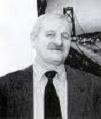


On June 13, 1985 CIA traitor Aldrich Hazen Ames (1941-) hands over the names of 20 Soviets working for the CIA to a Soviet agent, several of whom are later executed; Ames is not arrested until Feb. 21, 1994. On July 2 Soviet foreign minister (since 1957) Andrei Gromyko (1909-89) resigns, and on July 27 Eduard Shevardnadze (1927-) becomes foreign minister of the Soviet Union (unti Dec. 20, 1990); on Oct. 5 Gromyko sends two letters to U.N. secy.-gen. Javier Perez de Cuellar, condemning nuclear war and proposing a nuclear weapons freeze; too bad, the U.S. ignores them, and on Nov. 11 Gromyko goes to pasture as ceremonial chmn. of the Presidium of the Supreme Soviet (until 1988). On July 8 China permits marketing of tampons for the first time - don't ask? On Aug. 1 high-level Soviet KGB officer Vitaly Yurchenko (1936-) becomes one of the most senior Soviet intel officers to defect to the West, fingering two U.S. intel officers as double agents, then slipping away from the CIA at the Au Pied de Cochon Restaurant in Georgetown and announces at the Soviet embassy on Nov. 4 that he wants to return home, claiming that he had been kidnapped in Rome, drugged, and held prisoner in the U.S. by the CIA; he later is awarded the Order of the Red Star; meanwhile on Nov. 25 after being fingered by Yurchenko, retired NSA comm specialist Ronald William Pelton (1942-) is arrested for esponage sans evidence, luckily confesses, and is convicted in 1986 and given three consecutive life sentences; ex-CIA officer Edward Lee Victor Howard (1951-2002), who was also fingered by Yurchenko escapes, and dies of a broken neck in his Russian dacha on July 12, 2002 of suspected murder. On Aug. 9 a federal judge in Norfolk, Va. finds retired Navy officer Arthur James Walker (1935-) guilty of seven counts of spying for the Soviet Union; on Oct. 20 brother John Anthony Walker Jr. (1937-) admits charges that he spied for the Soviets and recruited his son Michael J., his brother and a friend into the spy ring which is called one of the most damaging in U.S. history; thanks to a plea bargain, John gets life, but his son gets 25 years. On Aug. 23 a spy scandal flares up in West Germany as a top counter-intel officer defects to East Germany. On Aug. 25 Samantha Reed Smith (b. 1972), America's 12-y.-o. Ambassador for Peace dies with her father in a plane crash in Lewiston-Auburn, Maine - he told her but had to kill her? On Sept. 2 former Cambodian ruler Pol Pot retires from the Khmer Rouge to a military advisory role. On Sept. 30 four Soviet diplomats are abducted in West Beirut by the Islamic Liberation Org.; one of them is found slain on Oct. 2, and the Kremlin holds Israel indirectly responsible; the remaining three are released on Oct. 30.


On Nov. 19-21, 1985 Reagan and Gorbachev meet for the first time in Geneva for the first U.S.-Soviet summit in 6 years, and agree to step up arms negotiations and meet more regularly; too bad, Gorby fails to change Ronny's mind about implementing those *!?*! space-based American cowboy Star Wars defenses; on May 6 Soviet field marshal Sergei L. Sokolov (1911-) utters the soundbyte: '"American Star Wars research poses a greater hazard to peace than the atomic bomb." On Nov. 23 retired CIA analyst Larry Wu-tai Chin (1922-86) is arrested and accused of spying for China over a 37-year career (since 1948); after proudly confessing to his massive treason, he commits suicide next Feb. 22 with a paper bag two weeks after his conviction on 17 counts; he tipped the Chinese govt. to Pres. Nixon's decision to reestablish diplomatic relations two years before he did it.

In 1985 Brazilian Franciscan liberation theologian Leonardo Boff (1938-), known for supporting Communism and homosexuality while trying to help the poor and downtrodden is silenced for a year for his 1981 book Charism and Power by the Congregation for the Doctrine of the Faith, headed by Cardinal Joseph Ratzinger, whom he calls a "religious terrorist"; he later quits the priesthood to become a professor, and toys with ideas about democratizing the Church, then stinks himself up by calling 9/11 "a new planetary and humanistic paradigm"?



In Jan. 1986 independent counsel Lawrence E. Walsh (1912-) begins his probe into whether money from the sale of weapons to Iraq was illegally diverted to the rebel Nicaraguan Contras; in early Nov. the Iran-Contra Affair almost gets U.S. Pres. Reagan impeached when his adm. is found to have illegally sold arms to Iran and used some of the profits to support the Contras; on Dec. 19 Walsh is appointed official independent counsel to investigate the Iran-Contra Affair, later uncovering the CIA's Project Democracy - mad money, will it be a house of pleasure? On Feb. 11 the plight of Soviet Jewish refuseniks makes headlines when Pres. Reagan helps Natan (Anatoly) and Avital Sharansky (Scharansky) obtain release by the Soviet Union and emigrate to Israel after nine years of captivity as part of an East-West prisoner exchange. On Feb. 19 the Soviet Union launches the first component of its modular Mir (Peace) Space Station; it is finished in 1996, and deorbited on Mar. 23, 2001, setting a record for continuous manned presence in space of 10 years minus 8 days; it is occupied for a total of 12.5 of its 15-year lifespan. On Mar. 16 in France the right takes control of Parliament by a slim majority, ending the Socialist experiment of Pres. Mitterrand, who is forced to share power with a centrist-Gaullist coalition led by PM Jacques Chirac, who becomes PM again on Mar. 20 (until 1988), sparring over Chirac's plan to denationalize major industries and effect a harder line on security issues, introducing a privatization plan in Apr. On May 4 Afghan PM (since 1979) Babrak Karmal is removed by the Soviets, and replaced by Communist Party secy.-gen. Najib Ahmadzai, AKA Mohammed (Muhammad) Najibullah (1947-96), who becomes the 4th and last Commie pres. of Afghanistan next Sept. 30 (until Apr. 16, 1992). On June 25 the U.S. Congress approves $100M in aid for the Nicaraguan Contras. On June 25 an FBI memorandum contains the Cronkite Documents, showing that CBS Evening News anchorman Walter Cronkite is being targeted in a Soviet "active measures" campaign to counter Pres. Reagan's anti-Communist foreign policy, naming him as a possible member of a U.S. delegation to sign a pro-Soviet "People's Peace Treaty". In June Socialist Spain votes to remain in NATO, but outside of the military command. On July 10 Vietnamese Communist strongman leader Le Duan (b. 1907) dies, opening the door for the Doi Moi (Renovation) Reforms, departing from the old Stalinst-Maoist model, incl. privatization. On July 11 Pres. Reagan places the Contras under CIA jurisdiction. On Aug. 30 Soviet authorities arrest Nicholas Daniloff, the Moscow correspondent for U.S. News and World Report after he is handed a package by a Russian acquaintance; he is later released. On Sept. 30 the U.S. releases accused Soviet spy Gennadiy F. Zakharov one day after the Soviets release Nicholas Daniloff. In Sept. China's first stock market opens in Shanghai. On Oct. 5 unemployed U.S. construction worker and ex-Marine Eugene H. Hasenfus (1941-) is captured by Sandinista soldiers after his gun-running plane is shot down over S Nicaragua; on Nov. 15 a govt. tribunal in Nicaragua convicts him of delivering arms to Contra rebels, and sentences him to 30 years in prison; he is pardoned on Dec. 17 and released. On Oct. 11-12 Pres. Reagan and Soviet leader Mikhail Gorbachev talk about arms control and human rights in Reykjavik, Iceland, but reach no agreement. On Nov. 13 a Soviet Politburo meeting on Afghanistan features Mikhail Gorbachev uttering the soundbyte: "We have been fighting in Afghanistan for six years already. If the approach is not changed, we will continue to fight for another 20-30 years... Are we going to fight endlessly as a testimony that our troops are not able to deal with the situation? We need to finish this process as soon as possible."


On Dec. 10-30, 1986 in China thousands of students, led by astrophysicist Fang Li-Zhi (Lizhi) (1936-), husband of physicist Li Shuxian begin protesting for democracy in Shanghai, and the demonstrations spread to Beijing, with Li-Zhi calling on China to embrace "science, democracy, creativity and independence" a la the May 4 Movement in 1919; on Dec. 21 500K Chinese students gather in Shanghai's People's Square calling for dem. reforms, just begging the govt. to get them for behaving badly; Denx Xiaoping storms a meeting of Communist Party leaders fuming about Li-Zhi, saying, that he's "so arrogant" and that he wants to "remold the Communist Party", and getting him expelled from the party for a 2nd time (first 1957), dismissed from his univ. post and reassigned to Peking Observatory to get him out of the way; it was Deng who rehabilitated and readmitted him in 1978. On Dec. 19 the Soviet Union announces that it has freed dissident Andrei Sakharov from internal exile and pardoned his wife Yelena Bonner. In Dec. U.S. Marine Sgt. Clayton J. Lonetree (1960-) informs his CIA station chief in Austria that he had been spying for the Soviets (the first U.S. Marine spy); on Aug. 21, 1987 he becomes the first Marine ever convicting of giving secrets to the KGB after becoming romantically involved with a Soviet woman while serving as a U.S. Embassy guard in Moscow; he is sentenced to 30 years and serves eight, being released in Feb. 1996.
On Jan. 16, 1987 Communist Party gen. secy. Hu Yaobang becomes the scapegoat for student protests and is forced to resign; he is succeeded by PM (since 1980) Zhao Ziyang (until 1989), who goes on to ditto. On Feb. 15, 1987 ABC-TV begins broadcasting its 7-night Amerika mini-series, showing the U.S. under Soviet occupation. On Feb. 18 Soviet Communist Party leaders drop former Moscow party chief Boris N. Yeltsin from the ruling Politburo - if you can't join 'em, beat 'em? On Feb. 20 Soviet authorities release Jewish activist Josef Begun. On Apr. 9 responding to charges of bugging at the new U.S. Embassy in Moscow, Soviet officials display microphones and other gadgets they said were found in Soviet missions in the U.S. On Apr. 14 U.S. secy. of state George P. Shultz meets at the Kremlin with Soviet leader Gorbachev, who proposes the elimination of short-range nukes in East Germany and Czech. as part of an arms control agreement with the U.S.

On Apr. 24-May 8, 1987 Socialist Francois Mitterrand wins a 2nd 7-year term as French pres. by a landslide over conservative challenger Jacques Chirac; on May 9 Mitterrand names Socialist Michel Rocard (1930-) to succeed Chirac as French PM #160 (until May 15, 1991) - anything to piss off them passport-toting Ugly Americans? On Apr. 28 Contra rebels in Nicaragua kill Benjamin Ernest Linder, a U.S. engineer working on a hydroelectric project for the Sandinista govt.


On May 21, 1987 Soviet news agency Tass reports that the Communist Party leaders of Armenia and Azerbaijan had been dismissed after fresh outbreaks of ethnic tensions. On May 28 19-y.-o. West German amateur pilot Mathias Rust (1968-) stuns the world by landing his private plane on Vasilevski Spusk next to Moscow's Red Square after evading the vaunted Soviet air defenses; he is sentenced to eight years but is released in Aug. after 18 mo.; on May 30 Soviet defense minister (since 1984) Field Marshal Sergei L. Sokolov (1911-) and the chief of Soviet air defenses are fired for the screwup.

On June 12, 1987 Pres. Reagan visits the Brandenburg Gate in Berlin, and issues his historic Tear Down This Wall Speech: "General Secretary Gorbachev, if you seek peace, if you seek prosperity for the Soviet Union and Eastern Europe, if you seek liberalization, come here to this gate! Mr. Gorbachev, open this gate! Mr. Gorbachev, tear down this wall!"; in June at a plenum of the Central Committee of the Communist Party of the Soviet Union, Mikhail Gorbachev reintroduces the old Marxist-Leninist terms Perestroika (restructuring) and Glasnost (openness) to a new generation wanting to know how the teetering economy is to be fixed; Russian economist and Politburo member Alexander Nikolaevich Yakovlev (1923-2005) is the driving force behind it all, causing him to be called "God's Commie" and "the Godfather of Glasnost"; in 1973 Canadian PM Pierre Trudeau named him son after him when he was Soviet ambassador to Canada; after the Soviet Union falls, Yakovlav becomes an outspoken anti-Communist and gets labelled a traitor by most Russians. In June Billy Joel tours the Soviet Union, becoming one of the first U.S. rock acts to play there, ending up losing $1M. On July 12 for the first time in 20 years, a delegation of Soviet diplomats arrives in Israel for what is described as a "technical mission" to document Soviet citizens and make an inventory of Soviet property.
On Sept. 13, 1987 Soviet foreign minister (1985-90) Eduard Shevardnadze arrives in Washington, D.C. for talks aimed at a possible superpower summit; he brings with him a letter from Soviet leader Gorbachev to Pres. Reagan. On Oct. 29 Zhao Ziyang admits that only 50% of China's economy is under govt. control; by 1990 that figure drops to 30%; on Nov 1. 83-y.-o. Chinese leader Deng Xiaoping retires from the Communist Party's Central Committee and other key posts "to make way for younger leaders", and on Nov. 2 is succeeded by young whippernapper Zhao Ziyang. On Nov. 2 in Peru during the All Souls holiday a 20-person raiding party of the Marxist Shining Path, known for adopting Mao's slogan "Serve the People" attacks the mountain community of Lucanas. On Nov. 12 Boris N. Yeltsin is fired as head of the Moscow Communist Party for criticizing the slow pace of reform. On Nov. 13 Nicaraguan pres. Daniel Ortega unveils an 11-point proposal in Washington, D.C. for a ceasefire, calling for the Contra rebels to lay down their weapons and accept an amnesty. On Nov. 18 the congressional Iran-Contra committees issue their final report, saying that Pres. Reagan bore "ultimate responsibility" for wrongdoing by his aides, who ran an operation filled with "secrecy, deception and disdain for the law". Look at my forehead - do you see the word "dumbass" stamped there? On Nov. 20 the U.S. and Cuba revive their 1984 agreement for the return of 2.6K criminals and mental patients dumped on the U.S. in 1980; on Nov. 21 an 8-day siege begins at a detention center in Oakdale, La. as Cuban detainees, alarmed over the possibility of being returned to Cuba seize the facility, set fires and take hostages; on Nov. 29 they release all 26 hostages; on Nov. 21 a clone event takes place at the federal prison in Atlanta, Ga., and the siege ends on Dec. 4 after authorities agree to postpone deportations - until after the executions? On Nov. 22 the govt. of Nicaragua releases 985 political prisoners in a show of compliance with a Central Am. peace plan. On Nov. 24 the U.S. and Soviet Union agree to scrap shorter and medium-range missiles in the first superpower treaty to eliminate an entire class of nukes. On Nov. 30 in an interview broadcast by NBC-TV, Soviet leader Mikhail Gorbachev acknowledges that his country is engaged in Star Wars related research, but says there were no plans to build a space-based system against nuclear attack. On Dec. 6 one day before the arrival of Soviet leader Gorbachev, hundreds of thousands of demonstrators pressing for free emigration of Soviet Jews march in Washington, D.C.; on Dec. 6 security agents in Moscow rough up Jewish activists and journalists during rival demonstrations over Kremlin policy. On Dec. 7 Soviet leader Mikhail S. Gorbachev sets foot on U.S. soil for the first time, arriving for a Washington, D.C. summit with Pres. Reagan; on Dec. 8 they sign the Intermediate Nuclear Forces (INF) Treaty banning intermediate-range nuclear missiles, becoming first-ever agreement between the U.S. and Soviet Union to reduce the size of their nuclear arsenals; Am. pianist Van Cliburn performs for Gorbachev at the White House. On Dec. 9 Reagan and Gorbachev grapple with differences over Afghanistan and cutbacks in long-range nuclear arms, then end their summit on Dec. 10; on Dec. 11 NATO allies urge the U.S. Senate to ratify the INF Treaty quickly and underscore their support by pledging to let the Soviet Union inspect missile bases in five European countries.
On Jan. 6, 1988 Soviet foreign minister Eduard Shevardnadze is quoted by the Afghan news agency as saying that the Kremlin wants to pull an estimated 115K soldiers from Afghanistan in the coming year starting in May. On Jan. 10 Soviet media report on an interview given to Chinese journalists by Gorbachev, who praises the state of Sino-Soviet relations and calls for a summit, which the Chinese refuse until Soviet-backed Vietnamese forces withdraw from Cambodia. On Jan. 11 the Soviet Union announces that it will participate in the 1988 Seoul Summer Olympics. On Feb. 12 the Pentagon charges that two Soviet Navy vessels deliberately bumped two U.S. warships in the Black Sea as the U.S. vessels sailed through waters claimed by the Soviet Union. On Feb. 18 Soviet Communist Party leaders drop former Moscow party chief Boris N. Yeltsin from the ruling Politburo - if you can't join 'em, beat 'em? On Mar. 8 the jazz-playing Ovechkin Family (mother Ninel, 7 sons and 3 daughters, who hide their sawed-off shotguns in their musical instrument cases) attempt to escape the Soviet Union by hijacking a Tu-154 flight from Irkutsk to Leningrad, hoping to force it to London; after landing near Vyborg the plane is stormed, and the mother is killed by one of her sons at her own request and four more commit suicide; three passengers and a stewardess are also killed. In the spring Soviet germ scientists transfer hundreds of tons of anthrax bacteria into canisters with bleach and send them for storage to Vorrozhdeniye (Renaissance) Island in the Aral Sea, which is shared by Kazakhstan and Uzbekistan. In Mar. the first Yankee McDonald's hamburger restaurant behind the Iron Curtain opens in Belgrade, featuring the McCountry, a domestic pork burger with paprika, and producing ads showing the golden arches topped by a traditional Serbian sajkaca cap - now Communism is really doomed? On Apr. 14 the Geneva Accords, a U.N.-mediated agreement is signed by Pakistan and Afghanistan, with the U.S. and Soviet Union as guarantors, pledging that Afghanistan will become a nonaligned country, and providing for the withdrawal of all Soviet troops from Afghanistan by Feb. 15, 1989; the mujahadin rebels reject the pact and continue fighting with the U.S.-backed guerrillas. On Apr. 22 U.S. state secy. George P. Shultz visits the Soviet Union and meets with Pres. Gorbachev, who reportedly criticizes the Reagan admin. for its "confrontational" approach to U.S.-Soviet relations. On May 12 U.S. secy. of state George P. Shultz and Soviet foreign minister Eduard Shevardnadze meet in Geneva and resolve nearly all remaining questions on an intermediate-range missile treaty. On May 15 the Soviet Union begins withdrawing its troops from Afghanistan 8.5 years after Soviet forces had come looking to kick mujahidin butt (ends Feb. 15); on May 18 a cheering crowd in the Soviet town of Termez greets the first returning Soviet soldiers. On May 21 Soviet news agency Tass reports that the Communist Party leaders of Armenia and Azerbaijan had been dismissed after fresh outbreaks of ethnic tensions. On May 25 Pres. Reagan leaves for a U.S.-Soviet Summit in Moscow; on May 27 the U.S. Senate votes 93-5 to ratify a treaty eliminating medium-range nuclear missiles; on May 28 Soviet TV airs a 34-min. interview with Reagan in which he pledges to make human rights "agenda item number one"; on May 29-June 2 Pres. Reagan visits the Soviet Union; on June 3 he returns home after a stopover in London - country bumpkin goes to the big city, or vice-versa?


On June 22, 1988 Hungary begins to thaw as Janos Kadar, installed by the Soviet Union as first secy. of Hungary's Communist Party in 1956 is replaced by PM Karoly Grosz, who is replaced on Nov. 23 by Miklos Nemeth (1948-) (until May 23, 1990), who introduces privatization; Imre Pozsgay (1933-), leader of the Patriotic People's Front, and Rezso Nyers (1923-), who engineered the 1968 economic liberalization and was ousted in 1975 return to the Politburo. On June 30 there is a surprising display of glasnost during a Soviet Communist Party conference as delegate Vladimir I. Melnikov bluntly criticizes Pres. Andrei A. Gromyko and other longtime Kremlin figures.
On Sept. 22-23, 1988 Soviet foreign minister Eduard A. Shevardnadze holds talks with U.S. secy. of state George P. Shultz on arms control and human rights in Washington, D.C. On Sept. 26 in a farewell speech to the U.N. General Assembly, Pres. Reagan claims to see "a moment for hope" for peace in the world, citing a new U.S.-Soviet treaty to sharply reduce nukes during the following year - what about the Chinese and Islamists? On Sept. 30 Mikhail Gorbachev retires pres. Andrei A. Gromyko from the Politburo and fires other old guard leaders in a Kremlin shakeup; on Oct. 1 Gorbachev is elected chmn. of the presidium of the Supreme Soviet (until May 25, 1990). On Oct. 1 Mikhail Gorbachev is confirmed as pres., succeeding Andrei A. Gromyko. On Oct. 26 German chancellor Helmut Kohl attends a banquet in the Kremlin with Soviet pres. Mikhail Gorbachev to reconcile over WWII; too bad, in Nov. a group of 16 Jews revisits their former home town of Xanten, Germany, and are greeted by graffiti reading "That's the way to the gas chamber" and "Auschwitz is too small". On Oct. 27 the govt. of the Soviet Union unveils an $804B budget containing a $58B deficit that officials blame on past mistakes - there's no gotchya here? On Oct. 29 the maiden voyage of the Soviet Union's space shuttle is delayed because of problems with ground equipment. On Oct. 31 ex-Beatle Paul McCartney (1942-) releases Back in the USSR (The Russian Album), becoming the first Western artist to release an album exclusively in the Soviet Union. On Nov. 6 Andrei Sakharov, the father of the Soviet dissident movement arrives in the U.S. for a 2-week trip less than two years after being freed from internal exile in the Soviet Union. On Nov. 14 U.S. officials announce that Soviet leaders will visit the U.S. in Dec. On Nov. 15 the Soviet Union launches its first space shuttle, Buran on an unmanned 3.5-hour flight; it proves too expensive and never flies again? On Nov. 25 French pres. Francois Mitterrand visits the Soviet Union, and watches the launch of a Soviet-French space mission. On Dec. 1 Soviet pres. All Hail Gorby wins nearly unanimous approval for a more dynamic political structure as the Supreme Soviet votes itself out of existence in favor of a new Congress of People's Deputies. On Dec. 6 Soviet Pres. Gorbachev arrives for his 2nd U.S. visit to address the U.N. and meet with Reagan and Bush, giving a speech in the U.S. where he announces that the Cold War is over and "The use or threat of force no longer can or must be an instrument of foreign policy - this applies above all to nuclear arms", calling for cutting offensive strategic arms in half, banning weapons in outer space, ending exploitation of the Third World, canceling Third World debt payments, jointly safeguarding the environment, along with a U.N.-brokered ceasefire in Afghanistan, acknowledging that the Afghan insurgents are prevailing despite 100K Soviet troops being deployed; he also offers a "joint effort to put an end to an era of wars"; too bad, on Dec. 7 a 7.2 earthquake devastates Spitak (Gyumri), N Armenia, killing 50K, catching children in unstable school buildings 5 min. before school ends; on Dec. 8 Gorbachev cuts his U.S. visit short in order to return home, and visits Armenia on Dec. 10. On Dec. 11 a Soviet military transport plane crashes, killing 80 involved in Armenian earthquake relief efforts.

In 1988 the pesky infidel Soviets out of the way in Afghanistan with infidel U.S. help, multimillionaire Saudi financer and Sunni Wahhabi Muslim anti-Crusader freedom fighter Osama (Usama) (Arab. "lion") bin Laden (1957-2011) founds Al-Qaida (Al-Qaeda) (Arab. "the [Data] Base") to support Muslim terrorist activity worldwide; the name originally refers to a center for processing Arab volunteers to fight against the Soviets in Afghanistan? In 1988 Boris Pasternak's Doctor Zhivago is finally pub. in the Soviet Union - which proves it's about to fall?



On Jan. 11, 1989 Pres. Ronald "Well, ..." Reagan delivers his Farewell Address from the Oval Office, beginning "This is the 34th time I'll speak to you from the Oval Office, and the last...", followed by the soundbytes: "Countries across the globe are turning to free markets and free speech and turning away from ideologies of the past. For them, the great rediscovery of the 1980s has been that, lo and behold, the moral way of government is the practical way... Democracy, the profoundly good, is also the profoundly productive... And as I walk off into the city streets, a final word to the men and women of the Reagan Revolution... We did it. We weren't just marking time. We made a difference. We made the city stronger. We made the city freer, and we left her in good hands. And all in all, not bad at all" - his Alzheimer's must have caused him to forget about Dan Quayle? On Feb. 4 Soviet foreign minister Eduard Shevardnadze wraps up four days of high-level talks in China, becoming the first visit by a Soviet foreign minister in three decades. On Feb. 15 the Soviet Union announces the pullout of the last of its troops from Afghanistan, and begins unilateral withdrawal of troops from Eastern Europe. On Feb. 24 a state funeral is held in Japan for Emperor Hirohito; on Feb. 25 Pres. Bush leaves Japan, where he had attended the funeral, and arrives in China for a 3-day visit, which is marred on Feb. 26 by the refusal of Chinese authorities to allow its #1 dissident, astrophysicist ("China's Andrei Sakharov") Fang Li-Zhi (Lizhi) (1936-) to attend a banquet hosted by Bush; he later flees to the U.S. embassy after the 1989 Tiananmen Square Massacre. In Feb. the Slovenes form an opposition party to Communist rule. On Mar. 15 Soviet Pres. Gorbachev convenes a 2-day meeting of the Communist Party Central Committee to decide on agricultural reforms; on Mar. 16 they approve them and elect the party's 100 members to the new Congress of People's Deputies - no matter what is in this box we are still family? On Mar. 26 in the Soviet Union's first real election, Boris N. Yeltsin (1931-2007) wins a landslide V in Moscow, getting 89% of the vote for leadership of the Communist Party, and filling 1.5K of 2K seats in the new Congress of People's Deputies; despite Party officials waiting 10 days to announce results, New York Times journalist Bill Keller (1949-) (later its ed.) organizes exit polls by foreign journalists, giving instant news of Yeltin's big V. On Mar. 29 Chinese dissident Wei Jingsheng (1950-) is arrested in the crackdown on the Democracy Wall pro-democracy movement and sentenced to 15 years for writing articles questioning the regime; the Commie bastards ruin his teeth and give him heart problems. In Mar. the Round Table Talks begin in Poland, resulting in the signing of the Round Table Accords on Apr. 5, relegalizing Solidarity after a 7-year ban; elections on June 4 result in Solidarity candidates sweeping the senate and parliamentary seats; W. Jaruzelski is elected pres. by the parliament. On Apr. 2 Mikhail Gorbachev begins a visit to Cuba despite differences with Fidel Castro over the type of reforms being instituted in the Soviet Union. On Apr. 6 Mikhail Gorbachev meets with British PM Margaret Thatcher in London. On Apr. 7 the Soviet nuclear-powered submarine Komsomolets catches fire and sinks in the Norwegian Sea, killing 42. On Apr. 8 the Supreme Soviet amends its infamous Article 70 of the criminal code, dramatically decreasing prison terms and fines for dissidents. On Apr. 9 troops under Gen. Lebed using clubs and gas go overboard and kill 18 anti-Kremlin protesters, incl. 16 women and children in Tbilisi, Georgia, and injure 4K, causing party leadership in Georgia to accept the blame and resign on Apr. 14. On Apr. 12 Janos Berecz and three other conservative anti-reform members are expelled from the Hungarian Socialist Workers Party Central Committee.
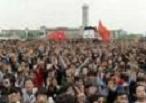


The Chinese Spring ends in the Tank Man? On Apr. 15, 1989 in China former party chief Hu Yaobang dies, and thousands of students in Shanghai and Beijing take to the streets to mourn him; on Apr. 18 they try to storm the Communist Party HQ in Beijing; by Apr. 21 tens of thousands crowd Tiananmen Square, waving banners demanding greater political freedoms, with "black hand" Liu Xiaobo (1955-) leading the fight for multiparty democracy, then persuading students to leave the square before the troops massacre them, for which he is awarded the 2010 Nobel Peace Prize; by Apr. 27 there are 150K protesters (15% of the pop. of Beijing), and 300K army troops are called in (first time since Communism took over?), but the rural troops are easily loved-up by the privileged (children of the elite) students, and disperse within four days sans bloodshed inside the square, although troops fire on protesters outside the center of Beijing en route to the square, and some tracer bullets are fired into the square - my, my, black-eyed pea? On Apr. 25 Mikhail Gorbachev secures the retirement of 74 Old Guard party members. On Apr. 29 China's govt. conducts informal talks with leaders of the democracy protests, and then televises the discussions - after heavy editing; they won't make that mistake again?
On May 3, 1989 the first labor law recognizing the right to strike is passed in the Soviet Union. On May 5 Janos Kadar is ousted as Hungarian Socialist Workers Party pres. after historian Maria Ormos gives a speech to the Hungarian Academy of Sciences denouncing him as a Soviet puppet. On May 13 4K students begin a hunger strike for democracy in Tiananmen Square; on May 15-16 Gorbachev visits Beijing for the first Sino-Soviet summit since the Sino-Soviet rift 30 years earier; on May 17 1M swarm into C Beijing to express support for the fasting Chinese students. On May 18 the Lithuanian Supreme Council passes a declaration of sovereignty, and on Dec. 19-20 the Lithuanian Communist Party splits from the Soviet Communist Party. On May 18 Estonia votes to give itself full control over its economy, and introduces the koru to replace the ruble. On May 20 Chinese Pro-Democracy Protests see Beijing officials order CBS and CNN to end their live on-scene reports; on May 21 thousands of native Chinese march in Hong Kong, Paris, Tokyo and scores of other cities in a worldwide show of support for the pro-democracy demonstrators in Beijing; on May 22 100+ top Chinese military leaders vow to refrain from entering Beijing to suppress pro-democracy demonstrations; on May 23 1M in Beijing and tens of thousands in other Chinese cities march to demand that hardliner PM Li Peng resign; on May 24 China's top army command pub. a letter strongly supporting him; on May 30 student demonstrators in Tiananmen Square erect a 33-ft. statue called the Goddess of Democracy, resembling the U.S. Statue of Liberty, complete with blazing torch - their fate's sealed now, give them a week at most? On May 22 Mikhail Gorbachev is elected to the new post of chmn. of the Supreme Soviet, officializing his de facto position held since Oct. 1988. On May 29 bowing to public demand, the Supreme Soviet allows Boris N. Yeltsin to take a seat in the standing legislature. On May 31 Boris N. Yeltsin of the Congress of People's Deputies criticizes Gorbachev for the failures of perestroika, and presents an alternative economic program based on reduced capital spending; he also warns of the possibility of Gorby creating a "new dictatorship". In May Hungary begins dismantling border fences with Austria built during the 1960s, setting off the collapse of the East German system.




As Russia's Communism thaws out, China's hardens? On June 3, 1989 (night) peaceful student protests in China for democracy are ended by govt. violence in the Tiananmen Square Massacre, as troops obey an order to disperse them by 6 a.m.; unknown numbers (2.6k?) are killed, and tens of thousands arrested, followed by endless show trials; on June 5 as the army has control of Beijing a lone man (worker not a student?) carrying shopping bags single-handedly confronts and stops a column of tanks while Western journalists secretly film him, dubbing him Tank Man (19-y.-o. Wang Wei Lin?); he is then whisked away by four civilians, who are probably state security personnel (might be pro-democracy people?), and is never identified or seen again, except for rumors of his execution; his example helps cause the Soviet regime to fall faster?; astrophysicist Fang Lizhi (1936-) is named China's most-wanted counterrev. criminal by the authorities, and seeks asylum in the U.S. Embassy in Beijing for a year before fleeing to the West; Chinese student Yu Dongyue (1967-) is arrested along with two friends for hurling eggs filled with red paint at the famous Big Painting of Mao (based on a 1950 portrait); he is released in 2006 after being tortured and going insane in prison; the Chinese govt. never permits political freedom, but it inexplicably opens the gates to capitalism, causing a boom leading to a 200M-member middle class within 15 years, incl. 110M Internet users, although China still has 750M poverty-stricken, nearly illiterate peasants to worry about, incl. 150M who live on $1 or less a day, and 300K held in reeducation-through-labor camps without trial, and a 99.7% conviction rate? On June 8 Chinese PM Li Peng appears on Chinese TV praising a group of Red Army soldiers for crushing pro-democracy protests. On June 8 Ferenc Glatz (1941-), Hungarian minister of culture and education announcesthat beginning in Sept. the Russian language will no longer be required in Hungarian schools and univs. - some people take shortcuts? On June 16 Hungarians pay homage to former PM Imre Nagy and four assocs. executed for leading the anti-Soviet revolt of 1956 on the 35th anniv. of his execution. On June 22 the govt. of Angola and the anti-Communist rebels of the UNITA movement agree to a formal truce in their 14-y.-o. civil war. On June 24 Chinese Communist Party general secy. Zhao Ziyang is ousted for allegedly supporting the democracy protests, and is replaced by Jiang Zemin, who on June 26 calls the protesters a "counterrevolutionary rebellion", vowing no mercy. On June 29 the U.S. House of Reps. votes unanimously in favor of new sanctions against China because of its crackdown on the pro-democracy movement.


On June 30, 1989 Gen. Wojciech Jaruzelski announces he will not run for Poland's new presidency, saying the people view him as the man who imposed martial law. In the summer after the Communist leadership orders a brutal assimilation, ethnic Turks in Bulgaria riot, causing 250K-350K to depart for Turkey, becoming the largest mass migration since the end of WWII, causing the regime to topple; on Nov. 10 Bulgarian Communist ruler (since 1954) Todor Zhivkov (b. 1911) is deposed after 35 years by a palace coup; the ouster is led by foreign minister Petar Toshev Mladenov (1936-2000), who becomes pres. #1 of the Bulgarian Repub. next Apr. 3 (until July 6, 1990).

On July 2, 1989 former Soviet foreign minister (1957-85) and chmn. of the Presidium (1985-88) Andrei Gromyko dies in Moscow at age 79. On July 4 Mikhail Gorbachev arrives in France for a 3-day visit that incl. an address to the Council of Europe in Strasbourg. On July 13 Cuba executes four military officers for conspiring to smuggle drugs to the U.S. incl. Cuban spymaster Col. Antonio de la Guardia of the Interior Ministry, and Army Gen. Arnaldo Ochoa; Gen. Patricio de la Guardia, Antonio's twin is sentenced to 30 years. On July 21 the State Dept. confirms an ABC News report that veteran U.S. diplomat Felix S. Bloch is being investigated as a possible Soviet spy; he is fired in 1990 without being charged. On July 29 Poland's newly elected pres. Wojciech Jaruzelski resigns as Communist Party first secy., and is succeeded by PM #10 (1988-9) Mieczyslaw Rakowski (1926-2008), who becomes first secy. #7 (until Jan. 29, 1990). On July 30 Boris N. Yeltsin forms the "Interregional Group" of 200 Soviet deputies as an unofficial opposition to Mikhail Gorbachev. In July 12K miners in the Donbass and Kuzbass coalfields in Russia strike for better working conditions, causing Mikhail Gorbachev to call it the most serious threat yet to perestroika. In July Mikhail Gorbachev declares that the friendly Soviet Union will no longer interfere in the internal affairs of Eastern Europe - say again?


On Aug. 5, 1989 five Central Am. presidents begin meeting in Honduras to discuss a timetable for dismantling Nicaraguan Contra bases. On Aug. 5 after Victor Paz Estenssoro (1907-2001) retires as Bolivia's #1 politician of the cent., pres. elections in Bolivia produce no clear victor, Gen. Hugo Banzer Suarez makes a deal called the "Patriotic Accord" to permit flip-flopping Marxist-Socialist Jaime Paz Zamora (1939-), co-founder of the Movement of the Rev. Left (MIR) and Unidad Democratica y Popular (UDP) to become pres. #73 of Bolivia (until Aug. 6, 1993); as a "neoliberal" now, he goes along with Estenssoro's privatization program as well as the U.S. war on drugs, but only so far, becoming known for "muddling through", probably getting money under the table, his main achivement being getting Bolivia into the 1993 World Cup of Soccer; too bad, his selling out to Banzer to become el presidente kills the MIR. On Aug. 11 Poland's Solidarity-dominated Senate adopts a resolution expressing sorrow for the nation's participation in the 1968 Soviet-led invasion of Czechoslovakia, and on Nov. 17-Dec. 29 the Velvet (Gentle) Rev. is on, starting with a student demonstration in Prague on Nov. 17 that swells to 500K by Nov. 20, and a 2-hour gen. strike on Nov. 27. On Aug. 16 the Soviet govt. pub. a draft law giving workers the right to strike. On Aug. 23 the Baltic Way Protest sees 2M people from Estonia, Lavia and Lithuania hold hands in a 600km human chain across three countries on the Vilnius-Tallinn Road to mark the 50th anniv. of the Soviet occupation of the Baltic states, becoming a highlight of the 1987-91 Singing Rev. in Estonia, where 300K Estonians (20% of the pop.) gather night after night in Tallinn to sing forbidden nat. songs as rock musicians play; the singing continues over four years until Estonian independence is achieved in 1991. On Aug. 24 Polish pres. Wojciech Jaruzelski formally nominates Solidarity leader Christian Dem. Tadeusz Mazowiecki (1927-) to become Poland's first non-Communist PM in four decades (until Jan. 12, 1991). On Sept. 8-10 the Rukh Nat. Movement for Perestroika, formed in the Ukraine by the Writer's Union holds a congress in Kiev and calls for the restoration of Ukrainian culture. On Sept. 10 Hungary gives permission for thousands of East German refugees and visitors to emigrate to West Germany via Austria, beginning Sept. 11. On Sept. 20 Gorbachev pulls off a major shakeup of the Soviet Communist Party, dropping three Politburo members - the beef and wild mushroom diet? On Sept. 23 the Azerbaijan Supreme Soviet adopts a new law defining the Azerbaijan Repub.'s sovereignty. On Sept. 25 Pres. Bush addresses the U.N. Gen. Assembly and offers to slash U.S. stocks of chemical weapons by more than 80% provided the Soviets do the same; on Sept. 26 Soviet foreign minister Eduard Shevardnadze accepts. On Sept. 27 the Slovenian assembly declares autonomy and the right to veto any federal decision. On Sept. 30 thousands of East Germans who had sought refuge in West German embassies in Czech. and Poland begin emigrating under an accord between Soviet bloc and NATO nations. In Sept. Hungary opens its borders to the West; the October Rev. celebration is snubbed; the country's name is changed to Repub. of Hungary, and a new pro-democracy constitution is adopted. In Sept. Vietnam recalls its troops from Cambodia, leaving behind the pro-Vietnamese People's Repub. of Kampuchea (PRK) (founded 1979) under ex-Khmer Rouge man (who was wounded in Apr. 1975 and ended up with a glass eye) Hun Sen (1951-), who has been PM since Jan. 14, 1985, and continues in power behind various puppet coalitions until ?

On Oct. 1, 1989 thousands of East Germans receive a triumphal welcome in West Germany after the Communist govt. agrees to let them leave. On Oct. 2 nearly 10K people march through Leipzig, East Germany demanding legalization of opposition groups and adoption of dem. reforms in the country's largest protest since 1953. On Oct. 2 the Supreme Soviet bans strikes in "key industries". On Oct. 3 in a move to stem the flow of refugees to the West, East Germany suspends unrestricted travel to Czech. On Oct. 6 Mikhail Gorbachev joins in festivities in East Berlin marking the 40th anniv. of East Germany. On Oct. 7 Hungary's Communist Party renounces Marxism in favor of dem. socialism during a party congress in Budapest. On Oct. 7 20K pro-reform demonstrators in Moscow form a human chain from Gorky St. to the NW suburb of Zelenograd. On Oct. 7-8 the 2nd Annual Congress of the Latvian Popular Front endorses complete Latvian independence and calls for a common market for the three Baltic repubs. On Oct. 9 the official Soviet news agency Tass reports that a spaceship of some kind, complete with a trio of tall aliens has visited a park in the city of Voronezh - and met Forrest Gumpsky? On Oct. 18 Erich Honecker is ousted as leader of East Germany after 18 years in power, and is succeeded by Egon Krenz (1937-) (until Dec. 6). On Oct. 25-27 Mikhail Gorbachev visits Finland - sorry about WWII, guys? On Oct. 29 20K East Berliners observe a minute of silence for the 190+ people killed while attempting to flee over the Berlin Wall, becoming the first such public mourning since Communist Party authorities built it in 1961. In Oct. the Hungarian Socialist Workers Party renames itself the Hungarian Socialist Party and renounces Leninism. On Nov. 1 East Germany reopens its border with Czech., prompting tens of thousands of refugees to flee to the West. On Nov. 3 East German Communist Party chief Egon Krenz delivers a speech promising sweeping economic and political reforms and calling on East Germans to stay; on Nov. 4 1M East Germans fill the streets in a pro-democracy rally; on Nov. 8 Krenz ousts the old guard of the Politburo and replaces them with reformers.

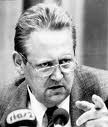


Communism's biggest eyesore falls? On Nov. 9, 1989 (Thur.) East German official Guenter (Günter) Schabowski (1929-) announces on TV "New travel rules allowing East Germans to head west are to take effect immediately", being misunderstood and causing massive crowds to gather at night at the Berlin Wall, which unexpectedly falls as East Germany throws open its borders while joyous Germans dance atop it; the first barrier opened i s on Bornholmer Strasse, guarded by East German Stasi Lt. col. Harald Jaeger (1943-); Leonard Bernstein conducts the Berlin Freedom Concerts to celebrate the reunification of Germany, and Mstislav "Slava" Rostropovich (1927-2007), who was exiled and uttered the soundbyte "I will not utter one single lie to return" fiddles; 1M cross to West Berlin the first day, and 9M the first week, turning Berlin into a 24/7 party town; East Germany is revealed as a polluted hellhole with an obsolete infrastructure; too bad, in Sept. 2009 it is revealed that in Sept. British PM Margaret Thatcher met with Soviet leader Mikhail Gorbachev in Moscow, and told him that Britain opposed the reunification of Germany, and that she wanted him to do what he could to prevent the reunion, telling him that the breakup of the Warsaw Pact was not in the interest of Britain and the West, and vowing that the West would not seek the dismantling of Communism in Eastern Europe - the U.S. reaches its peak of power and wealth from the fall of the Berlin Wall in 1989 until the fall of Lehman Brothers in 2008?

On Nov. 10, 1989 the Soviet Presidium declares that recent nationalist legislation adopted by Lithuania, Latvia, Estonia, and Azerbaijan is at variance with the Soviet constitution; on Nov. 17-19 the Georgian Supreme Soviet amends its constitution, claiming ownership of all natural resources and the right to suspend Soviet laws if they run contrary to Georgian interests. On Nov. 15 Solidarity leader Lech Walesa is cheered by U.S. lawmakers as he tells a joint meeting of Congress that U.S. aid to Poland "will not be wasted, and will never be forgotten". On Nov. 15 Hungary applies for full membership in the Council of Europe. The Velvet Revolution meets Steel? On Nov. 17-20 more than 200K people rally peacefully in Prague, spouting speeches and poetry demanding dem. reforms and the ouster of Communist Party leader Milos Jakes, but are brutally suppressed. On Nov. 24 Czech.'s hard-line party leadership resigns after more than a week of protests against its policies; on Nov. 25 500K demonstrators gather in Prague, where they scoff at a Communist Party shakeup and cheer Alexander Dubcek, the reformer ousted in 1968; on Nov. 29 the Czechs end the Communist party's 40-year monopoly on power, making a success of the smooth Velveeta Rev. On Nov. 26 in a nat. referendum voters decide that Hungary's next pres. will be chosen by parliament following free elections. On Nov. 28 perfect-10 Romanian gymnast Nadia Comaneci (1961-) arrives in New York City after escaping her homeland by way of Hungary; too bad, her heavy makeup, trashy clothes, and married beau Constantin Panait get her negative press. On Nov. 29 Azerbaijan takes control of the Armenian enclave of Nagorno-Karabakh. On Nov. 30 several mo. after advocating the cancellation of Third World debts and reorg. of the world financial system, Alfred Herrhausen (1930-89), chmn. of West Germany's largest bank is killed in his armored car convoy by a sophisticated roadside bomb in Bad Homburg, which is later claimed by the Red Army Faction, although nobody is ever caught, leaving conspiracy theorists a welcome mat.
On Dec. 1, 1989 Soviet leader (since 1985) Mikhail Sergeyevich Gorbachev (1931-2022) meets with Pope John Paul II in the Vatican, becoming the first meeting with the head of an atheist superpower by a pope - which is worse, your Catlick spunk or my Commie spit? On Dec. 2-3 U.S. Pres. George H.W. Bush and Soviet Pres. Mikhail Gorbachev meet aboard the Soviet cruise ship Maxim Gorky in Malta, and announce the end of the Cold War - Malta, the Knights Templar, the Illuminati, what? On Dec. 5 Egon Krenz, the ruling Politburo and the Central Committee in East Germany are placed under house arrest, and resign on Dec. 6; on Dec. 7 East Germany's Communist Party agrees to cooperate with the opposition in paving the way for free elections and a revised constitution. On Dec. 8 Communist leaders in Czech. offer to surrender their control over the govt. and accept a minority role in a coalition cabinet; on Dec. 10 pres. (since May 29, 1975) Gustav Husak resigns after swearing in a coalition cabinet in which Communists are relegated to a minority role. On Dec. 14 #1 human rights dissident Andrei Sakharov (b. 1921) is elected to the Congress of Peoples' Deputies in Moscow, but dies of a heart attack that night; on Dec. 17 100K Soviet citizens turn out to honor him a day before he is buried in Moscow.



On Dec. 15, 1989 a popular uprising against Romanian dictator (since 1965) Nicolae Ceausescu (1918-89), "the Leader", "the Genius of the Carpathians" begins as demonstrators gather in Timisoara to prevent the eviction from his church flat of dissident Calvinist bishop Laszlo Tokes (1952-); on Dec. 21 Ceausescu delivers his final public speech, which is booed; he flees from power in a heli, is captured by the army, and executed along with his wife Elena on Dec. 25 by firing squad after an open letter accuses them of crimes; on Dec. 22 Ion Iliescu (1930-) becomes pres. #2 of Romania (until Nov. 29, 1996); during Ceau-boy's iron-fisted rule, he encouraged women to have at least five children; after his death, Romania has the highest abortion rate in the world (98 out of 100 live births). On Dec. 28 Alexander Dubcek (former Czech Communist leader deposed in 1968 in the Soviet-led Warsaw Pact invasion) is named chmn. of the Czech parliament; Velvet Rev. leader (leader of the Civic Forum), writer-dramatist Vaclav Havel (1936-2011) (recently released from prison) is elected pres. on Dec. 29 (until 2003); he is sworn in next Jan. In 1989 the Warsaw Stock Exchange in Poland opens, becoming the first since 1939; Poland's name is changed from Polish People's Repub. to Polish Repub.. In 1989 the Warsaw Pact countries reject the Brezhnev Doctrine (mutual defense) i n favor of the Sinatra ("My Way") Doctrine (each one to go his own way).
On Jan. 2, 1990 Yugoslavia introduces new economic measures to combat inflation, then on Jan. 23 the Yugoslavian Commnist League (YCL) votes to relinquish the party's political monopoly, while the Slovenian delegation demands greater autonomy for all the repubs., and on Feb. 4 the Slovenian Communist League declares itself independent from the YCL. On Jan. 5 Hungary's parliament adopts a resolution calling for withdrawal of Soviet troops by the end of 1991; on Mar. 10 the Soviet Union agrees, and finishes the withdrawal by June 19, 1991. On Jan. 8 military tribunals in Romania began trials of the country's dreaded security forces who are accused of resisting the rev. that toppled Nicolae Ceausescu. On Jan. 10 Chinese PM Li Peng lifts Beijing's 7-mo.-old martial law and says that by crushing pro-democracy protests the army has saved China from "the abyss of misery". On Jan. 11 Soviet Pres. Mikhail S. Gorbachev visits Lithuania, where he assures supporters of independence that they will have a say in their republic's future- yes, or yes? On Jan. 16 the Soviet Union sends 11K reinforcements to the Caucasus to halt a civil war between Armenians and Azerbaijanis. On Jan. 20 Azerbaijani attacks on Armenians trigger the Soviets, led by Russian Lt. Gen. Alexander Ivanovich Lebed (1950-2002) to attack the nationalist Azeri Popular Front in Baku, leaving dozens dead and wounded; on Jan. 21 Pres. Aliyev makes his first public appearance since his 1987 resignation from the Soviet Politburo and urges internat. condemnation of the Soviet attack; on Jan. 21 in the Soviet Repub. of Azerbaijan mutinous military cadets fire on troops patrolling the capital during a crackdown on a nationalist uprising; on Jan 22 up to 2M Azerbaijanis march through Baku to mourn those killed. On Jan. 23 the Hungarian Dem. Forum calls for an investigation of the Hungarian secret service. On Jan. 24 the U.S. House votes 390-25 to override Pres. Bush's veto of legislation protecting Chinese students from deportation; Bush prevails in a Senate vote on Jan. 25. On Jan. 27 in Romania four top associates of executed dictator Nicolae Ceaucescu go on trial for abetting genocide. On Jan. 31 McDonald's Corp. opens its first fast food restaurant in Moscow - Communism's days are numbered? In Jan. in Albania demonstrations at Shkodra force authorities to declare a state of emergency.



On Feb. 1, 1990 East German Communist PM Hans Modrow (1928-) appeals for negotiations with West Germany to forge a "united fatherland". On Feb. 3 the parliament of Bulgaria elects Jewish economist Andrei Karlov Lukanov (1938-96) to replace a hardline Communist, becoming Bulgaria's last Communist PM (until Dec. 7), going on to face corruption, civil unrest incl. protests and strikes, and a huge consumer goods deficit. On Feb. 4 cheering protesters throng Moscow streets to demand that the Communists surrender their stranglehold on power. On Feb. 5 Soviet leader Mikhail S. Gorbachev tells the Communist Party it has to earn the right to rule instead of taking it for granted as an unchallenged right; on Feb. 6 Soviet Communist Party leaders decide to extend a 2-day party session for another day amid controversy over Gorbachev's proposals to revamp the country's political structure, and on Feb. 7 the Communist Party agrees to let other political parties compete for control of the country, giving up its monopoly on power - those McDonald's hamburgers and fries are starting to work? On Feb. 12 Pres. Bush rejects Soviet Pres. Gorbachev's new initiative for troop reductions in Europe, but predicts a "major success" on arms control at the upcoming superpower summit in June. On Feb. 13 at a conference in Ottawa, the U.S. and its European allies forge an agreement with the Soviet Union and East Germany on a 2-stage formula to reunite Germany. On Feb. 20 Pres. Bush welcomes new Czech. Pres. Vaclav Havel to the White House, promising trade rewards for Prague's moves toward democracy; on Feb. 21, addressing the U.S. Congress, Havel says his nation welcomes U.S. help after decades of Soviet domination, but also says Europe should eventually "decide for itself" how long U.S. and Soviet troops should remain. On Feb. 25 Nicaraguans give an upset V to opponents of the ruling Sandinistas as pro-U.S. Violeta Barrios Torres de Chamorro (1929-) (widow Pedro Joaquin Chamorro, who was assassinated by Somoza's men in 1978) is elected pres., ousting Communist pres. Daniel Ortega; the Sandinistas are ordered to disarm on Feb. 26; on Mar. 12 U.S. vice-pre. Dan Quayle meets in Santiago, Chile with Ortega, who promises to peacefully relinquish power to her; on Mar. 13 Pres. Bush lifts trade sanctions against Nicaragua in a show of support, and on Apr. 25 she is sworn in as pres. of Nicaragua (until Jan. 10, 1997), ending 11 years of leftist Sandinista rule and promising to abolish the draft and seek U.S. economic aid; she becomes the first elected govt. head in Latin Am. and 2nd woman pres. in North Am. On Feb. 26 the Soviet Union agrees to withdraw all of its 73.5K troops from Czech. by July 1991.


On Mar. 1, 1990 East Germany takes the first step towards privatizing state industries while trying to prevent a wholesale buyout by West Germans. On Mar. 4 voters in the Soviet repubs. of Russia, Byelorussia, and the Ukraine participate in local and legislative elections, resulting in notable gains for reformists and nationalists. On Mar. 5 to the cheers of onlookers, workers in Bucharest, Romania finally succeed in removing a 25-ft.-tall, 7-ton bronze Statue of Vladimir Lenin from its foundation. On Mar. 6 the Soviet parliament overwhelmingly approves legislation allowing people to own factories and hire workers for the first time in nearly seven decades. On Mar. 8 a pro-independence coalition wins, making dirt-poor Slovenia a repub., and on Dec. 23 a referendum approves it. On Mar. 11 the 124-delegate parliament of Lithuania unanimously votes to break away from the Soviet Union and restore its independence, becoming the first Soviet repub. to do so; Vytautas Landsbergis (1932-), head of the Sajudis reform movement is elected pres. (until Nov. 25, 1992). On Mar. 13 the Soviet Congress of People's Deputies approves Gorbachev's proposals for a multiparty political system headed by a more powerful pres., and on Mar. 14 elects Gorbachev to that very post. On Mar. 14 the U.S., the Soviet Union, Britain, France, and West and East Germany hold their first formal meeting on reunifying the German states. On Mar. 15 Jiang Zemin of China visits North Korea to meet with Kim Il-sung. Gorby is no Ivan the Terrible? On Mar. 17 Lithuanian pres. Vytautas Landsbergis rejects a deadline set by Moscow for renouncing his republic's independence; on Mar. 19 the Kremlin warns Lithuania against taking over factories, putting up border posts; on Mar. 21 Gorbachev increases pressure on the breakaway repub., ordering its citizens to turn in their guns; on Mar. 24 Soviet military vehicles rumble through the heart of the capital of Vilnius as lawmakers vote to transfer their power to foreign soil if they are attacked or arrested; on Mar. 27 Soviet soldiers begin rounding up Lithuanians who had fled the Red Army after the republic's declaration of independence; on Mar. 31 Gorbachev warns Lithuania to annul its declaration of independence or face "grave consequences"; on Apr. 1 yet more military vehicles rumble through Vilnius. On Mar. 18 Christian Dems. win a landslide V in the first dem. election held in postwar East Germany. On Mar. 19 Latvia's political opposition claims a V in the first free elections in 50 years, and reformers also claim Vs in crucial runoffs held in Russia, Byelorussia and Ukraine. On Mar. 27 the U.S. begins test broadcasts of TV Marti to Cuba, which promptly jams the signal; on Aug. 26 Pres. Bush signs a determination that the broadcasts are feasible and won't interfere with domestic TV. In Mar.-Apr. Hungary forms a non-Communist govt., and the center-right Hungarian Dem. Forum wins 60% of parliamentary seats, then on May 23 forms a 3-party coalition govt. with Dr. Jozsef Antall (1932-93) as PM (until Dec. 12, 1993), who begins privatization and attracting foreign investment.

On Apr. 4, 1990 U.S. secy. of state James A. Baker meets in Washington, D.C. with counterpart Eduard Shevardnadze for three days of talks on the Lithuanian crisis and arms control; on Apr. 14 Lithuanian officials, facing a Kremlin deadline to back away from their declaration of independence acknowledge that an economic blockade could result in huge layoffs; on Apr. 17 Pres. Bush warns the Soviet Union of "appropriate responses" should they carry out their blockade; on Apr. 18 the Soviets shut off a pipeline that supplies Lithuania with crude oil, and on Apr. 19 severely reduce the flow of natural gas. On Apr. 5 Sabine Bergmann-Pohl (1946-) becomes the last head of state of East Germany (until Oct. 2), and the first woman. On Apr. 5 it is announced that Pres. Bush and Pres. Gorbachev will hold their first full-scale summit in the U.S. On Apr. 12 in its first meeting East Germany's first democratically elected parliament acknowledges responsibility for the Nazi Holocaust, and asks the forgiveness of Jews and others who had suffered, becoming the first of a new wave of remorseful public apologies for past wrongs issued by the world's leaders - a sign of Millennium Fever? On Apr. 13 Pres. Gorbachev admits the responsibility of Stalin's secret police in the 1940 Katyn Forest Massacre. On Apr. 19 Nicaragua's 9-y.-o. civil war appears near an end as Contra guerrillas, leftist Sandinistas and the incoming govt. agree to a truce and a deadline for the rebels to disarm. On Apr. 21 Pope John Paul II is greeted by hundreds of thousands of people as he visits Czech. to help celebrate the nation's peaceful overthrow of Communist rule. On Apr. 24 West and East Germany agree to merge currency and economies on July 1. On Apr. 25 France and Germany hold a Summit on German Reunification. On Apr. 29 wrecking cranes begin tearing down the Berlin Wall at the Brandenburg Gate. On May 1 Soviet Pres. Mikhail S. Gorbachev and other Kremlin leaders are jeered by thousands of people during the annual May Day parade in Red Square. On May 4 Latvia's parliament votes 138-0 (1 abstention) for independence. On May 10 the govt. of China announces the release of 211 dissidents who had been involved in pro-democracy demonstrations a year earlier. On May 10 ever-popular Prince Charles and Princess Diana end their first visit to a Warsaw Pact country by viewing Budapest, Hungary from a boat on the Danube River and riding on a streetcar through the city center. On May 12 the presidents of Estonia, Latvia, and Lithuania forge a united front by reviving a 1934 political alliance in hopes of enhancing their drive for independence from the Soviet Union; on May 14 in separate decrees Pres. Gorbachev declares that the republics of Estonia and Latvia have no legal basis for moving toward independence; on May 17 Gorbachev meets in Moscow with Lithuanian PM Kazimiera Prunskiene, becoming his first face-to-face meeting with a senior official. On May 18 East and West Germany sign a monetary union treaty. On May 19 U.S. secy. of state James A. Baker concludes an agreement with the Soviet Union to destroy chemical weapons and settle longstanding disputes over limits on nuclear-tipped cruise missiles. On May 20 Romania's ruling Nat. Salvation Front scores Vs in the country's first free elections in more than 50 years. On May 23 the Soviet Union unveils an economic reform program that incl. plans for a nat. referendum. On May 29 Soviet maverick politician (longtime Communist Party hack) Boris Nikolayevich Yeltsin (1931-2007) is elected pres. of the Russian Federation in the 3rd round of balloting; Russia declares sovereignty, becoming one of 15 repubs. in the dissolving Soviet Union; in July Yeltsin quits the Communist Party; a vodka lush, he suffers five heart attacks in his 1st term. On May 29 Pres. Gorbachev visits Canada en route to his May 31 Washington summit with Pres. Bush, in which they sign (June 1) more than a dozen treaties cutting nuclear arms and chemical weapons. In May as Soviet tanks roll, the Estonian Soviet parliament and the Congress of Estonia proclaim the restoration of the independent state of Estonia as huge crowds stand as human shields to protect TV and radio stations; the Singing Rev. (begun 1988) achieves independence without bloodshed, accelerating the disintegration of the Soviet Union.


On June 3, 1990 Mikhail Gorbachev ends the summit then flies to Minn. for a whirlwind tour of Minneapolis-St. Paul, then on June 4 flies to N Calif. to hold a reunion with former Pres. Reagan. On June 5 Mikhail Gorbachev meets with South Korean pres. Roh Dae Woo in Earthquake City San Francisco, Calif. causing diplomatic relations to be opened effective Oct. 1. On June 12 in a speech to the Supreme Soviet, Pres. Gorbachev eases his objections to a reunified Germany holding membership in NATO. On June 12 Boris N. Yeltsin leads a vote at the Congress of Peoples Deputies on a "declaration of sovereignty for Russia". On June 20 the Communist Initiative creates the neoconservative Russian Communist Party. On June 20 the Uzbek Supreme Soviet declares the sovereignty of Uzbekistan within a "renewed Soviet federation"; on Nov. 1 the council of ministers is replaced with a cabinet led by mean Khrushchev lookalike pres. Islam Abdug'aniyevich Karimov (1938-), who rules with an iron hand (until ?). On June 23 Moldova declares its sovereignty, and in Aug. the Soviets attempt a coup, causing the Moldovan Communist Party to be banned (until 1993). In June in Bulgaria the former Communist Party, renamed the Socialist Party wins the parliamentary elections. In June Hungary's parliament votes for total withdrawal from the Warsaw Pact by the end of 1991. In June in Romania miners transported into Bucharest in govt. vehicles destroy hundreds of Interior Ministry files. Don't get sick in Turkmenistan? In June former electrical engineer Saparmurad A. Niyazov (1940-2006), chmn. (since 1985) of the Supreme Soviet of the 90% Karakum ("Black Sand") Desert Soviet Repub. of Turkmenistan N of Afghanistan and Iran declares independence from the Soviet Union, followed by sovereignty on Aug. 27, wins the pres. election unopposed on Oct. 27, and sets up a personality cult where criticism of his policies is treated as treason, later closing down all nat. parks and rural libraries, firing 15K health care workers and replacing them with untrained military conscripts, closing down all hospitals outside the capital and ordering physicians to give up the Hippocratic Oath and swear allegiance to him instead. On July 1 East Germans line up to obtain West German deutsche marks as a state treaty unifying their monetary and economic systems goes into effect. On July 2 the Soviet Union's 28th Communist Party Congress opens with an address by Pres. Gorbachev, who concedes mistakes while defending perestroika; on July 3 in Moscow, Kremlin hardliner Yegor Kuzmich Ligachev (1920-) receives an enthusiastic reception at the Communist Party Congress as he criticizes reforms by Gorbachev, saying that perestroika had been marred by "limitless radicalism". On July 5 NATO leaders open a 2-day meeting in London to revise the alliance's strategy in light of easing East-West tensions in Europe and the unraveling of the Warsaw Pact. On July 7 Pres. Bush welcomes fellow leaders of the Group of Seven countries in sweating hot Houston, Tex. for their 16th annual economic summit, calling on Soviet leader Mikhail Gorbachev to accept Western aid. On July 10 Mikhail Gorbachev handily wins reelection as leader of the Soviet Communist Party, then on July 12 shocks them by announcing his resignation from the party. On July 14-16 West German Chancellor Helmut Kohl holds talks in Moscow with Soviet Pres. Gorbachev aimed at soothing Kremlin concerns about German unification; Moscow drops its objection to a united Germany's membership in NATO. On July 15 tens of thousands of people march in Moscow to protest the Communist Party's control of the govt., the army and the KGB. On July 17 the seven nations negotiating German unification reach agreement in Paris on Poland's permanent border, clearing the way for the merger of East and West Germany. On July 17 the ruling Serbian Communist Party renames itself the Serbian Socialist Party. On July 22 voters in Mongolia begin casting ballots in their Communist-ruled nation's first multiparty election. On July 22 Hungary's govt. agrees to reprivatize farmlands.

On Aug. 3, 1990 the Hungarian nat. assembly elects Arpad Goncz (Göncz) (1922-) of the Alliance of Free Dems. as pres. (until 2000); on Oct. 14 the opposition wins municipal elections. On Aug. 17 the Log Rev. in Croatia sees ethnic Serbs block roads between Croatia and Dalmatia with logs, leading to the Croatian War of Independence next year. On Aug. 18 the Serbian minority in Croatia votes for political autonomy in an official referendum, which the govt. declares illegal. On Aug. 20 East and West Germany sign the East-West Election Treaty, providing for nat. elections of a unified Germany in Dec.; on Aug. 31 they sign the Unification Treaty to join legal and political systems. If I can make it here, I can make it anywhere, Tirana, Tirana, Tirana? In Aug. Albania abandons its monopoly on foreign commerce and begins to open to foreign trade, ending four decades of isolation under dictator Enver Hoxha (d. 1985). In Aug. South Ossetia, a region of NC Georgia with a pop. of 100K and ties to Persia declares itself sovereign.

On Sept. 1, 1990 Pres. Bush announces that he and Pres. Gorbachev will meet in Helsinki, Finland for a "free-flowing" 1-day summit on the Persian Gulf crisis and other issues. On Sept. 5-7 the PMs of North and South Korea meet for two days, becoming the highest level contact since the Korean War. On Sept. 6 the New Dems., led by Marion Boyd (1946-) defeat the Liberals in Ontario, Canada to become the province's first Socialist majority govt., and the first E of Manitoba led by the New Dem. Party. On Sept. 9 Pres. Bush and Pres. Mikhail Gorbachev hold a 1-day summit in Helsinki, condemning Iraq's invasion of Kuwait. On Sept. 11 the four victorious allies of World War II and the two Germanies formally end World War II, signing a treaty that clear the way for a united Germany on Oct. 3 - 9/11 minus 11? On Sept. 21 during a meeting of the Supreme Soviet, Gorbachev scolds legislators for dragging their feet on an economic rescue plan, and asks for sweeping new emergency powers to stabilize the economy. On Sept. 24 the Supreme Soviet votes to give preliminary approval to a plan for switching the Soviet Union to a free-market economy. On Sept. 26 the Supreme Soviet ends decades of religious repression with a declaration forbidding govt. interference in religious activities.

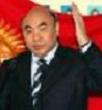
On Oct. 1, 1990 Croatian Serbs declare their areas autonomous regions, causing violence between police and citizens which leads the Serbian govt. to call on the Yugoslavian federal authorites to intervene to stop "Croatian repression"; on Oct. 3 the pres. of Slovenia meets with the pres. of Croatia in Zagreb to work together to gain full autonomy. On Oct. 3 East and West Germany reunify after 45 years, and the burly Berlin Wall officially comes down. On Oct. 4 for the first time in nearly six decades, German lawmakers meet in the Reichstag for the first meeting of reunified Germany's parliament. On Oct. 11 60K rally in Prague, Czech. in support of a govt. proposal to seize all Communist Party property without compensation. On Oct. 16 Mikhail Gorbachev submits to the Soviet legislature a scaled-back plan to transform the Soviet economy to a free-market system; the Supreme Soviet approves it on Oct. 19 - say again? On Oct. 23 the Hungarian parliament declares Oct. 23 as a nat. holiday in honor of the 1956 rev. Borat-land comes online? On Oct. 25 the oil-rich make-benefit glorious nation of Repub. of Kazakhstan (pop. 15M), Genghis Khan's country proclaims itself, becoming the 9th largest country by area (twice the size of Texas), and one of three new repubs. (along with Belarus and Ukraine) with its own nukes; Nursultan Abishuly Nazarbayev (1940-), an authoritarian who has ruled the country since 1989 becomes pres. #1 (until ?). On Oct. 28 Dem. philosopher-writer (pres. of the Academy of Sciences) Askar Akayev (1944-) becomes pres. (until 2005) of the new 75% Muslim, 35% Orthodox landlocked mountainous Kyrgyzstan (Kirghizstan) Repub. (the 7th "stan" country?), which declares itself sovereign on Oct. 30, and names itself on Dec. 13; by the end of the cent. his influential wife and family egg him into enriching themselves and ruling with an iron hand; meanwhile the poverty-stricken Uzbek pop. in the S grumbles against the richer Kyrgyz pop. in the N? On Oct. 30 Slovenia imposes custom duties on Serbian goods, killing the unified Yugoslavian internal market.
On Nov. 9, 1990 (first anniv. of the Fall of the Wall) Mikhail Gorbachev of the Soviet Union signs a historic nonaggression treaty with Germany, winning praise from German leaders in Bonn for his role in the peaceful fall of the Berlin Wall, with crowds holding placards reading "Thank you, Gorby"; on Nov. 10 chancellor Helmut Kohl promises German financial assistance for the collapsing Soviet Union, but gives no specifics, then foreign minister Hans-Dietrich Genscher adds that aiding Moscow is not solely a German responsibility. On Nov. 16 Mikhail Gorbachev tells an angry Soviet legislature that he will fire govt. and military officials if they block his reform plans. On Nov. 17 Pres. Bush, on the first visit to Czech. by a U.S. pres. tells a cheering crowd of 100K in Prague that "America will stand with you" through hard times ahead. On Nov. 18 Mikhail Gorbachev meets with Pope John Paul II in the Vatican, and the pope says that all possible efforts should be made to avoid war in the Persian Gulf. On Nov. 19 leaders of 16 NATO members and the remaining six Warsaw Pact nations sign treaties in Paris making sweeping cuts in conventional arms throughout Europe and pledging mutual non-aggression. On Nov. 20 the Soviet Union again vetoes Pres. Bush's efforts to rally support for a U.N. Security Council resolution authorizing military force against Iraq. On Nov. 25 Poland holds its first popular pres. election, and Solidarity founder Lech Walesa receives a plurality of votes, winning a runoff against PM Tadeusz Mazowiecki on Dec. 9 by a landslide; he is sworn in on Dec. 22 (until 1995). On Nov. 26 Hungary holds a nat. referendum in which voters decide that the country's next pres. will be chosen by parliament, following free elections. In Nov. in atheistic Albania private religious practice is finally permitted - as long as you keep the curtains drawn? In Nov. in Macedonia a party that advocates a confederation of independent states of Yugoslavia wins power, and forms a non-Communist govt. in Dec.



On Dec. 2, 1990 Western German chancellor (since Oct. 1, 1982) Helmut Josef Michael Kohl (1930-), leader of the center-right Christian Dem. Union (CDU) is elected chancellor of a united Germany (until Oct. 27, 1998) in the first free all-German election since 1932; censorship ends. On Dec. 8 Tirana U. students demonstrate in the streets, calling for the dictatorship in Albania to end; on Dec. 12 Ramiz Alia meets with the students and agrees to a multiparty system; the Albanian Dem. Party, the first opposition party is established. On Dec. 10 a stand-in for Mikhail Gorbachev accepts the 1990 Nobel Peace Prize - I'm the least unfunny person I know? On Dec. 11 Hungary signs a trade agreement with the Soviet Union. On Dec. 12 Pres. Bush announces that he and Soviet Pres. Gorbachev will hold a summit next Feb. in Moscow. Christmas is in the air as Gorby skates and the Soviet Union cracks like thin ice under his feet? On Dec. 17 Sov. Pres. Gorbachev asks the 2.25K-member Fourth Congress of People's Deputies to strengthen his pres. powers and streamline the executive branch, saying that perestroika is in deep doodoo and that 12-18 mo. of this new arrangement are necessary to save the country; he proposes the replacement of the 89-member Council of Ministers (headed by PM Nikolai Rhyzhkov) with a 17-member Federation Council headed by himself, and consisting of a new vice-pres. and the presidents of the 15 Soviet repubs.; the emasculated COM would no longer make policy decisions; meanshile, separatism marches on, and the Lithuanian and Armenian delegates boycott the congress, while those from Estonia and Latvia ixnay a proposed new union treaty; early in the congress, deputy Sazhi Umulatova tells them that she is ashamed the nation accepts foreign food aid, and calls for Gorby's resignation, saying he "does not have the moral right to hold his post", that he "brought devastation, hunger, cold, blood, tears" and that "innocent people are perishing". On Dec. 20 in Yugoslavia Alija Izetbegovic (1925-2004) (a Bosnian Muslim or Bosniak whose dream is a Muslim-run Bosnia-Herzegovina) becomes pres. #1 of a 7-member rotating presidency consisting of two Bosnians, two Croats, two Serbs, and one Yugoslavian; too bad, ethnic fighting between Croats and Serbs in Croatia rocks the ship of state. On Dec. 20 Soviet foreign minister Eduard Shevardnadze shocks Soviet lawmakers by announcing his resignation, warning that "dictatorship is coming". On Dec. 21 the Croatian assembly proclaims a new 1990 Croatian Constitution proclaiming sovereignty and the right to secede from Yugoslavia, which is boycotted by ethnic Serbian deputies. On Dec. 23 Slovenians vote overwhelmingly for secession from Yugoslavia. On Dec. 25 Soviet Pres. Gorbachev wins sweeping new powers from the Congress of People's Deputies, and now has to be their Santa Claus or he's out - the original Bad Santa? On Dec. 25 Romania's former monarch King Michael arrives on his first visit to his homeland since Communist rulers forced him to abdicate four decades earlier; he is deported by the new Bucharest govt. less than 12 hours later. On Dec. 26 Soviet Pres. Gorbachev nominates Gennady I. Yanayev to be the Soviet Union's first vice-pres. In Dec. in Serbia Slobodan Milosevic (1941-2006) is elected pres. (until 1997), and his Socialist (formerly Communist) Party captures 194 of 250 parliamentary seats - sounds like something to do with snot and mucous?
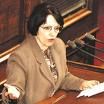
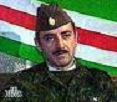




By 1991 50% of the food eaten in the Soviet Union is being grown outside the official Communist system. On Jan. 9 teachers' unions in Greece order a strike after a teacher is murdered by right-wingers, causing riots in Athens, hospitalizing over 100; on Feb. 27 moderate Aleka (Alexandra) Papariga (1945-) is elected gen. secy. of the Greek Communist Party, becoming the first woman to hold the post - not literally? On Jan. 11 the breakaway 94% Sunni Muslim Chechen Repub. (Chechnya) AKA Ichkeria ("land of minerals") (pop. 1.2M) is proclaimed; the Sunni-Sufi Repub. of Ingushetia (pop. 500K) also splits off from the former Chechen-Ingush ASSR, and declares independence next June 4; on Nov. 1 Soviet Air Force Gen. Dzhokhar Musayevich Dudayev (1944-96) is elected pres. #1 of Chechnya (until Apr. 21, 1996); Boris Yeltsin, who is responsible for breaking up the Soviet Union suddenly flip-flops and refuses to recognize it, then sends troops, but recalls them when faced with armed resistance led by former actor Akhmed Khalidovich Zakayev (1959-). On Jan. 13 Soviet troops storm Lithuania's radio-TV center, killing 14. On Jan. 16 the Vatican appoints 10 bishops for the Ukraine, rebooting the country's Roman Catholic hierarchy after years of atheist Communist suppression; on Mar. 30 Myroslav Cardinal Lubachivsky returns to his Ukrainian diocese of Lvov after 45 years in exile; on Apr. 13 Tadeusz Kondrusiewicz (1949-) is appointed archbishop of Moscow, becoming the highest Roman Catholic public official in the Soviet Union since the 1917 Oct. Rev. On Jan. 20 in Latvia "black beret" commandos of the Soviet Interior Ministry attack the Interior Ministry HQ, killing five; Communist leader Alfreds Rubiks supports a Soviet crackdown against the independence movement, but is arrested on Aug. 23 and charged with "treason to the USSR", and sentenced to 8 years on July 27, 1995. On Jan. 22 Soviet pres. Mikhail Gorbachev decrees that all existing 50 and 100 ruble banknotes are no longer legal tender, and that they can be exchanged for new notes for three days only and only in small quantities; on Jan. 26 he gives police the authority to search any place of business and demand its records at will; the economy goes into a tailspin. In Jan. in Somalia long-time Red China-friendly Marxist dictator-pres. (since 1969) Mohamed Siad Barre (1919-95) is forced to flee to Nigeria when rebels capture the capital of Mogadishu, which becomes the stage for fighting by rival militias (until ?) after former partners (pres. #5 from June 15, 1995-Aug. 1, 1996) Gen. Mohammad Farrah Aidid (Aideed) (1934-96) and pres. #4 (Jan. 1991-June 1995) Gen. Ali Mahdi Mohammad (1938-) split and start a clan-based civil war, which leads to the starvation of 100K+ by next year as the country is left in the hands of guerrilla groups and warlords who hijack aid shipments and fight with each other, while pirates flourish on the lawless Horn of Africa, threatening shipping.

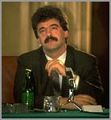



On Feb. 15, 1991 Milo Dukanovic (1962-) is appointed PM #1 of the first democratically elected govt. of Montenegro (until Feb. 5, 1998), with the blessings of Slobodan Milosevic of Serbia, becoming the youngest PM in Europe; meanwhile his Montenegran League of Communists, which scored a V in 1990 parliamentary elections changes its name to the Dem. Party of Socialists (DPS), and Dukanovic shares power with fellow party members Momir Bulatovic (1956-) (pres. #1 from Dec. 23, 1990 to Jan. 15, 1998) and Svetozar Marovic (1955-) - well I'll be a Sonofavic? On Feb. 20 Slovenia votes for secession from Yugoslavia. On Feb. 29 the multiethnic (44% Muslim, 31% Orthodox Catholic Serb, 17% Roman Catholic Croat) Socialist Repub. of Bosnia and Herzegovina passes a referendum for independence from the Federal Repub. of Yugoslavia; on Apr. 6-7 the European Community and U.S. recognize the breakaway Repub. of Bosnia, pissing-off Bosnian Serbs, who on Aug. 12 declare the Republika Srpska, and begin the Bosnian War (ends Dec. 14, 1995) to ethnically cleanse their new nation of Muslims, led by "the Butcher of Bosnia" Gen. Zeljko "Arkan" Raznatovic (1952-2000) and his 10K-man Tigers in the Vukovar region of Croatia; Gen. Radovan Karadzic (1945-) orders numerous Muslim massacres across Bosnia that kill 7.5K.


On Mar. 3, 1991 Latvia and Estonia vote to become independent of the Soviet Union. On Mar. 9 an anti-Communist demonstration in Belgrade is suppressed by Serbian pres. Slobodan Milosevic, who vies to topple the collective state presidency of Yugoslavia, pressuring the presidents of Montenegro and Vojvodina to resign, and causing the six presidents of Bosnia-Herzegovina, Croatia, Macedonia, Montenegro, Serbia, Slovenia to meet on Mar. 28 to discuss the crisis. On Mar. 10 hundreds of thousands of demonstrators in Moscow demand the resignation of Pres. Gorbachev. On Mar. 17-18 a referendum in the Soviet Union favors preserving the union, at the same time favoring electing Boris N. Yeltsin to the presidency. On Mar. 25 in the Soviet Union Gorbachev's cabinet enacts a 3-week ban on street demonstrations in Moscow, putting police under the control of the Interior Ministry and taking away the authority of the elected Moscow City Council after it approves a rally on Mar. 28 in Manezh Square near the Kremlin. On Mar. 25 world chess champ Gary Kasparov tells reporters in Los Angeles to "Leave us alone", saying "Within a year, there will be no Gorbachev, there will be no Communists. There will be something else. It will happen." On Mar. 27 police seal off Red Square and haul away supporters of Boris N. Yeltsin; "Don't shoot, brothers, we are of the same blood" reads the front page of the radical newspaper Kuranty. On Mar. 28 tens of thousands defy the govt. ban on rallies to march in support of Boris N. Yeltsin in Moscow, but back away from a major clash with 50K Kremlin forces blocking their path, settling on Tverskaya St. 1 mi. W of the Kremlin instead of the planned spot of Manezh Square; the authorities reportedly beat several protesters, grab and tear up posters, hit them with water cannons, tear gas and truncheons, and do other fun stuff with their gloved hands; meanwhile Yeltin's supporters block hardliners in the Russian parliament from ousting him, and win a vote condemning Gorby's order to ban protests in the capital, but fail to present a no-confidence motion against Gorby; the Soviet state's ass is now grass, and Yeltsin has the lawnmower? On Mar. 31 Albania holds a multi-party election for the first time in 50 years, and the Communist Albanian Party of Labor, which wielded totalitarian power for 46 years wins a sweeping V over the 3-mo.-o. Dem. Party, winning 178 of 250 seats; Communist Ramiz Alia is reelected pres. over Dem. Party leader Dr. Sali Ram Berisha (1944-), who captures over 60% of the vote in the capital of Tirana, winning the industrial cities of Elbasan, Kavaje, Vlora and the port of Durres, while the Commies win in the rural areas; on Apr. 3 the first-ever U.S. foreign aid team visits Albania two weeks after the two countries reestablish diplomatic relations, ending a 50-year break. On Mar. 31 voters in the Repub. of Georgia declare its independence in a referendum backed by Zviad Gamaskhurdia (1939-), who becomes pres. on Apr. 14 (until Jan. 6, 1992). On Mar. 31 Soviet foreign minister Alexander Bessmertnykh visits Beijing for a summit of the Soviet and Chinese Communist Parties.
On Apr. 1, 1991 the 36-y.-o. 6-nation Warsaw Pact (Soviet Union, Hungary, Poland, Czech., Romania, Bulgaria) is dissolved less than 18 mo. after demonstrators climb atop the Berlin Wall in protests that began the domino effect for the Soviet bloc; one Hungarian newspaper calls it "the winning of the Third World War"; Soviet Gens. Pyotr Lushev and Vladimir Lobov give up their titles of Warsaw Pact commander and chief of staff - on a fitting day? On Apr. 1 the Romanian govt. more than doubles basic food prices. On Apr. 1 the Serbian Autonomous Region of Krajina, made up of Croatian cities with a majority Serb pop. secedes from Croatia and declares itself part of Serbia; the Serbian assembly fails to endorse it. On Apr. 10 200K workers stage a work stoppage in Minsk, Belarus. On Apr. 16 700K leather, textile, and metal workers strike in Serbia for guaranteed min. wages, and the govt. caves in within 24 hours. On Apr. 23 the Soviet Union officially grants its repubs. the right to secede under certain conditions - that makes it more just than the U.S.? On Apr. 25 Pres. Gorbachev offers his resignation as party leader, which is rejected. On Apr. 29 an earthquake strikes the Repub. of Georgia, killing 100-360.
On May 4, 1991 East German officials are charged with a shoot-to-kill policy during the Berlin Wall period. On May 4 a landslide in Uzbek Repub. kills at least 50 in a mountain village. On May 9 the Yugoslavian collected state presidency gives the army greater power within Croatia. On May 10 Alexander Bessmertnykh becomes the first Soviet foreign minister to visit Israel. On May 14 Mao Tse Tung's widow Jiang Qing (b. 1914) commits suicide by hanging; she had been sentenced to die in 1981, and the sentence was commuted to house arrest for life in 1983. On May 21 (Mon.) while on a 4-day visit to Israel, Lech Walesa gives a Speech in the Israeli Knesset apologizing for past Polish anti-Semitism, and asking for forgiveness, after which the two countries become allies (until ?). On May 21 Ethiopia's Marxist pres. (since 1977) Mengistu Haile Mariam resigns and flees into exile in Zimbabwe as rebels close in; on May 24-25 Israel airlifts 15K Ethiopian (black) Jews to safety in Operation Solomon; the rebels seize Addis Ababa on May 28; the Ark of the Covenant is rumored to be secretly taken from Axum, Ethiopia to Israel at this time in anticipation of rebuilding the Jewish Temple; in Dec. 2006 Mariam is convicted in Addis Ababa of genocide. On May 23 the last Cuban troops leave Angola. On May 23 China celebrates the 40th anniv. of the "peaceful liberation" of Tibet; despite virtual martial law, independence demonstrations break out in three parts of Lhasa on May 26. In May ethnic Serbs in Croatia vote overwhelmingly for union with Serbia, and the disintegration of Yugoslavia accelerates after Serbia and Montenegro refuse to endorse Croatian Stjepan Mesic as head of the collective state presidency. In May Zviad K. Gamsakhurdia is elected by a large majority as pres. of the former Soviet state of Georgia, but his dictatorial policies turn the public against him, and he flees to Armenia on Jan. 6, 1992. In May ex-Communists Imre Pozsgay and Zoltan Biro form the Nat. Dem. Alliance in Hungary.
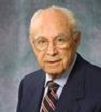



On June 2, 1991 Pope John Paul II makes a pilgrimage to his native Poland, visiting the town of Przemysl, close to the Soviet border, causing 10K Ukrainians to cross the Polish border to see him; he uses his platform to speak out frequently against abortion and secularism. On June 4 Pres. Bush picks Dem. nat. chmn. Robert Schwarz Strauss (1918-) as the new ambassador to the Soviet Union (until Nov. 1992). Russia responds to a decade of American cowboy Reagan by becoming as wild as the Old American West? On June 12 Boris N. Yeltsin (1931-2007) wins the Russian Federation's first popular pres. election with 57%; on June 18 he arrives in the U.S. for visits with U.S. officials, and meets with Pres. Bush on June 20; he begins "shock therapy" on the economy, adopting the liberalization program of Yegor Gaidar (1956-) which eliminates price controls and cuts state spending, causing a decade-long decline in standards of living and a drop in the GDP of 50%, ending in a financial crisis by 1998. On June 12 Muslim ethnic Tatar Mintimer Sharipovich Shaimiev becomes pres. of Tatarstan, a repub. within Russia (until Mar, 25, 2010). On June 21 U.S. secy. of state James A. Baker visits Yugoslavia, followed by Albania on June 22. On June 23 the Soviet Union becomes the first associate member of the IMF. On June 24 state councilor Wang Fang calls for a "people's war" against drug addiction in China, claiming that narcotics use is the worst since the early 1950s. On June 25 Slovenia and Croatia declare themselves independent from Yugoslavia, and the federal govt. refuses to recognize them, causing fighting to erupt and civil war to begin, with the federal army dominated by Serbs; on Sept. 17 Macedonia declares independence. In June the Hungarian nat. assembly agrees to recompensate those whose property was expropriated by the old Communist regime. On July 31 Pres. Bush and Soviet Pres. Gorbachev sign the Strategic Arms Reduction Treaty (START) in Moscow. In July the Soviet Union for the first time acknowledges the existence of unemployment, offering to register the jobless and give them benefits a la the U.S. In July a ceasefire is declared in Slovenia, while fighting continues in Croatia, and the Serbian-dominated Yugoslav nat. army takes almost one-third of its territory by Sept.; too bad, non-Serbs begun to bug out of the Yugoslav nat. army.
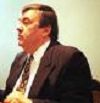
On Aug. 3, 1991 the Serbian Autonomous Region of Western Slavonia is established. On Aug. 14 Pope John Paul II returns to Poland to lead the World Day of Youth, which draws a crowd of 1M to the Jasna Gora Monastery, which houses Poland's most sacred icon, the Black Madonna; he also visits Hungary. The Guns of August, with flowers in their nozzles? On Aug. 19 a Communist putsch in Moscow against Mikhail Gorbachev is attempted by Communist hardliners, who announce his removal and place him under house arrest, but it it fails as flowers are stuck in tank nozzles by protesters while Boris N. Yeltsin heroically stands defiantly atop an armored personnel carrier and shames the soldiers into giving up, becoming his defining moment, even after he later presides over the nation's steep decline; he is helped by pro-dem. journalists, who fly copies to TV stations around the nation; 30K citizens then respond to Yeltsin's call to surround the Russian White House to protect him from an all-out tank and air assault, and by the next morning only a few are dead as Yeltsin and his people talk thousands of soldiers into disobeying orders; on Aug. 21 Gorbachev is released from house arrest, and Yeltsin hauls him before the Soviet parliament and shows proof on nat. TV that it was Gorby's own Communist Party that was behind the coup, causing chastened Gorby to outlaw the party the next day, cementing the Yeltsin ascendancy; that evening, Ukraine, the 2nd largest Soviet Union repub. declares independence; on Aug. 23 Pope John Paul II wires Gorby that the Commie coup attempt had given him "intense apprehension", and that he thanks God for his safe return. On Aug. 27 Moldova declares independence from the Soviet Union; on Dec. 8 former Communist Party chmn. Mircea Snegur (1940-) is elected pres. #1 with 98% of the vote and an 82% turnout (until 1997). On Aug. 29 the Supreme Soviet suspends all activities of the Communist Party, which is now kaput - okay let's get this Winterfest started? On Aug. 30 Azerbaijan declares its independence from the Shrinking Soviet Union - join the stampede? On Aug. 31 Uzbekistan declares its independence from the Soviet Disunion and changes its name to the Repub. of Uzbekistan; on Dec. 29 Islam Karimov wins reelection with 86% of the vote after the opposition party is banned from participating. On Aug. 31 Kyrgyzstan proclaims its independence from the Soviet Union.
On Sept. 6, 1991 the State Council of the Soviet Union votes unanimously to recognize the independence of the repubs. of Lithuania, Latvia, and Estonia. On Sept. 7 Albania initiates diplomatic relations with the Vatican. On Sept. 23 the Repub. of Armenia declares independence from the Soviet Disunion.

On Oct. 16, 1991 Levon Ter-Petrosian (1945-) becomes pres. of Albania (until 1998); as the Soviet bloc melts, Albania goes on to embrace democracy and idolize the U.S., with families beginning to name their children Bill, Hillary, and George. On Oct. 22 Kosovo Province of Serbia passes a sovereignty referendum by 99% with 87% voter turnout. On Oct. 27 the first free parliamentary elections are held in Poland, and there is a low voter turnout, with 29 parties winning seats in the 460-member Sejm (lower house of parliament), and none achieving a majority, with the most (62) going to the pro-Solidarity Dem. Union, and 60 to the Communist-backed Alliance of the Dem. Left; Pres. Lech Walesa offers to become PM, but is rejected. In Oct. Bosnia-Herzegovina declares independence and forms a non-Communist govt.
On Nov. 27, 1991 the U.N. Security Council votes 15-0-0 for Resolution 721 supporting the efforts of secy.-gen. Javier Perez de Cuellar to end the fighting in Yugoslavia, and begins deploying peacekeeping troops as requested by Serbia and Croatia.
In Nov. 1991 rationing of basic foods begins in Moscow as a severe drought in E Siberia and Kazakhstan, combined with flooding in the Ukraine cause the grain harvest to fall by 26% from 1990 bumper crop levels; by the end of the year the Soviet economy almost collapses, with inflation at 250%.

On Dec. 1, 1991 the Ukraine becomes an independent nation, with Leonid Makarovych Kravchuk (1934-) of the Social Dem. Party as pres. on Dec. 5 (until July 19, 1994). Ding Dong the witch is dead - which old witch? On Dec. 8 the Commonwealth of Independent States Treaty is signed in the Belovezhskaya Pushcha Nat. Reserve 31 mi. N of Brest, Belarus by Ukraine, Russia, and Belarus (formerly Byelorussia), putting an end to the U.S.S.R. (Soviet Union) (founded Dec. 30, 1922); on Dec. 21 Armenia, Azerbaijan, and Moldova join the five Central Asian repubs. Kazakhstan, Kyrgystan (formerly Kirghiz), Tadzhikistan, Turkmenistan, and Uzbekistan in agreeing to join the Commonwealth; as Boris N. Yeltsin begins to gain control of the govt., Gorbachev diplomatically resigns on Dec. 25, giving him the nuclear codes; the collapse of the Soviet Union creates a "short twentieth century", framed by the 1917 Russian Rev. and this year, throwing the U.S. out of work as the needed counterforce to the evil empire, and giving it more of an old United Kingdom imperialist role?; "The collapse of communism in effect signified the collapse of liberalism, removing the only ideological justification behind U.S. hegemony" (Immanuel Wallerstein, Pax Americana is Over); Belarus, Ukraine, and Kazakhstan return their nuclear weapons inherited from the Soviet Union. On Dec. 21 Kyrgyzstan joins the Commonwealth of Independence States. On Dec. 25 did-I-mention Mikhail Gorbachev announces his resignation as pres. of the sagging Soviet Union. On Dec. 30 the Commonwealth of Independent States agrees that member states can form their own armies, although all states are to be equal. In 1991 the Visegrad Three, consisting of Czech., Poland, and Hungary is formed as a regional framework; on May 12 it announces the formation of a battle group under command of Poland, to be in place by 2016 as a force independent of NATO. In 1991 Boris N. Yeltsin suspends pub. of the Communist newspaper Pravda (Russ. "Truth") (founded 1912). After the fall of the Soviet Union, the Committees of Correspondence for Democracy and Socialism is formed as a moderate splinter group from the Communist Party USA by Angela Davis, Pete Seeger et al. to reject Leninism; members later incl. Van Jones.
On Apr. 3, 1995 the Soviet KGB is rechristened the Russian Federal Security Service (FSB); on Mar. 9, 2004 it becomes subordinate to the ministry of justice.
The vodka-soaked Yeltsin admin. staggers like a drunk? On May 12, 1999 Boris N. Yeltsin sacks his cabinet; impeachment hearings begin in the Russian Duma on May 13, but on May 15 the impeachment vote fails; on May 19 the Duma approves Sergei Stepashin (1952-) as PM, but he is dismissed by Yeltsin on Aug. 9, and even though Yeltsin abolished the KGB, he turns around and names KGB veteran Vladimir Putin (1952-) as PM, succeeding Stepashin on Aug. 16.
On Aug. 7, 1999 the War of Dagestan begins when Islamic militants based in Chenya led by Shamil Basayev et al. invade the Russian repub. of Dagestan, declaring independence and launching a jihad against Russia, launching the Second Chechen War (ends Apr. 16, 2009). On Sept. 4 the 1999 Russian apt. bombings begin when Chechnyan rebels detonate a car bomb in front of a bldg. in Buynaksk on the Russian border, killing Russian border guards; on Sept. 9 another bomb detonates in the basement of an apt. bldg. in the working-class Pechatniki district of Moscow, killing 106; on Sept. 13 another car bomb in Moscow kills 119; on Sept. 16 a final bomb detonates in the S Russian cit8y of Volgodonsk, killing 17; the bombings kill a total of 300 and injure 1K+, throwing Russia into a siege mentality that allows Russian PM Vladimir Putin to get put in charge, leading it on a path from democracy to totalitarianism.

On Dec. 31, 1999 after a silent coup orchestrated by hardcore KGB man Vladimir Vladimirovich Putin (1952-) (PM since Aug. 9), Russian pres. (since July 10, 1991) Boris Yeltsin resigns after naming Putin as acting Russian pres., uttering the soundbyte: "I want to beg forgiveness for your dreams that never came true, and also I would like to beg forgiveness not to have justified your hopes"; Putin is sworn in as Russian pres. #2 on May 7, 2000 (until May 7, 2008), becoming a DINO (democrat in name only) tsar-wannabe, promising to restore Russia's old pride and power, pumping up the military and systematically undermining the new democracy by threatening, jailing, or murdering anybody in his way while the West looks the other way, and backing Iran in its goal of becoming a nuclear power, going on to install 6K former KGB colleagues in govt. posts by 2004, bringing Communism back under the West's nose; Pres. George W. Bush later says that he looked into Putin's soul and saw a good man - knock, knock, anybody home?

On Feb. 6, 2012 the Wang Lijung Incident sees Chongqing vice-mayor Wang Lijun attempt to defect at the U.S. consulate in Chengdu, leading to the downfall of his up-and-coming boss Bo Xilai (1949-) (son of Communist Party founder Bo Yibo), who is removed as Chongqing party chief in Mar. and suspended from the Politburo in Apr., then expelled from the Communist Party.
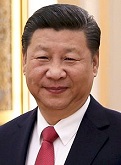

On Nov. 15, 2012 Xi Jinping (1953-) becomes gen. secy. of the Chinese Communist Party; on Mar. 14, 2013 Xi Jinping (1953-) becomes pres. #7 of the People's Repub. of China (until ?); on Mar. 15 former Young Communists leader Li Keqiang (1955-) becomes PM #7 of China (until ?); Jinping goes on to consolidate power in the party's hands, announcing a reorg. in late Mar. 2018 transferring control of key govt. bureaus to party organs, undoing the party-state divide set up by Den Xiaoping in the 1980s, and cracking down on univs., increasing ideological control with a 2016 directive from the ministry of education calling for more "patriotic education"; in 2017 he urges overseas Chinese students to set up Communist party cells.
On Mar. 20-22, 2016 Pres. Obama visits Cuba (first U.S. pres. since Calvin Coolidge in 1918), tweeting "Que bola Cuba?" (What's up, Cuba?) from Air Force One as it lands at Jose Marti Internat. Airport near Havana, meeting with pres. Raul Castro but not his brother Fidel and allowing him to criticize the U.S., giving on Mar. 22 a speech to the Cuban people on Mar. 22, with the soundbyte "I have come here to bury the last remnant of the Cold War in the Americas", adding "We cannot ignore the very real differences that we have", then attending a baseball game between the Cuban nat. team and the ML Tampa Bay Rays, while ignoring all the repression?; meanwhile on Mar. 19 Obama delivers a Persian New Year Message to the people of Iran, pointing to his Cuban visit as "a reminder that even after decades of mistrust, it is possible for old adversaries to start down a new path." On Mar. 22 (8:00 a.m.) coordinated ISIS suicide terror attacks at the Zaventem Nat. Airport and the key Maalbeek metro subway station near the European Commission in Brussels, Belgium killing 34 incl. 14 at the airport and injuring 187 in three explosions, causing heightened security throughout Europe while authorities shut Brussels down; Pres. Obama condemns the attacks from Cuba, ignoring that Cuba is a state sponsor of terror, causing Repub. House Speaker Paul Ryan to utter the soundbyte that Obama's trip to Commie Cuba "legitimizes a tyrannical dictatorship"; Donald Trump supporters brag about his Jan. 27 interview with Maria Bartiromo of Fox Network, where he uttered the soundbyte: "There is something going on, Maria. Go to Brussels. Go to Paris. Go to different places. There is something going on and it's not good, where they want Sharia law, where they want this, where they want things that, you know, there has to be some assimilation. There is no assimilation. There is something bad going on."
On July 16, 2017 China requires all 90M members of the Chinese Communist Party to "be firm Marxist atheists, obey Party rules, and stick to the Party's faith. They are not allowed to seek value and belief in religion."